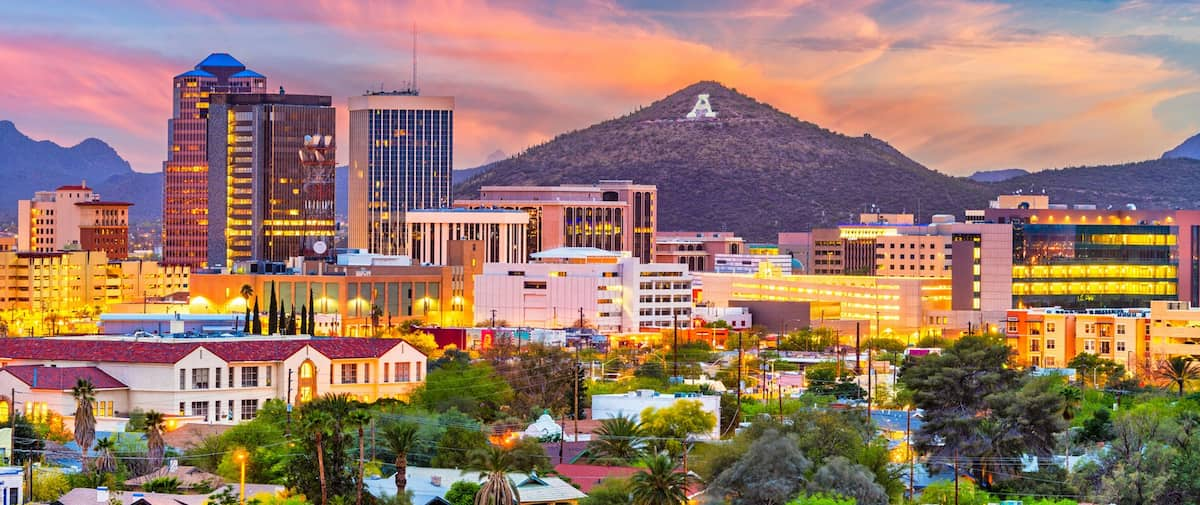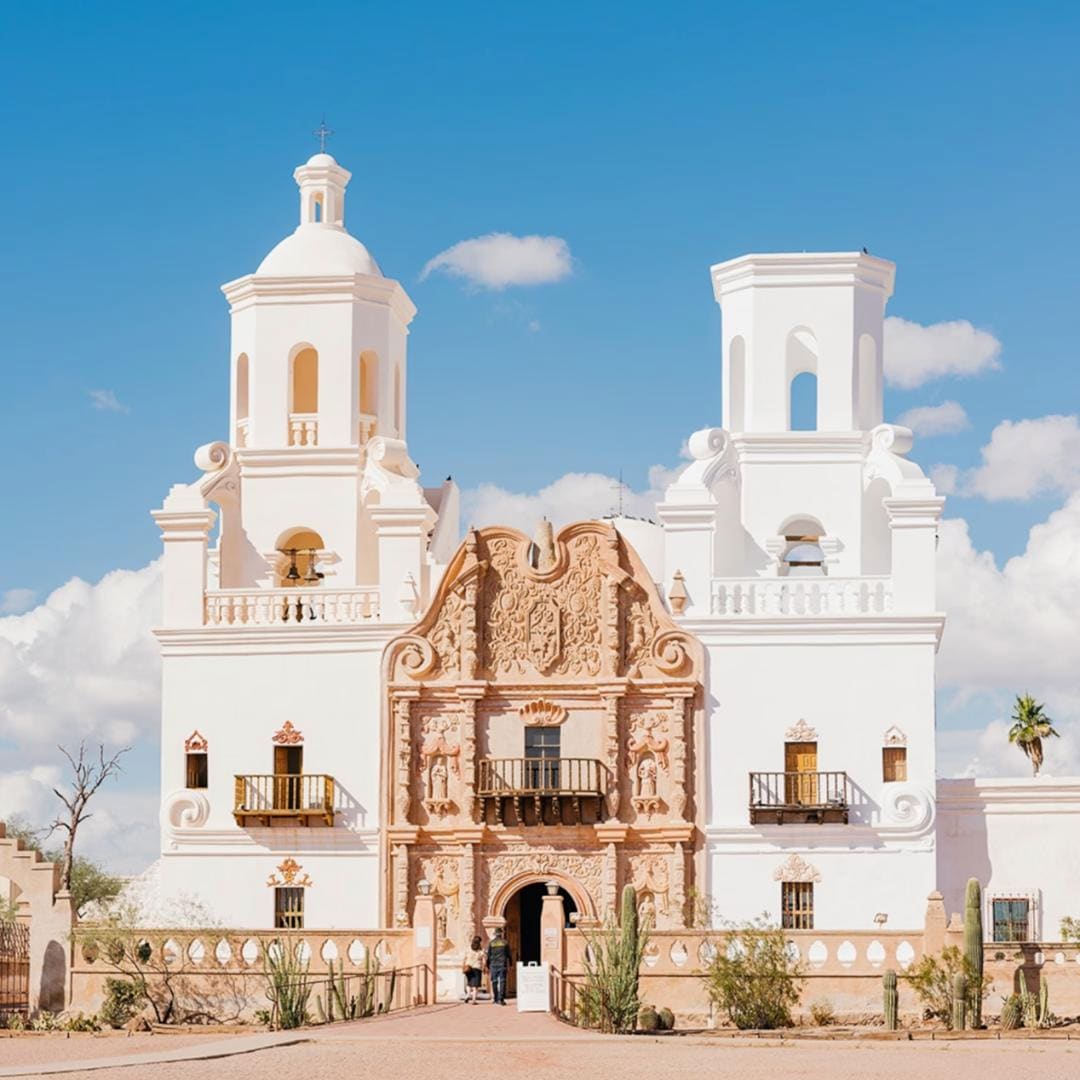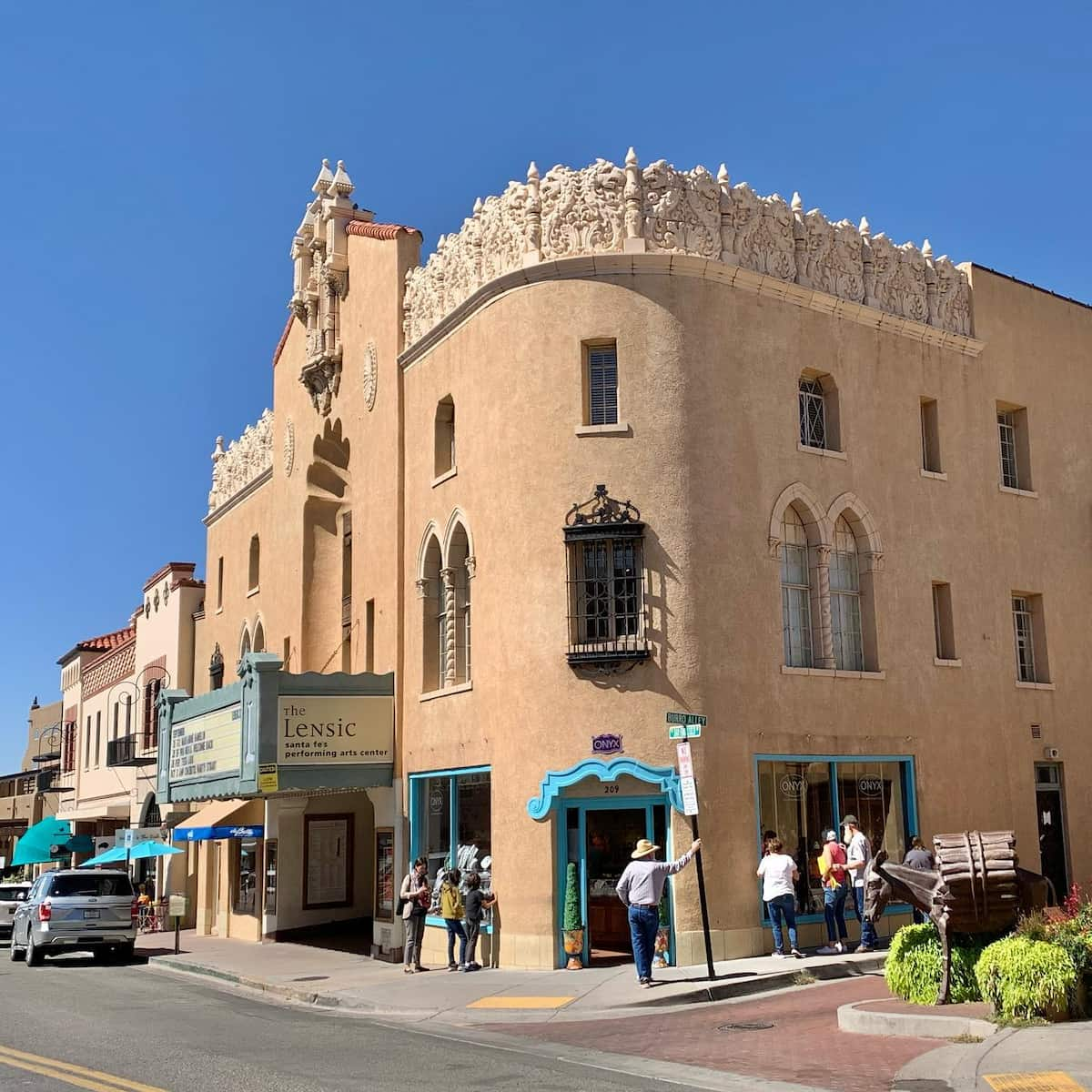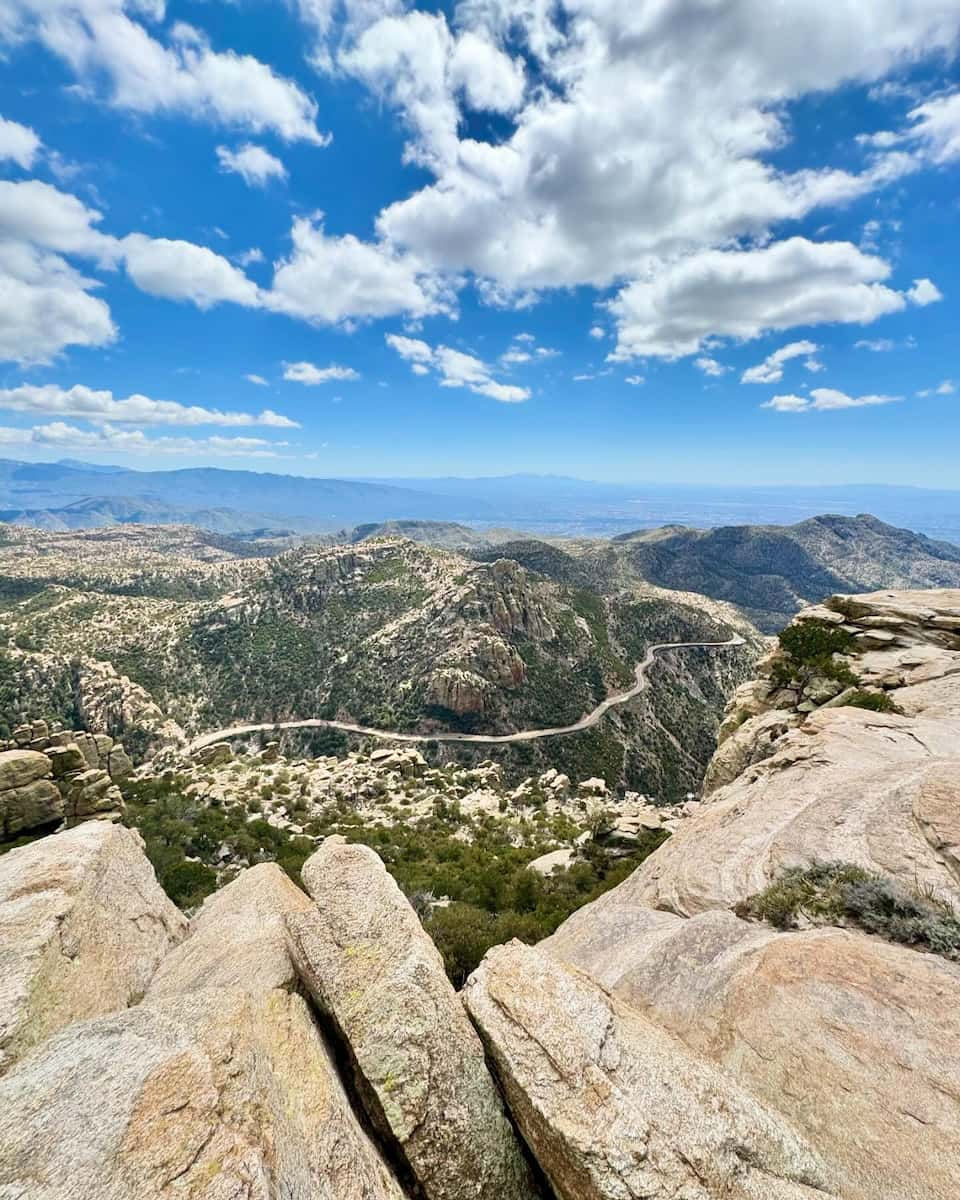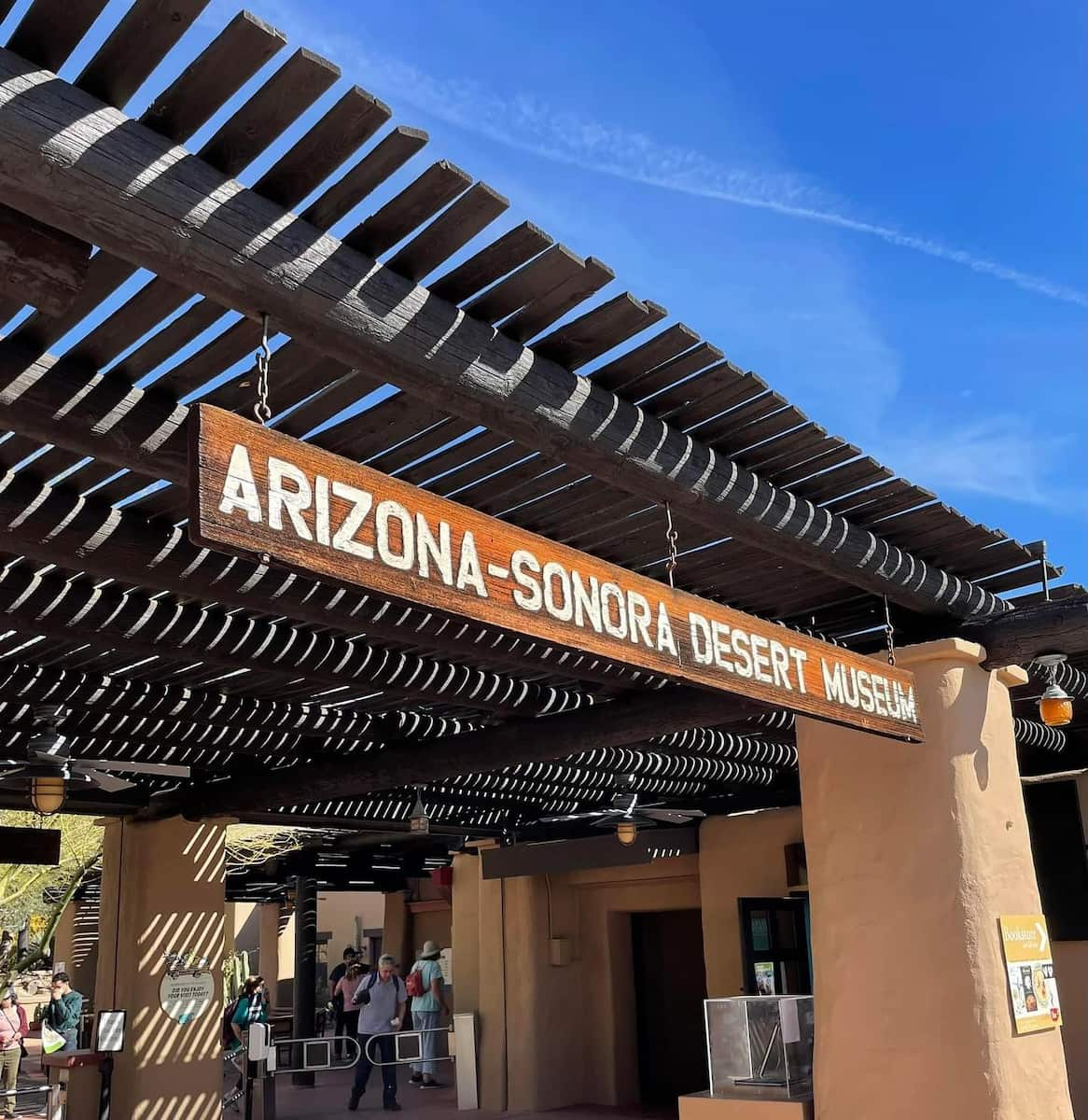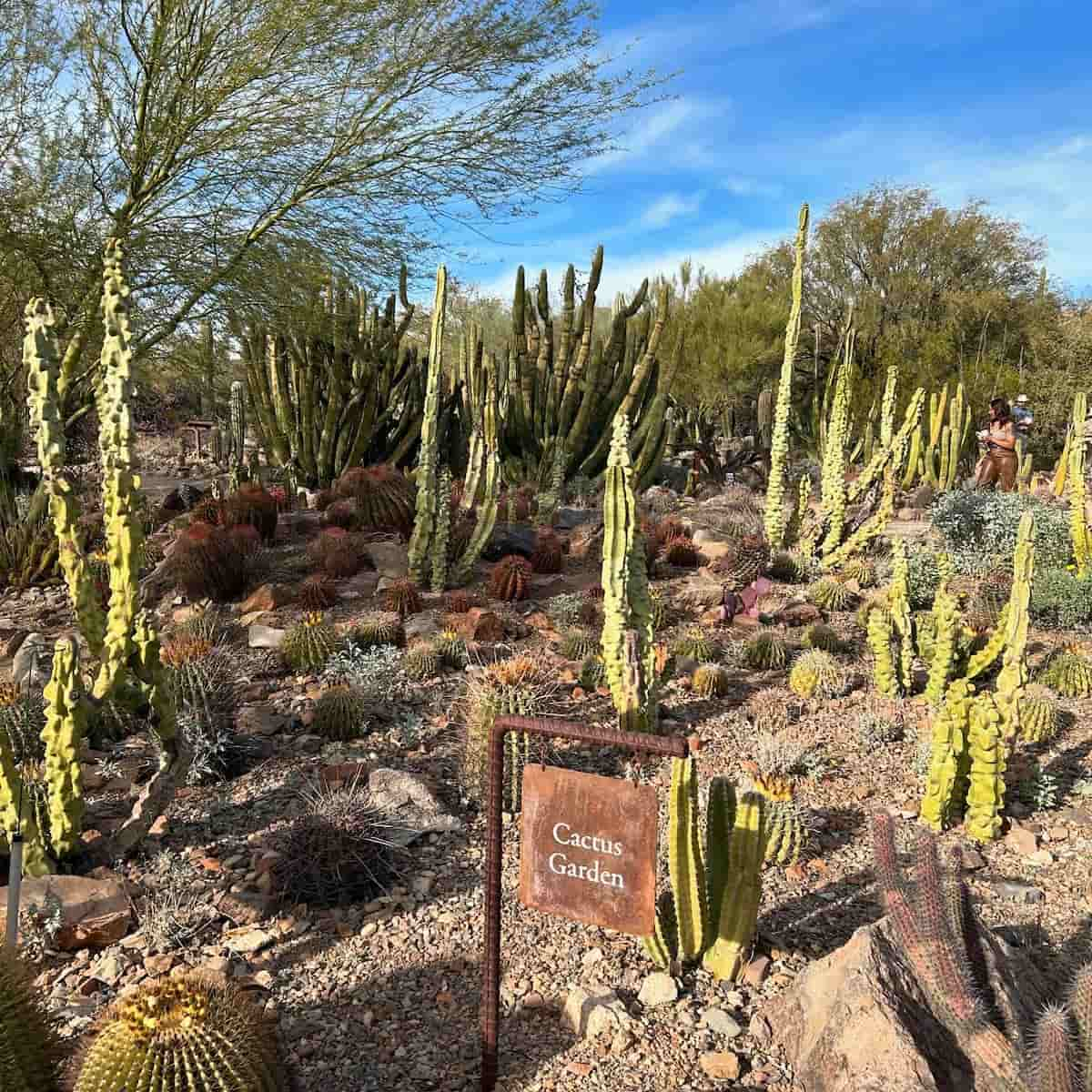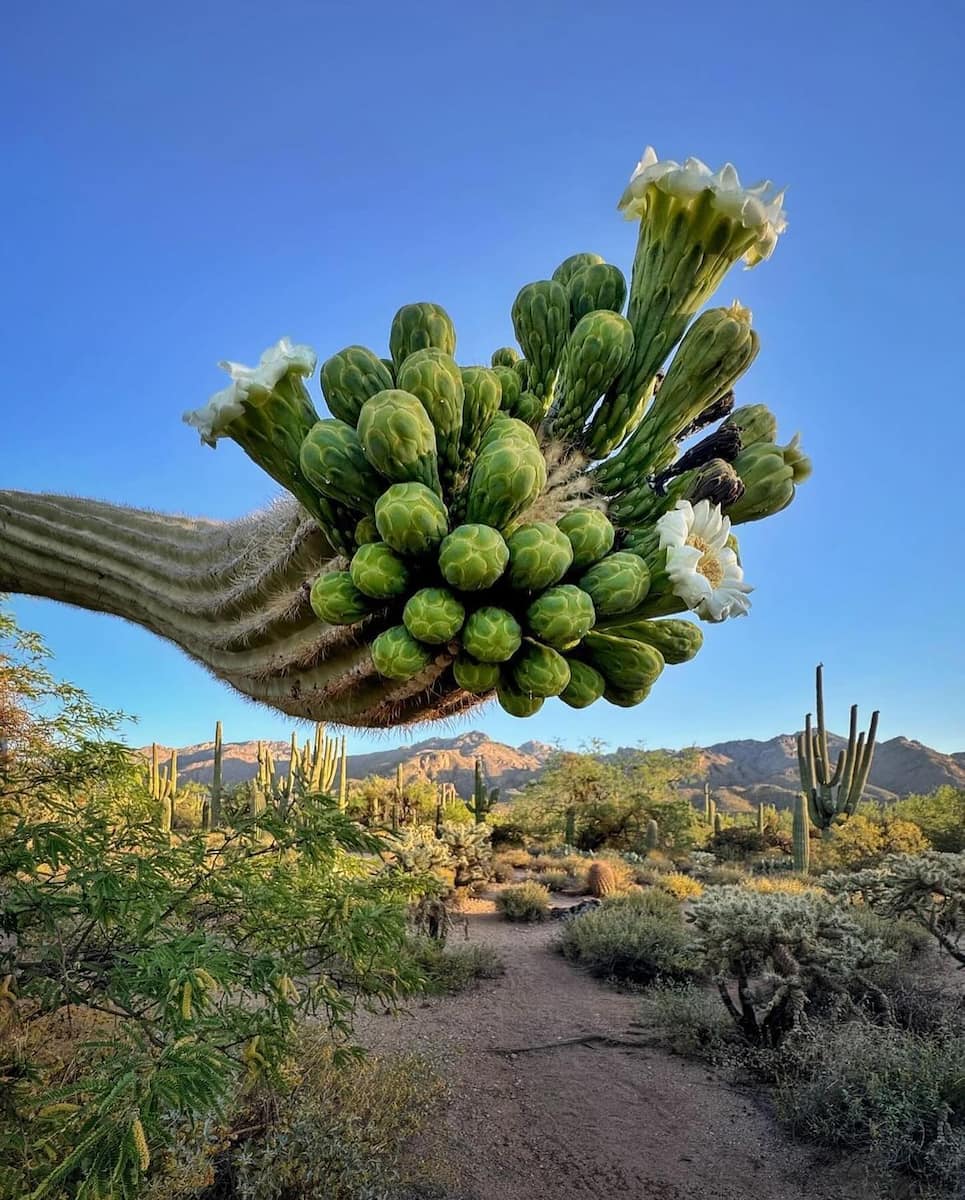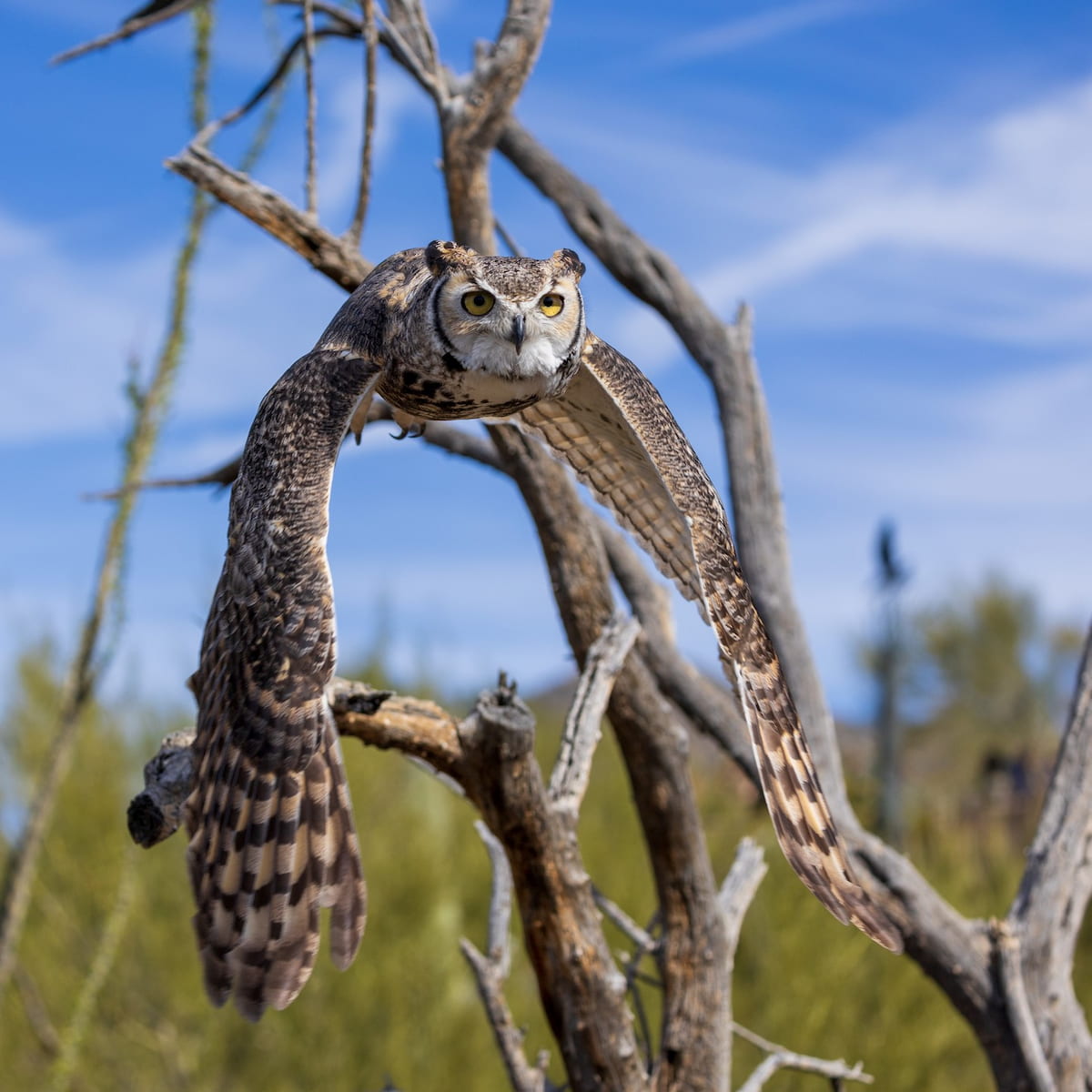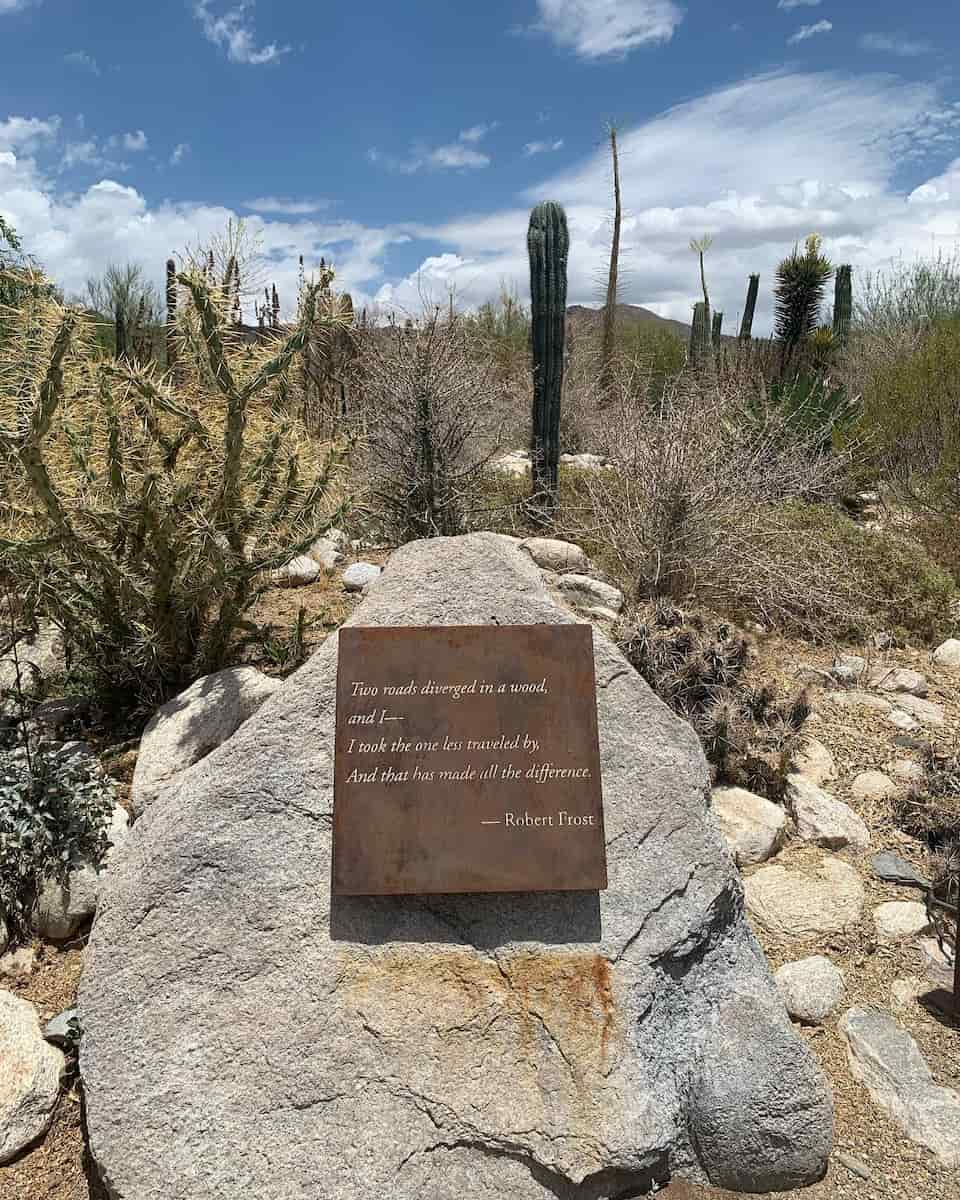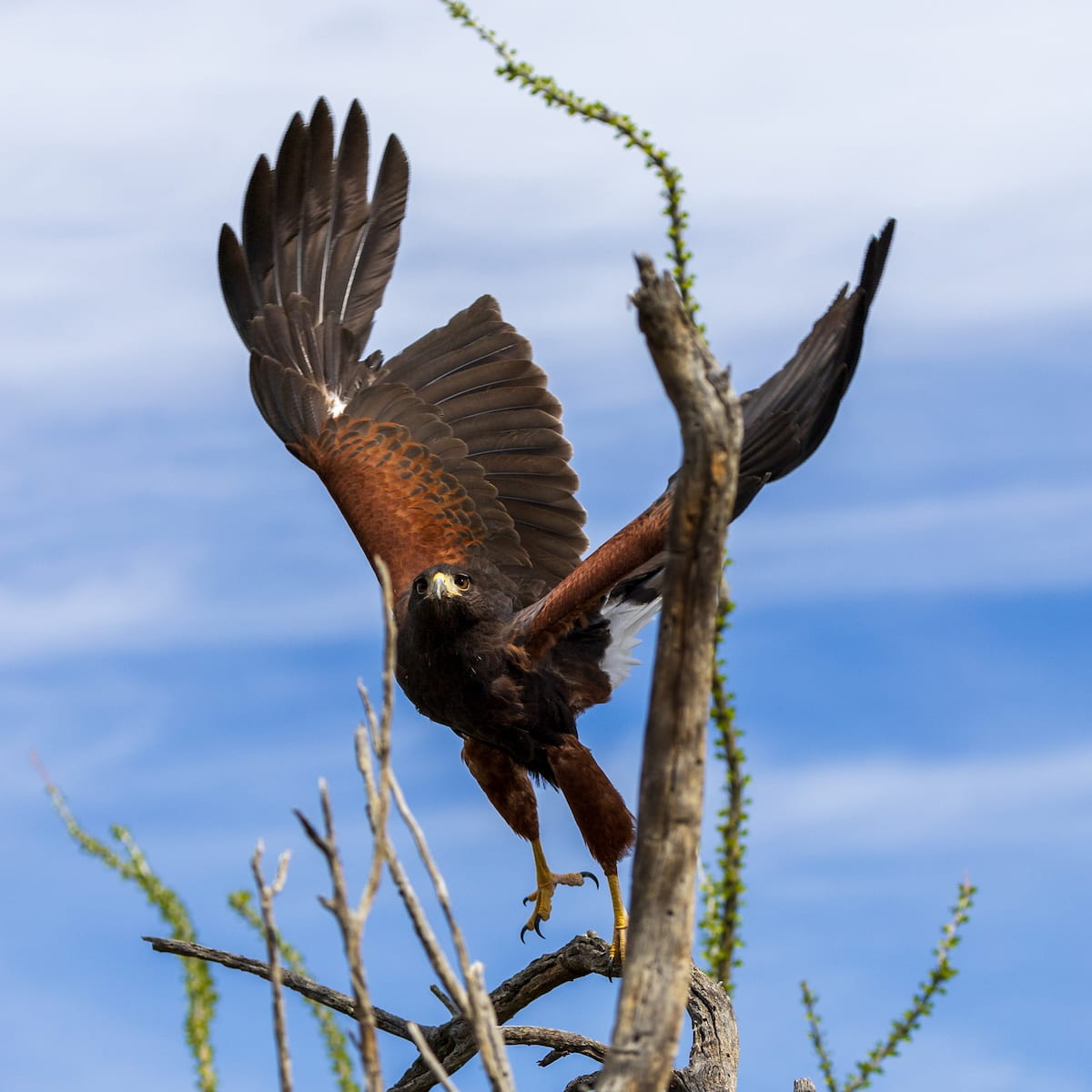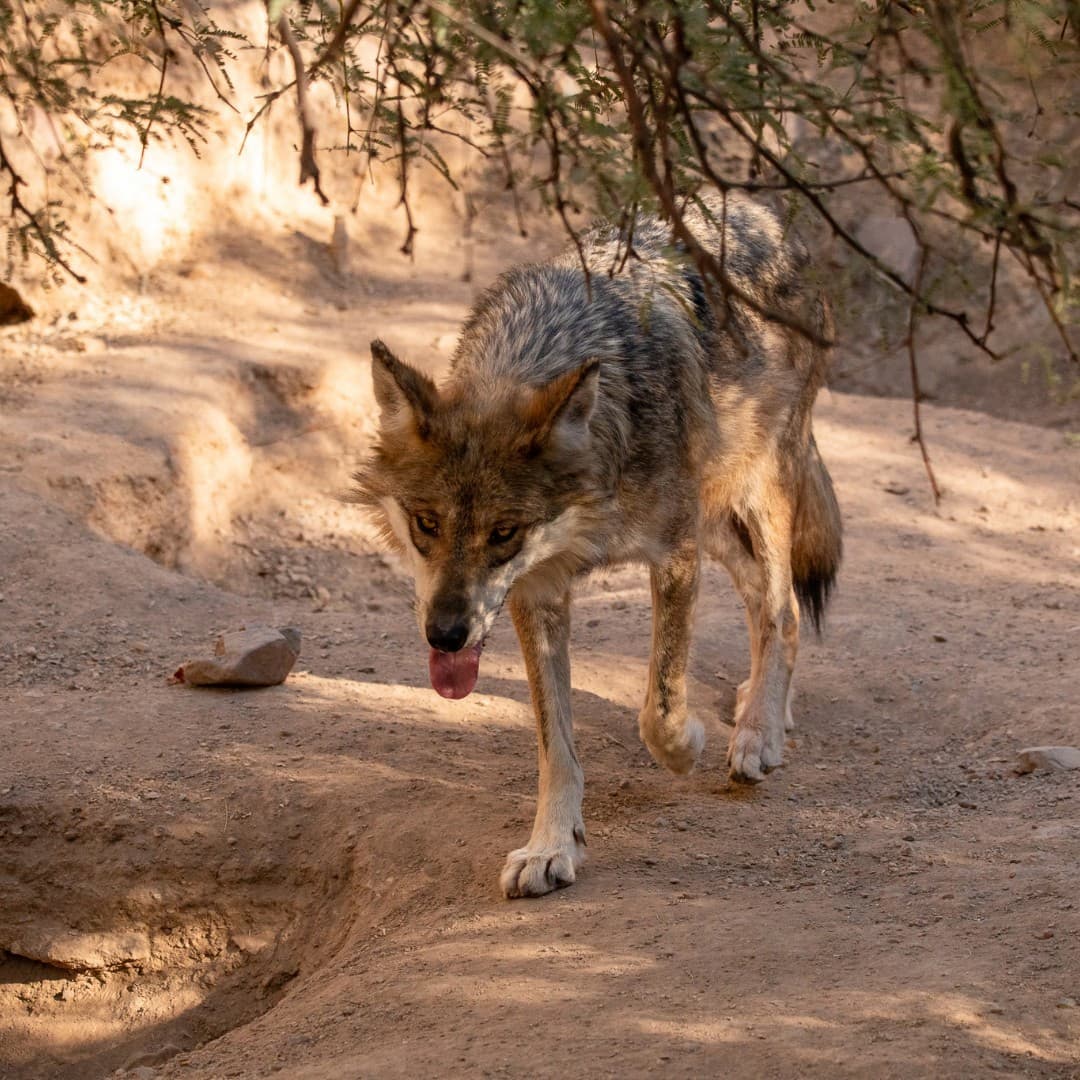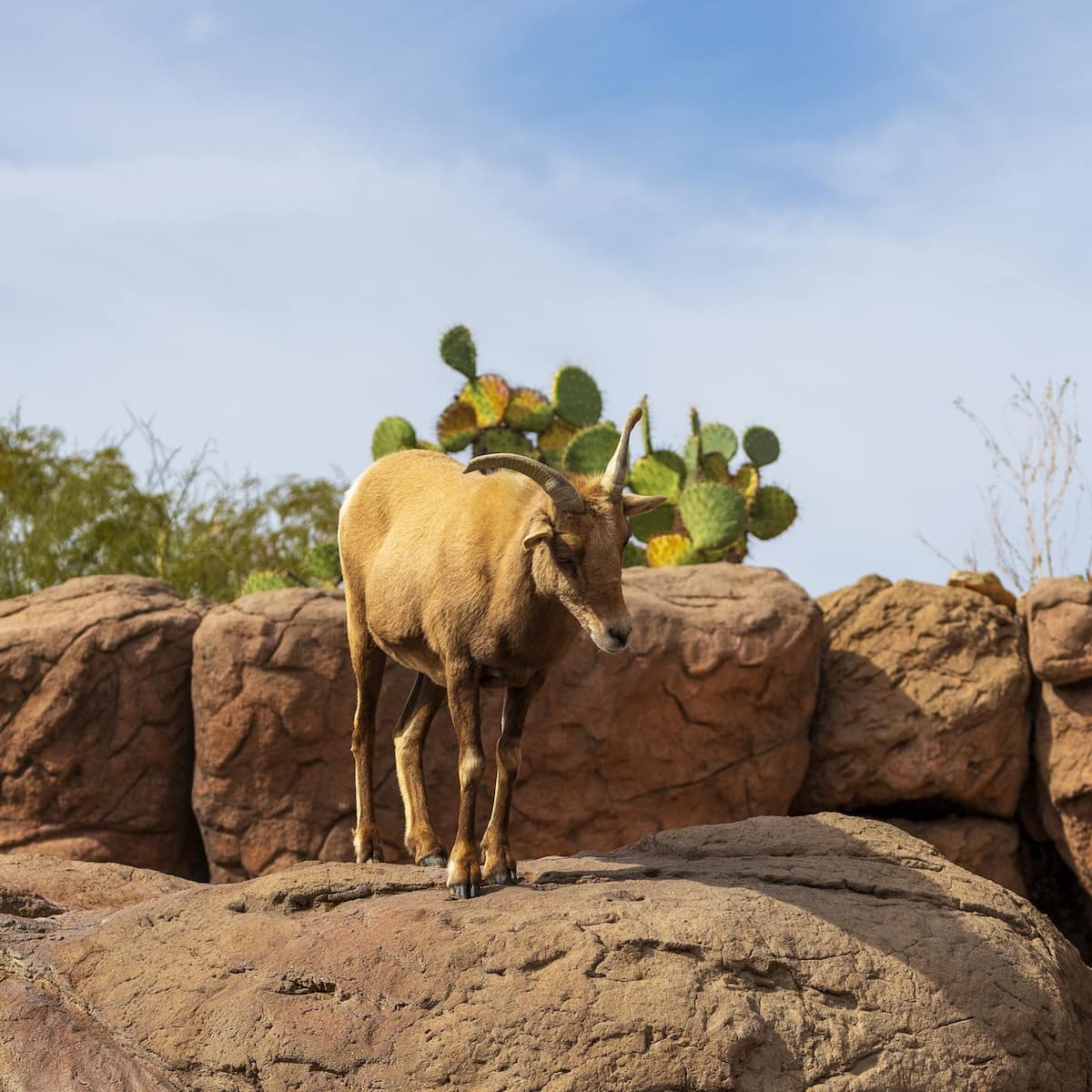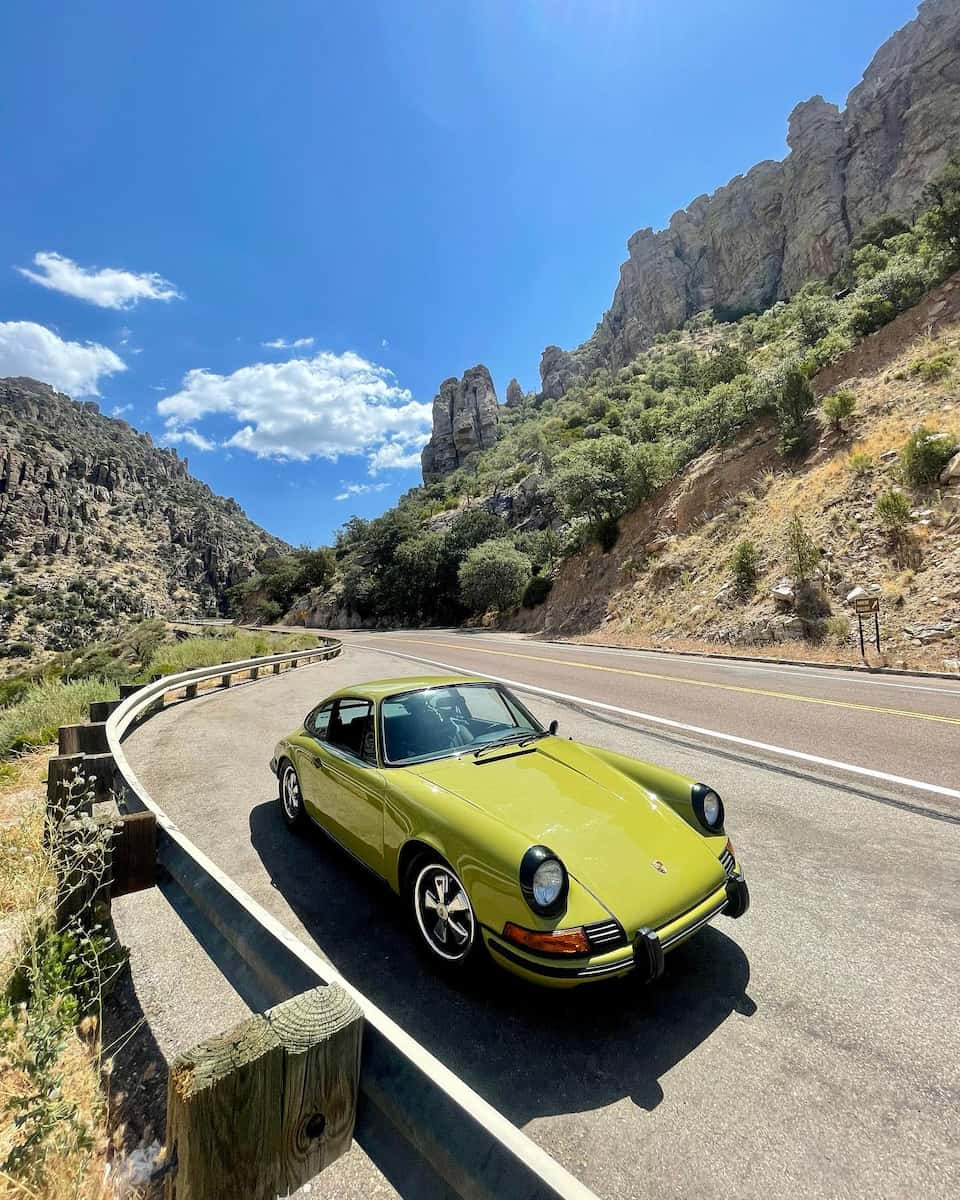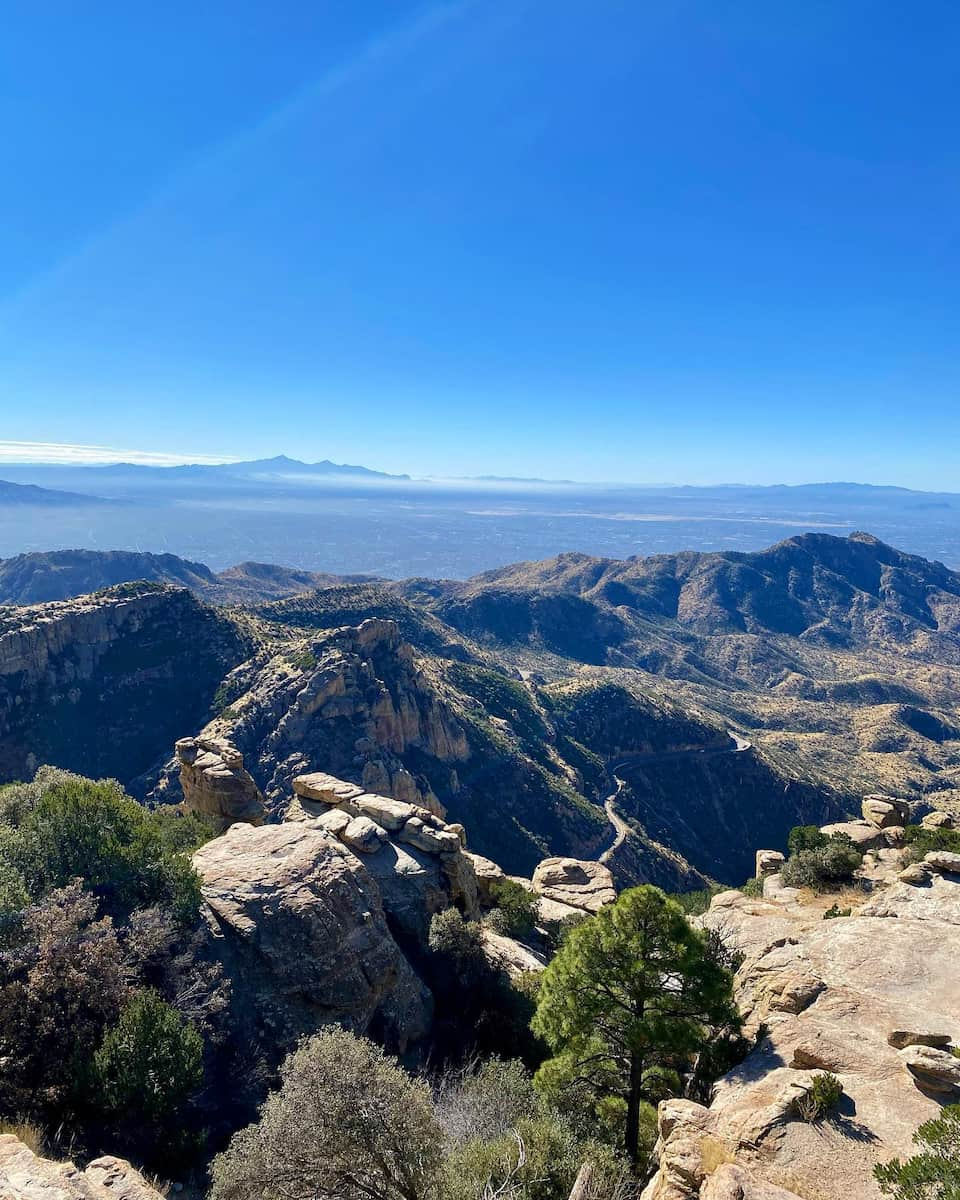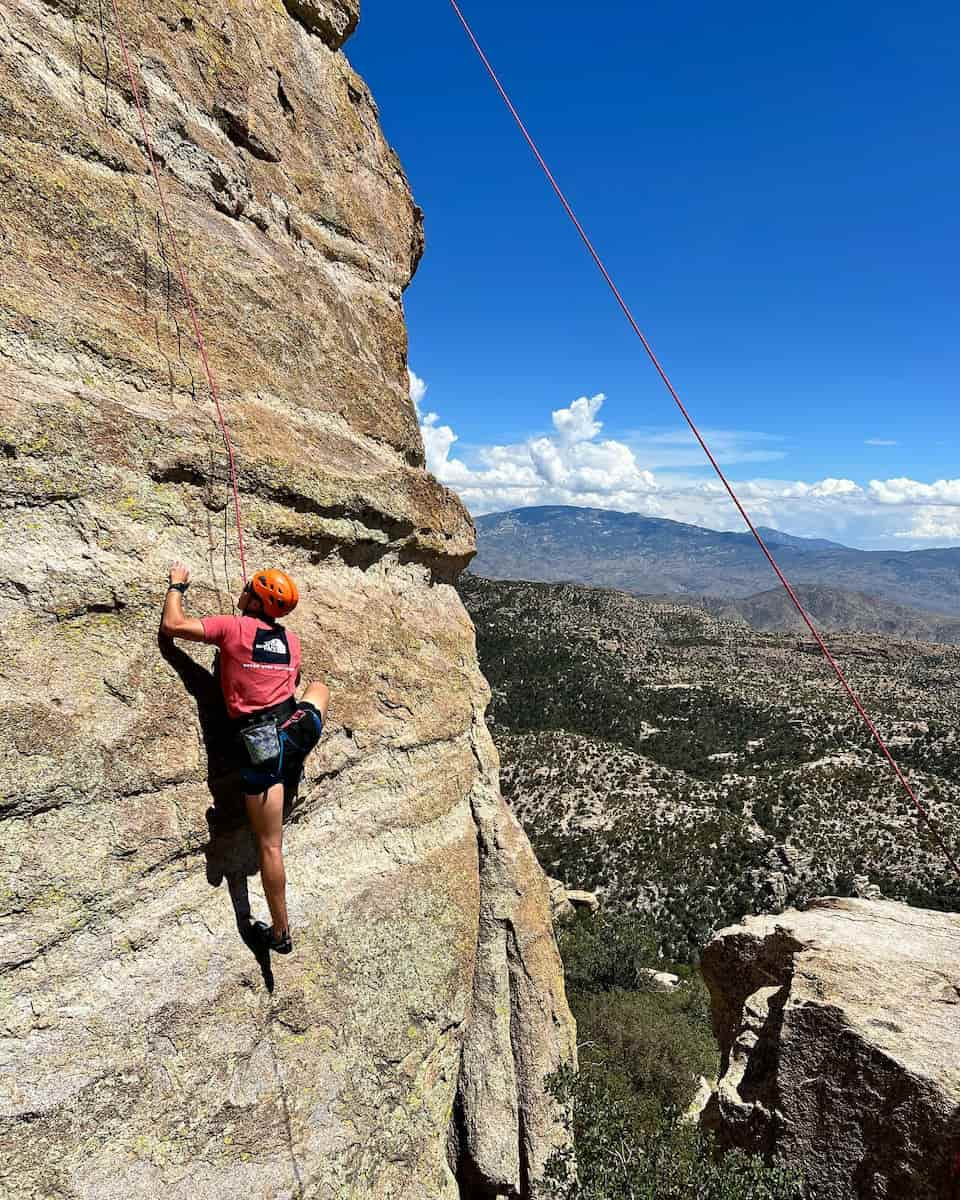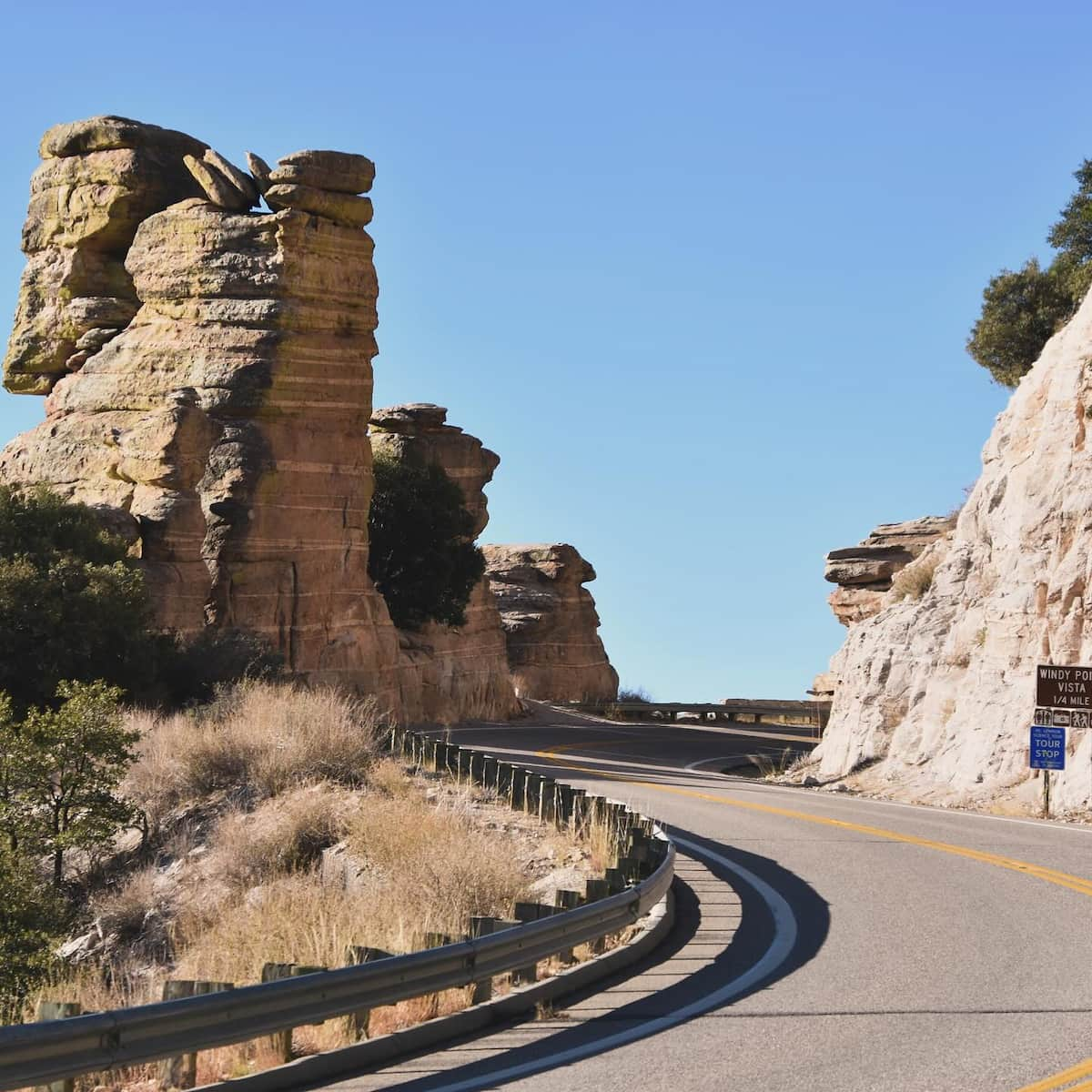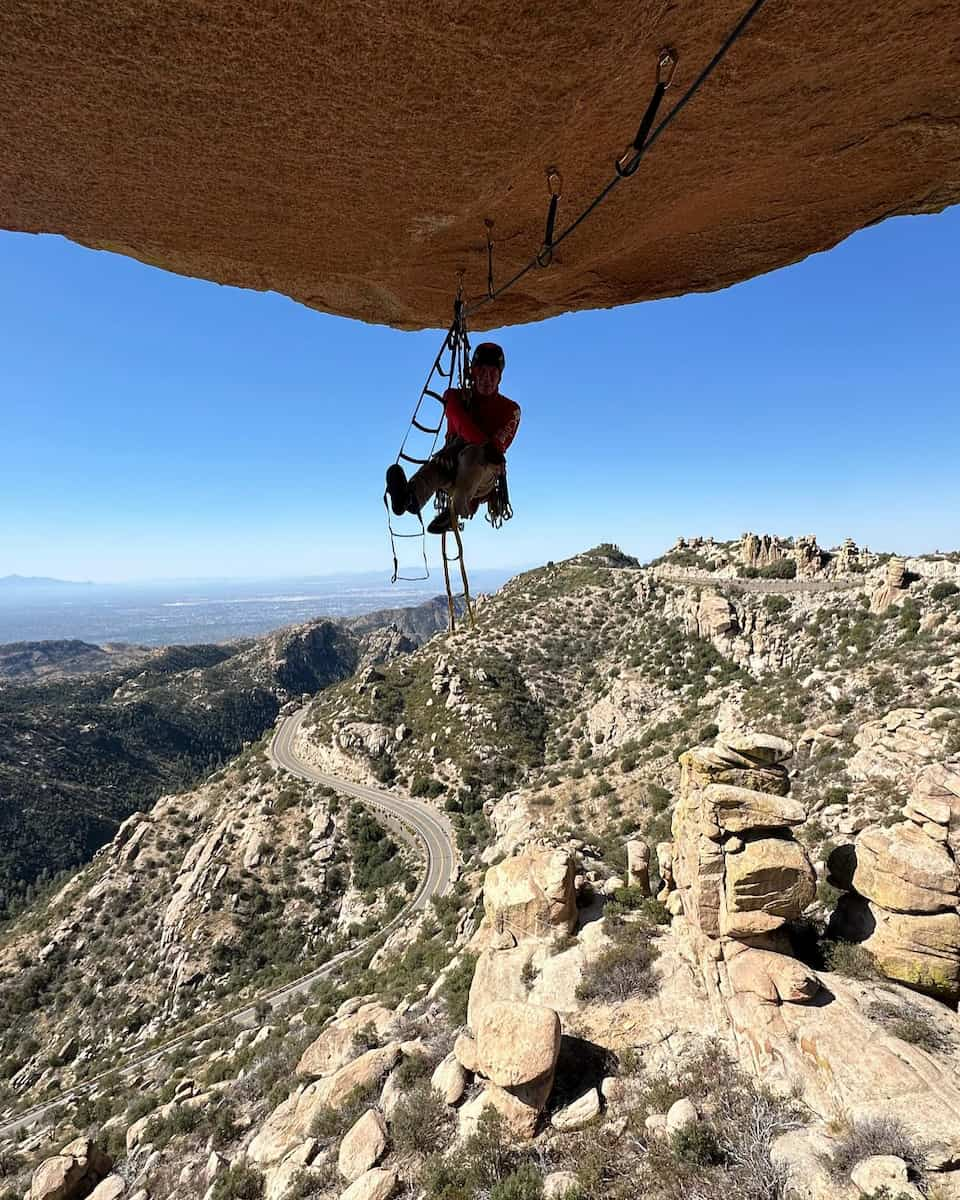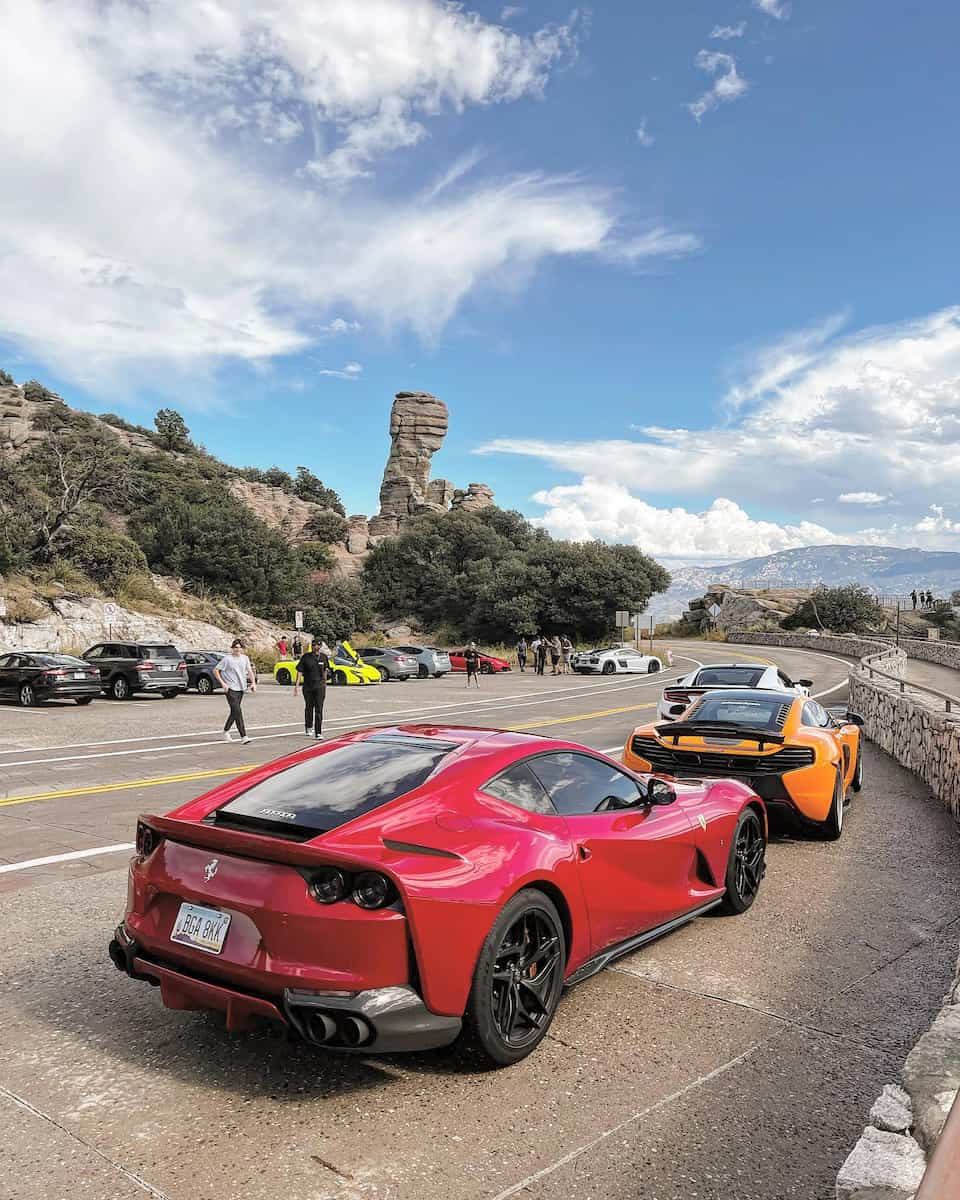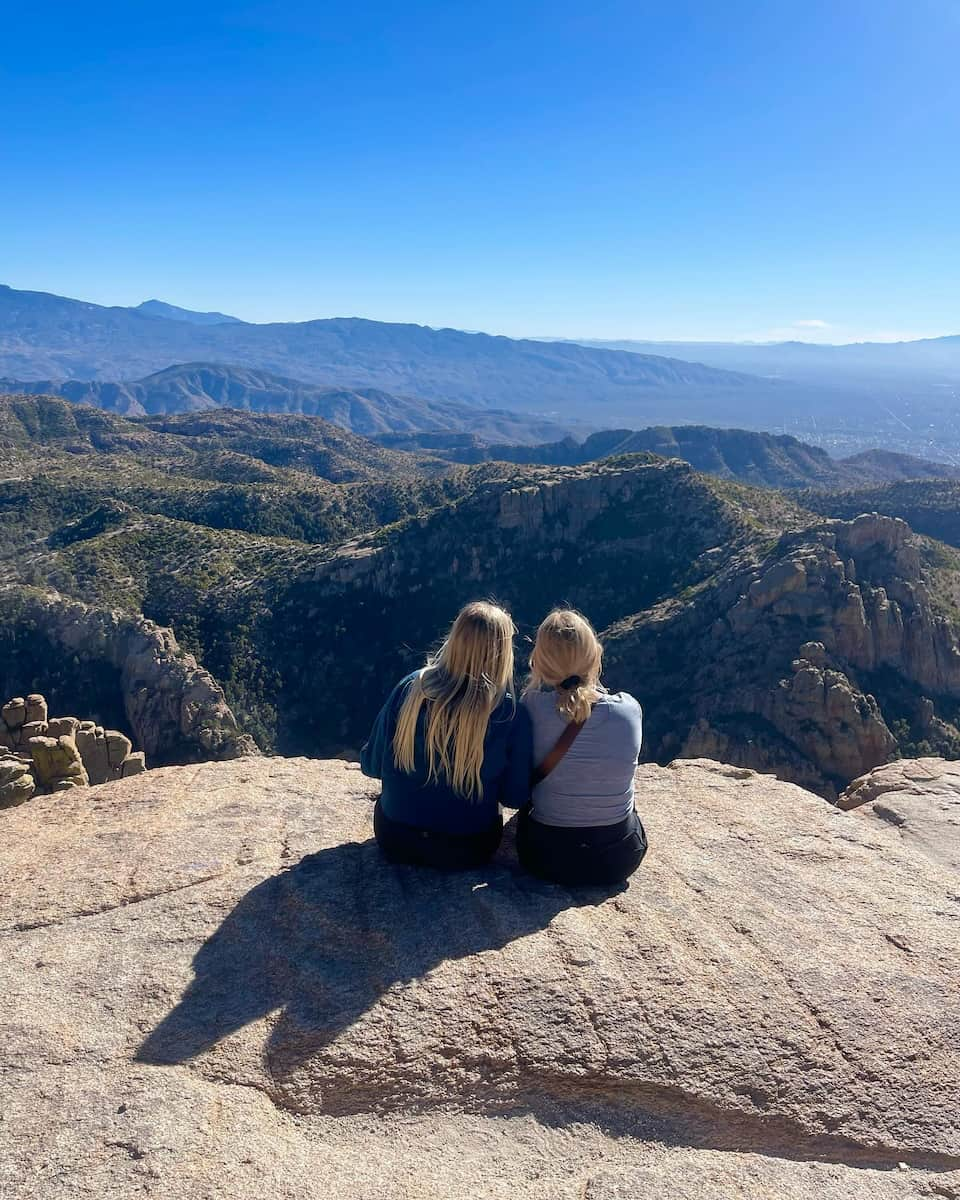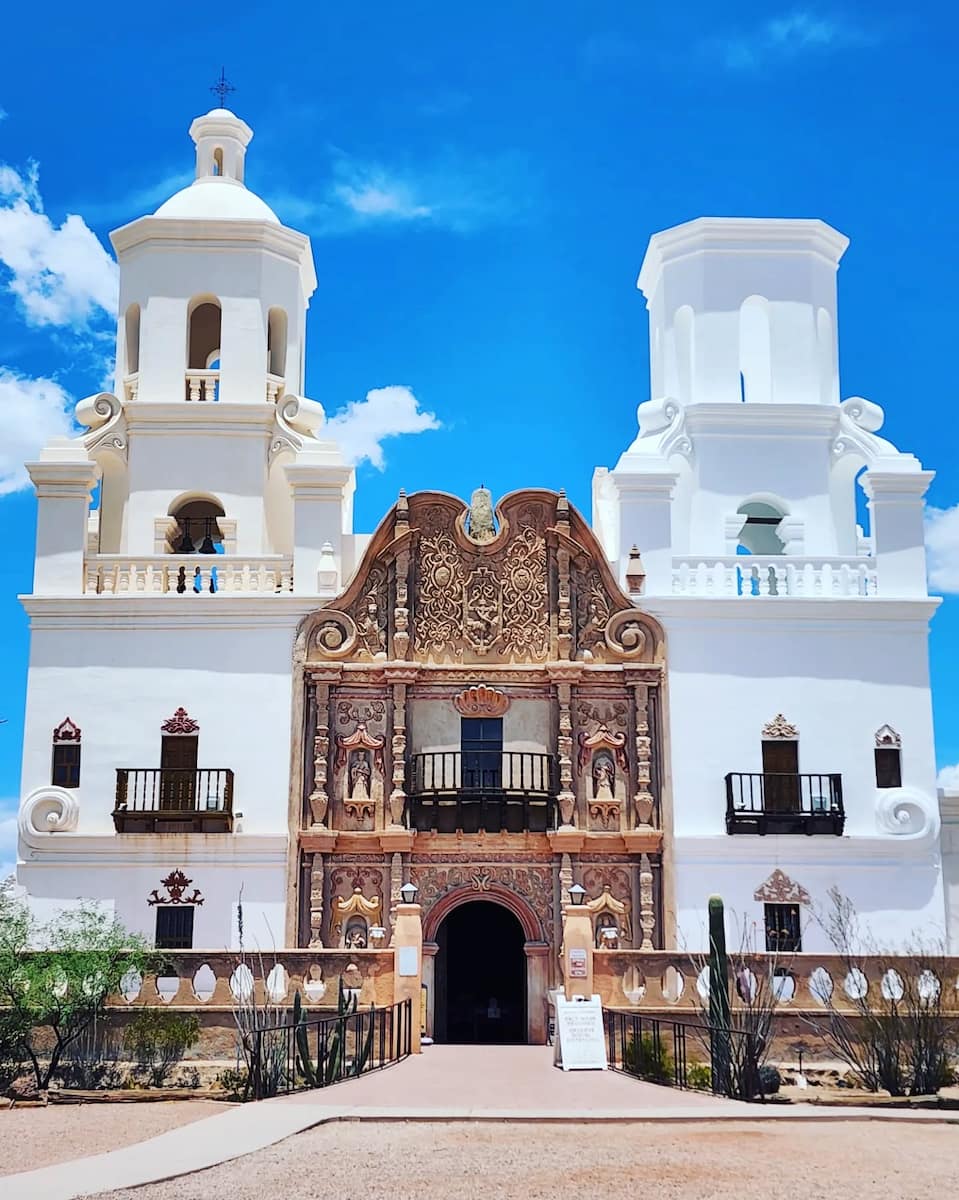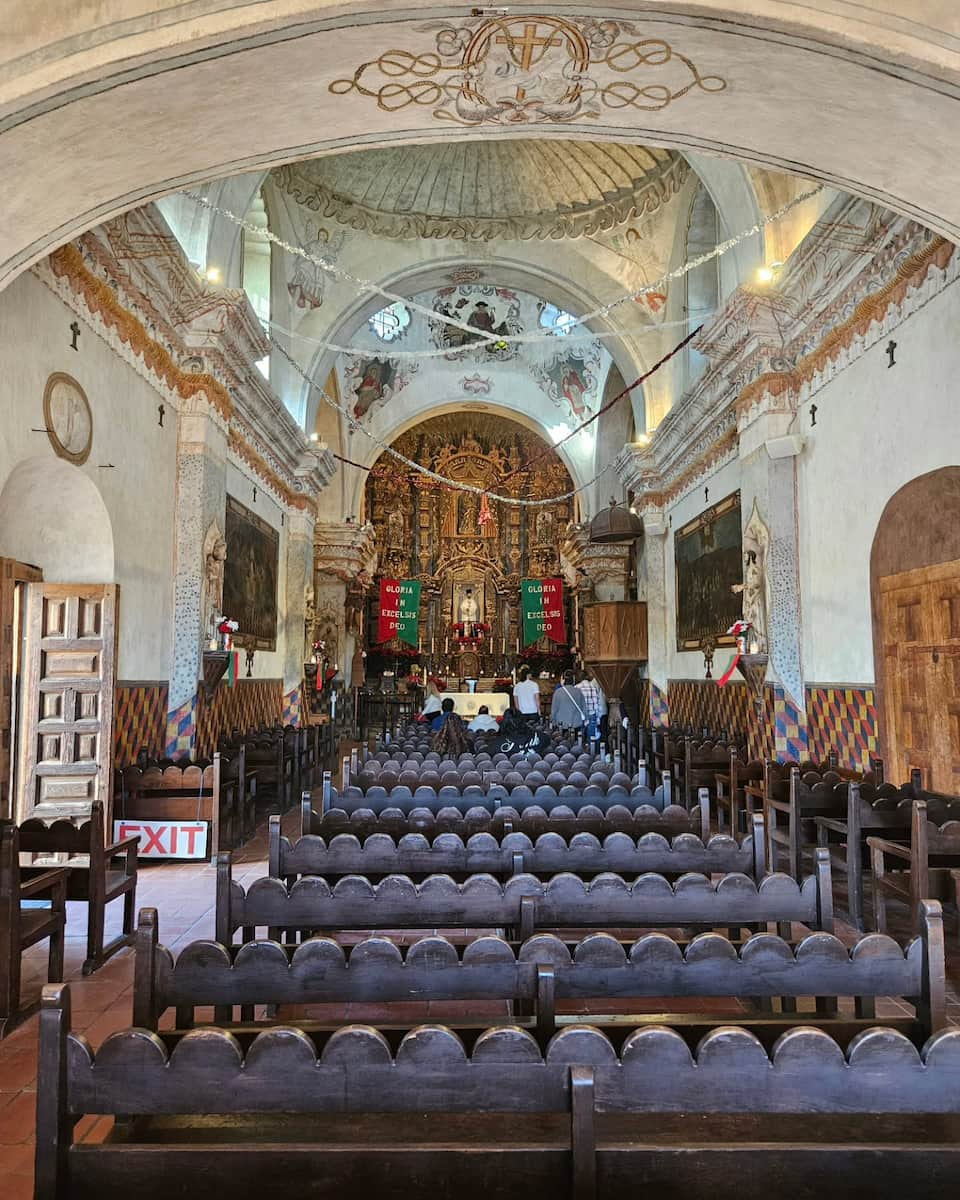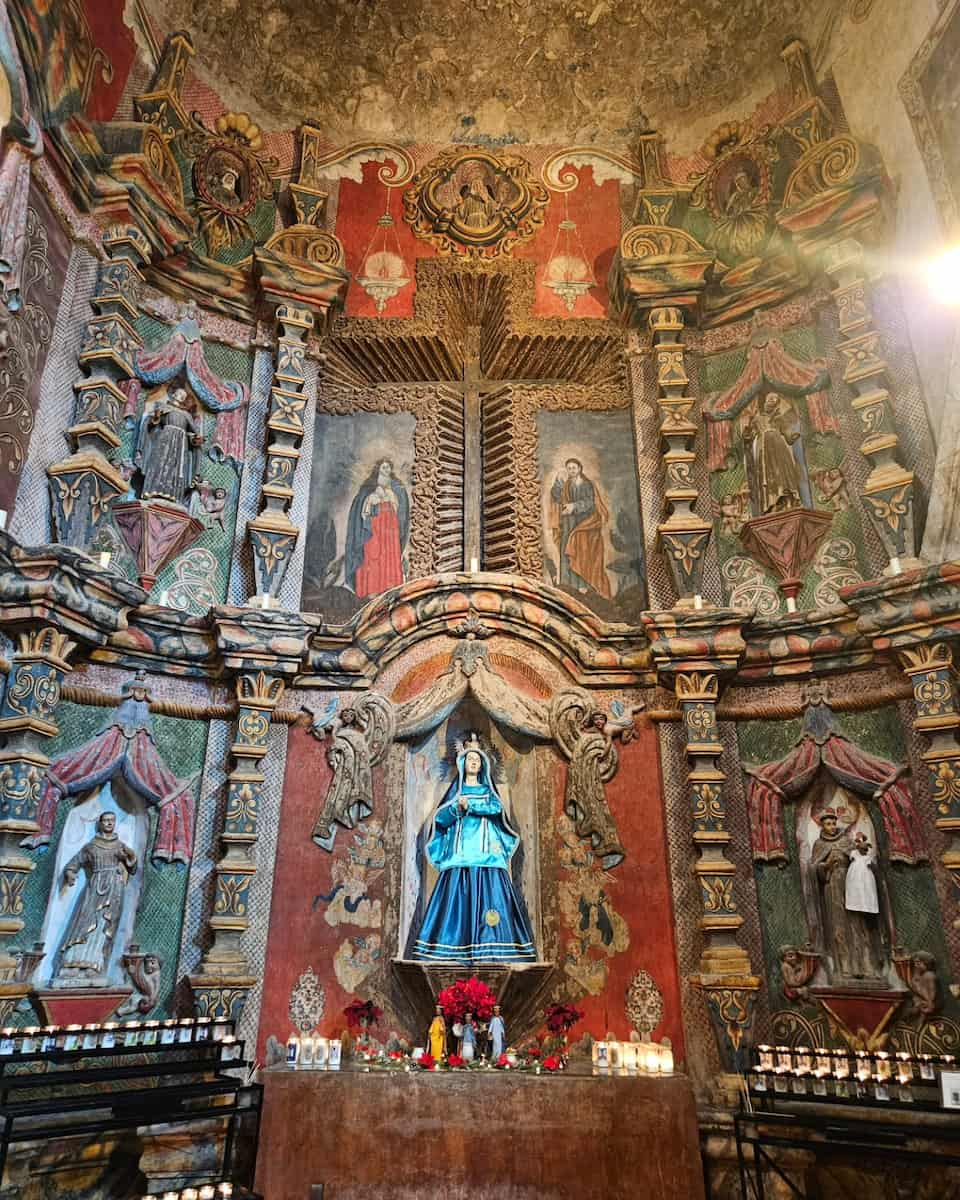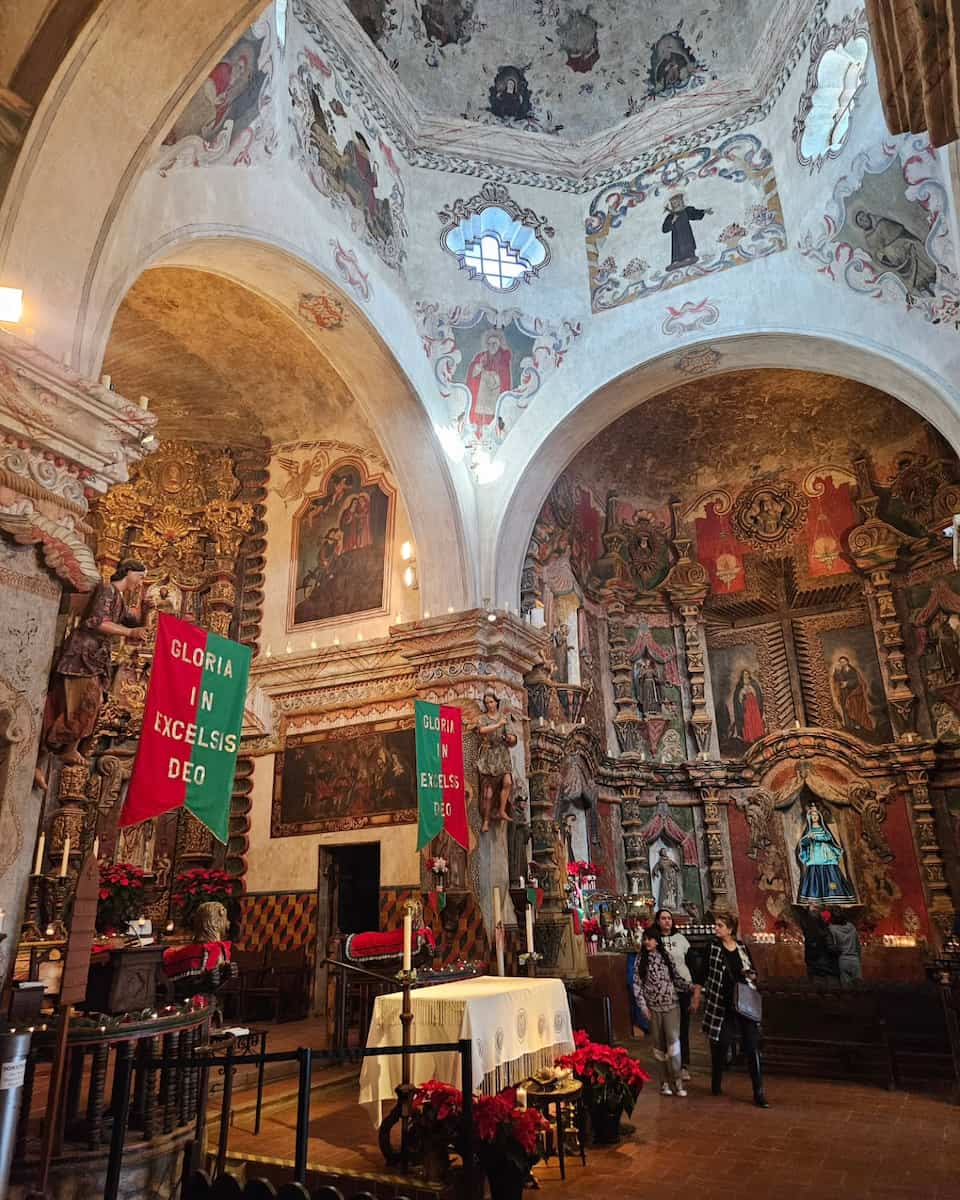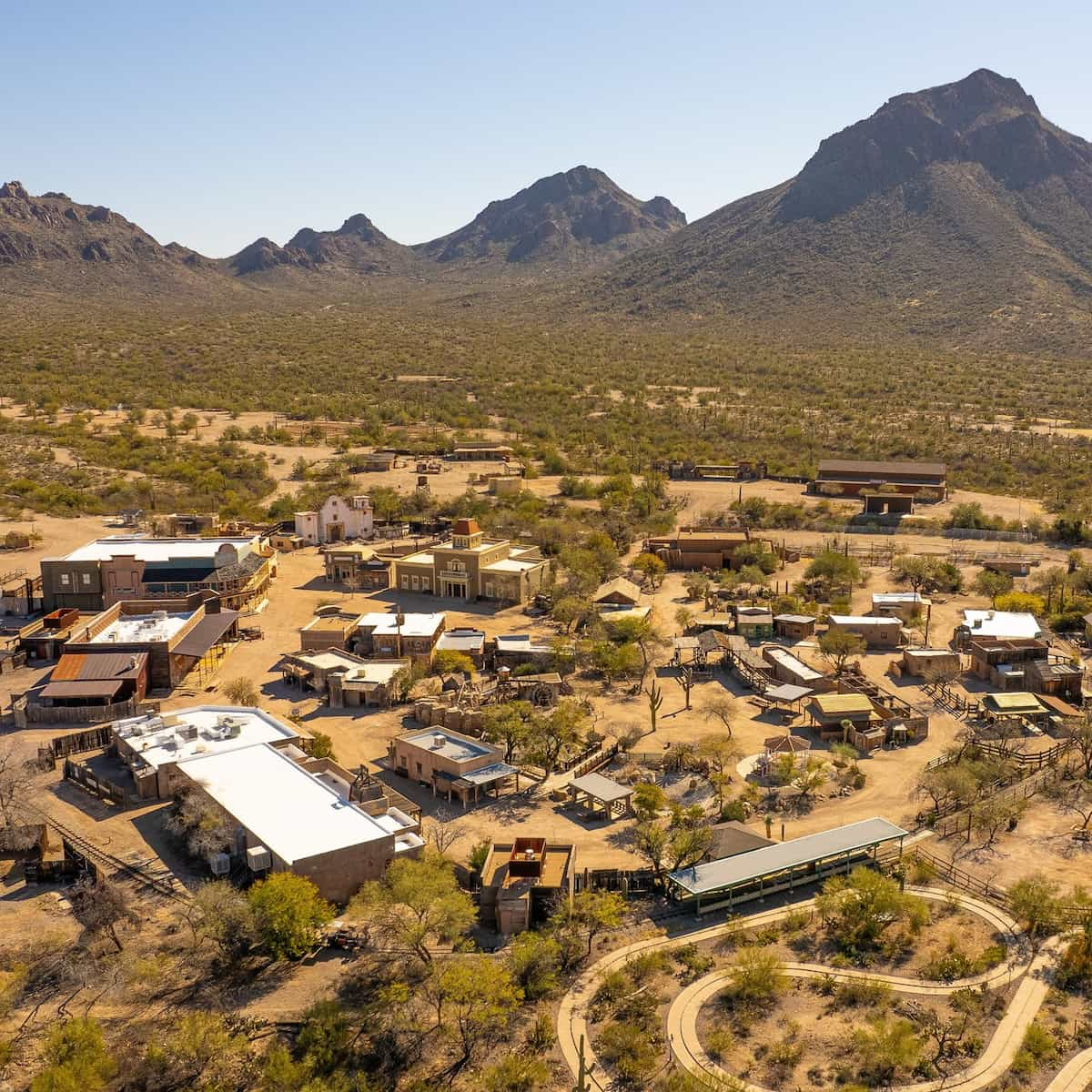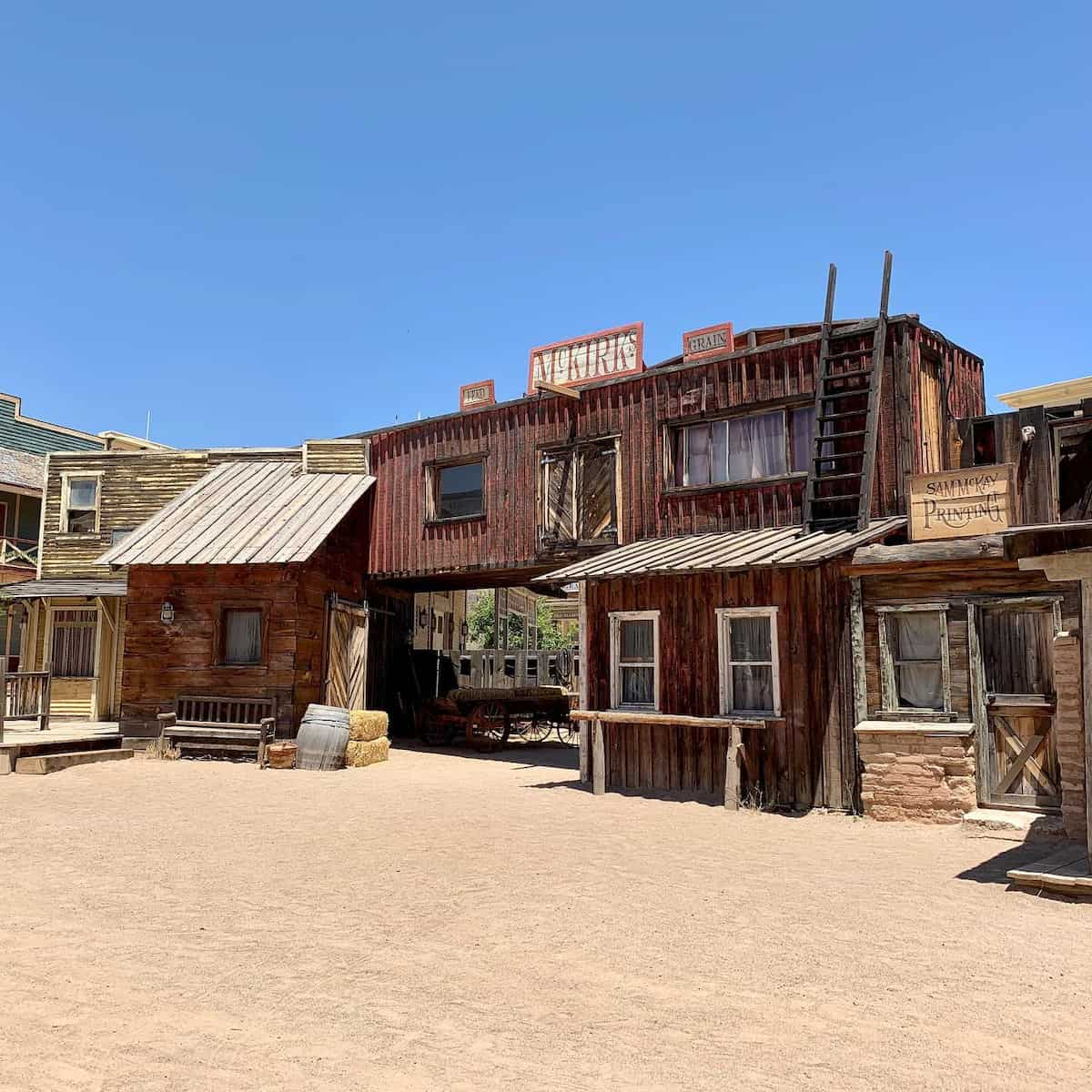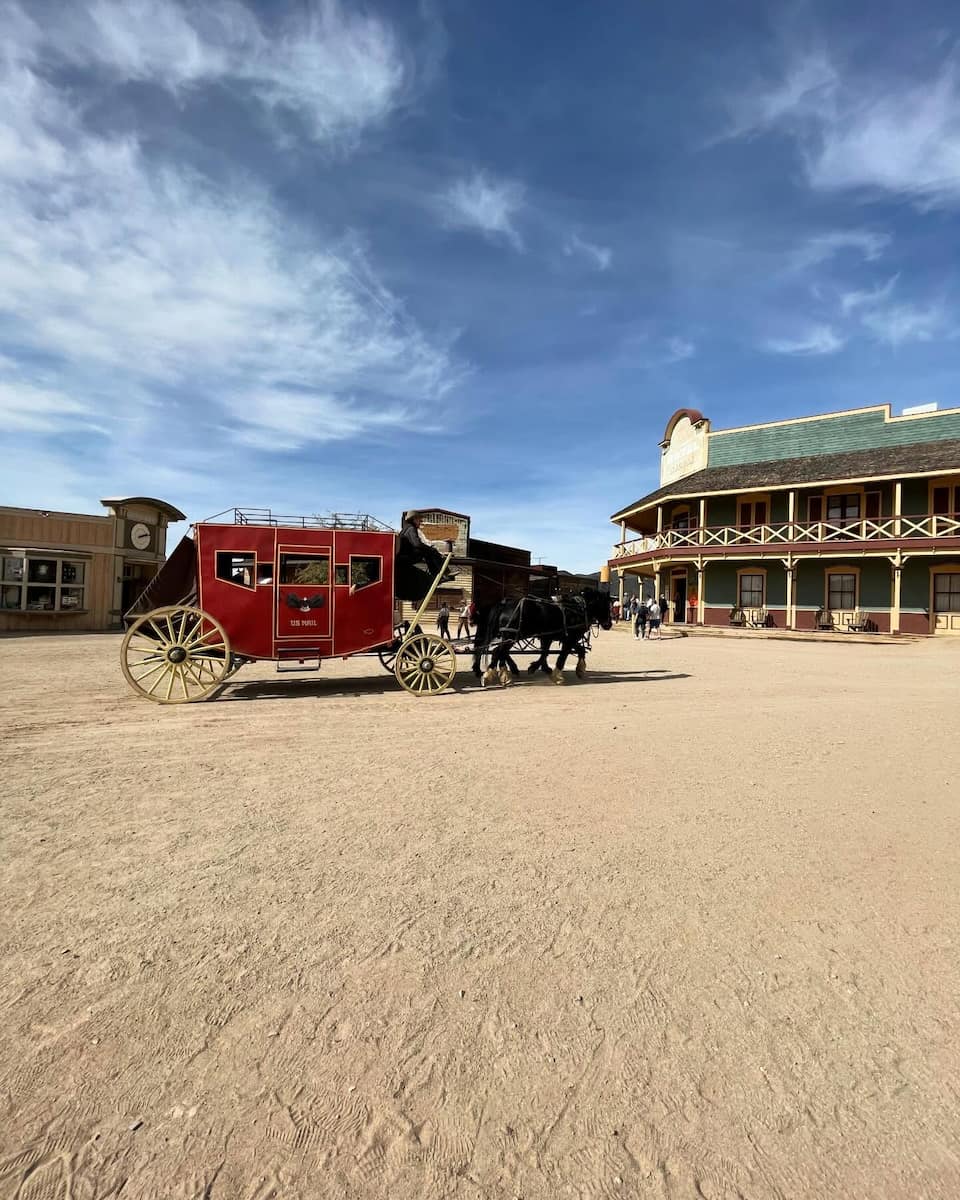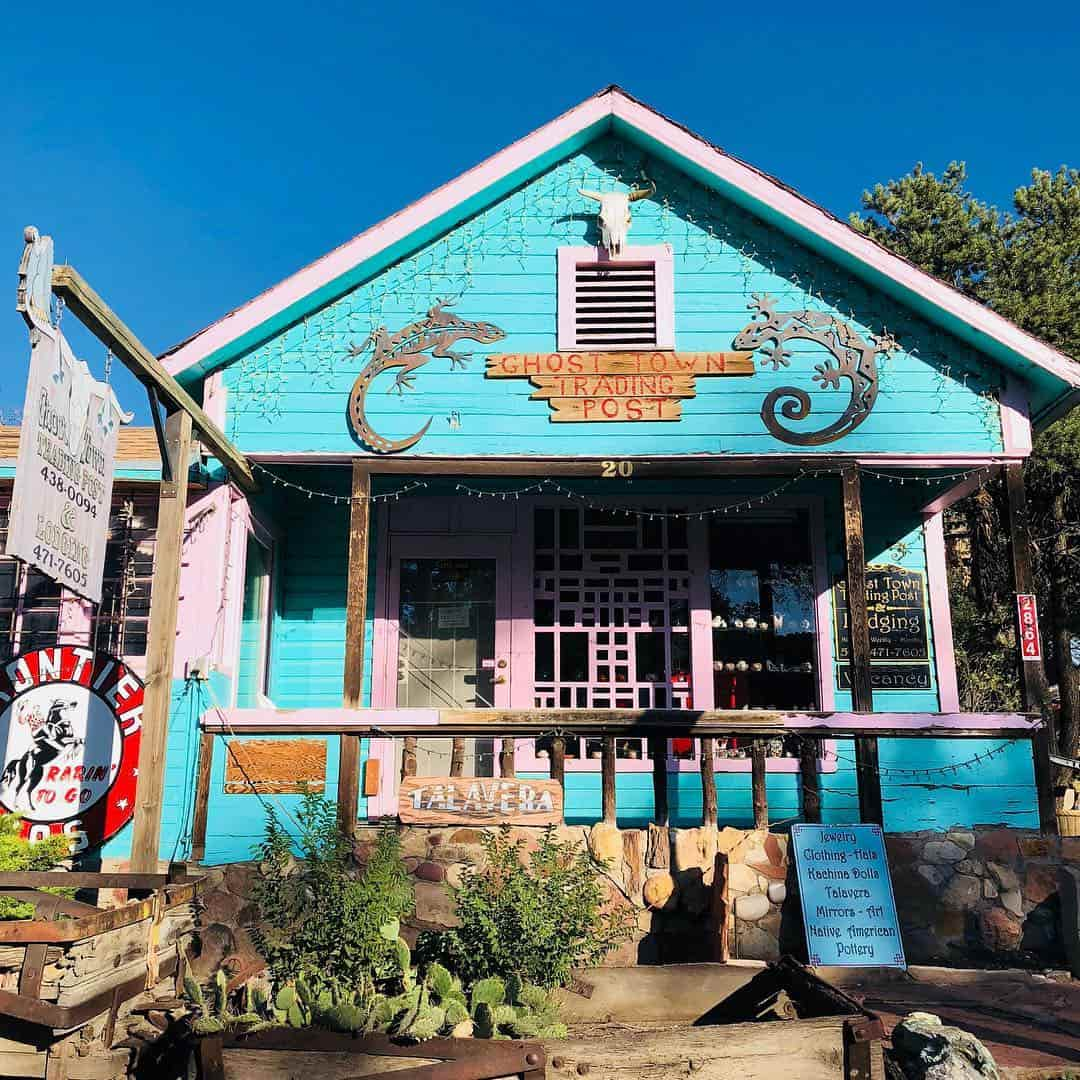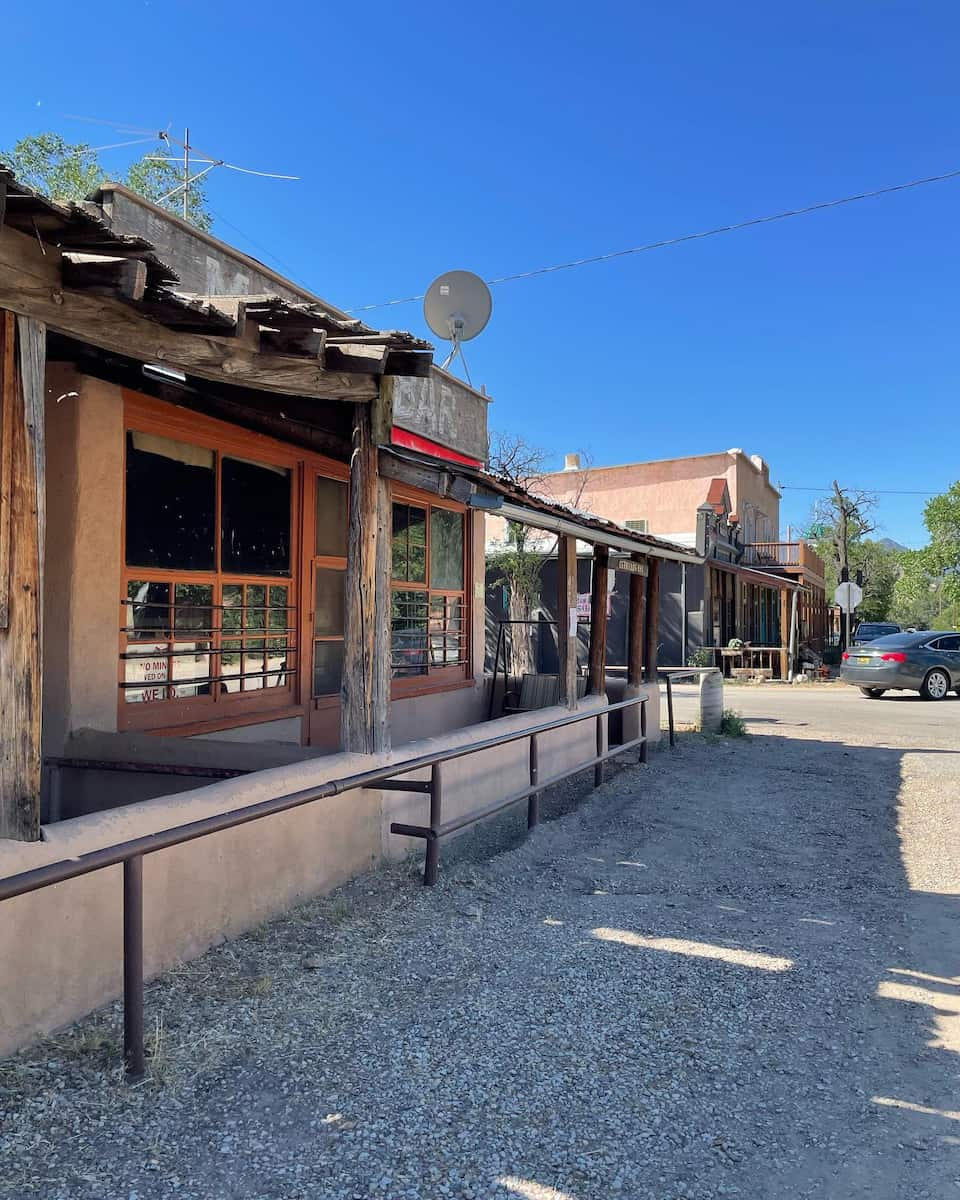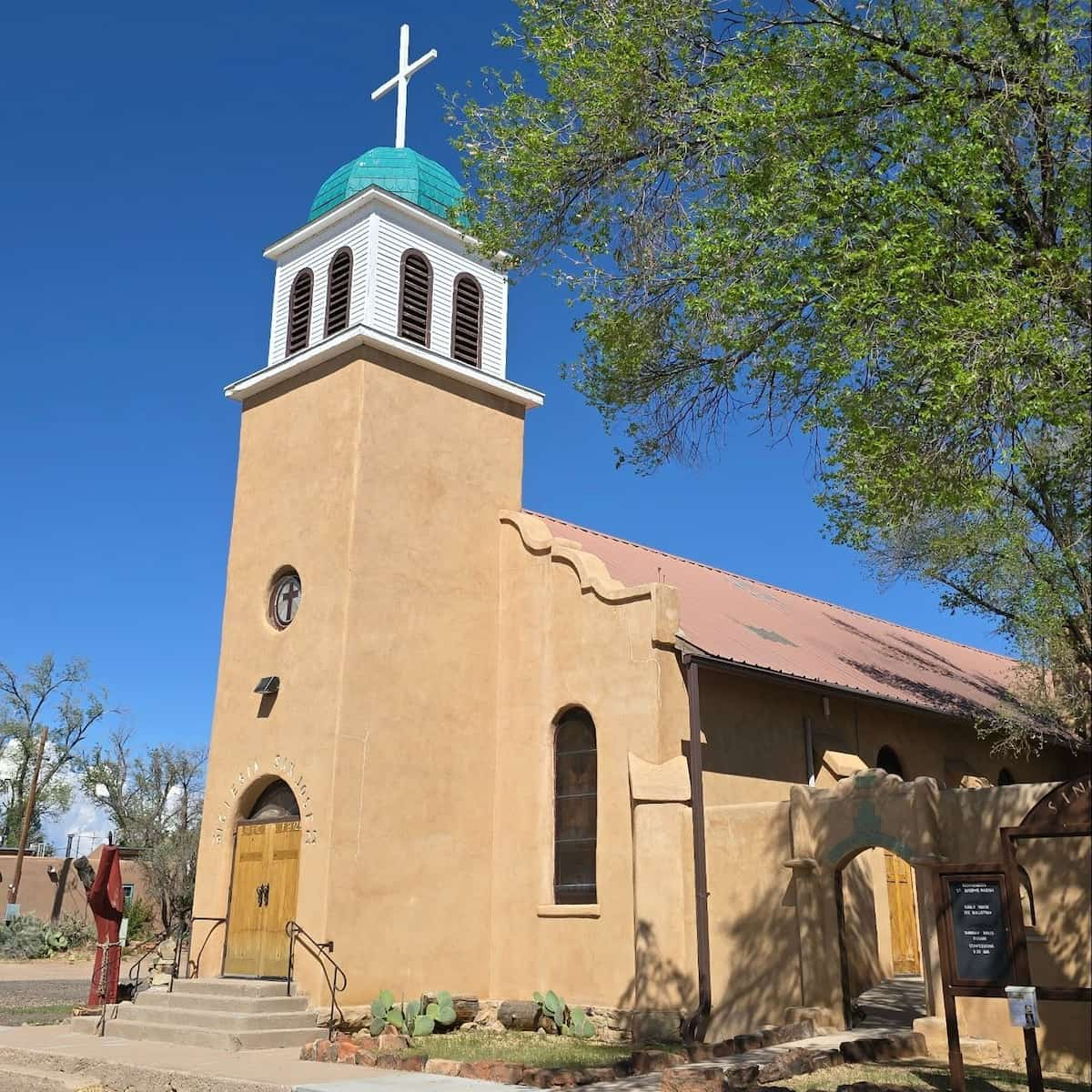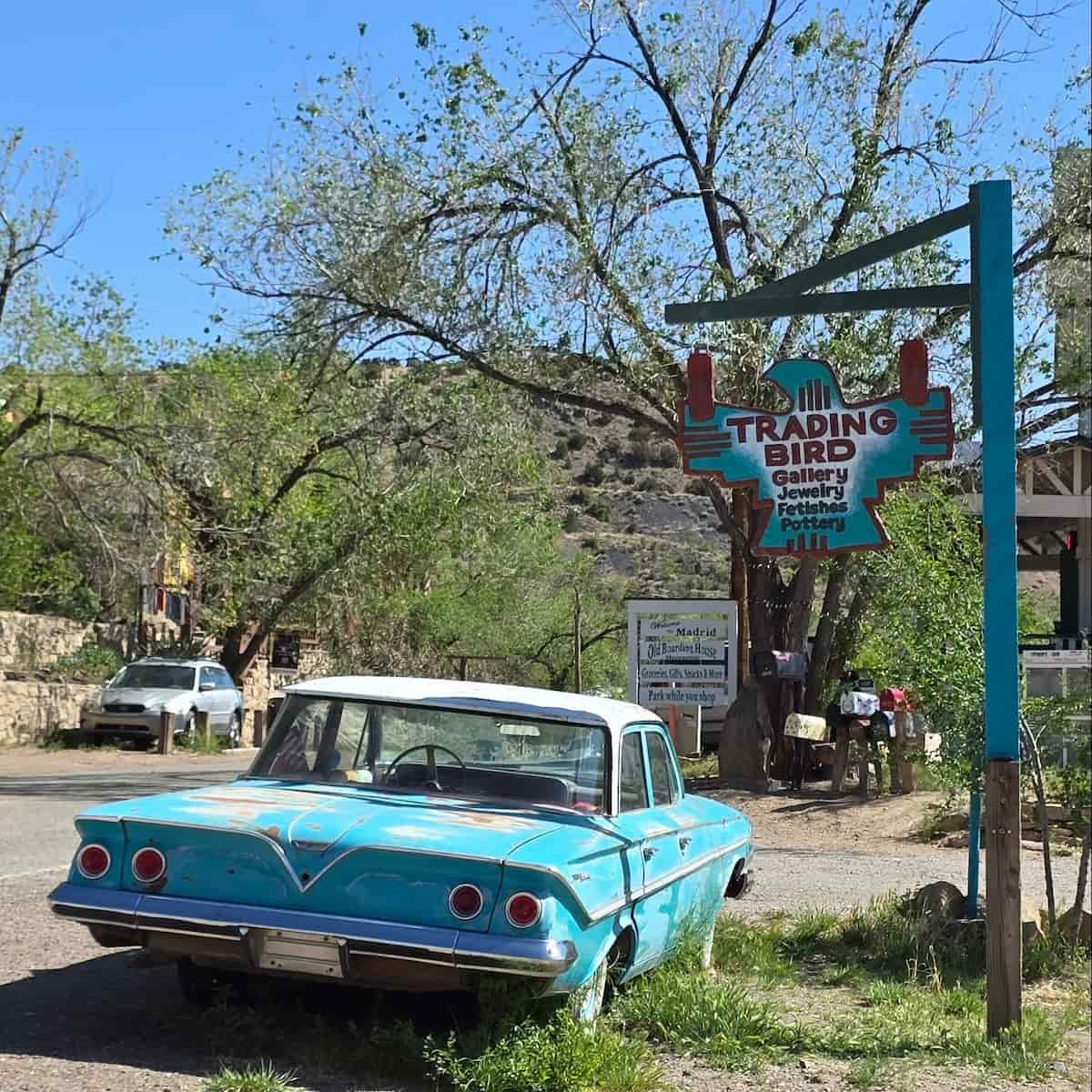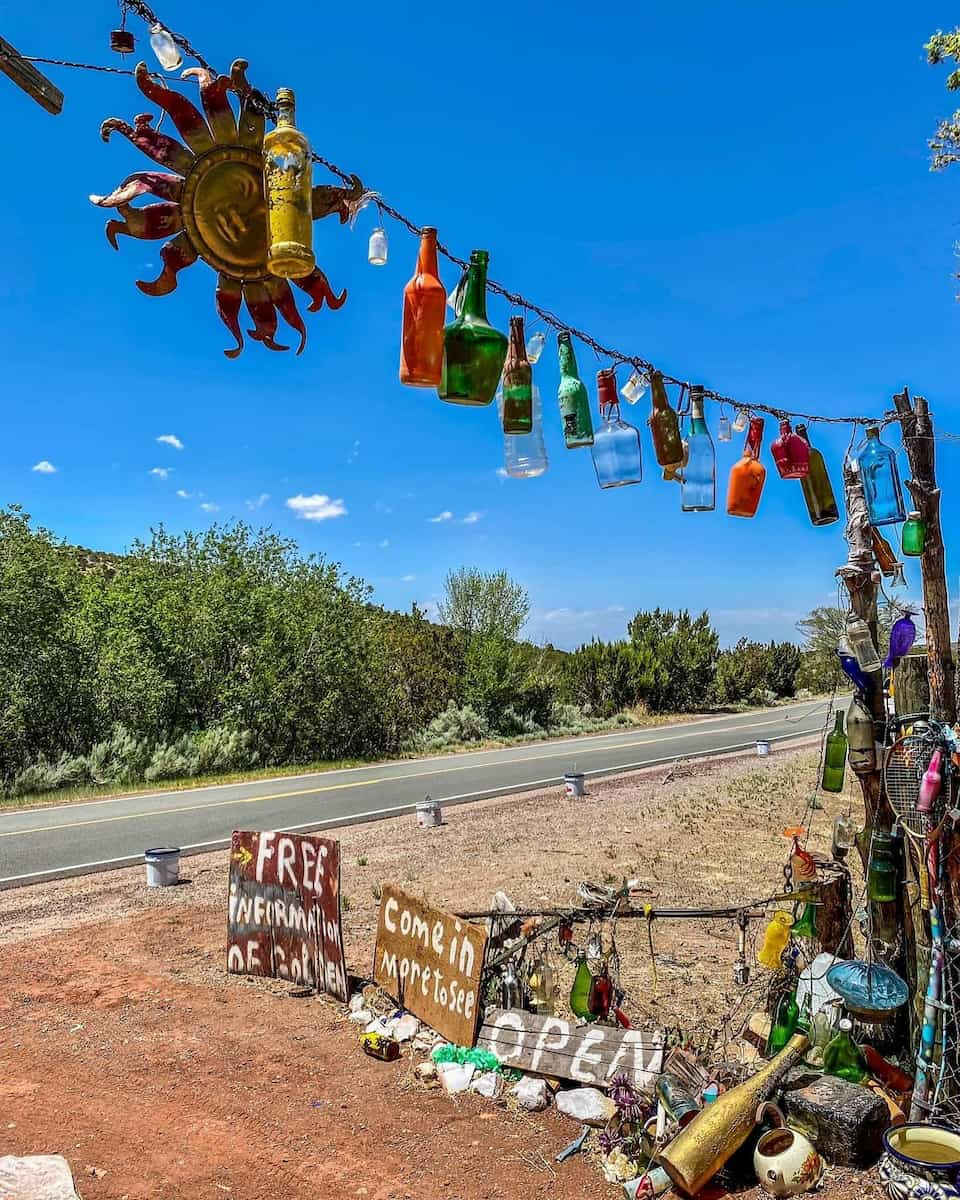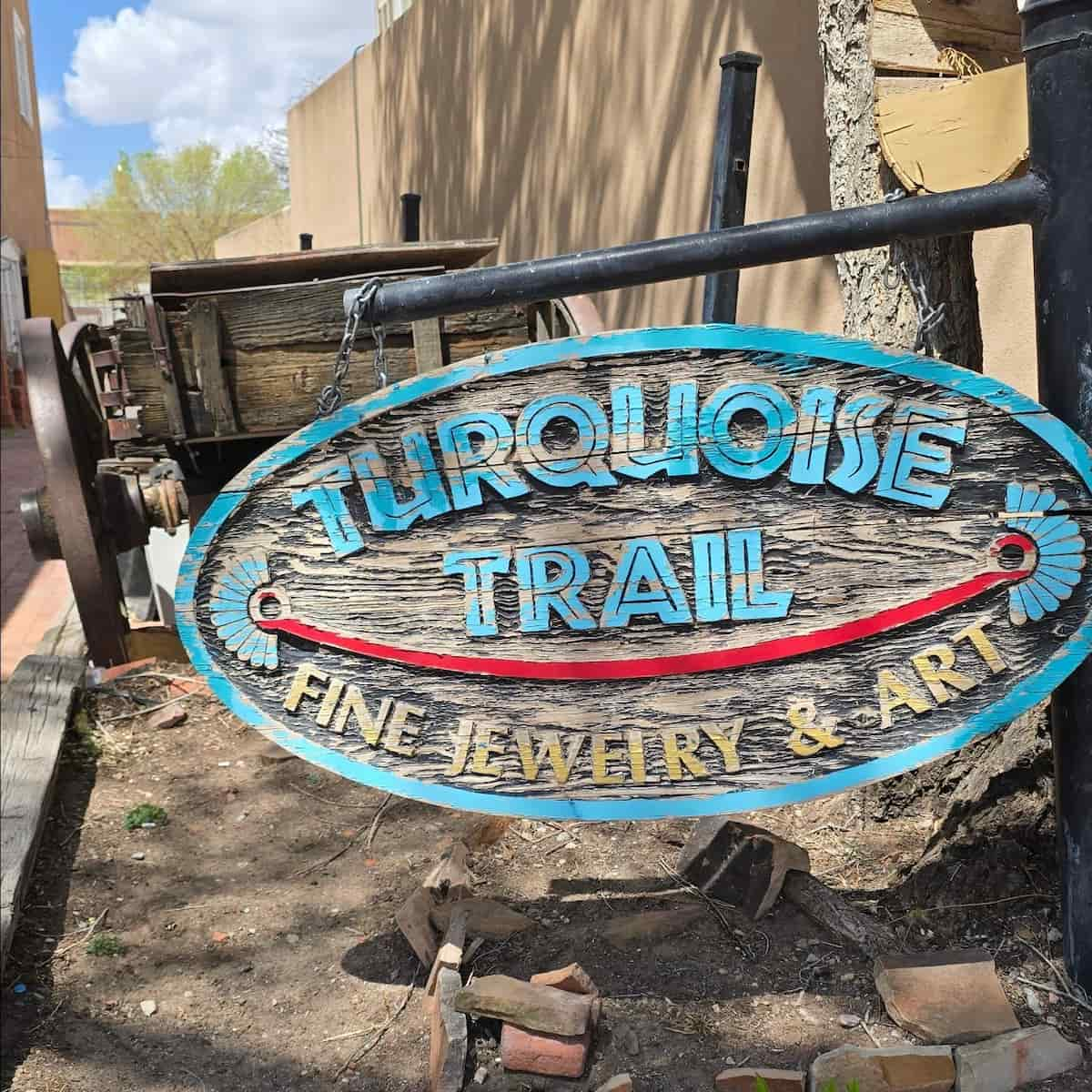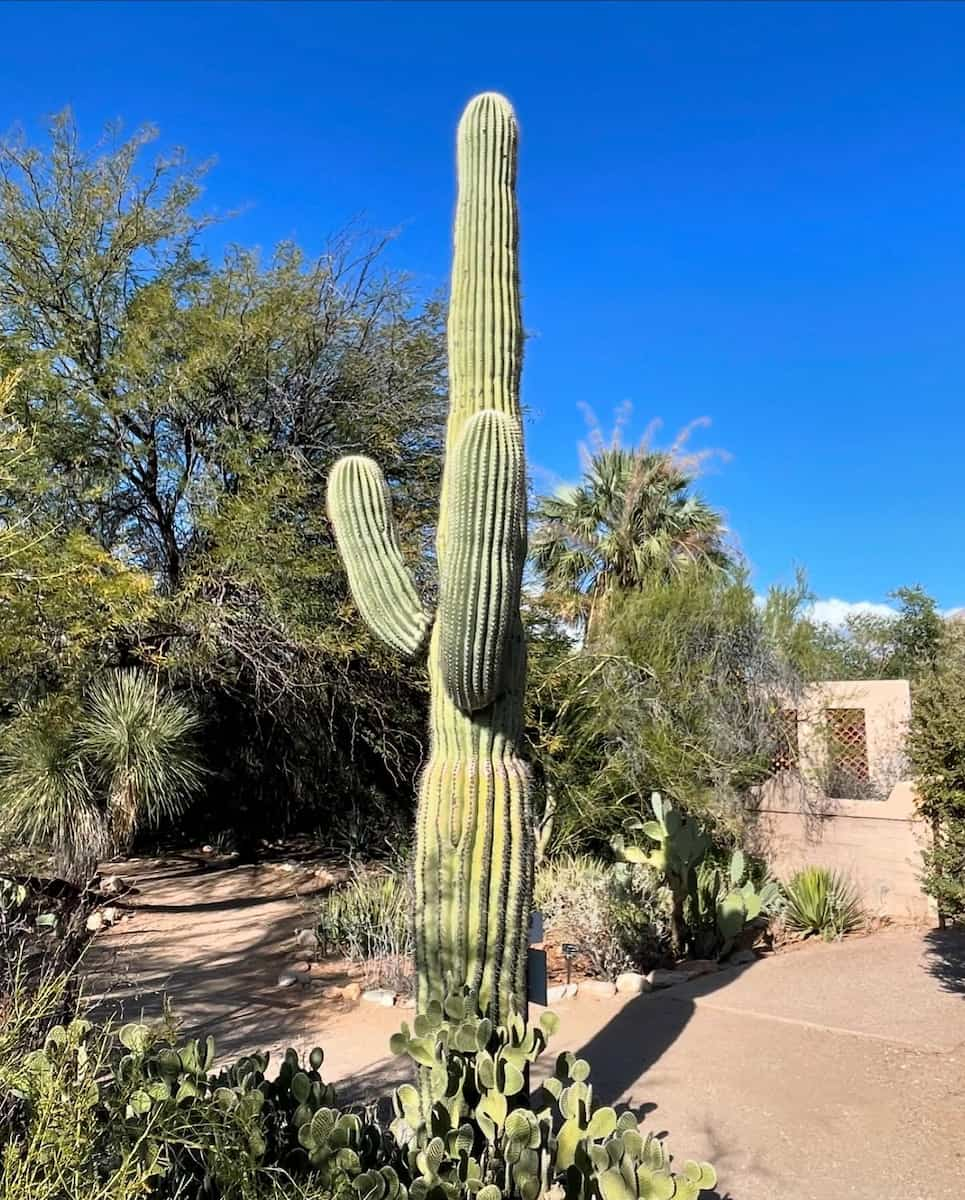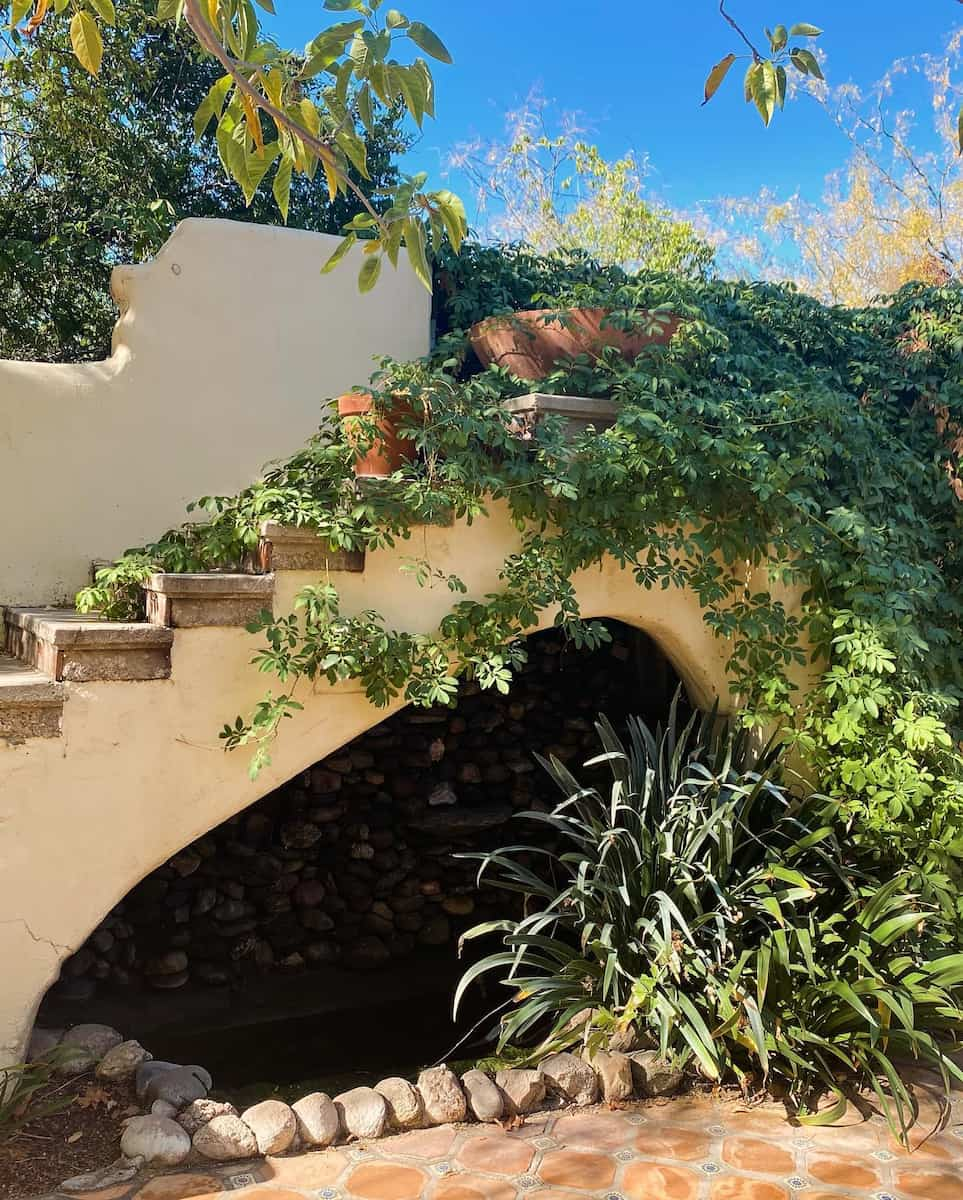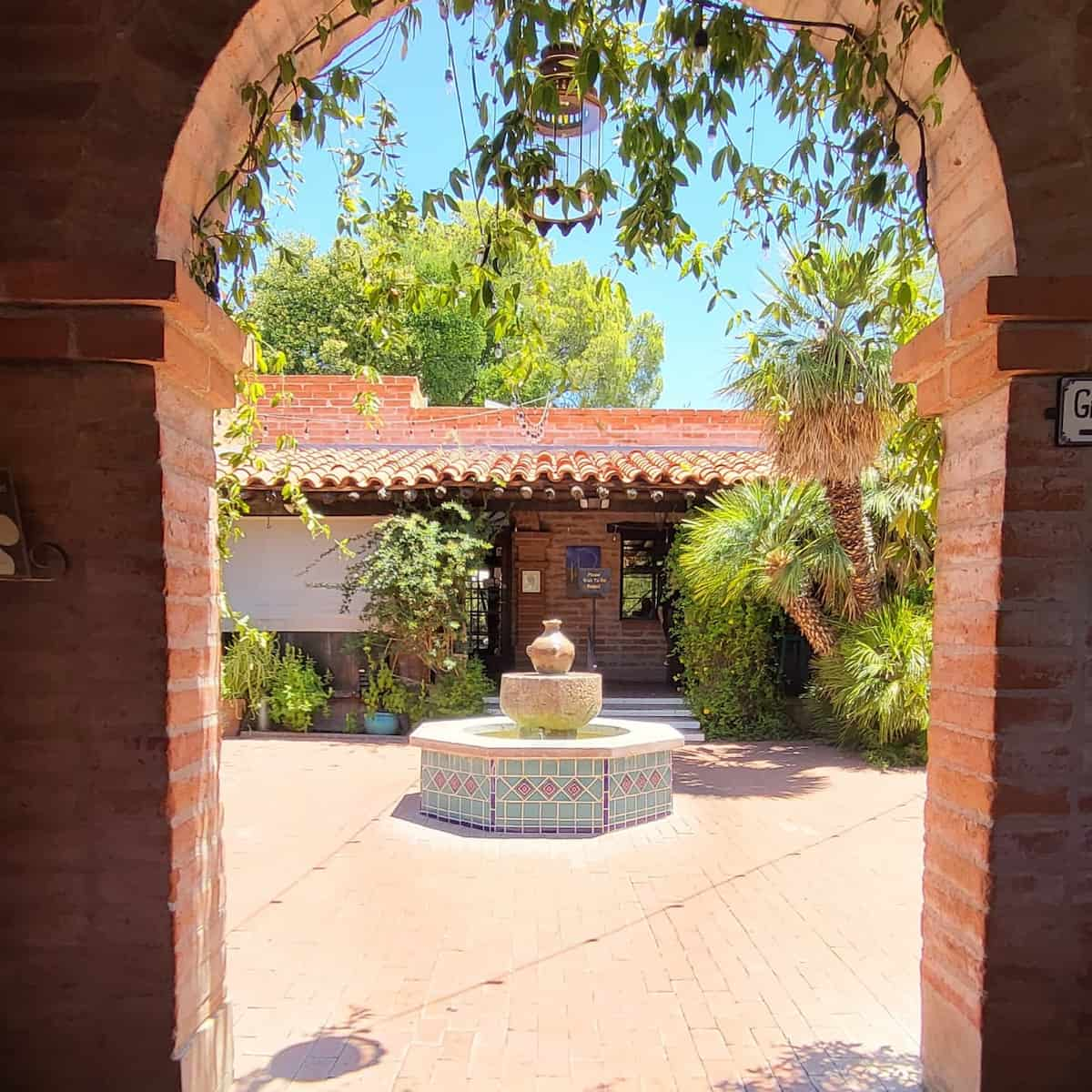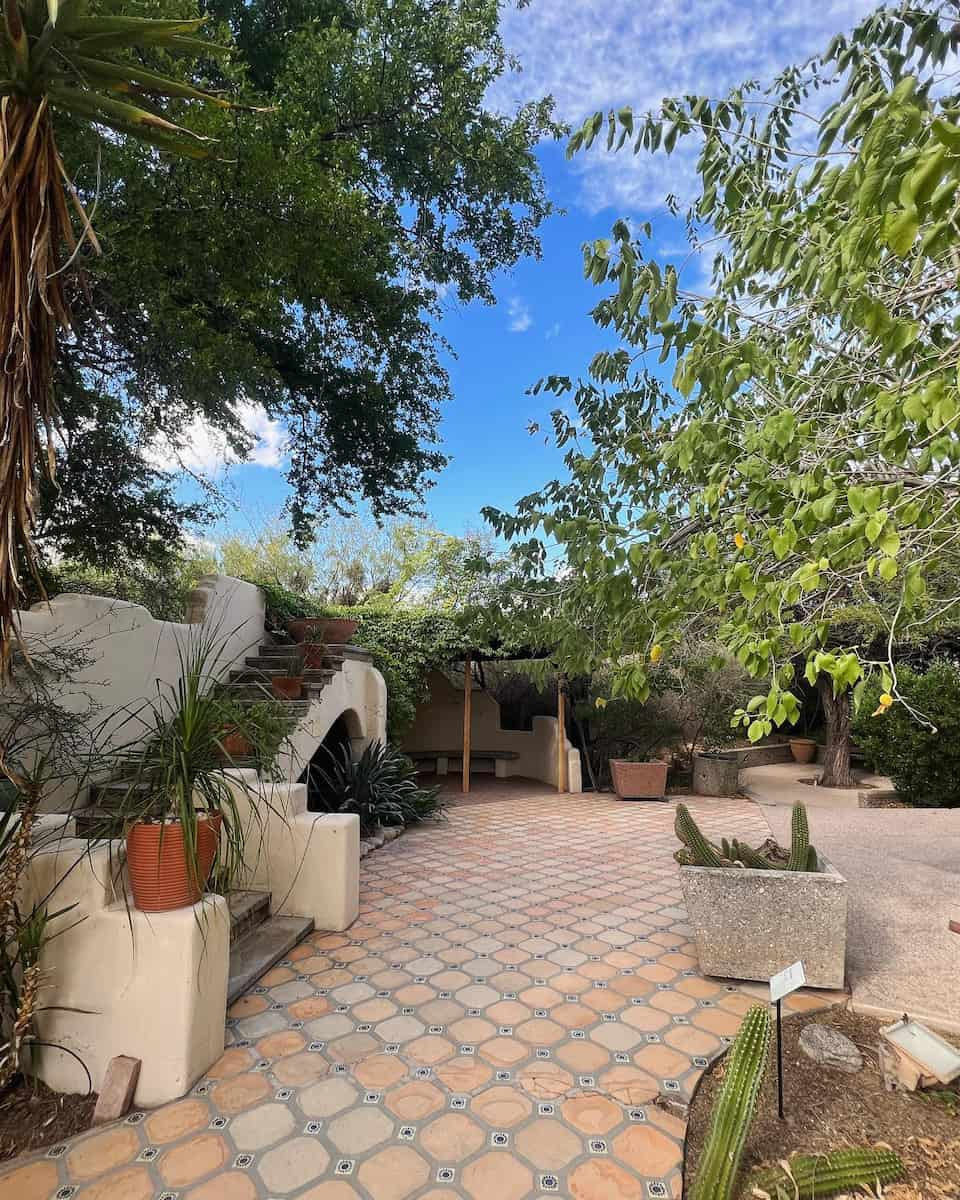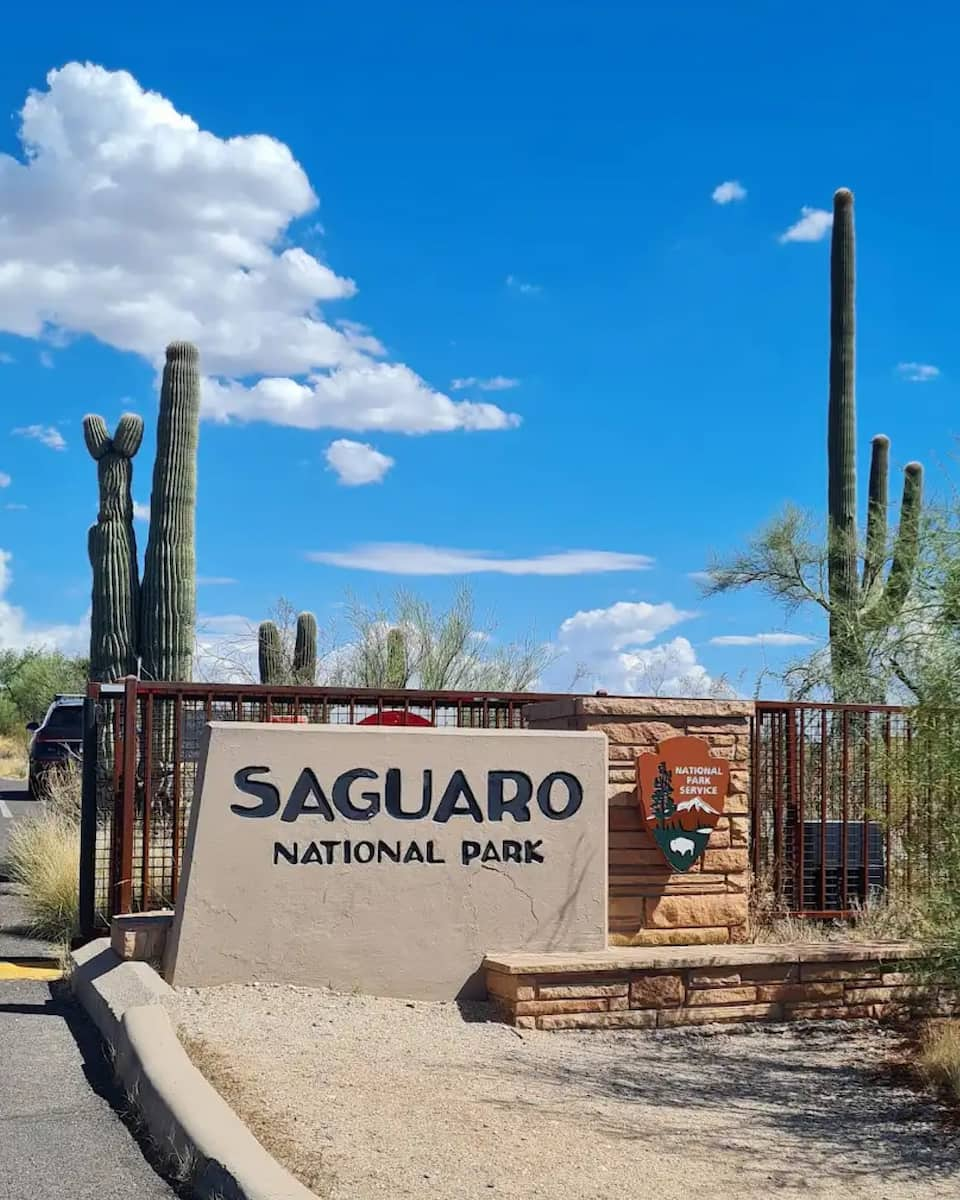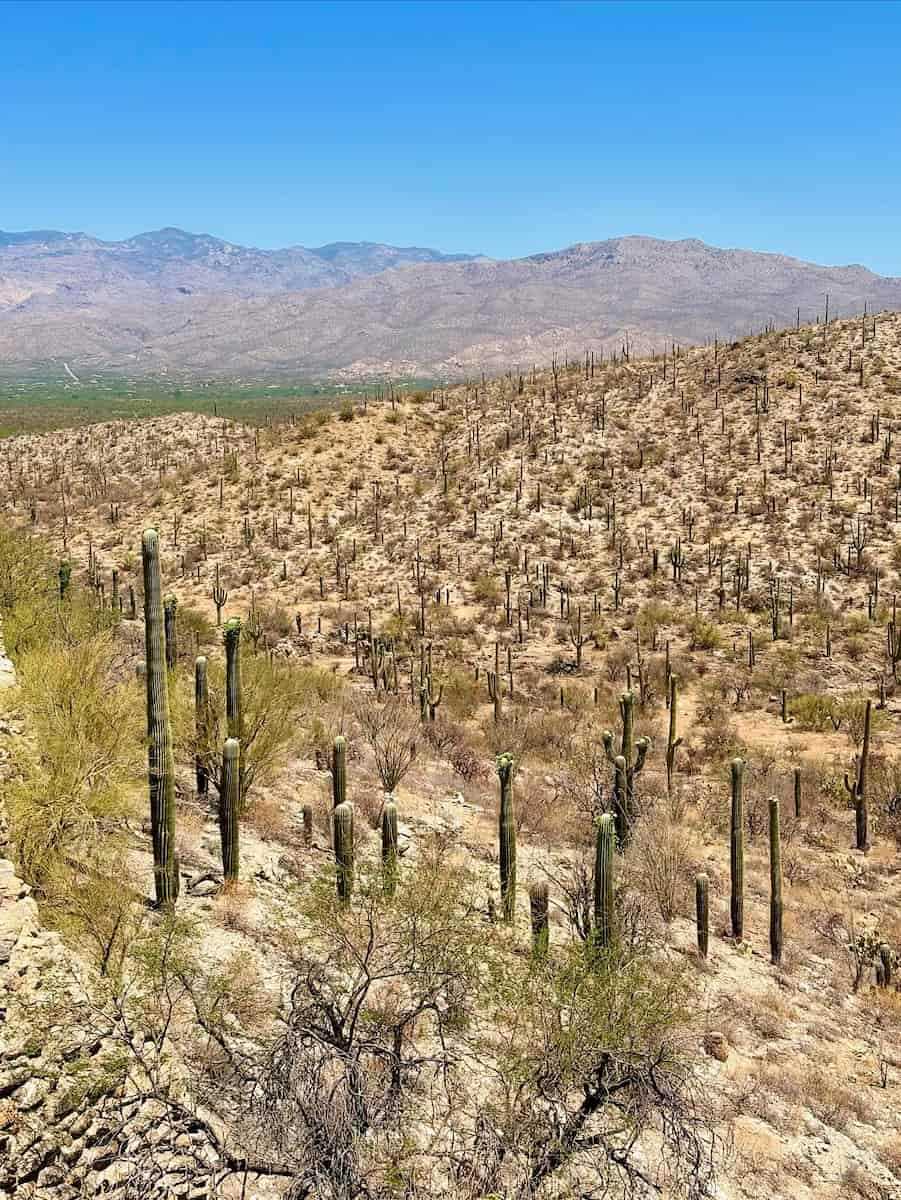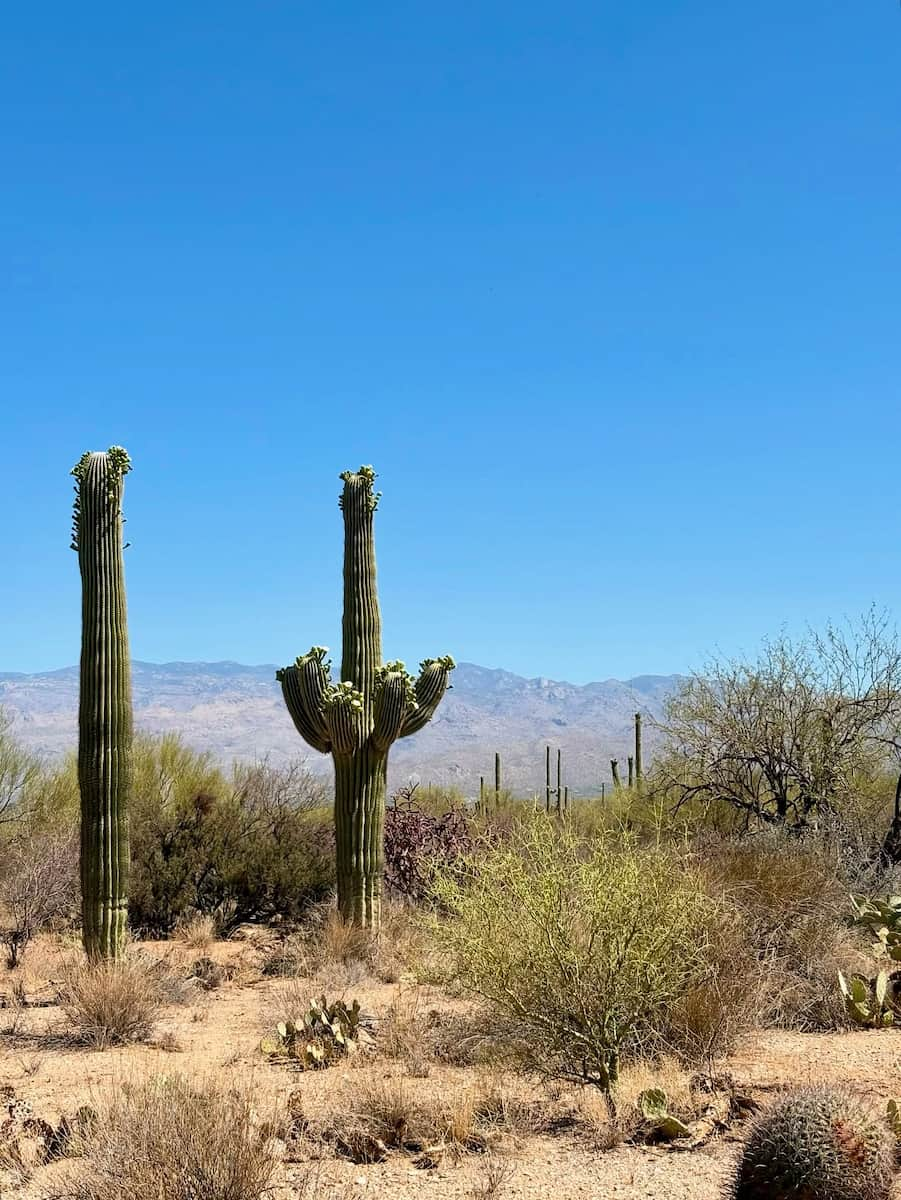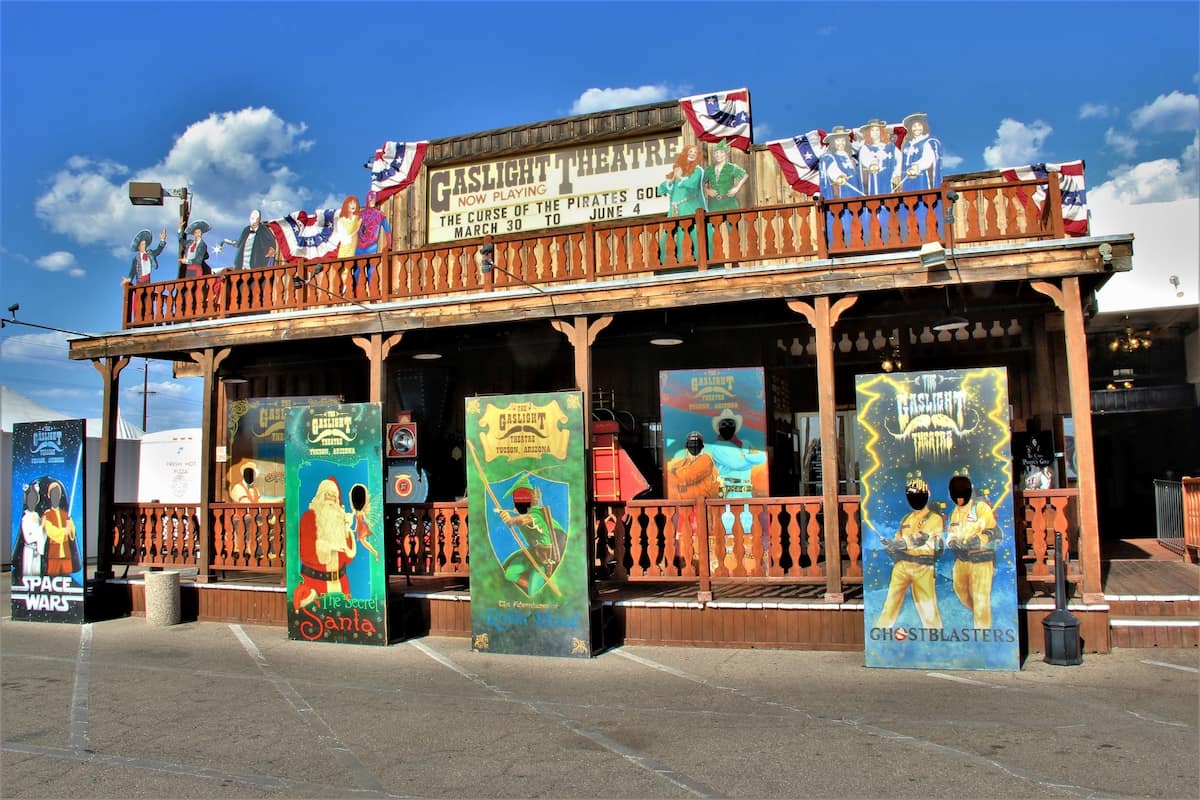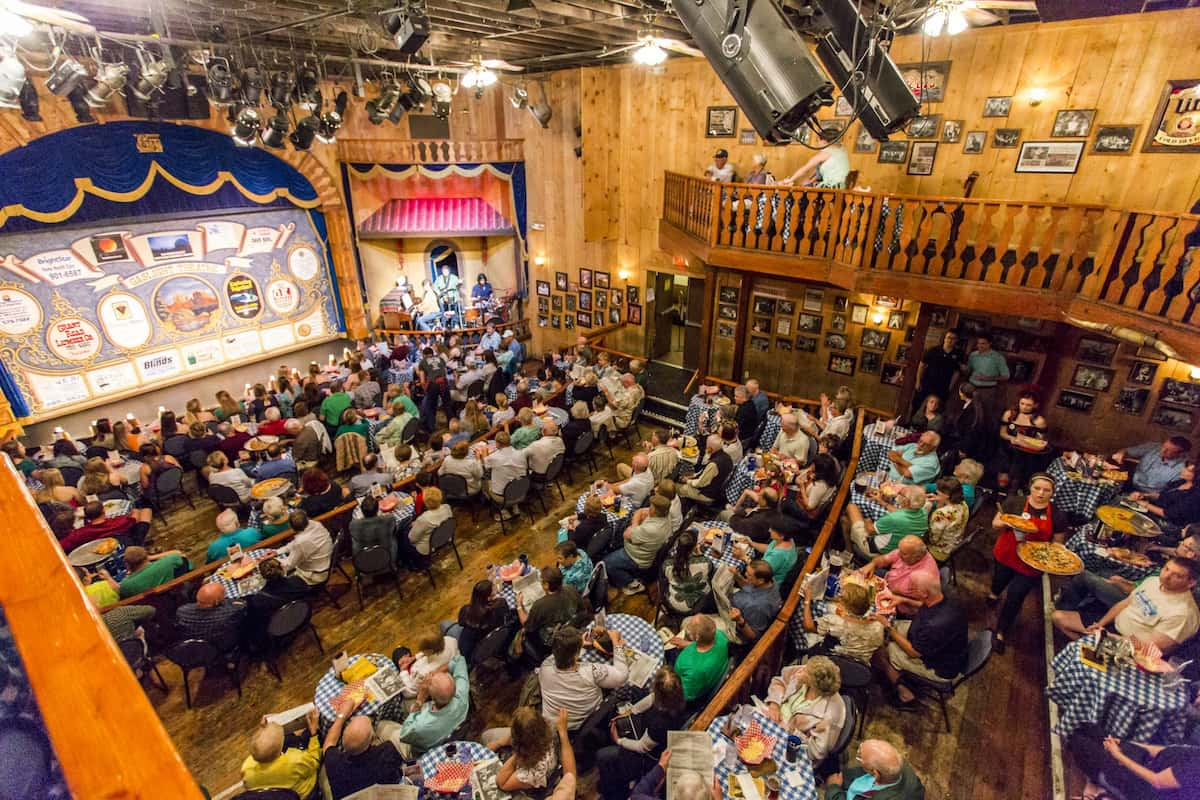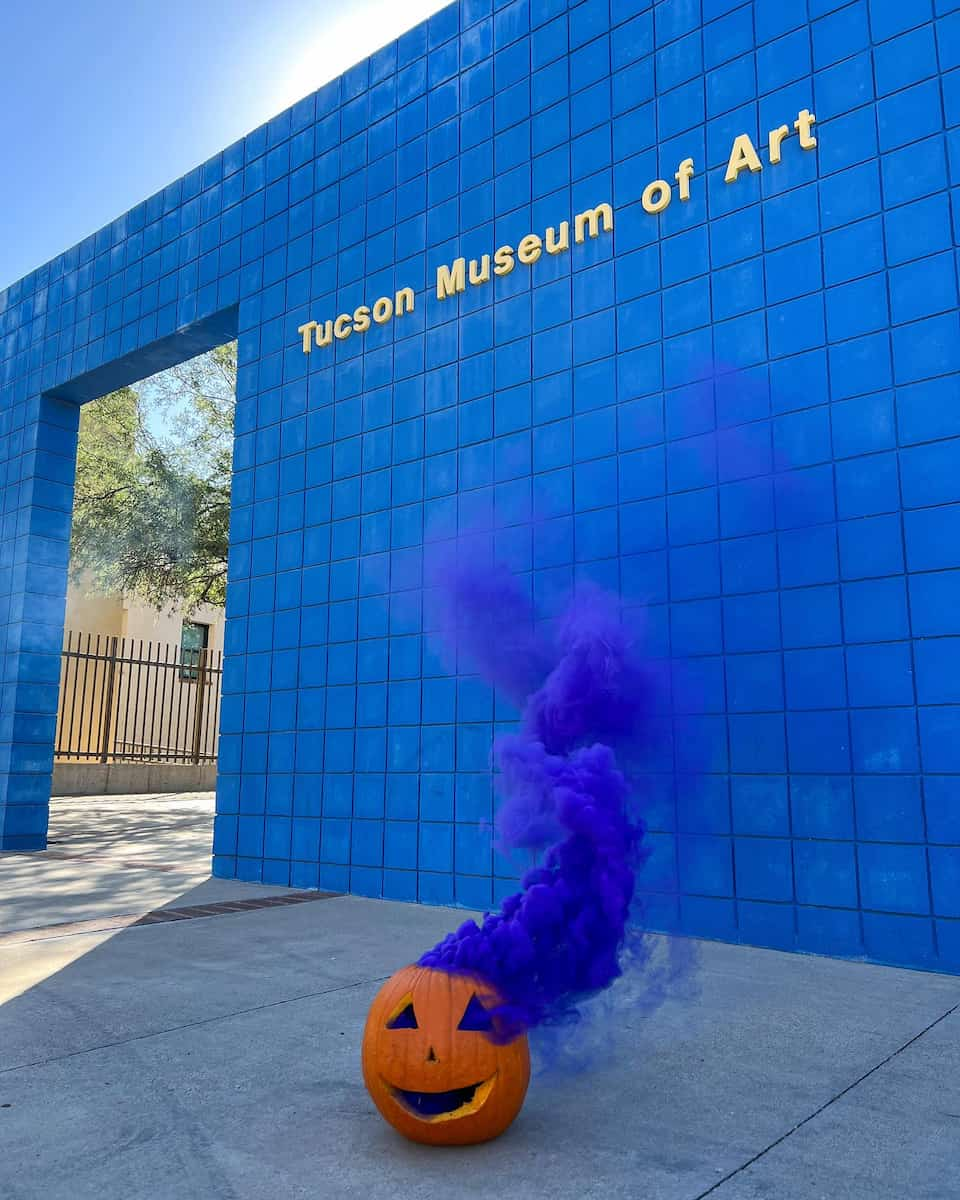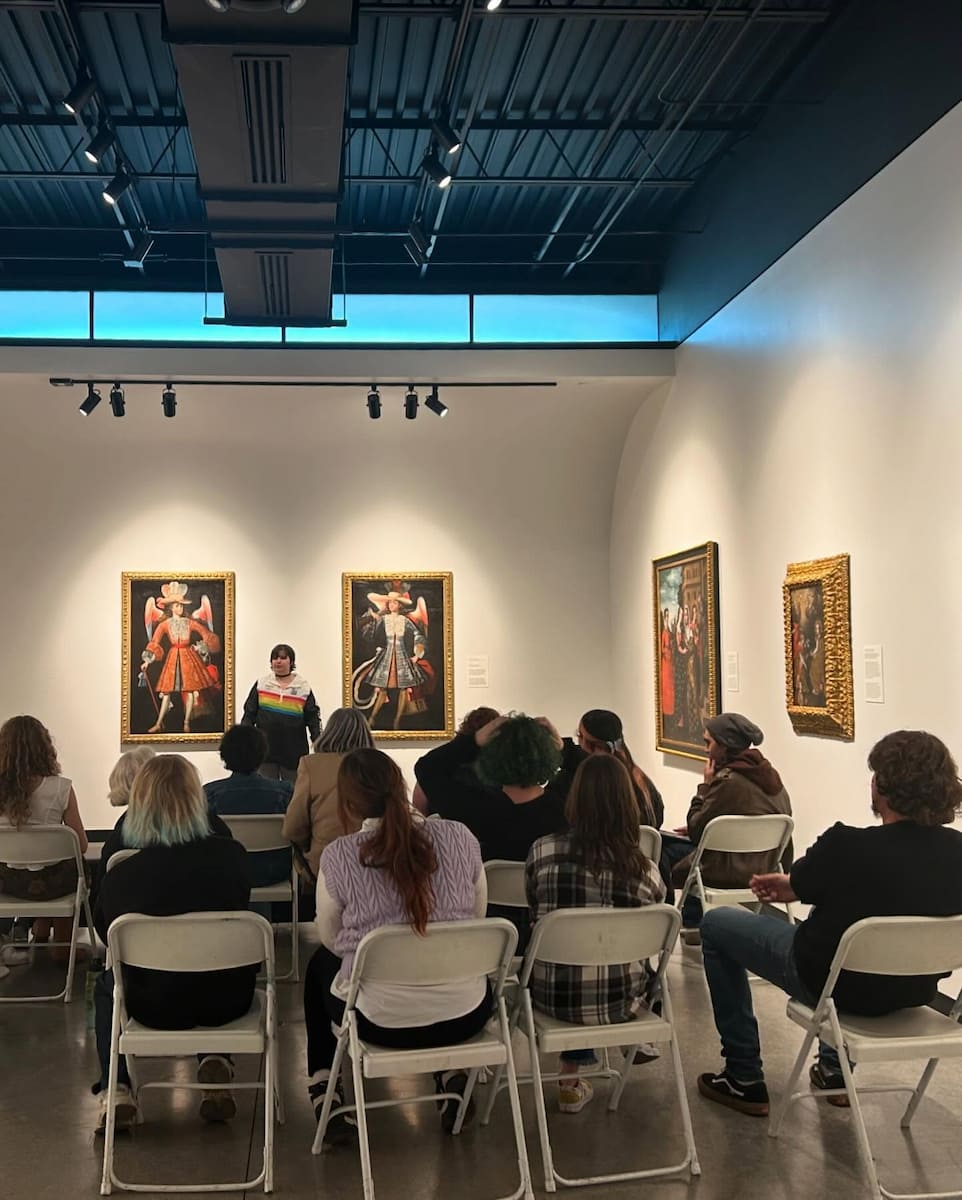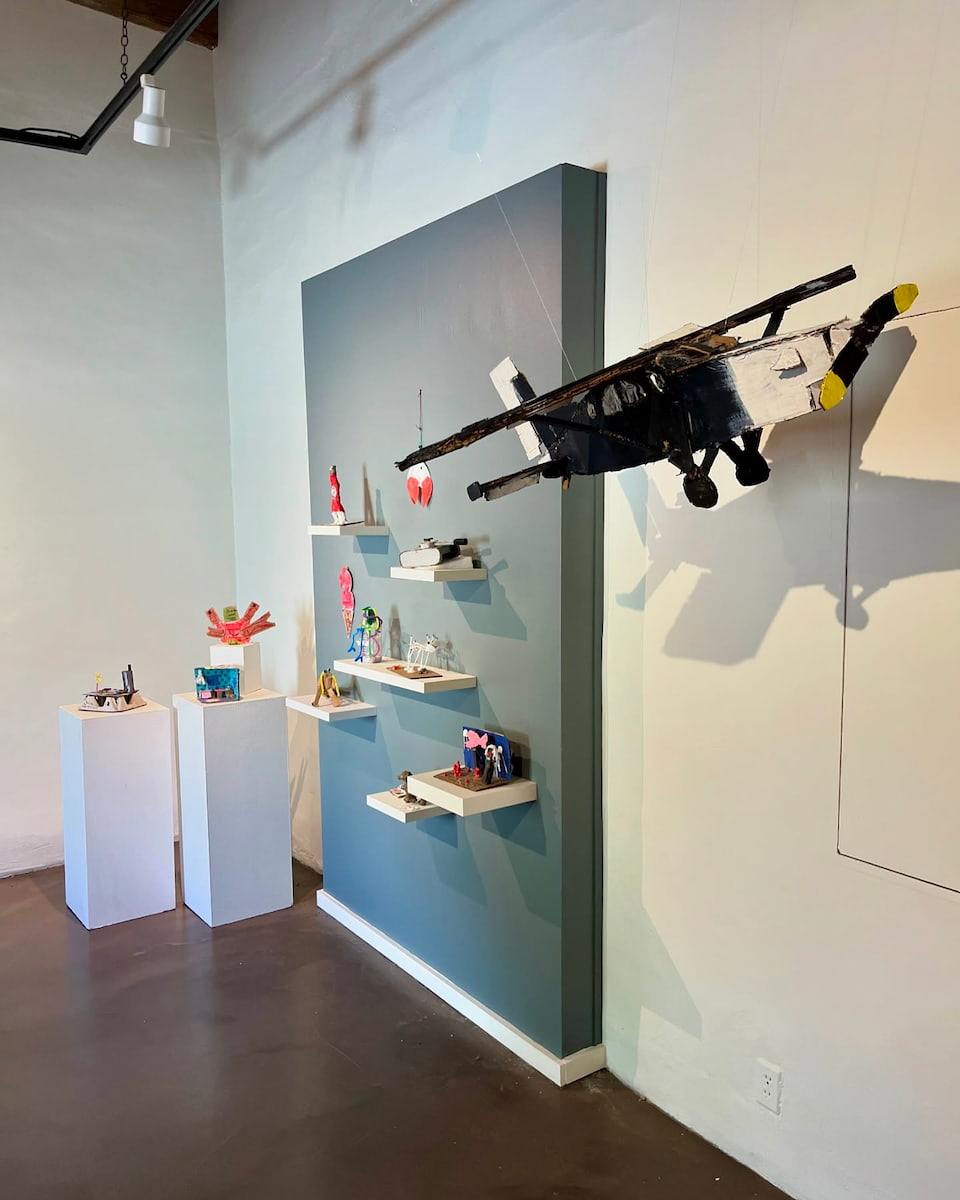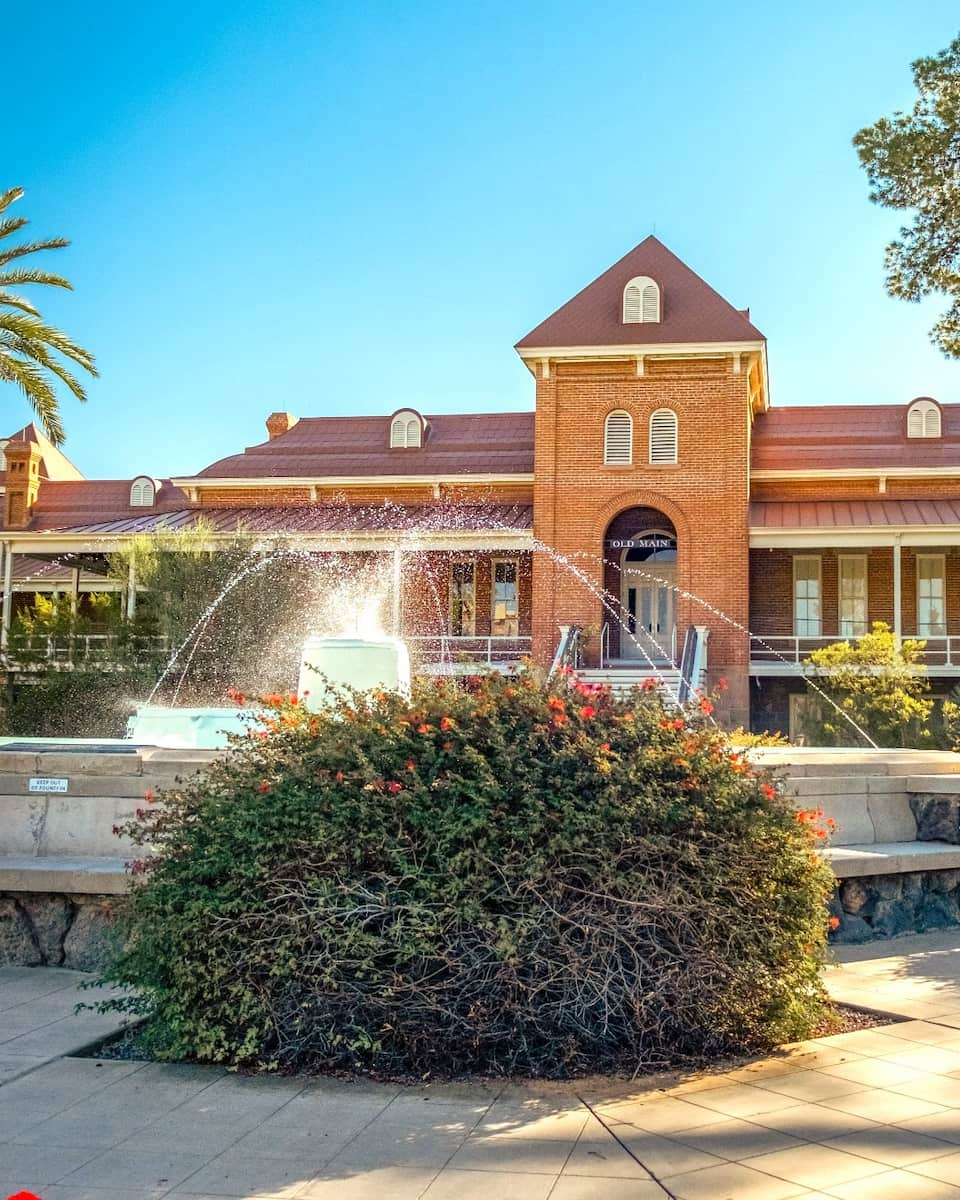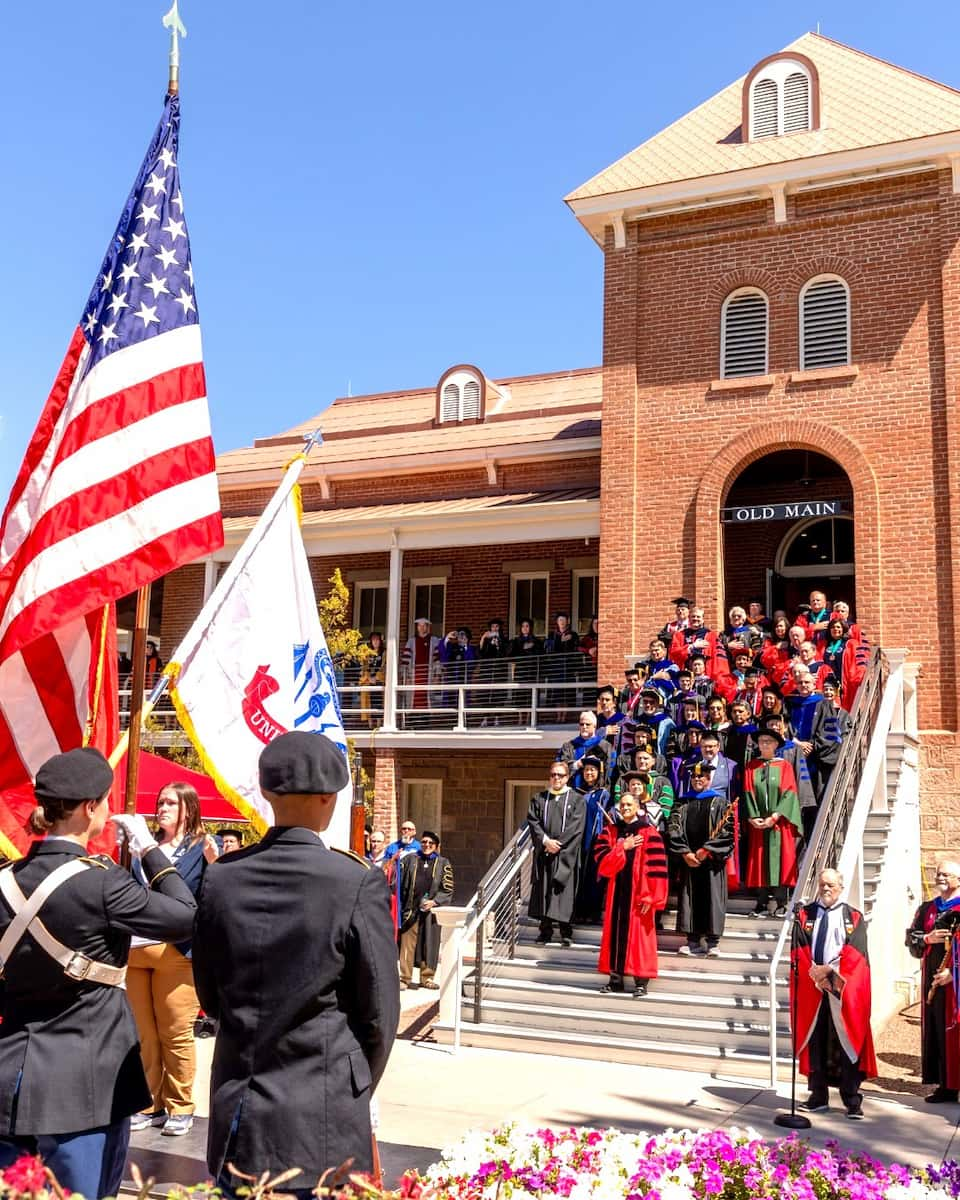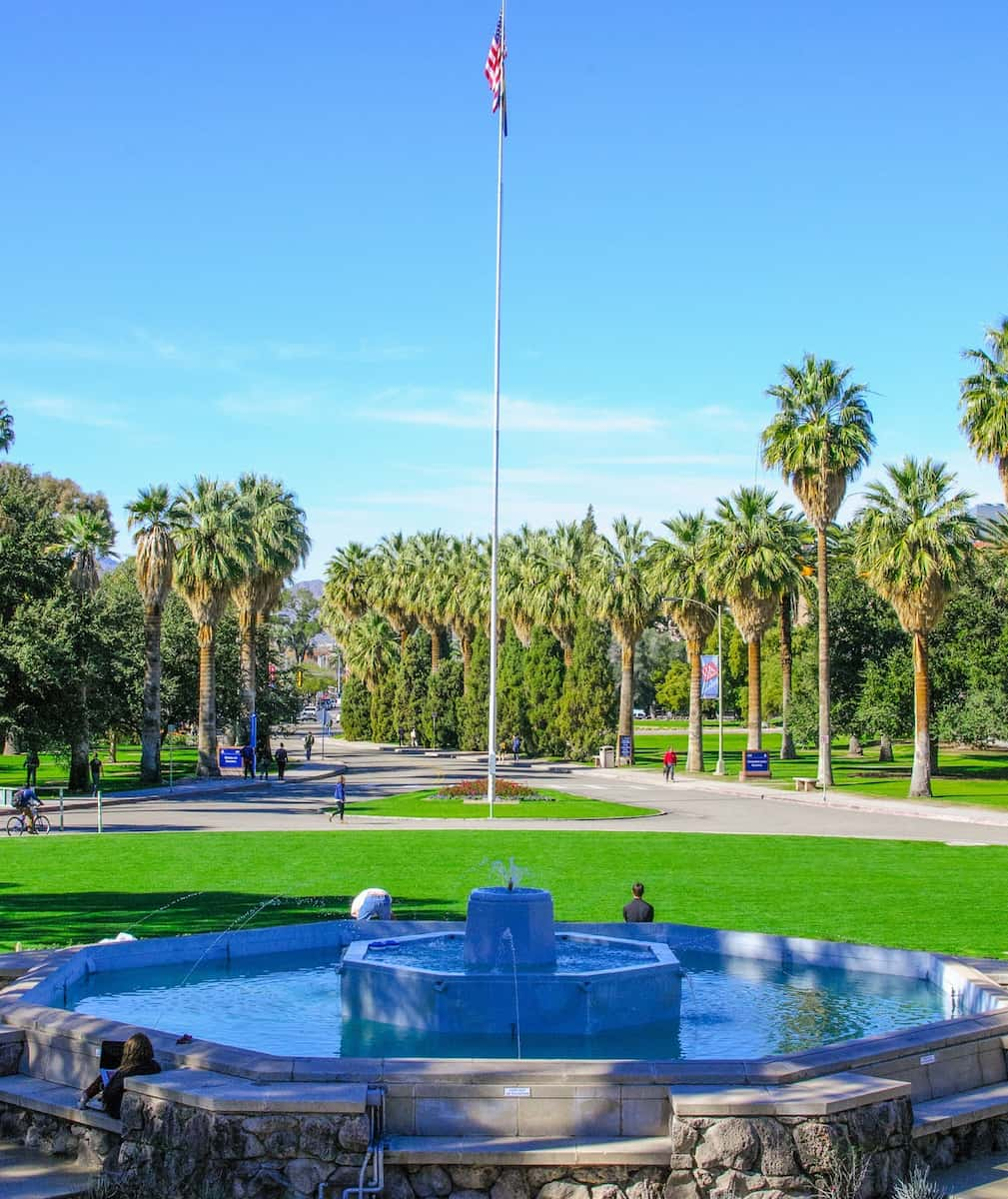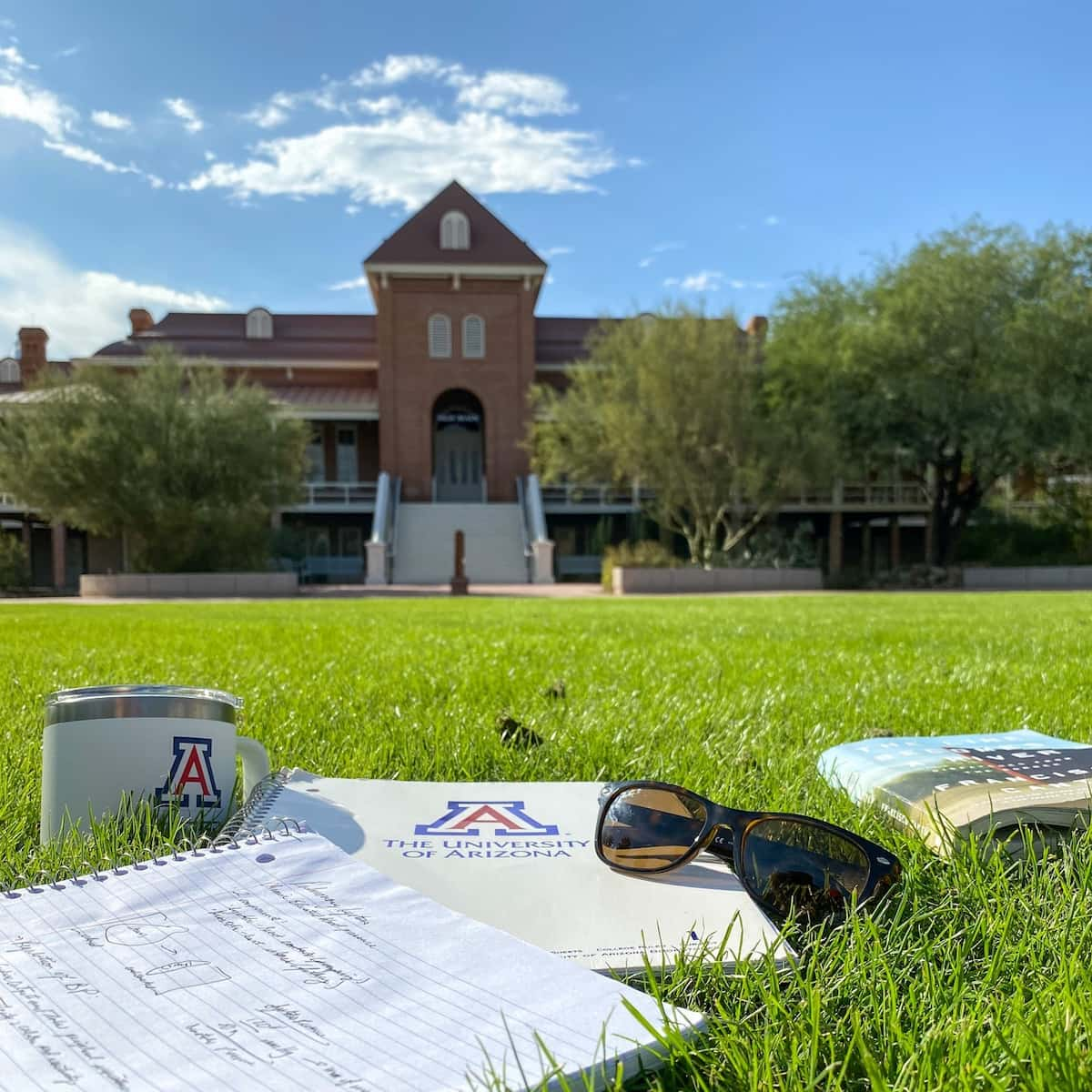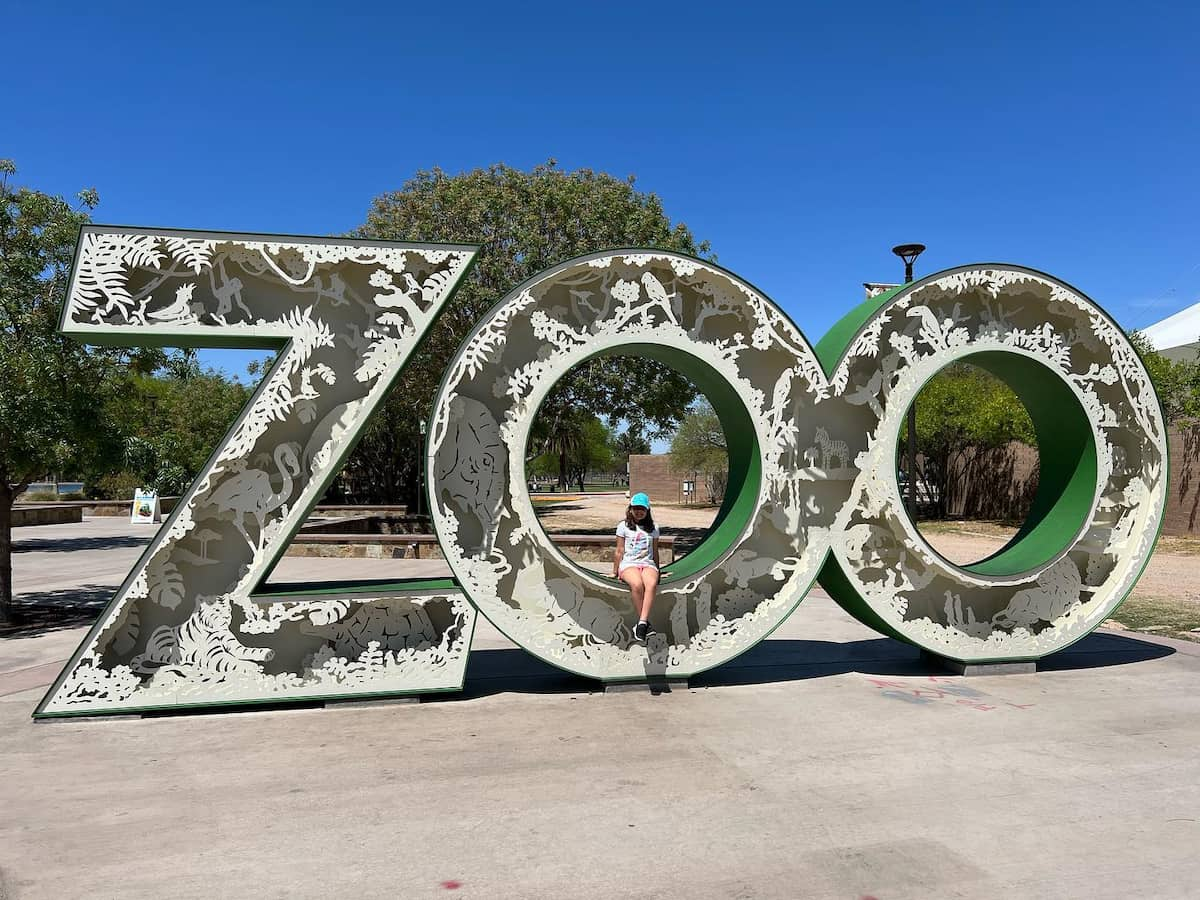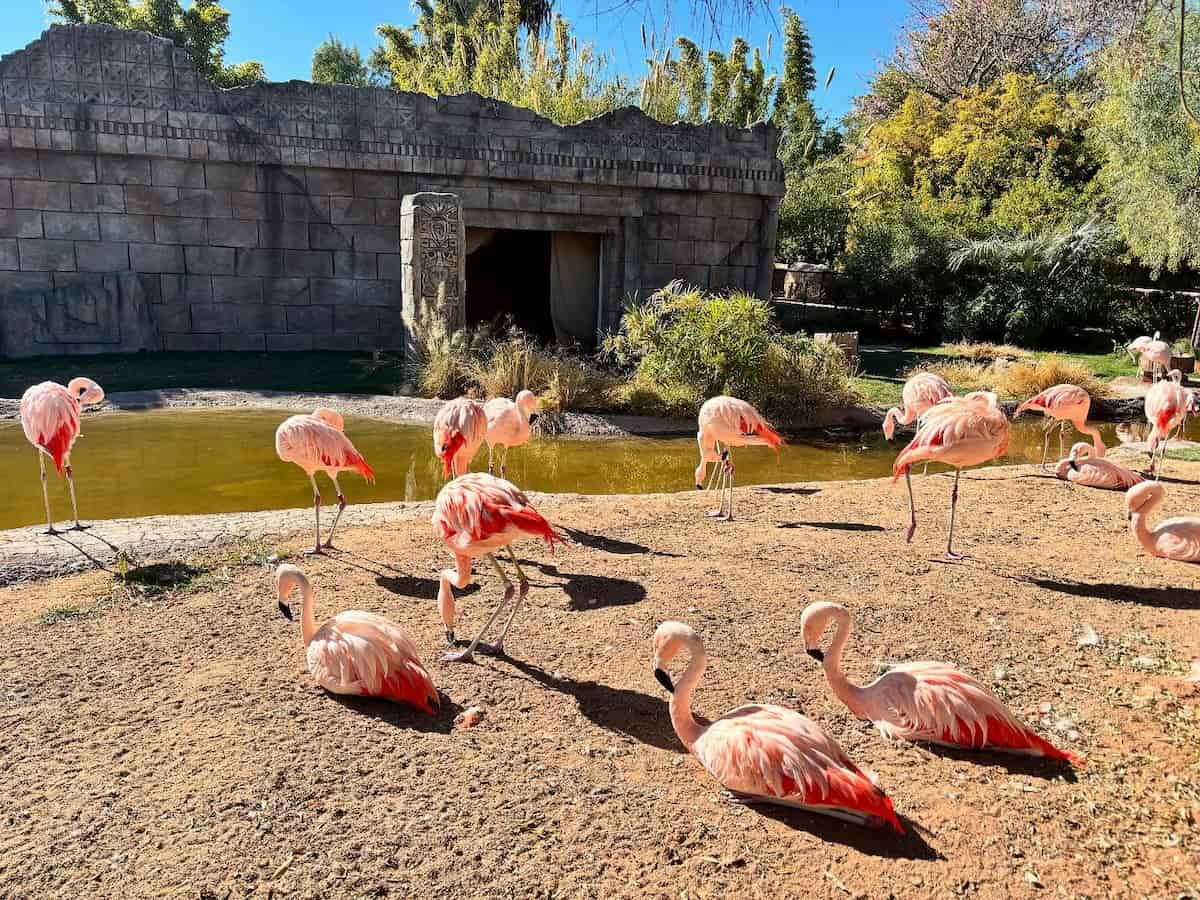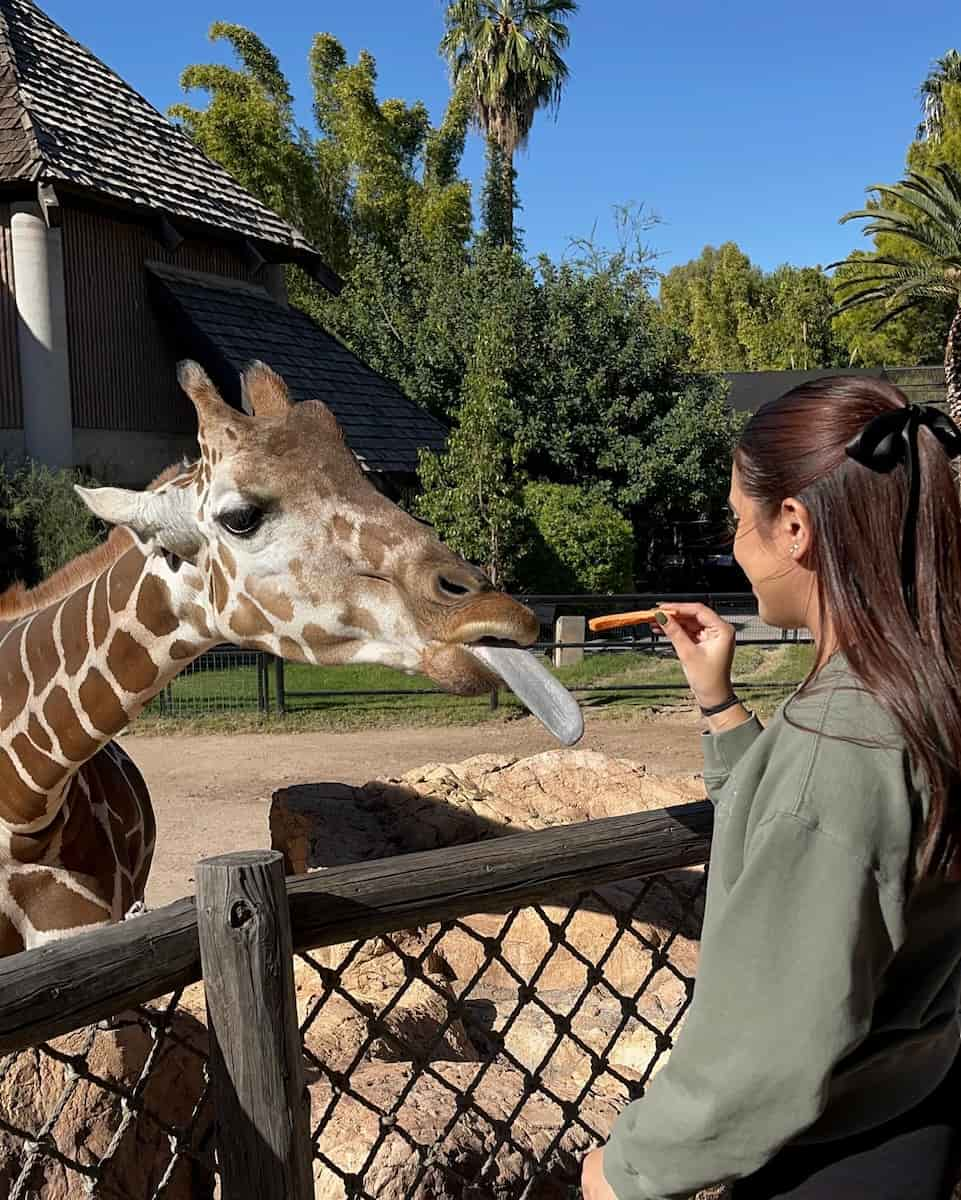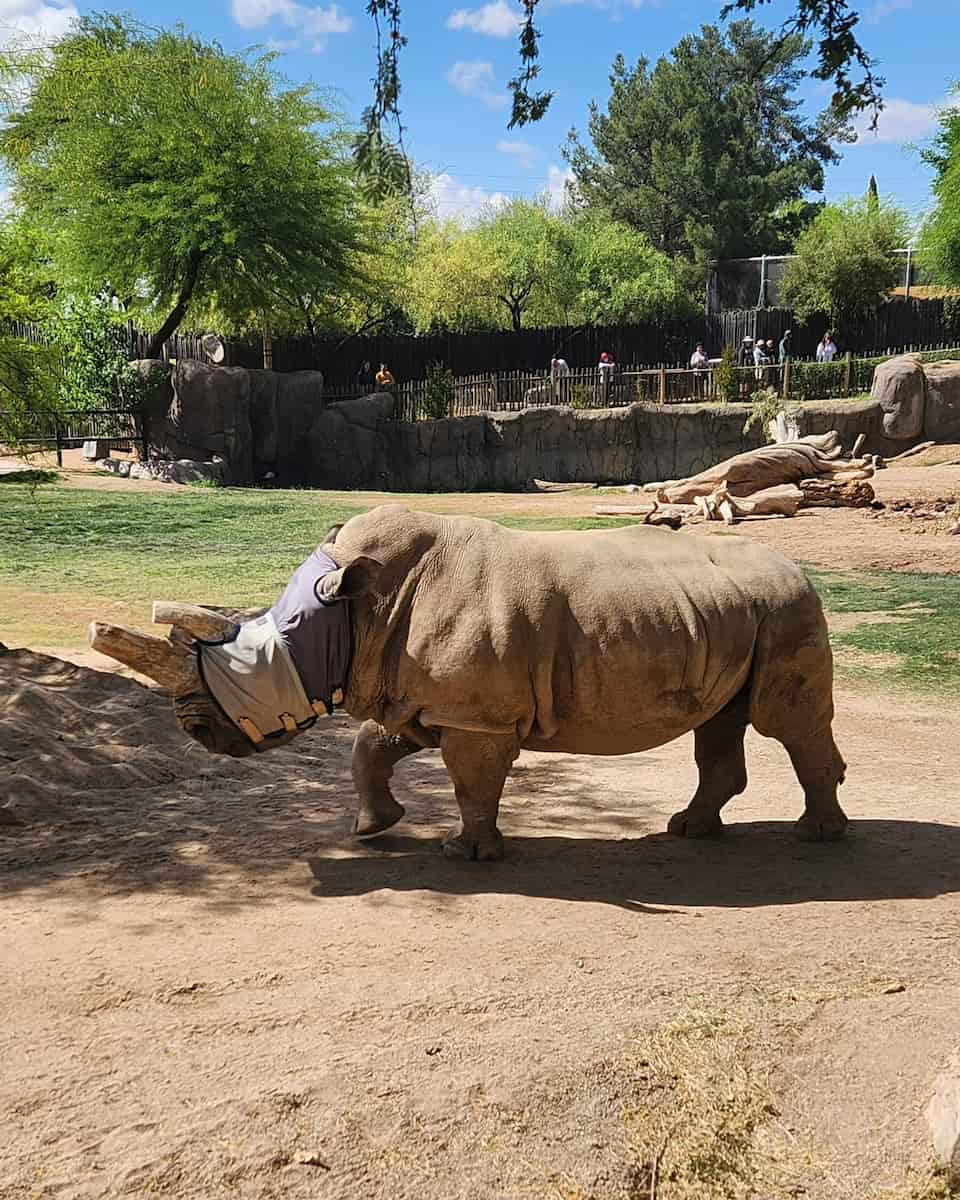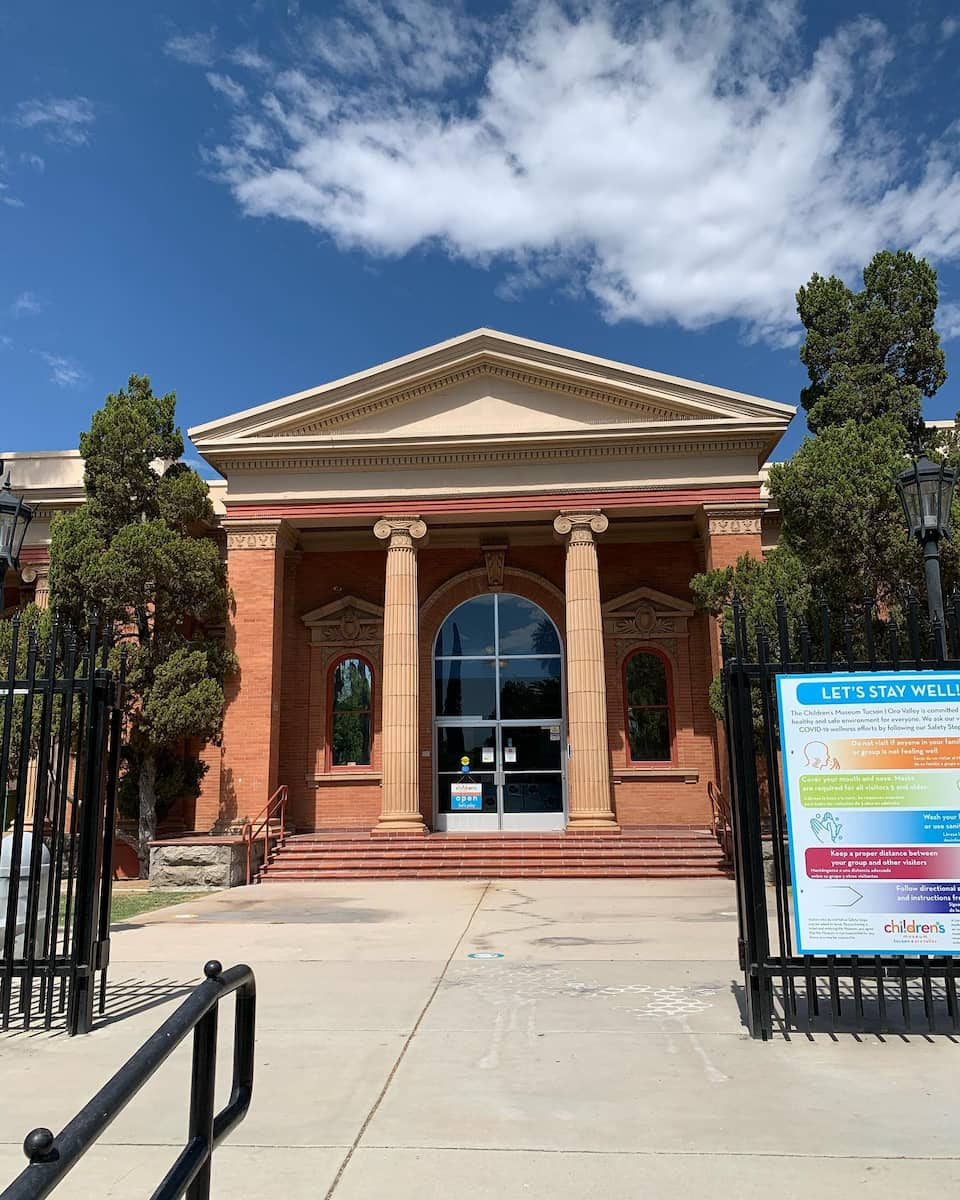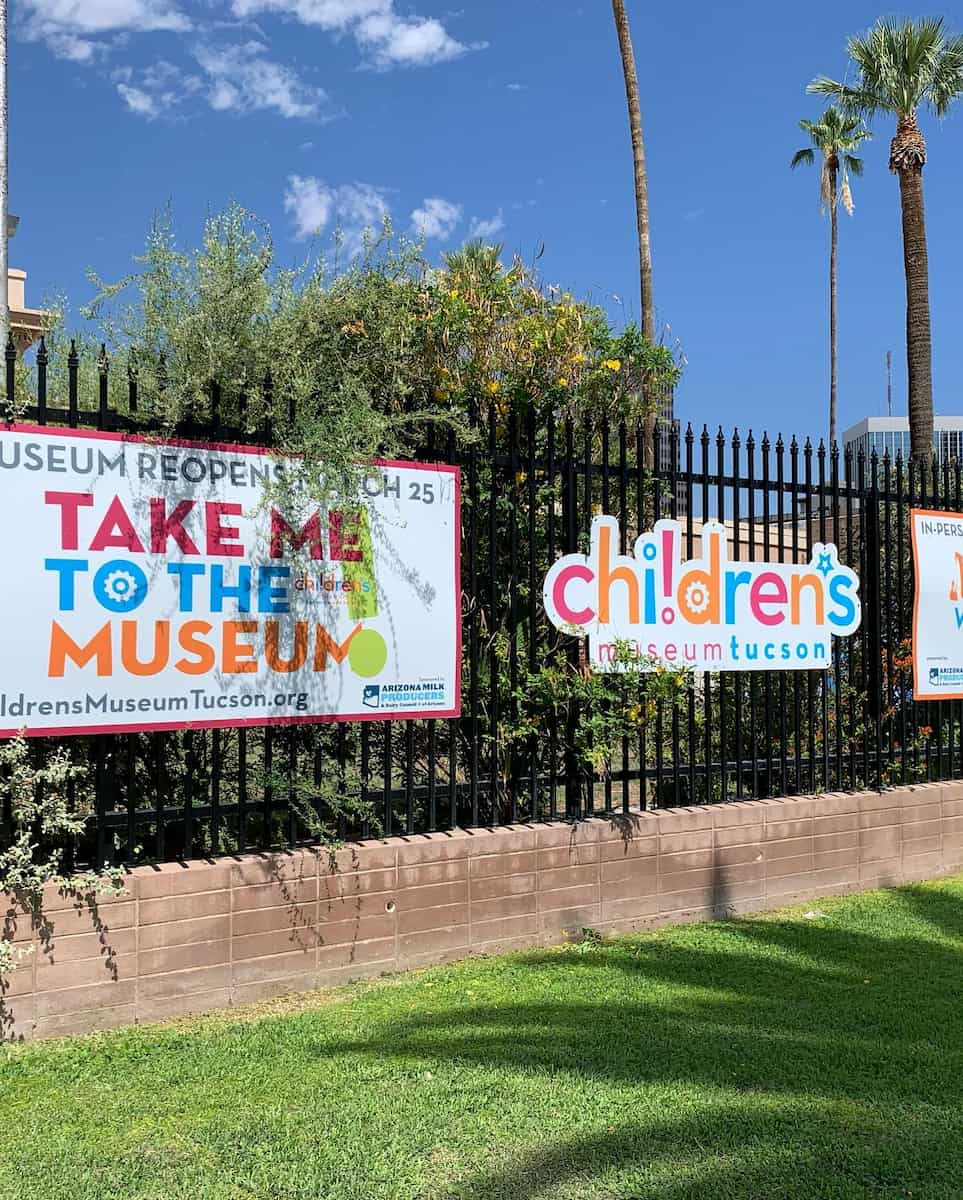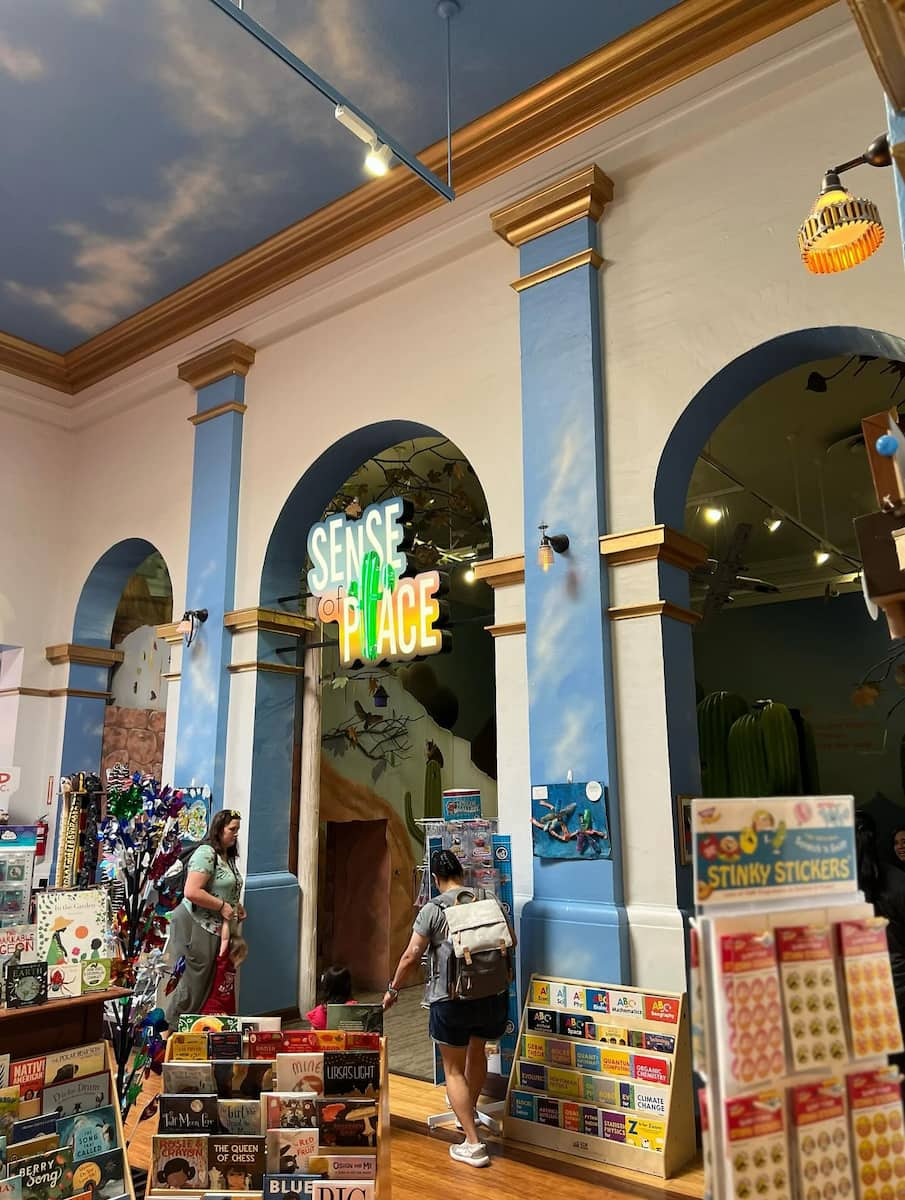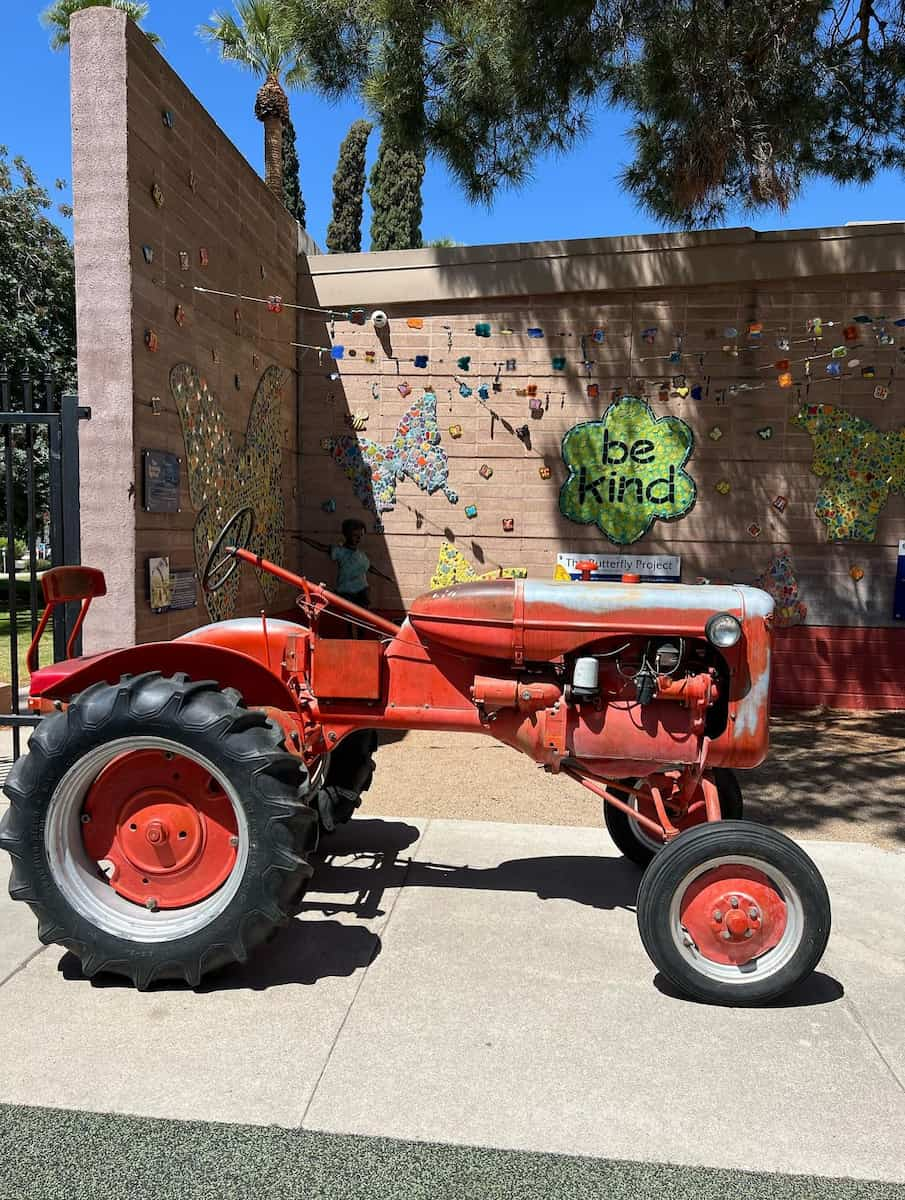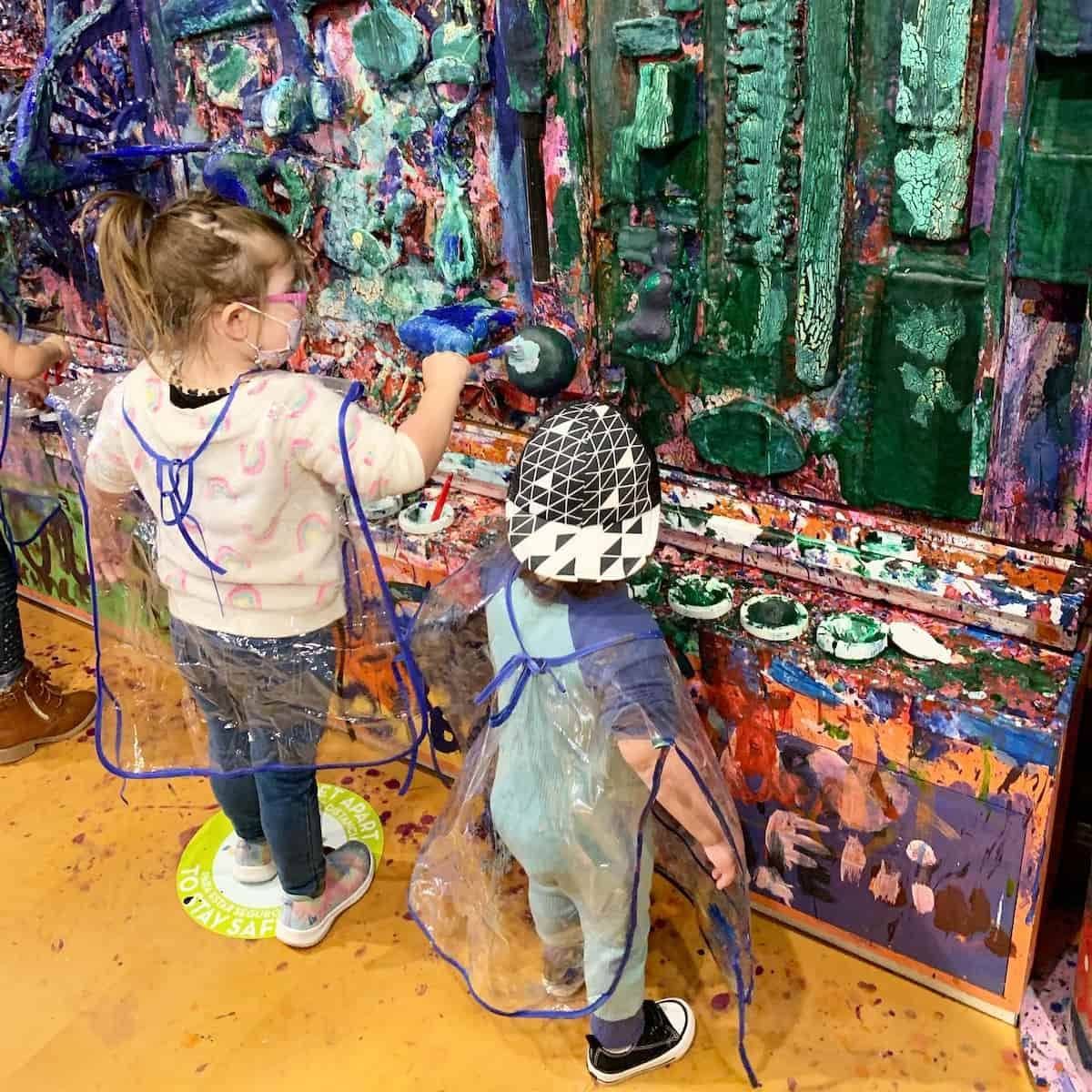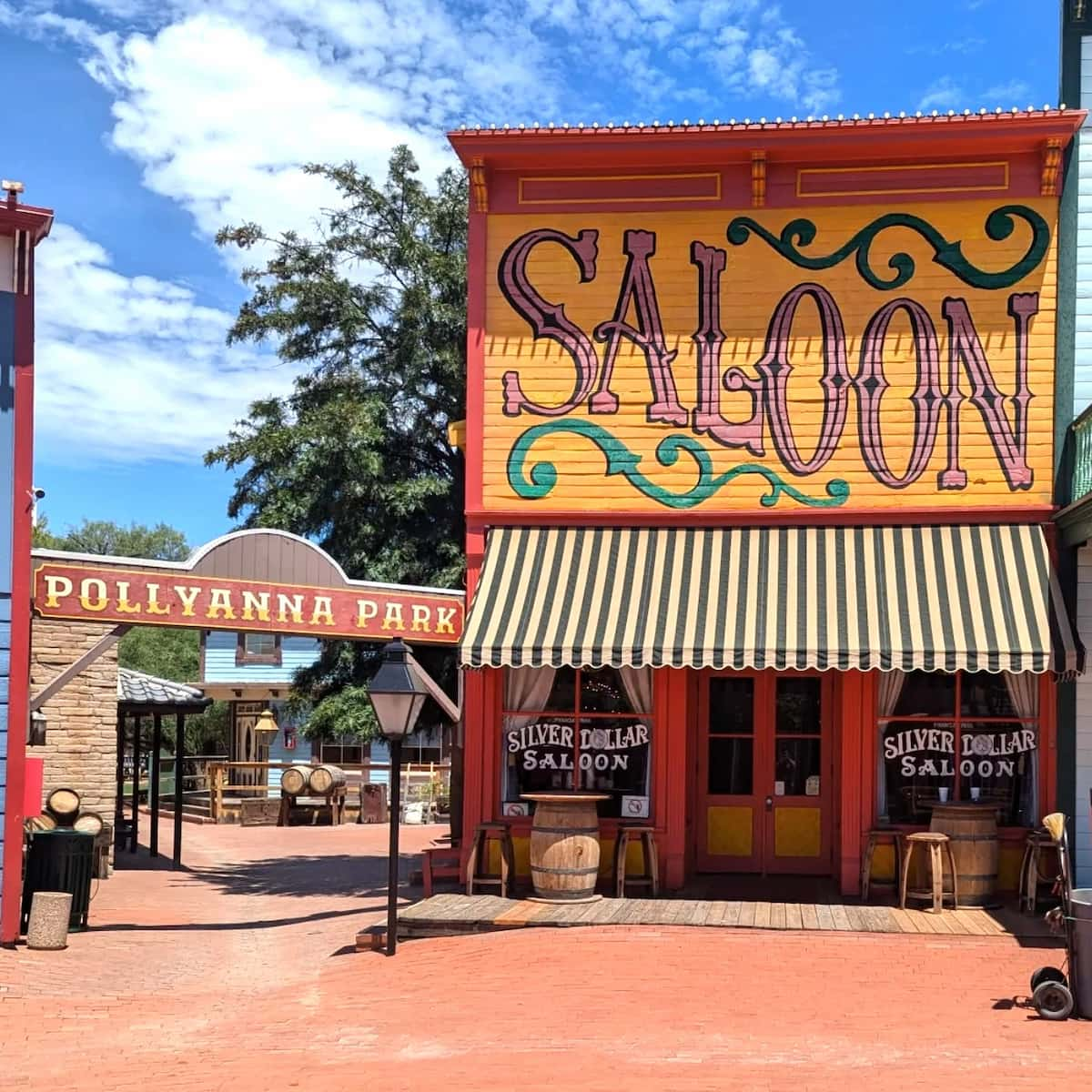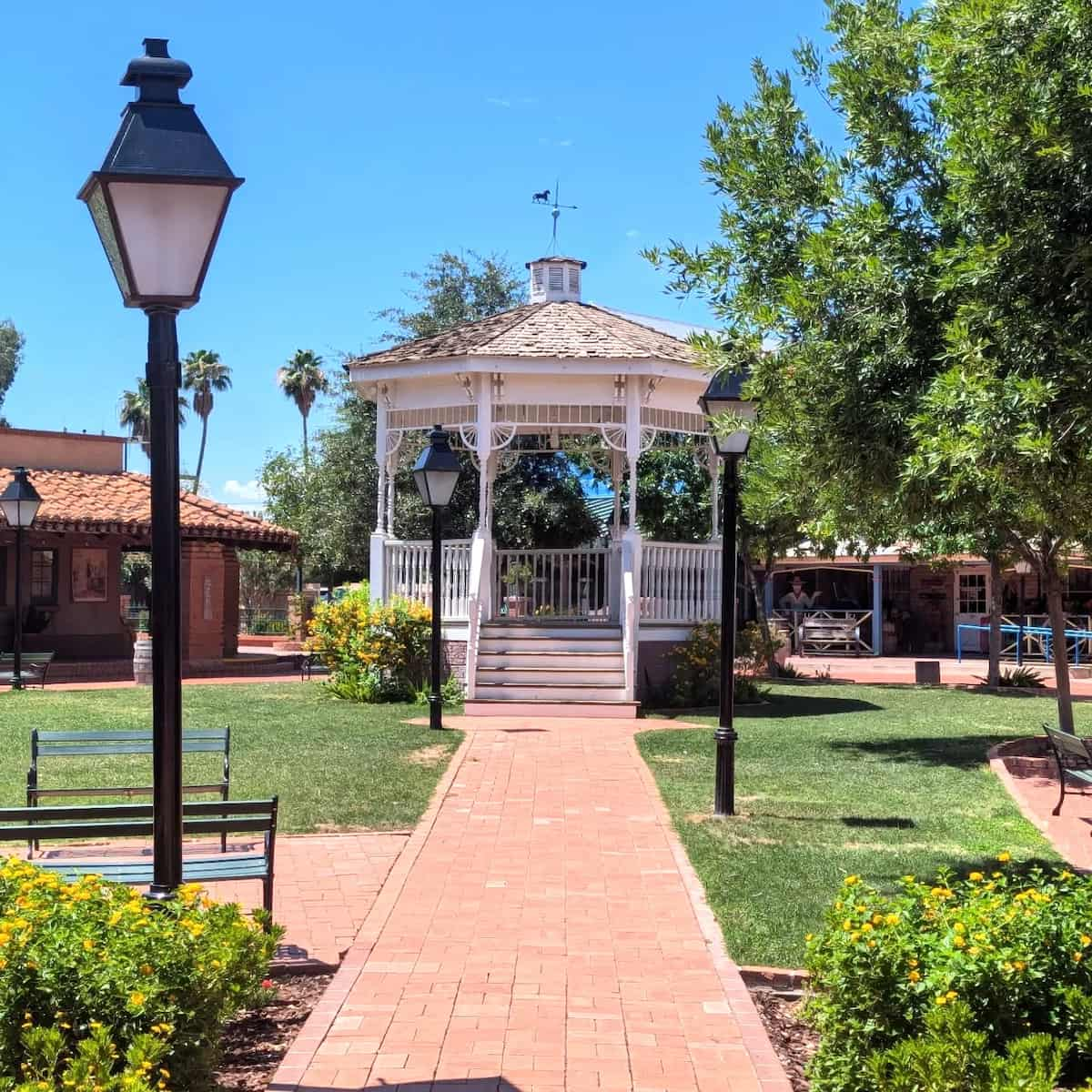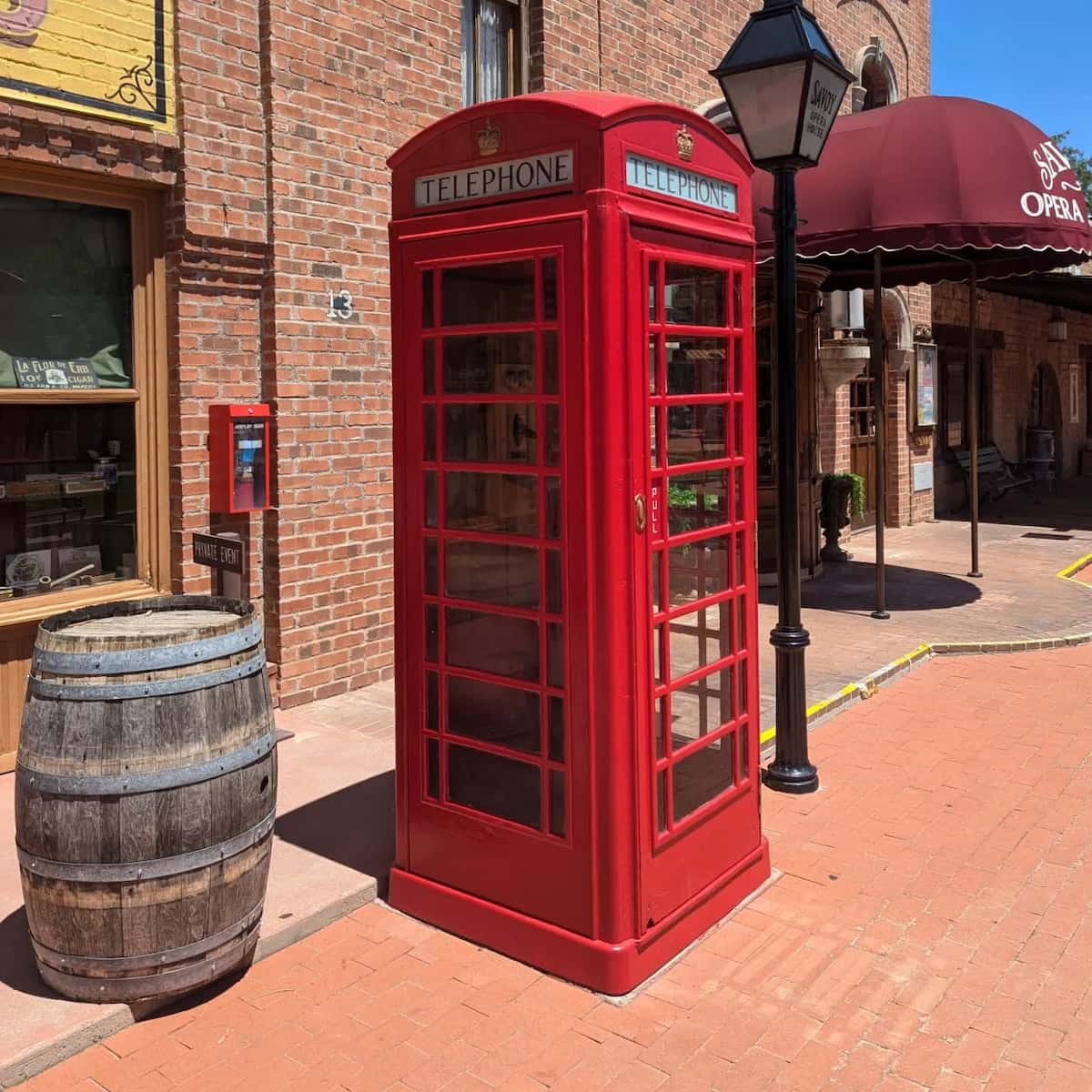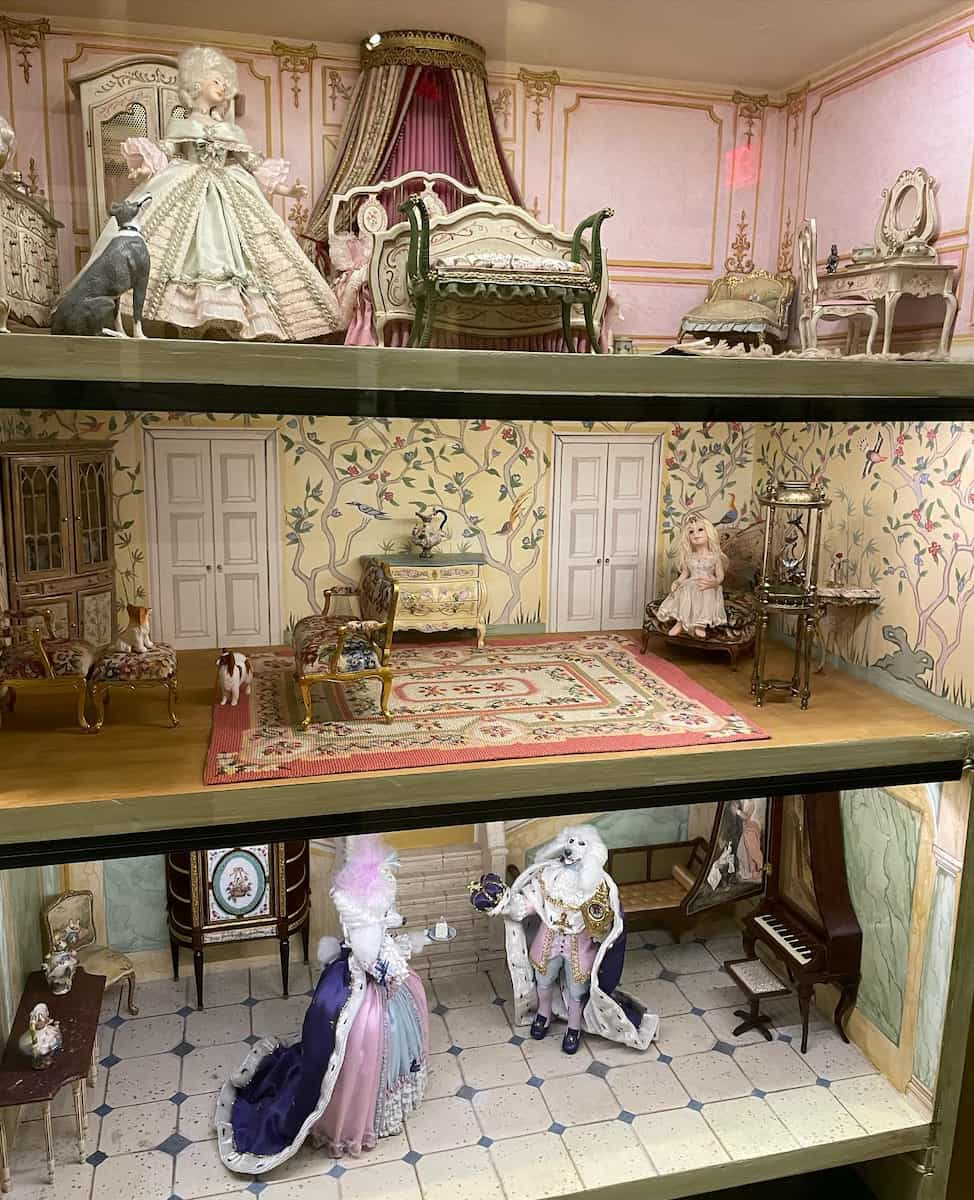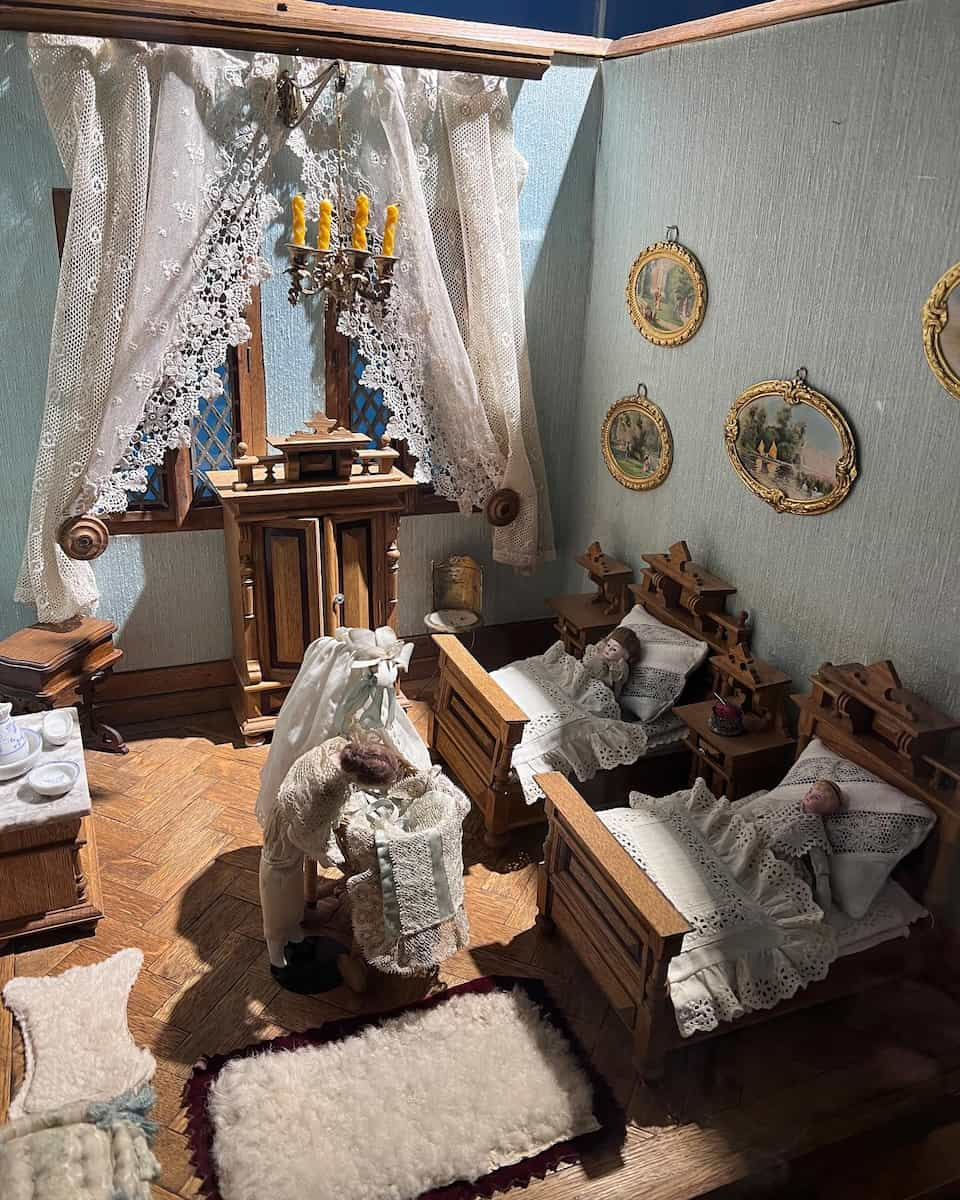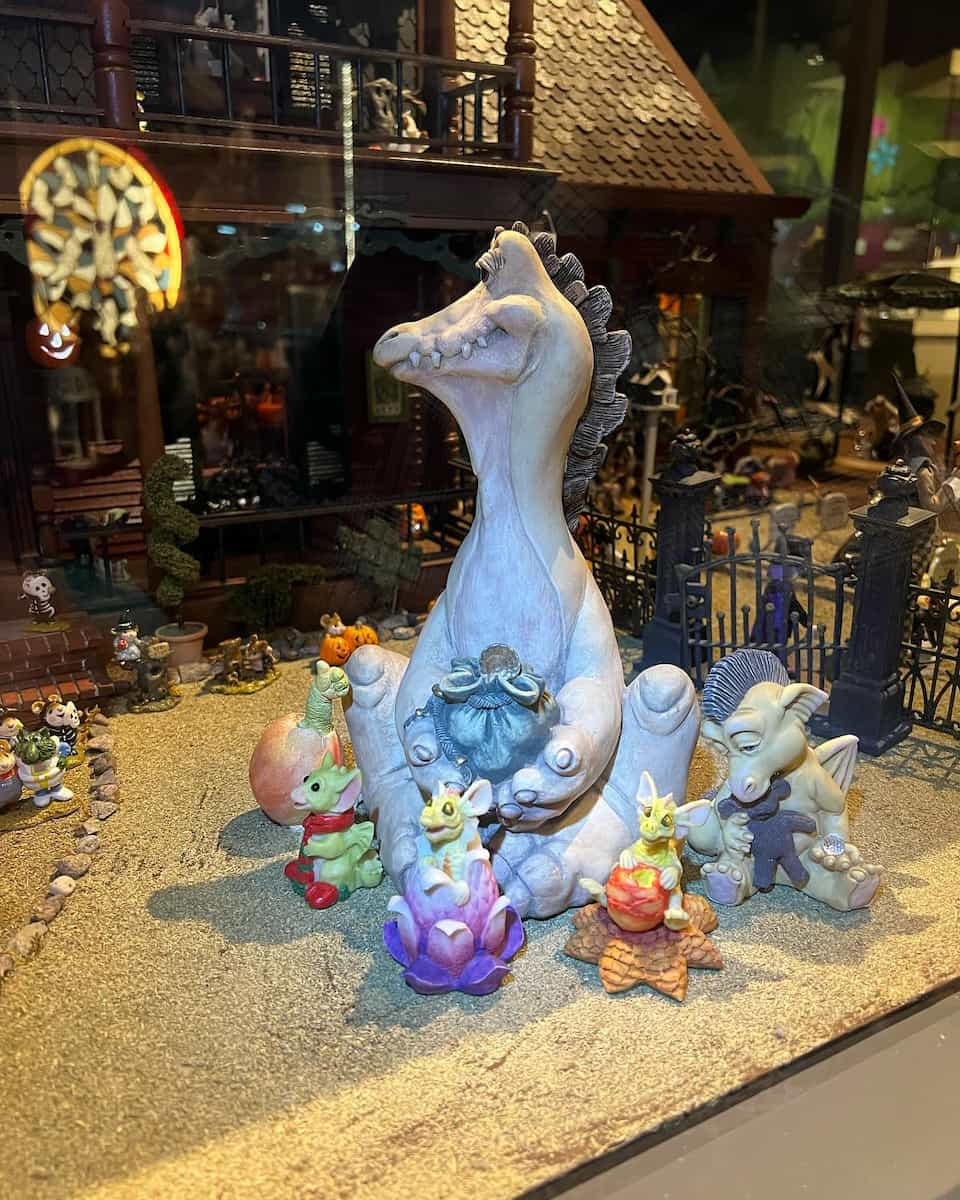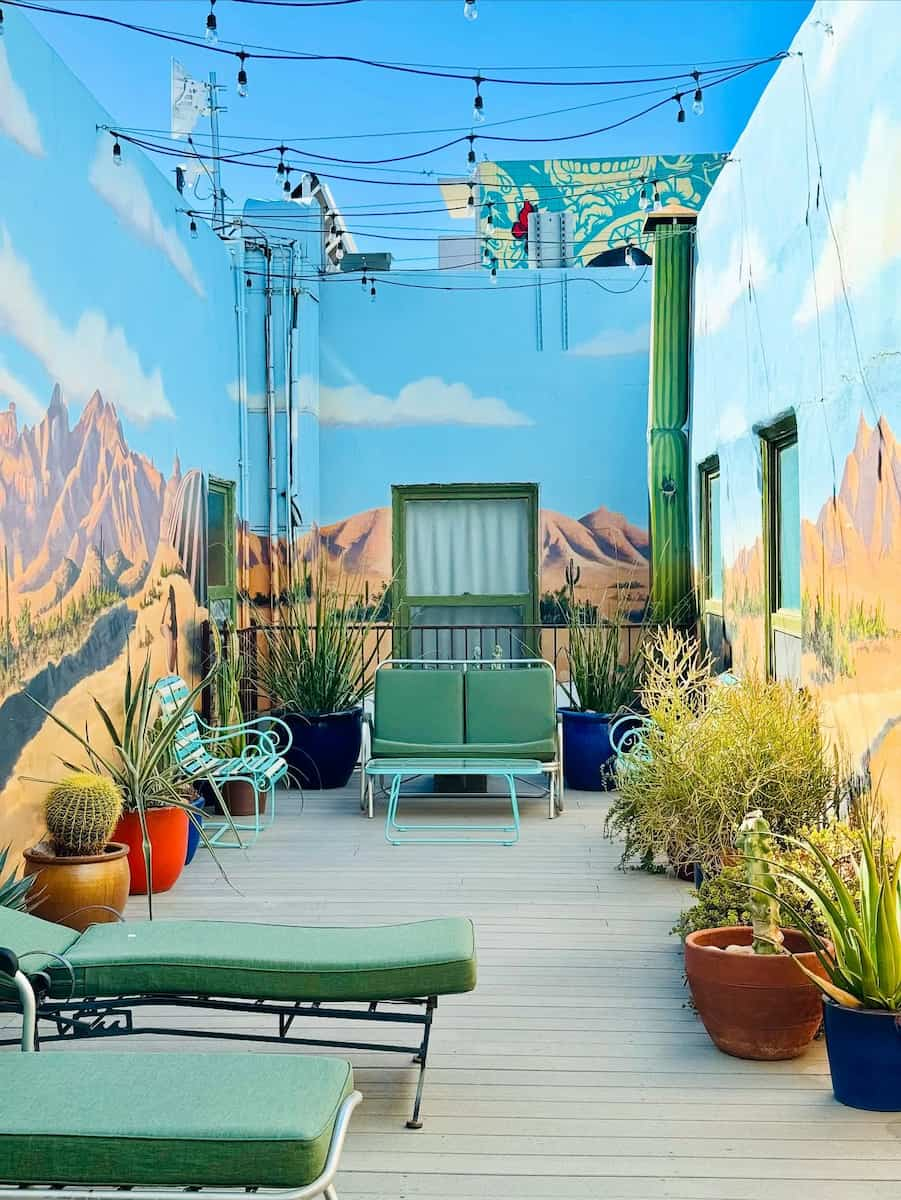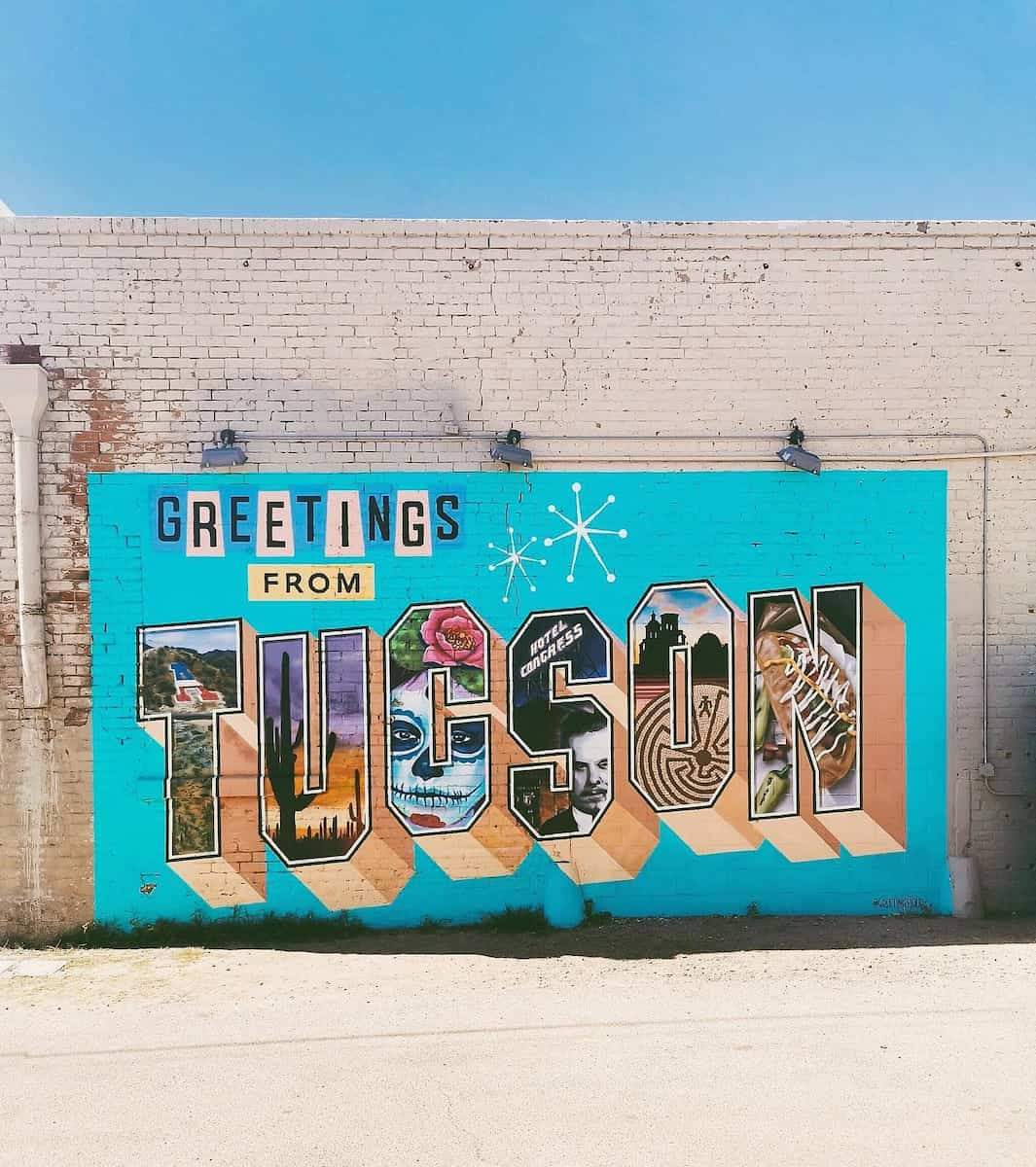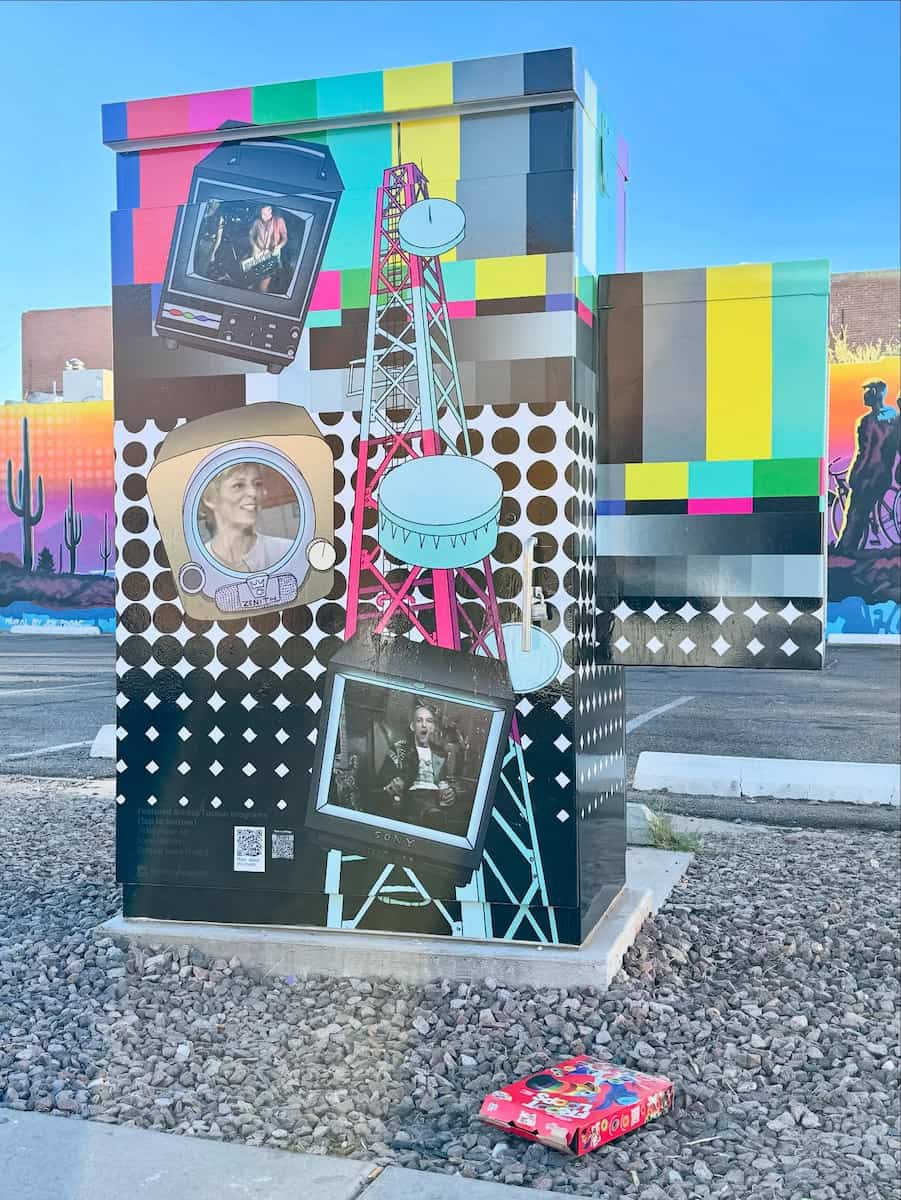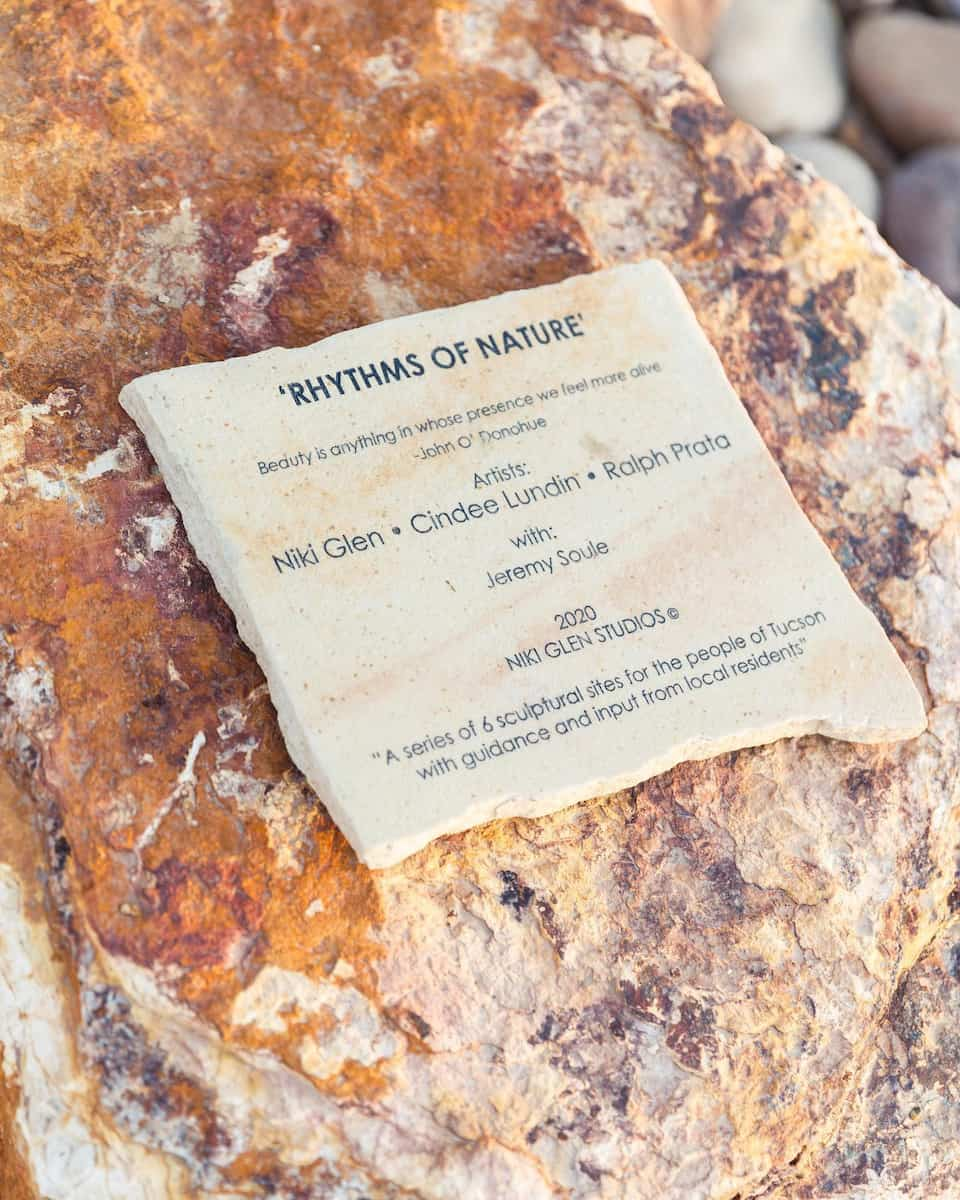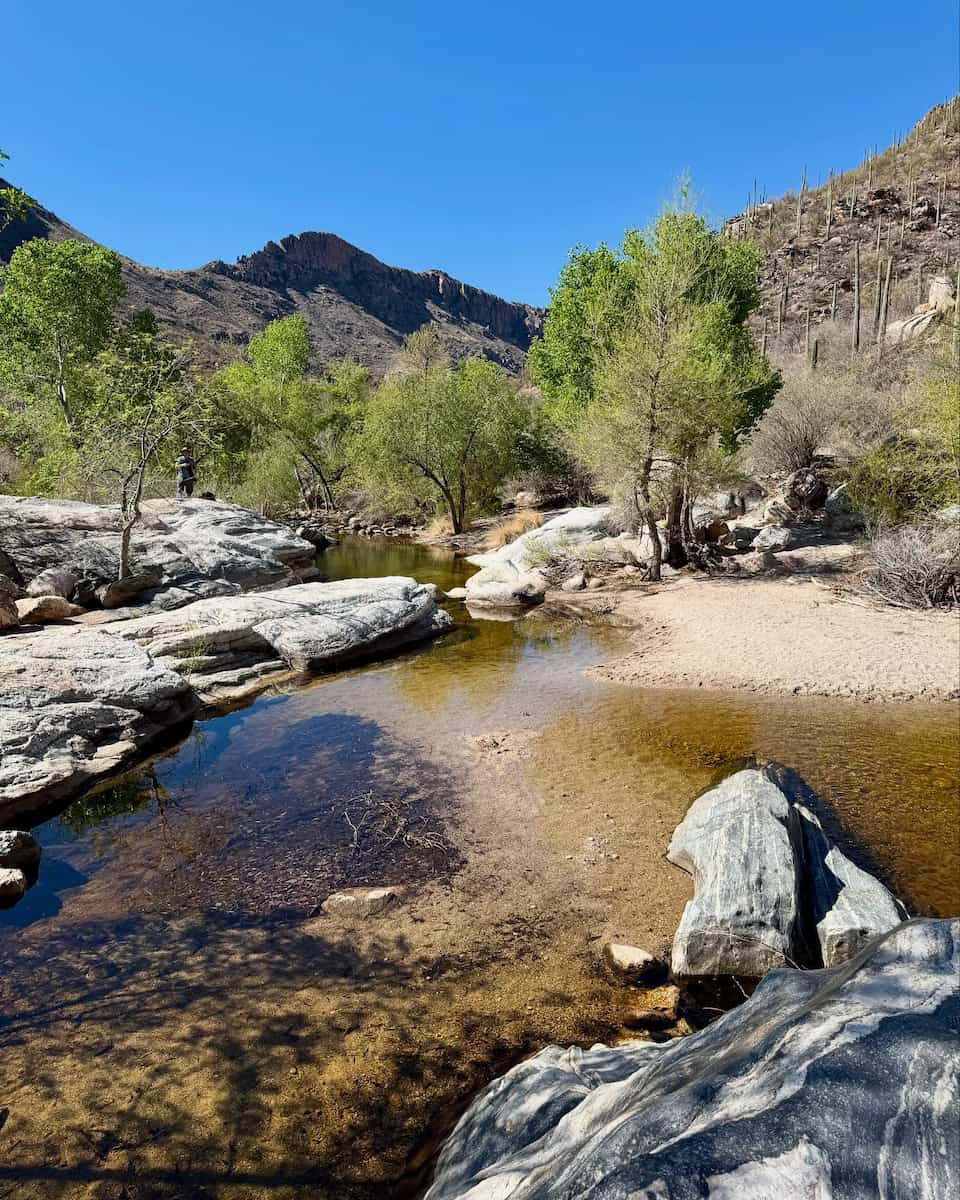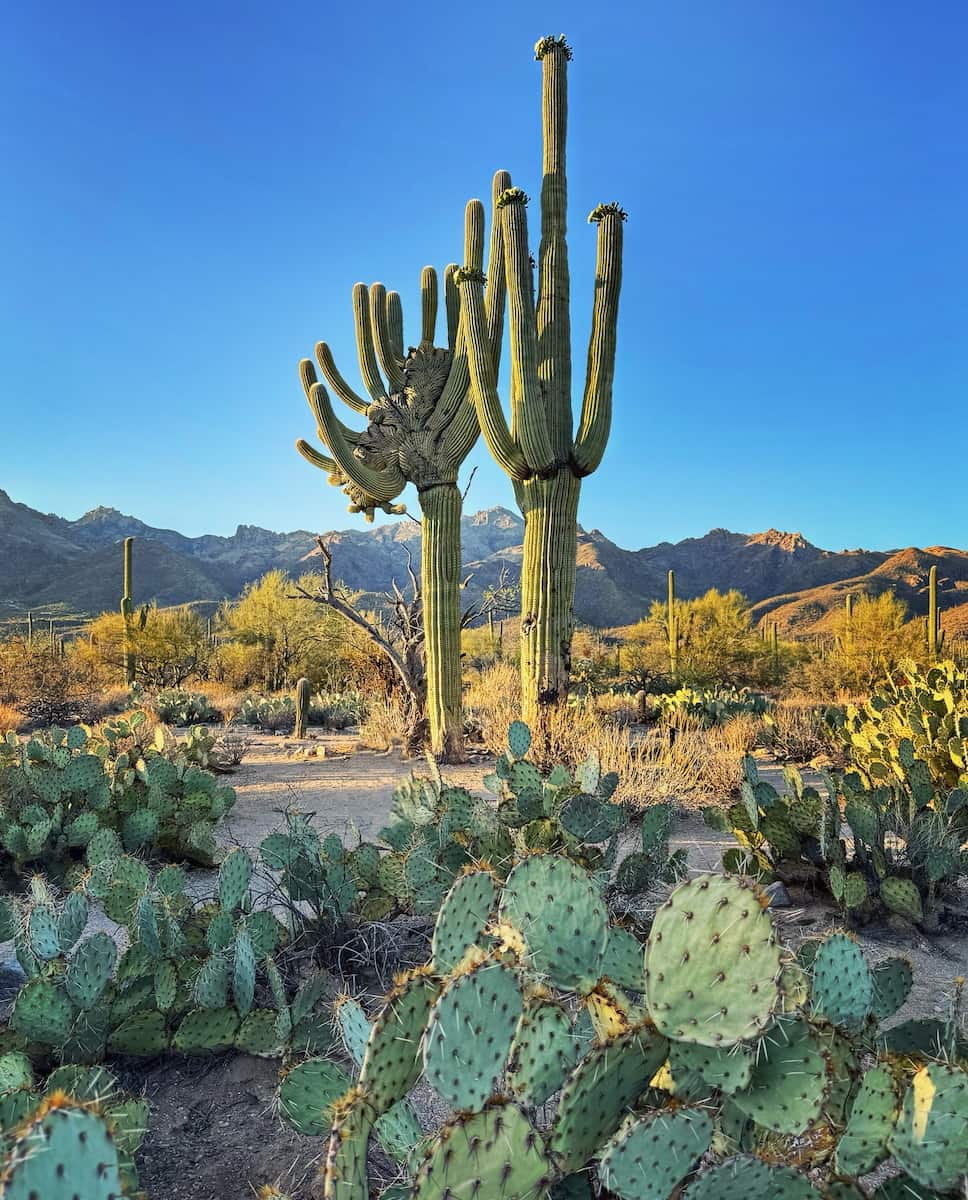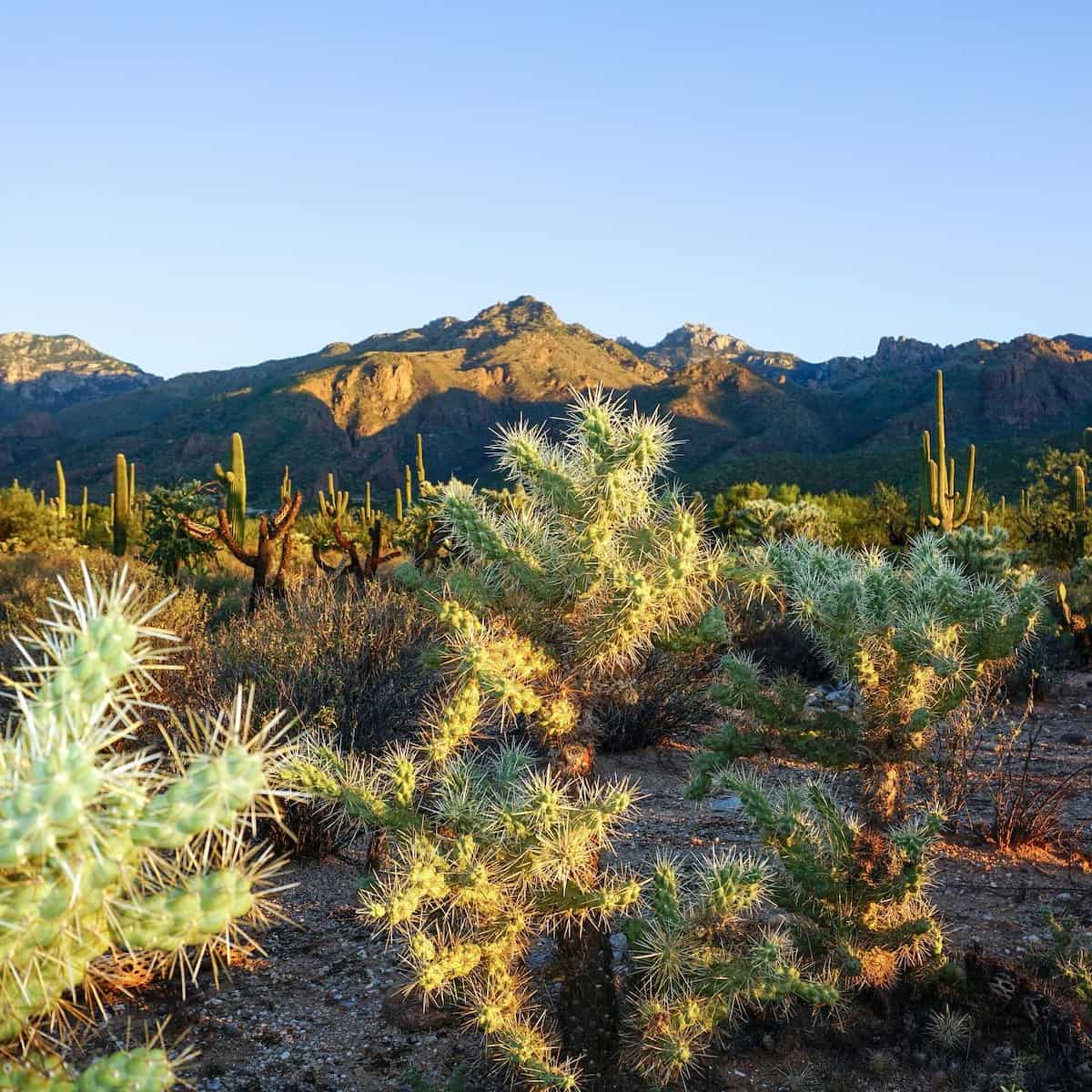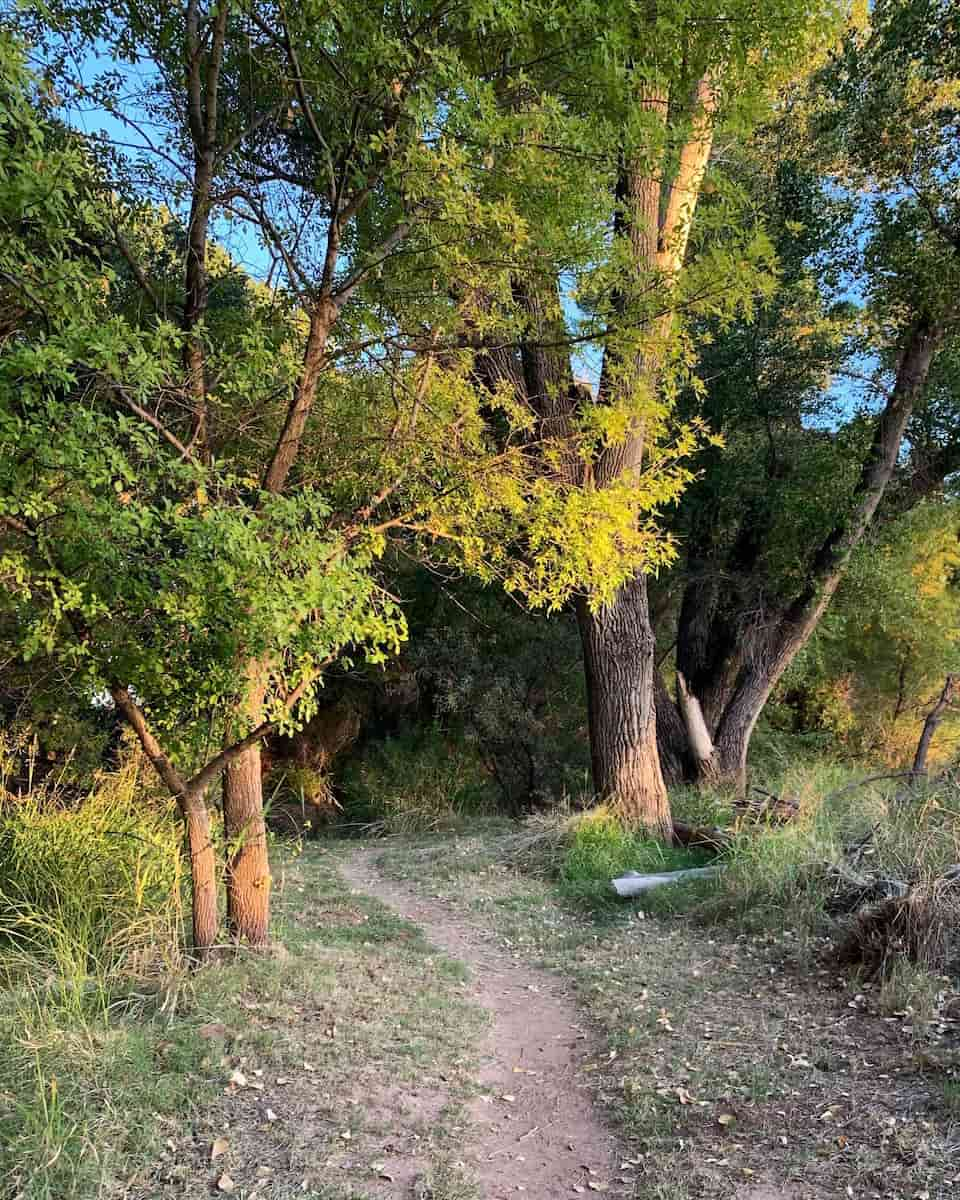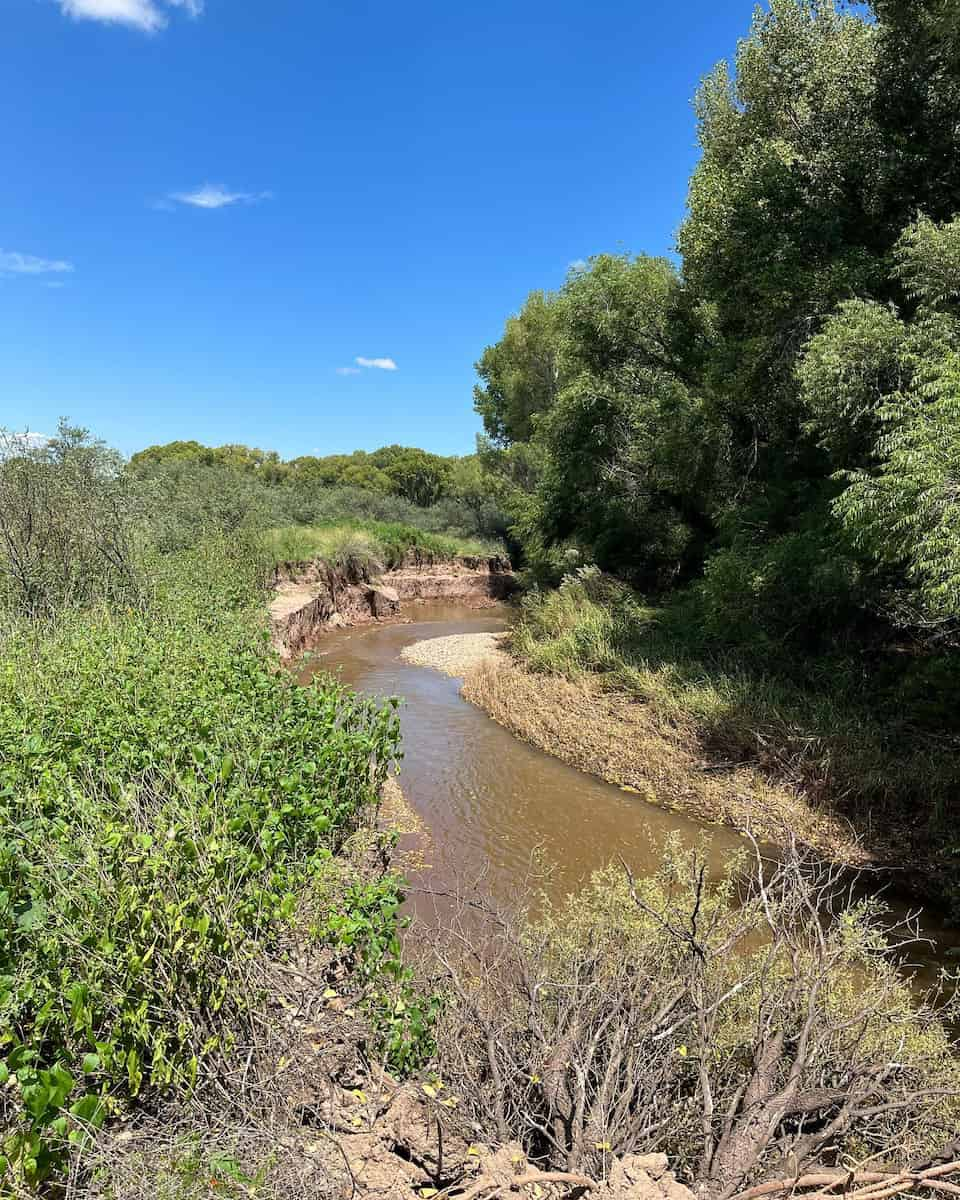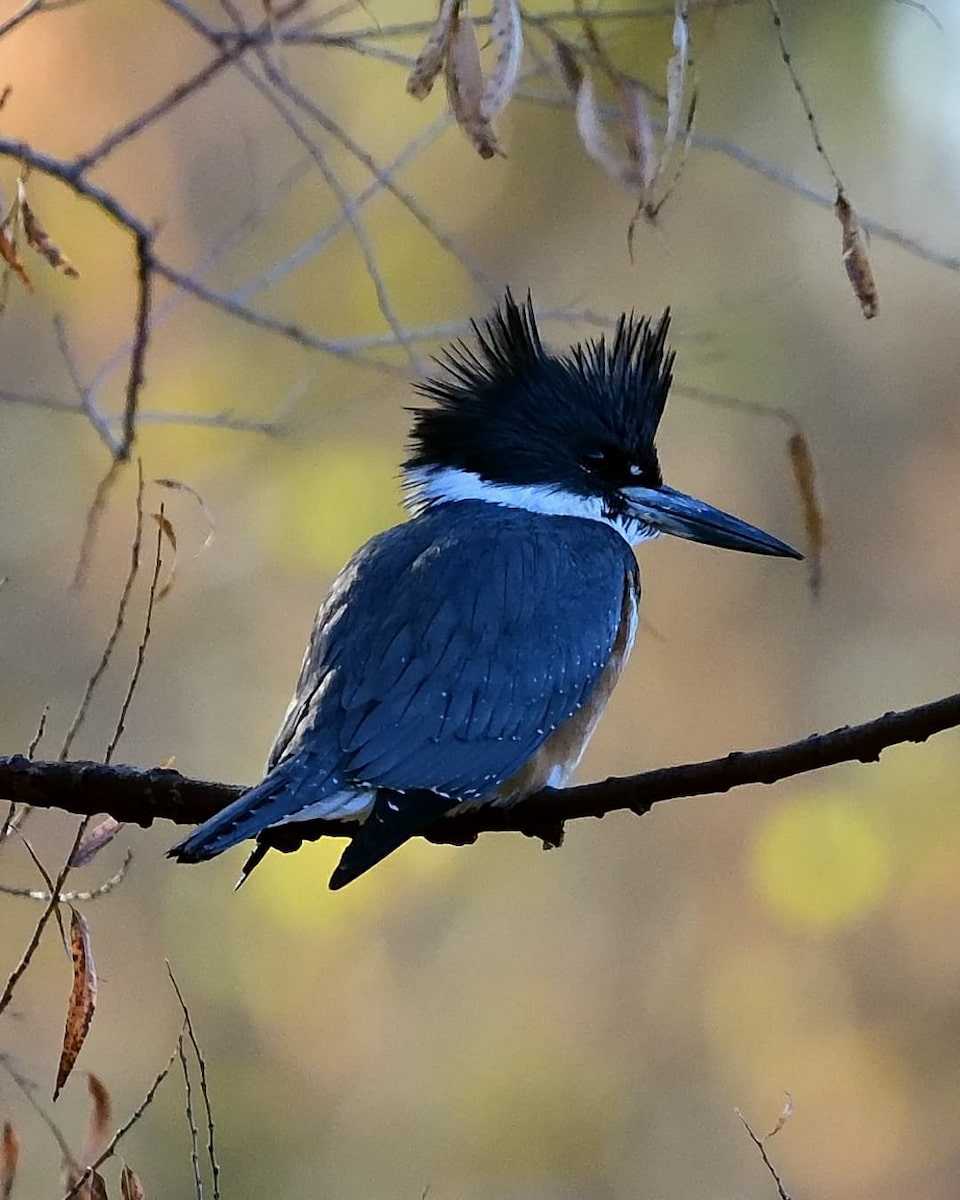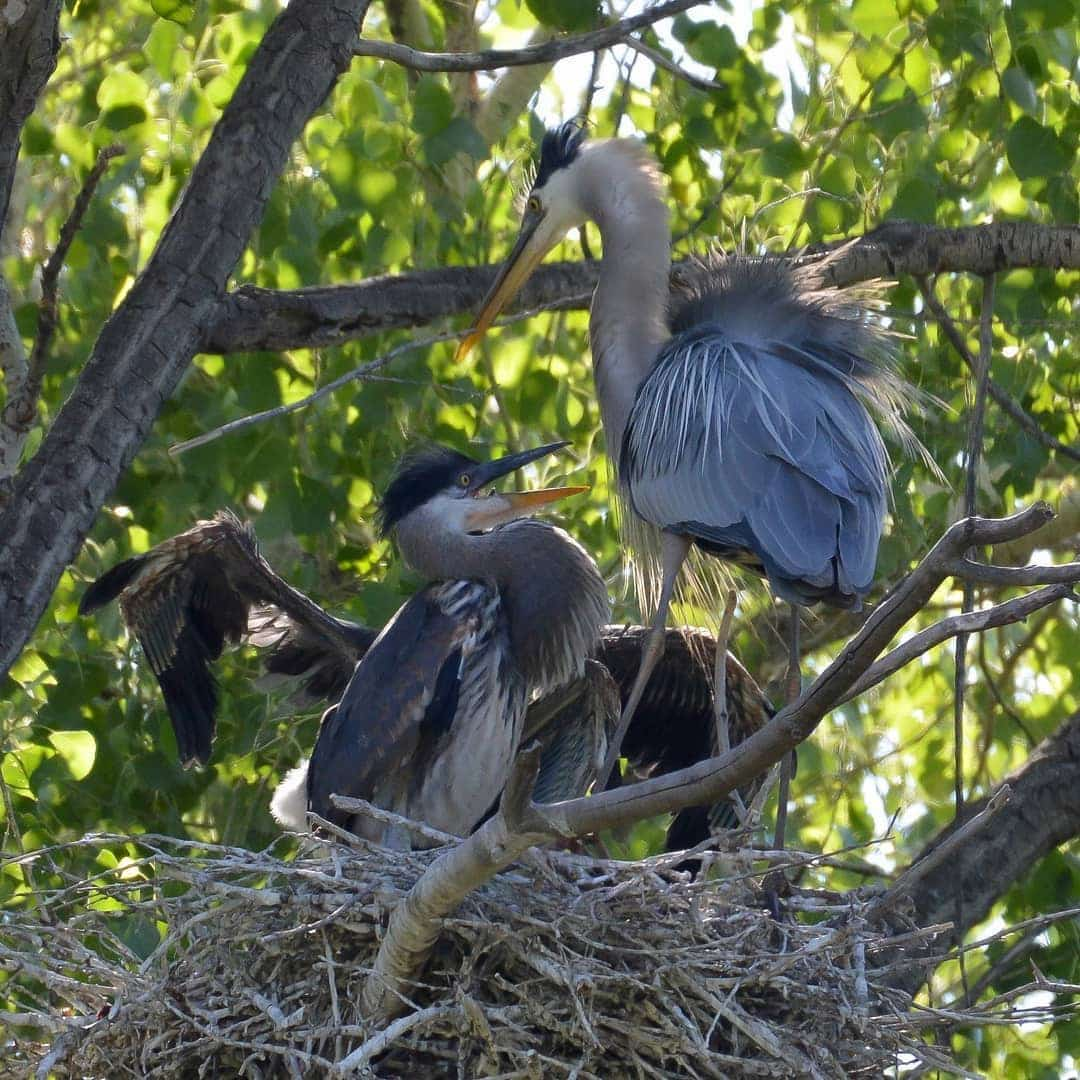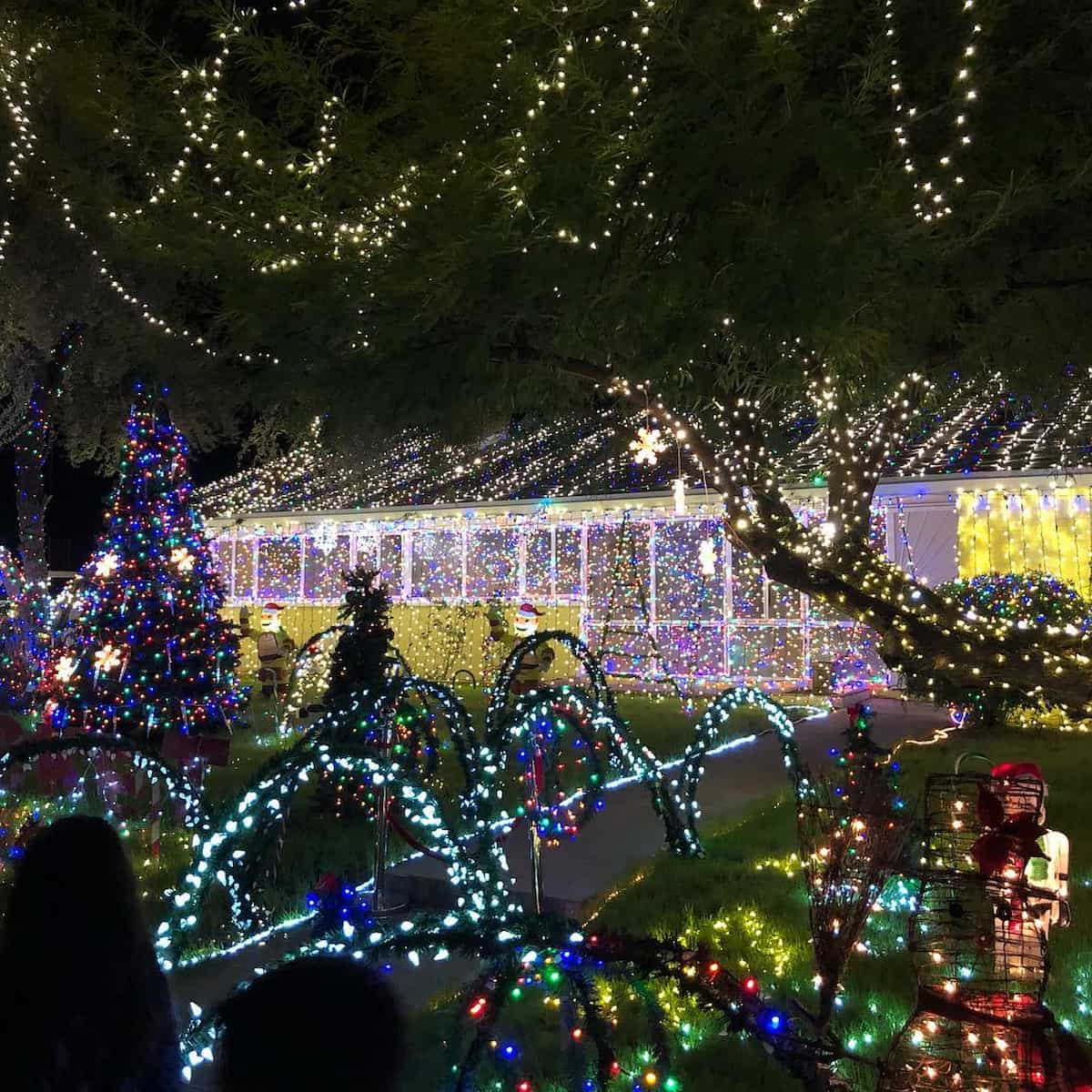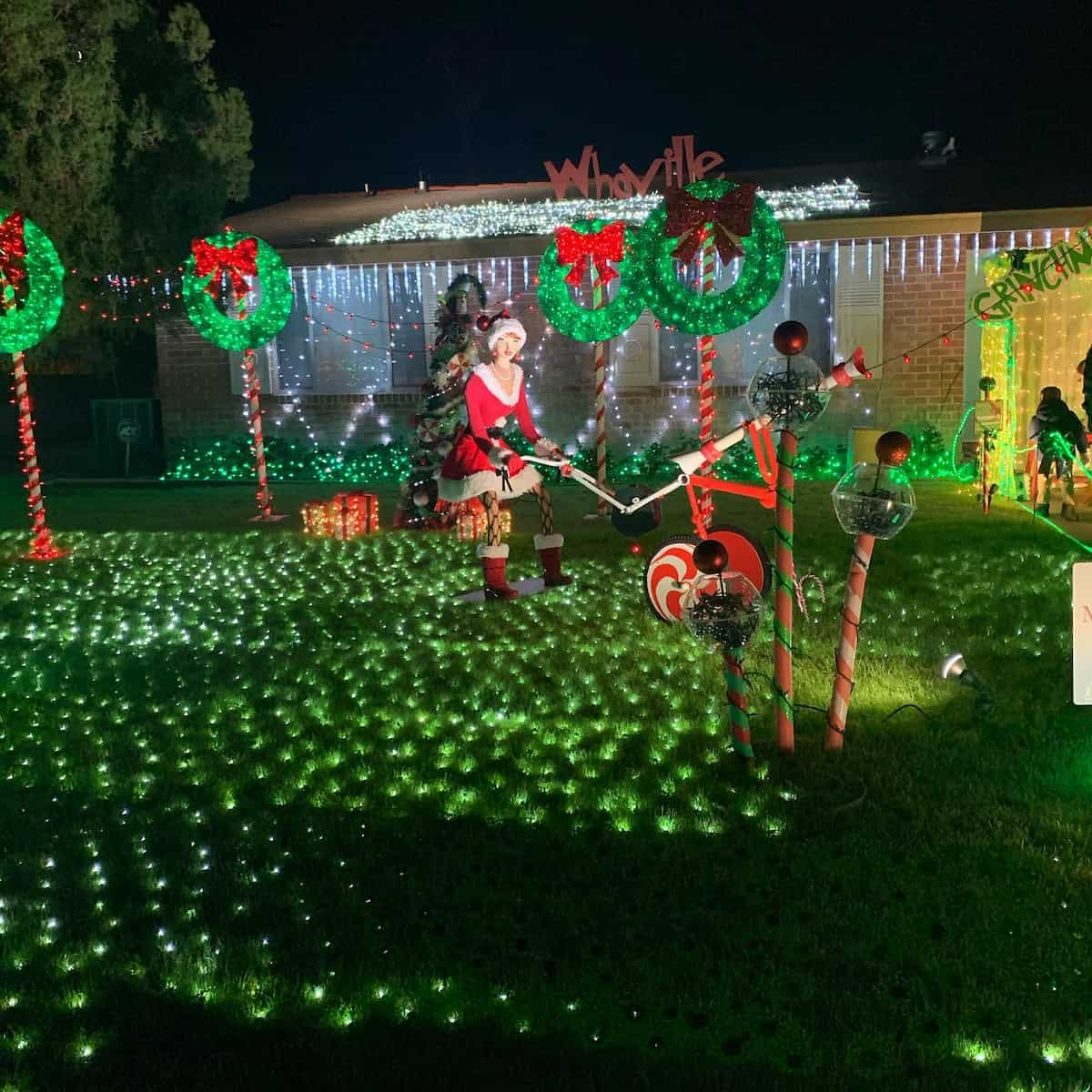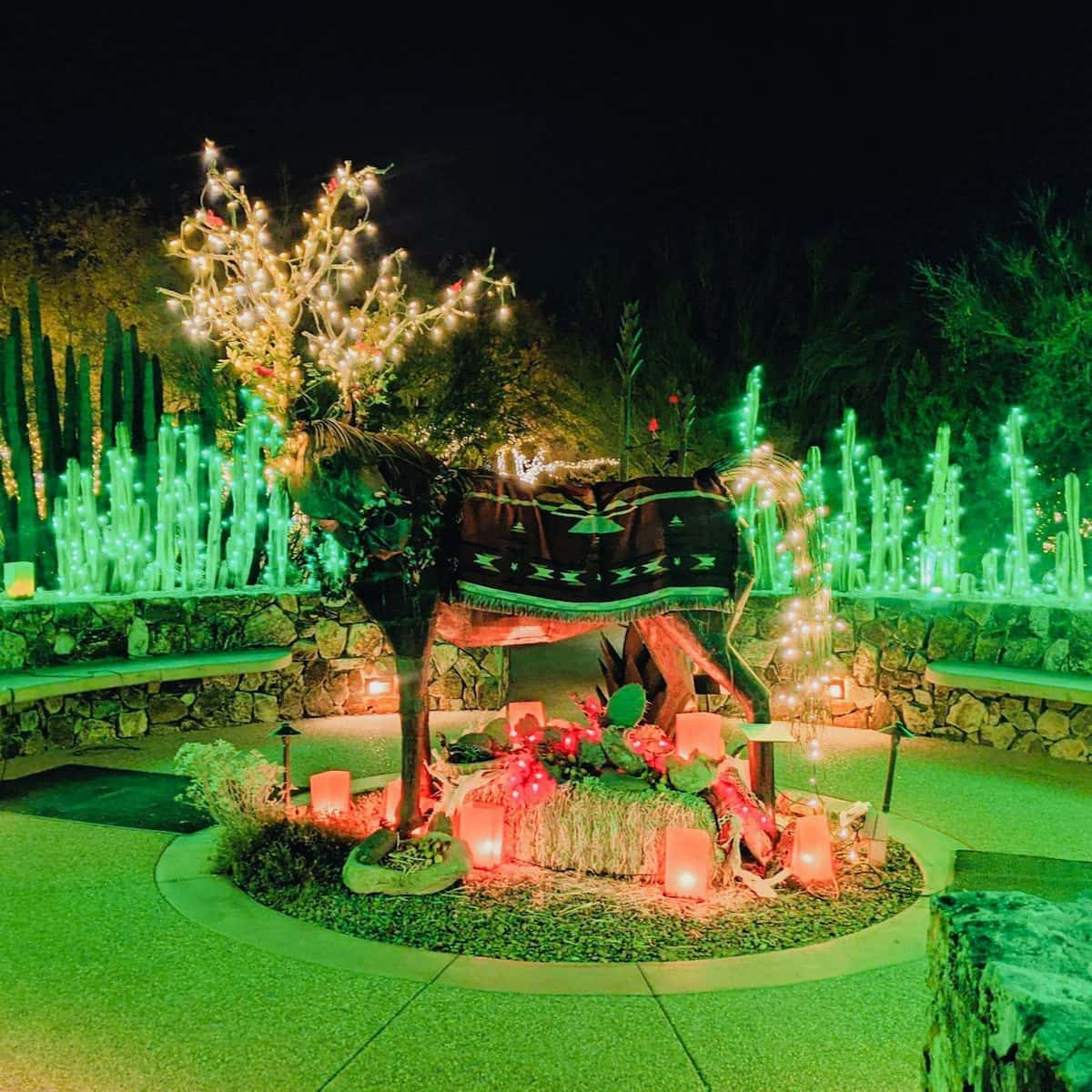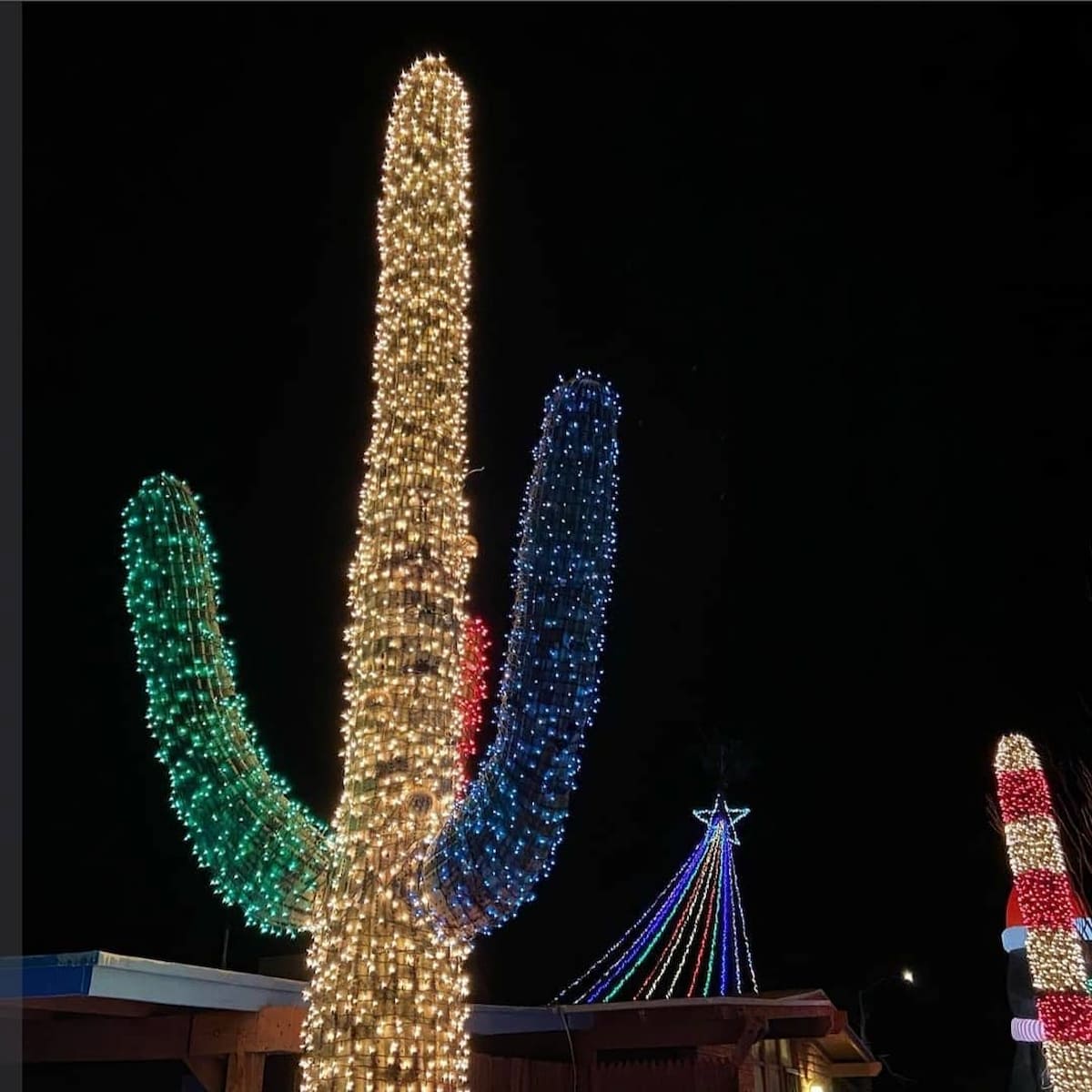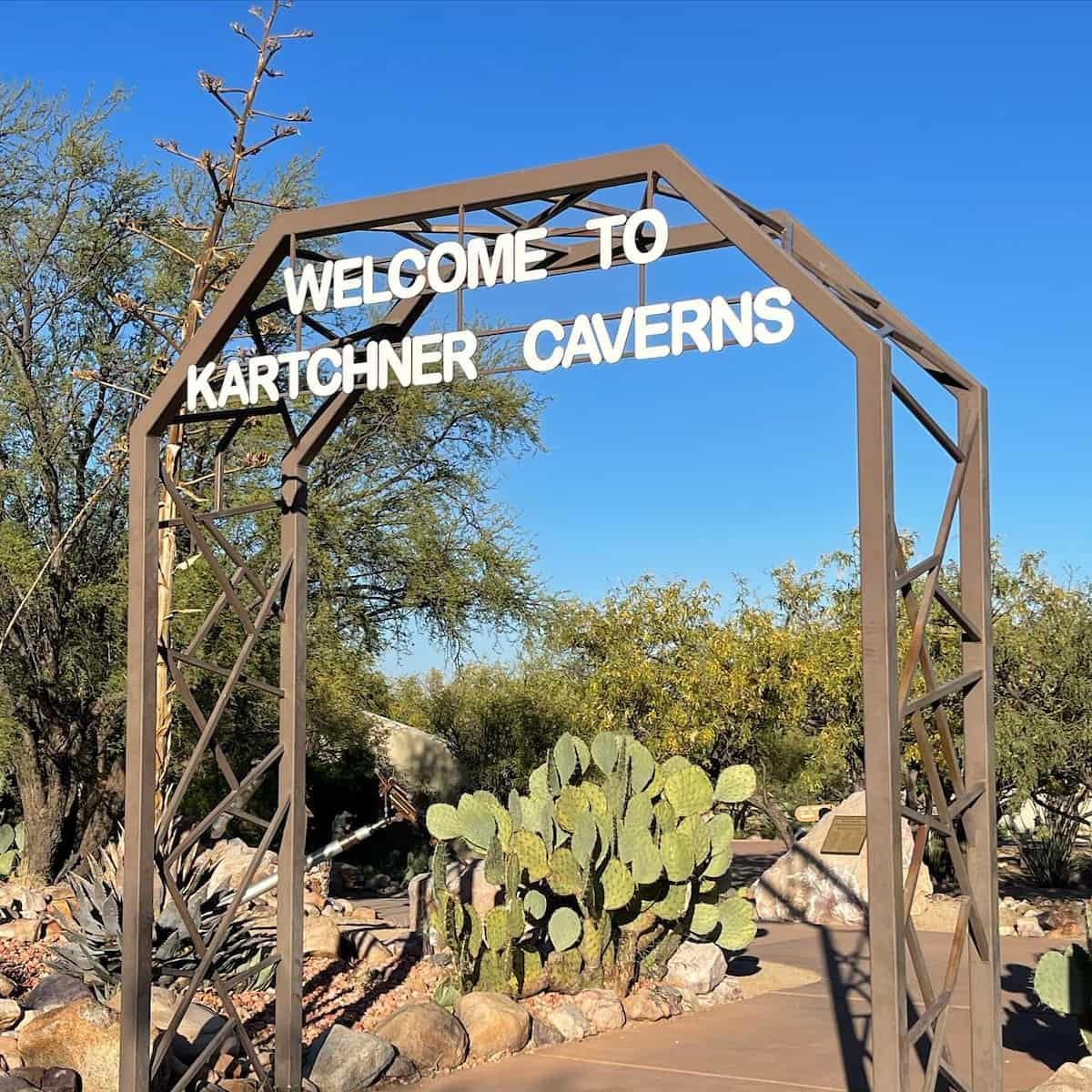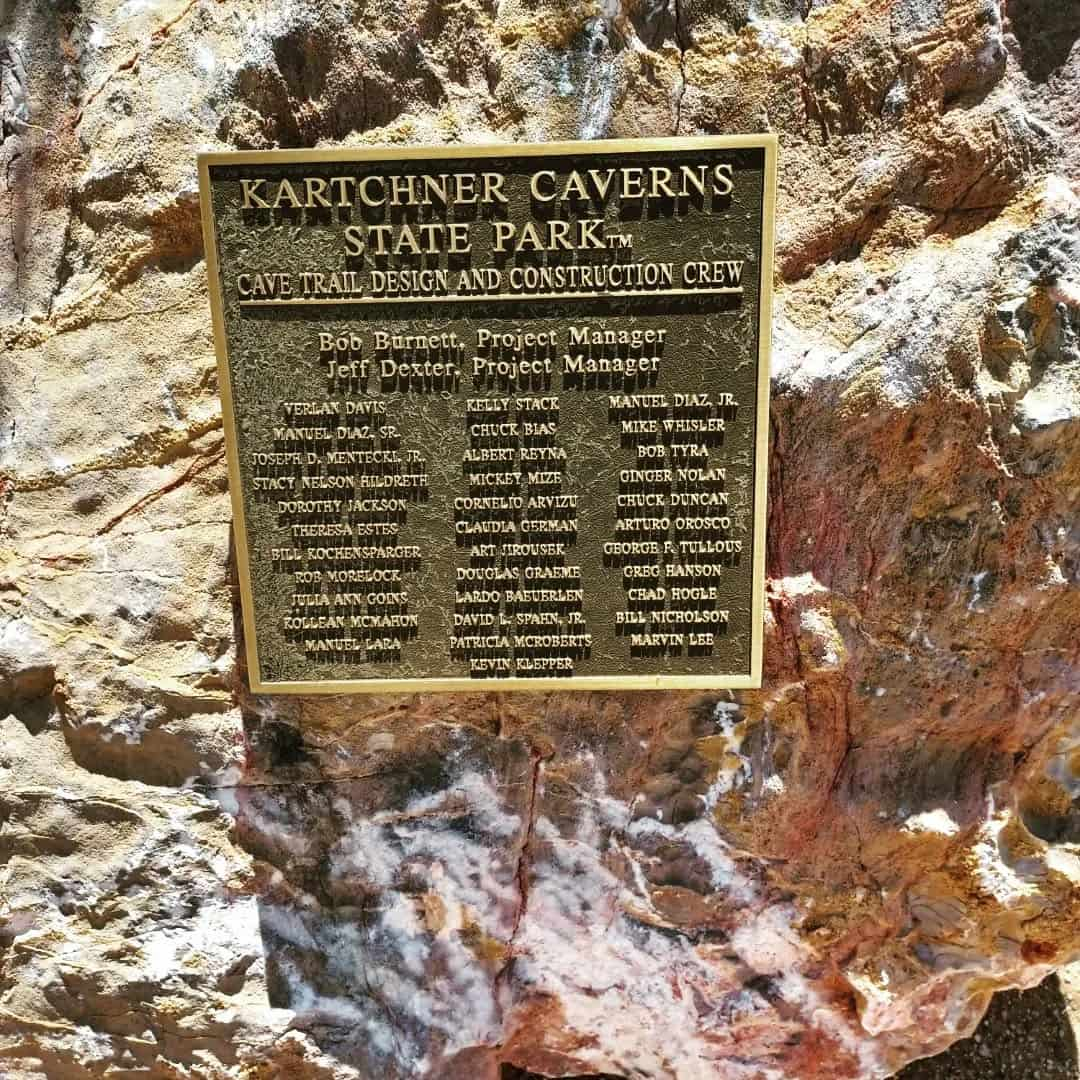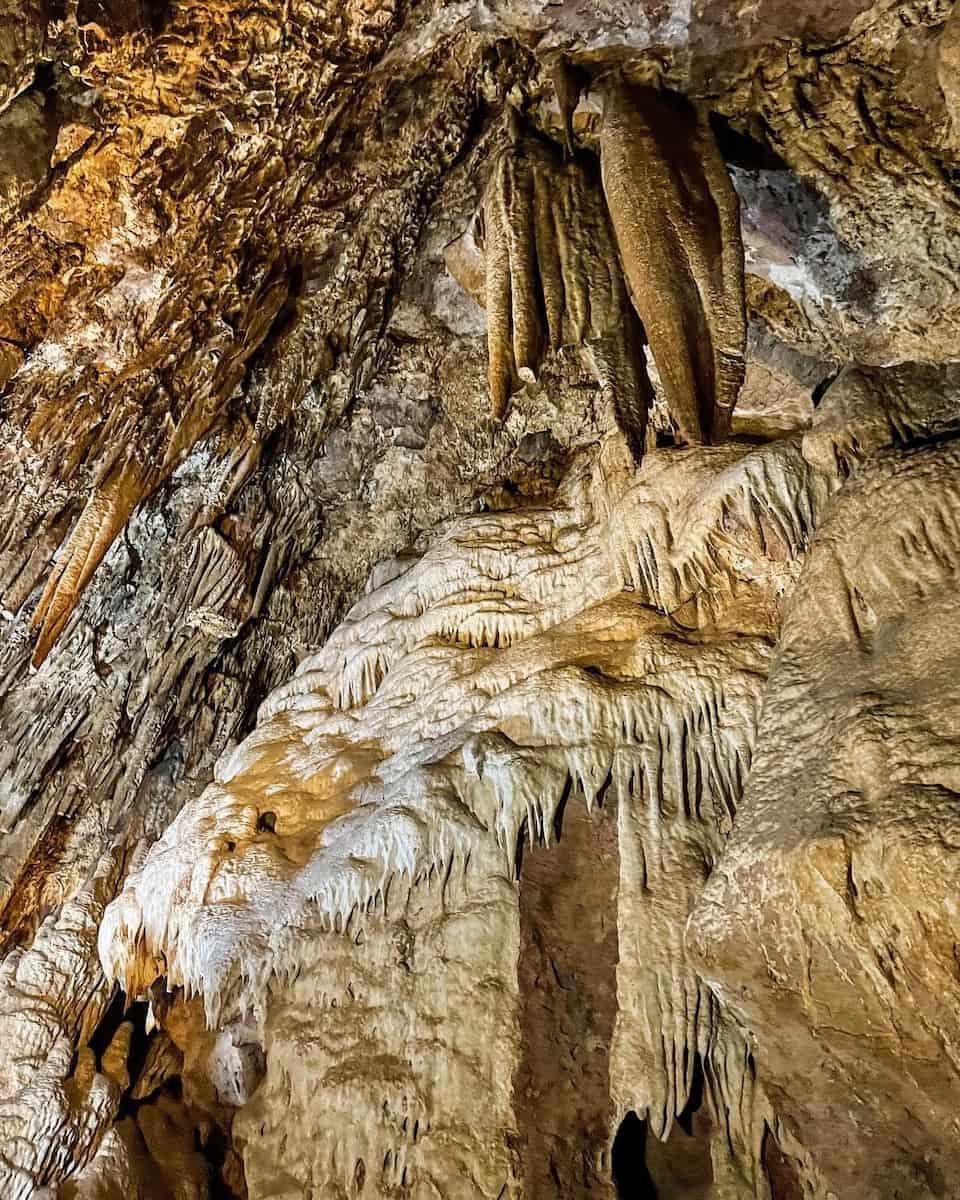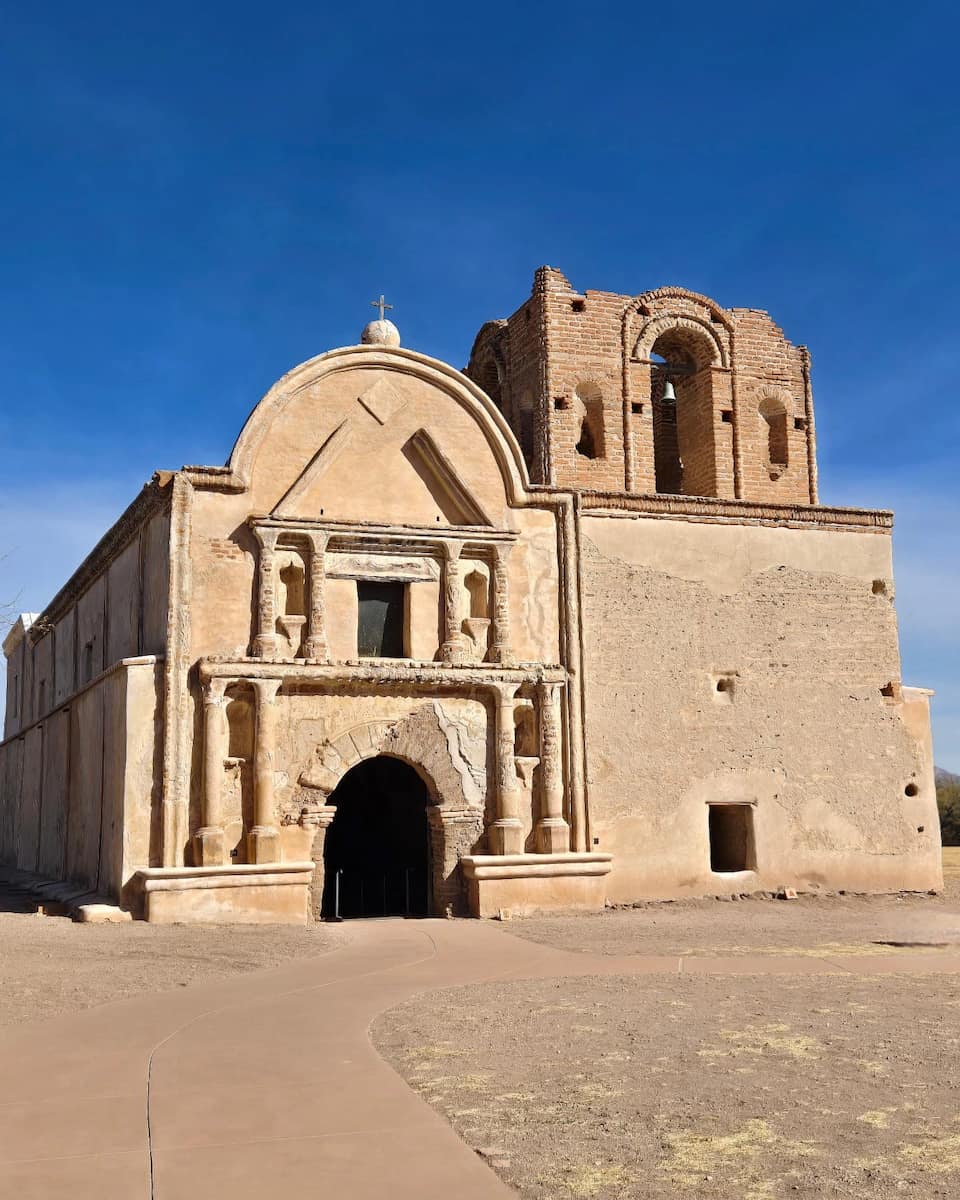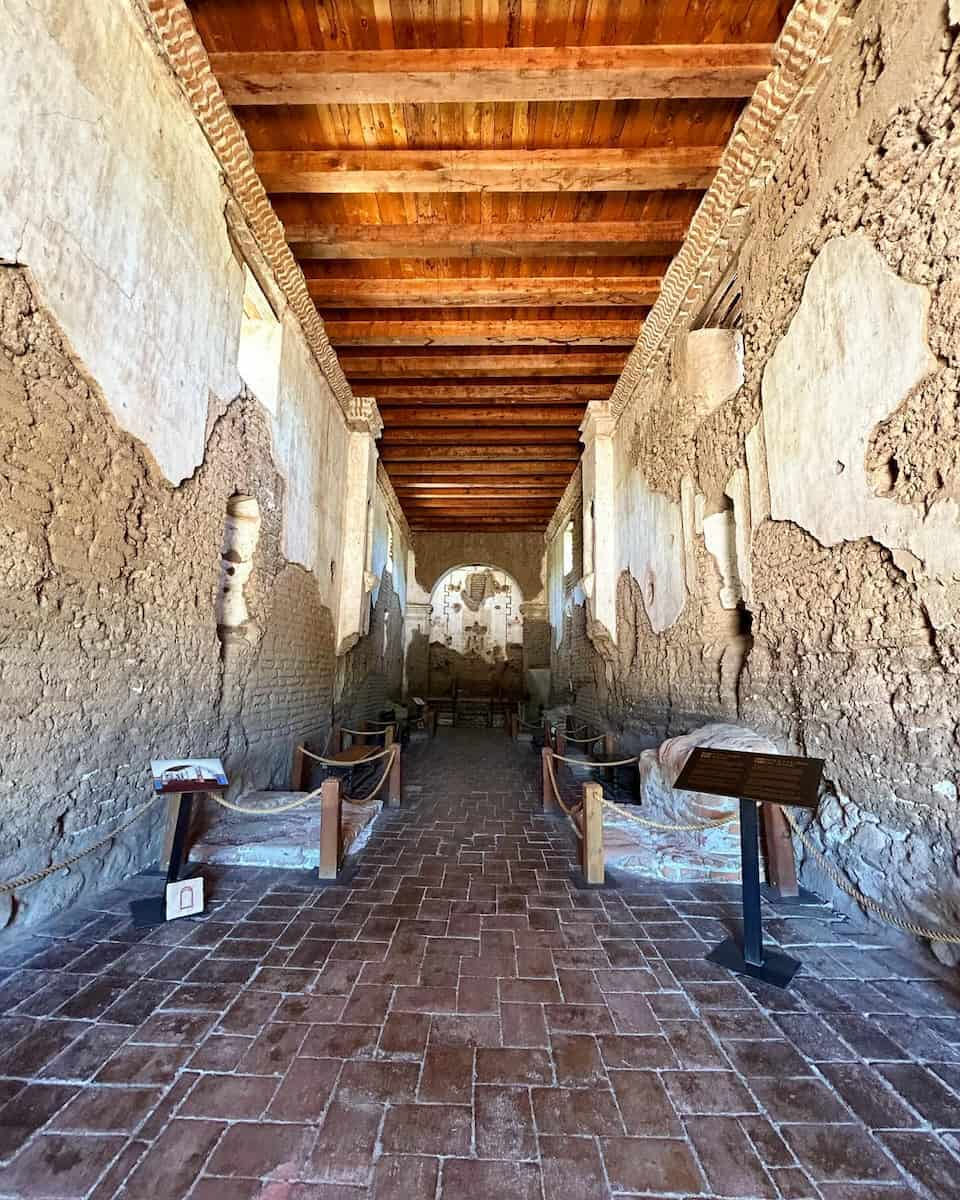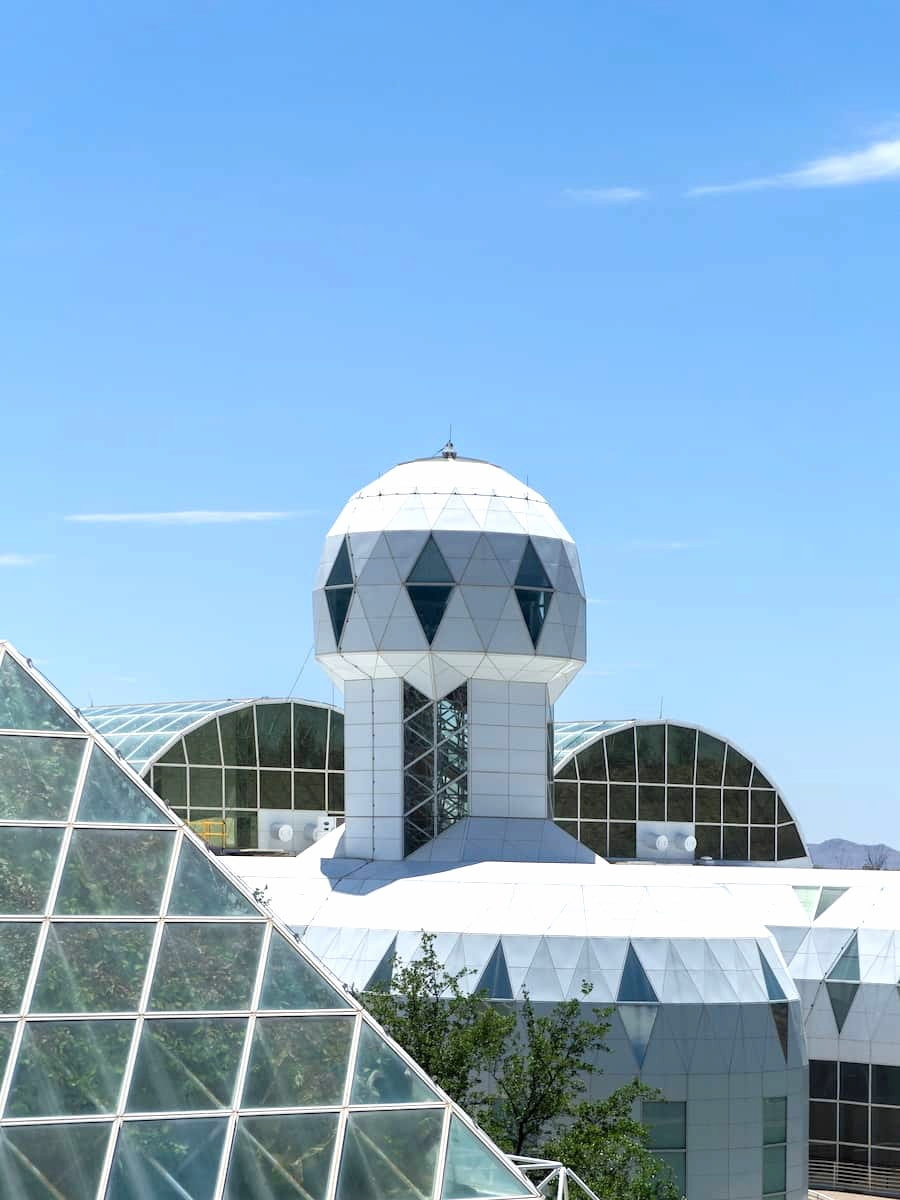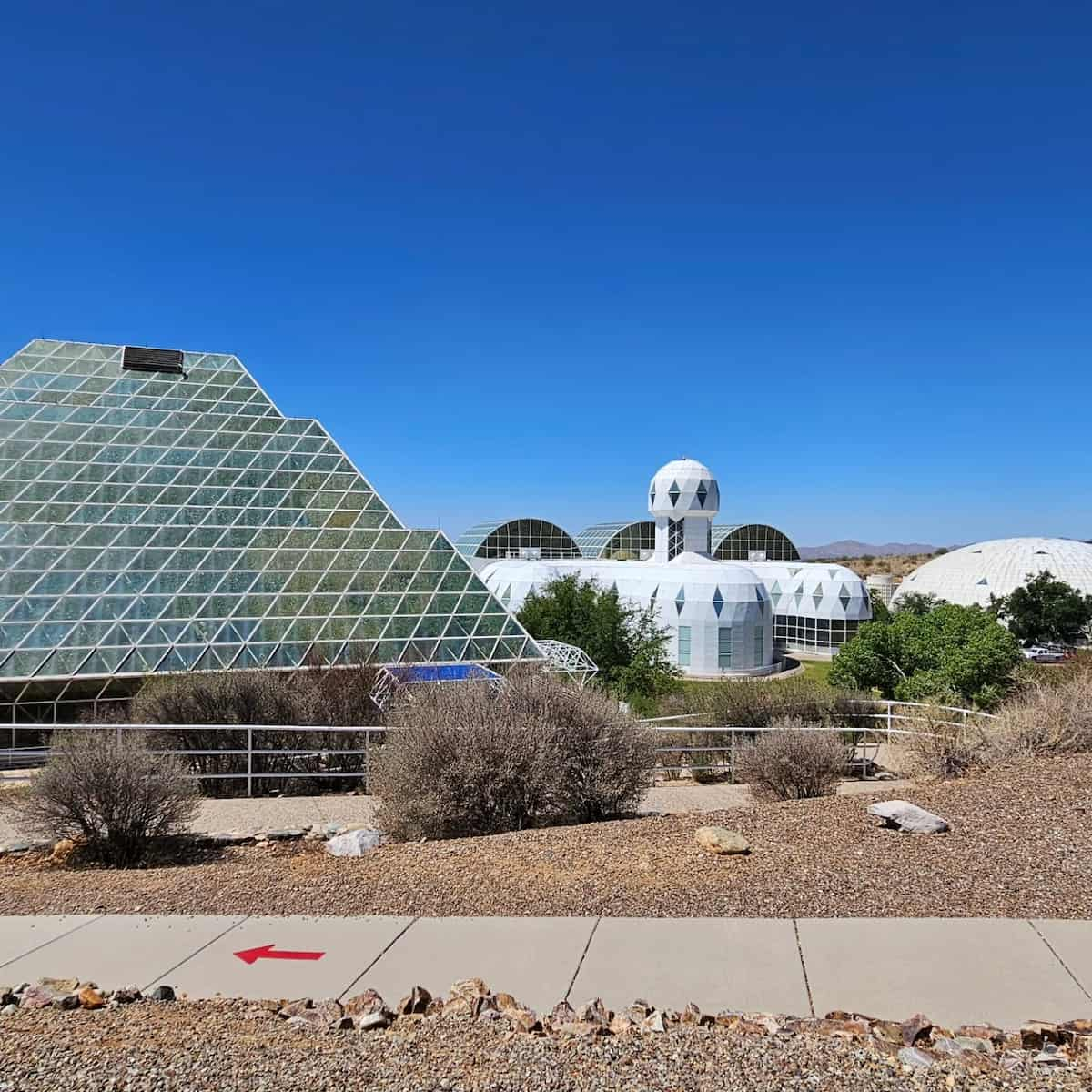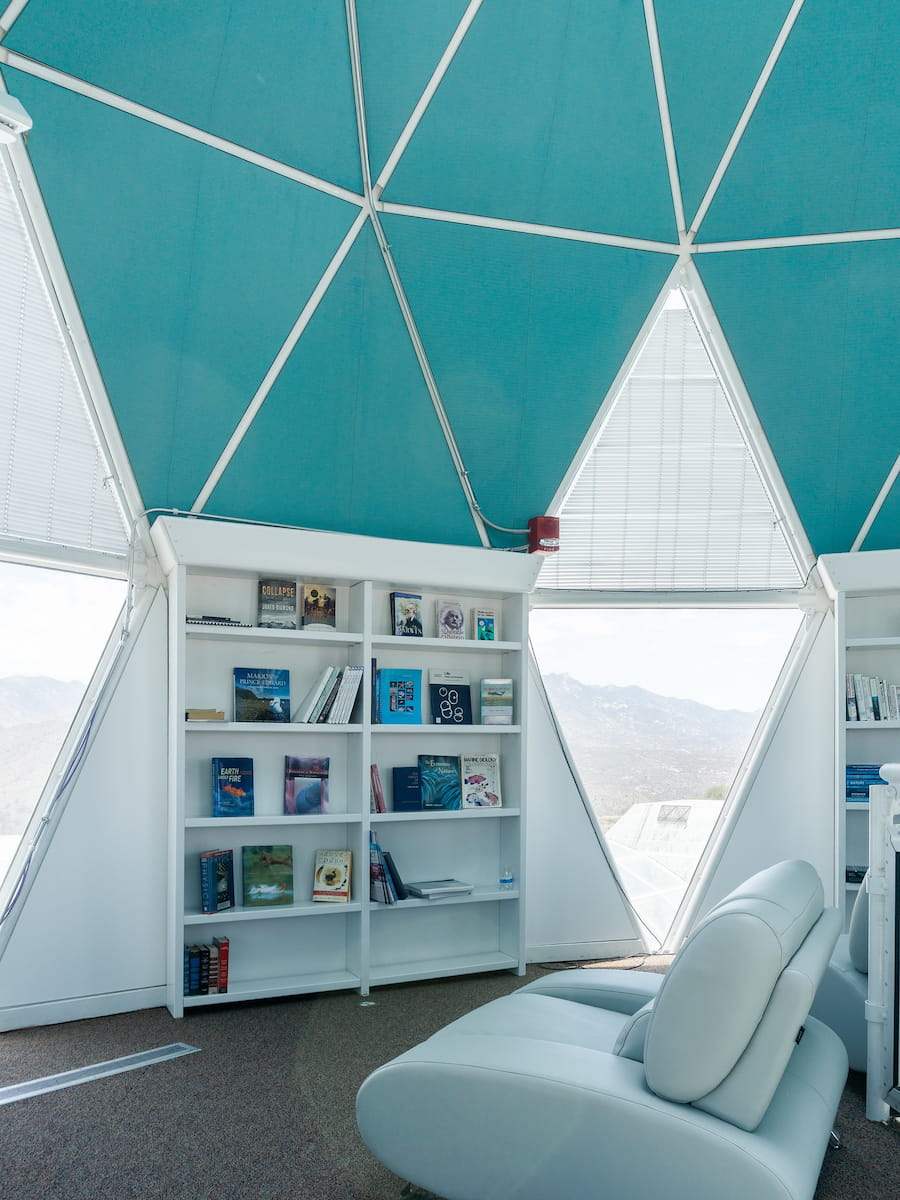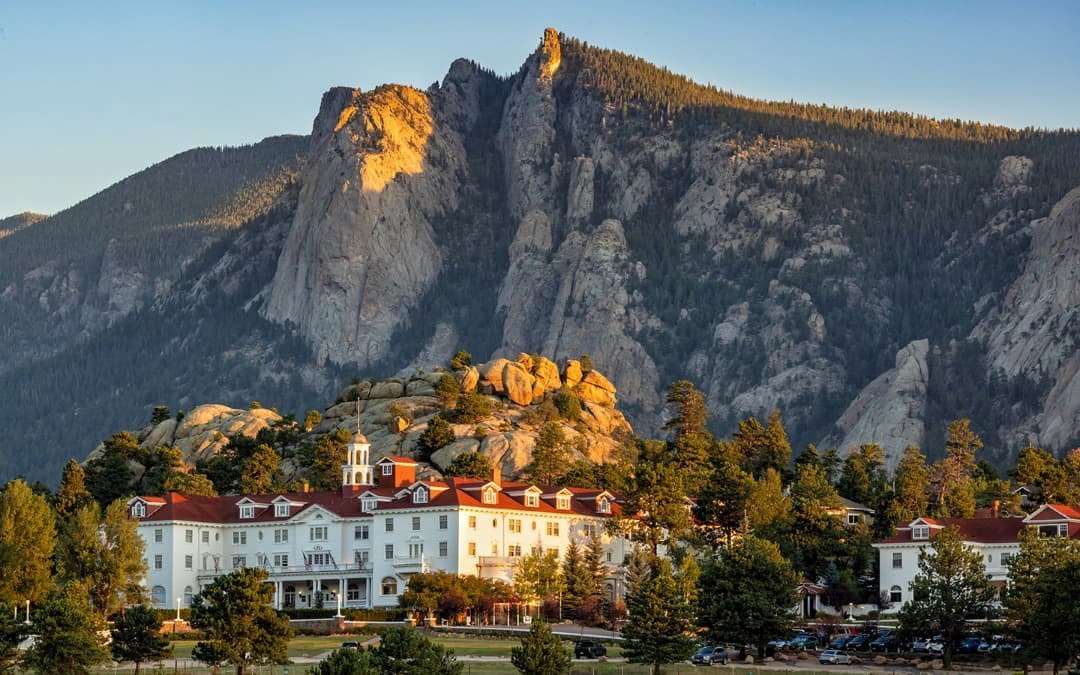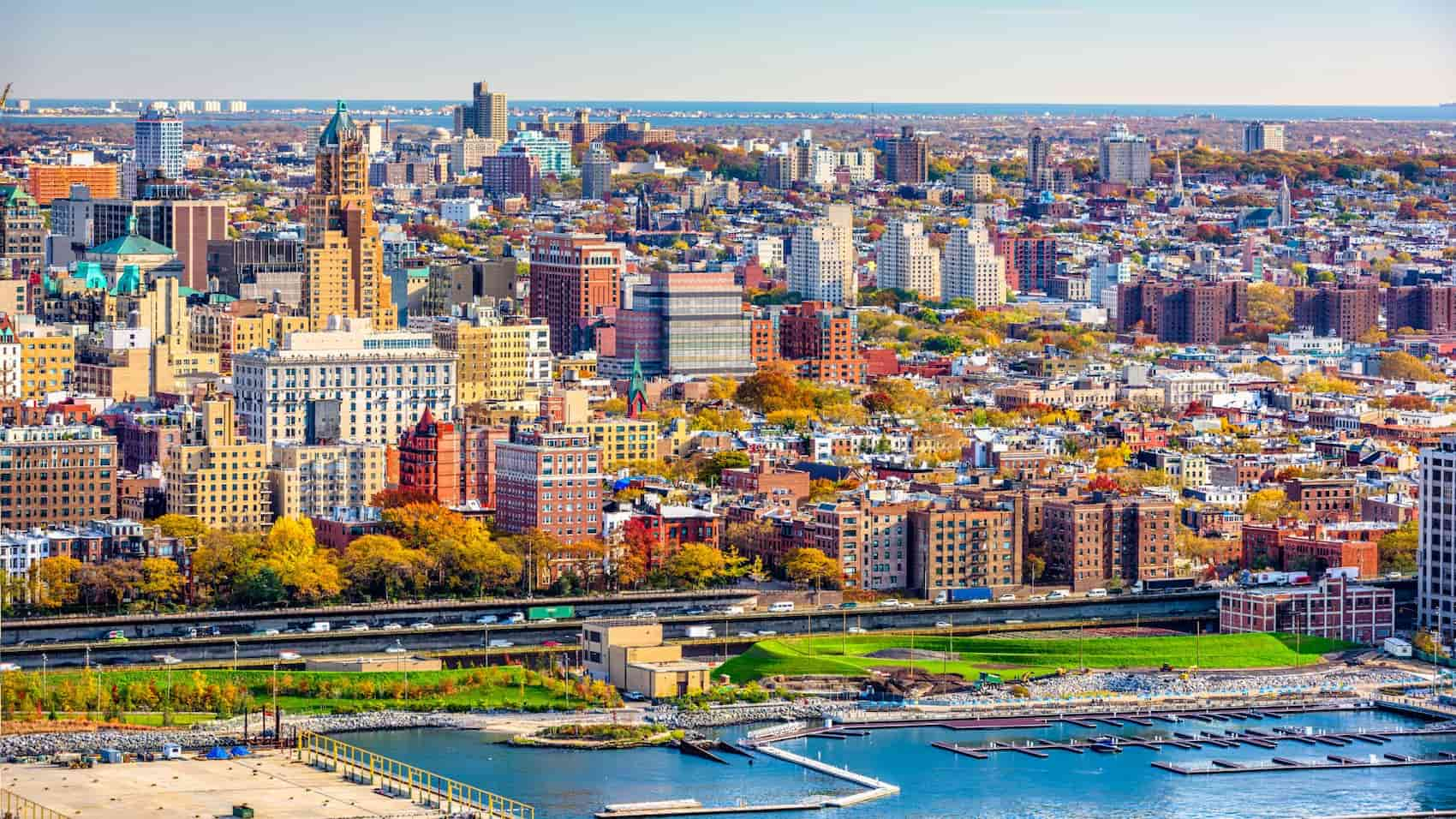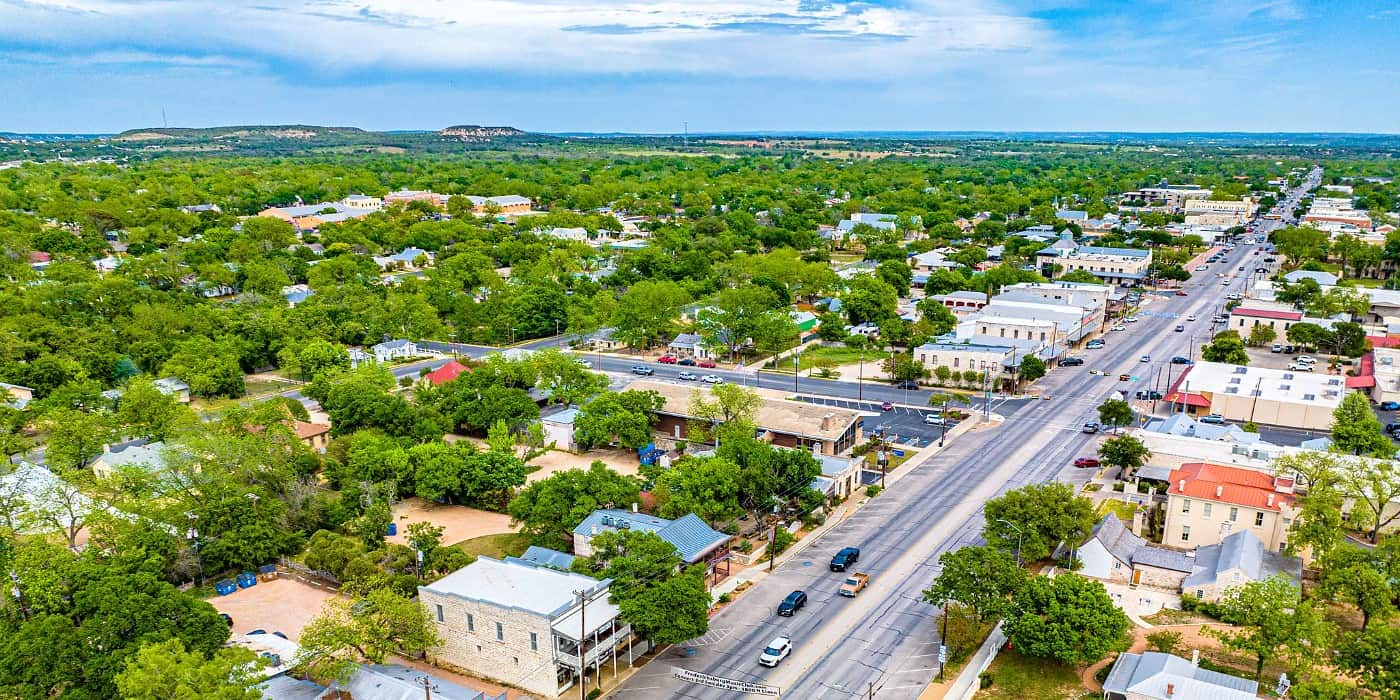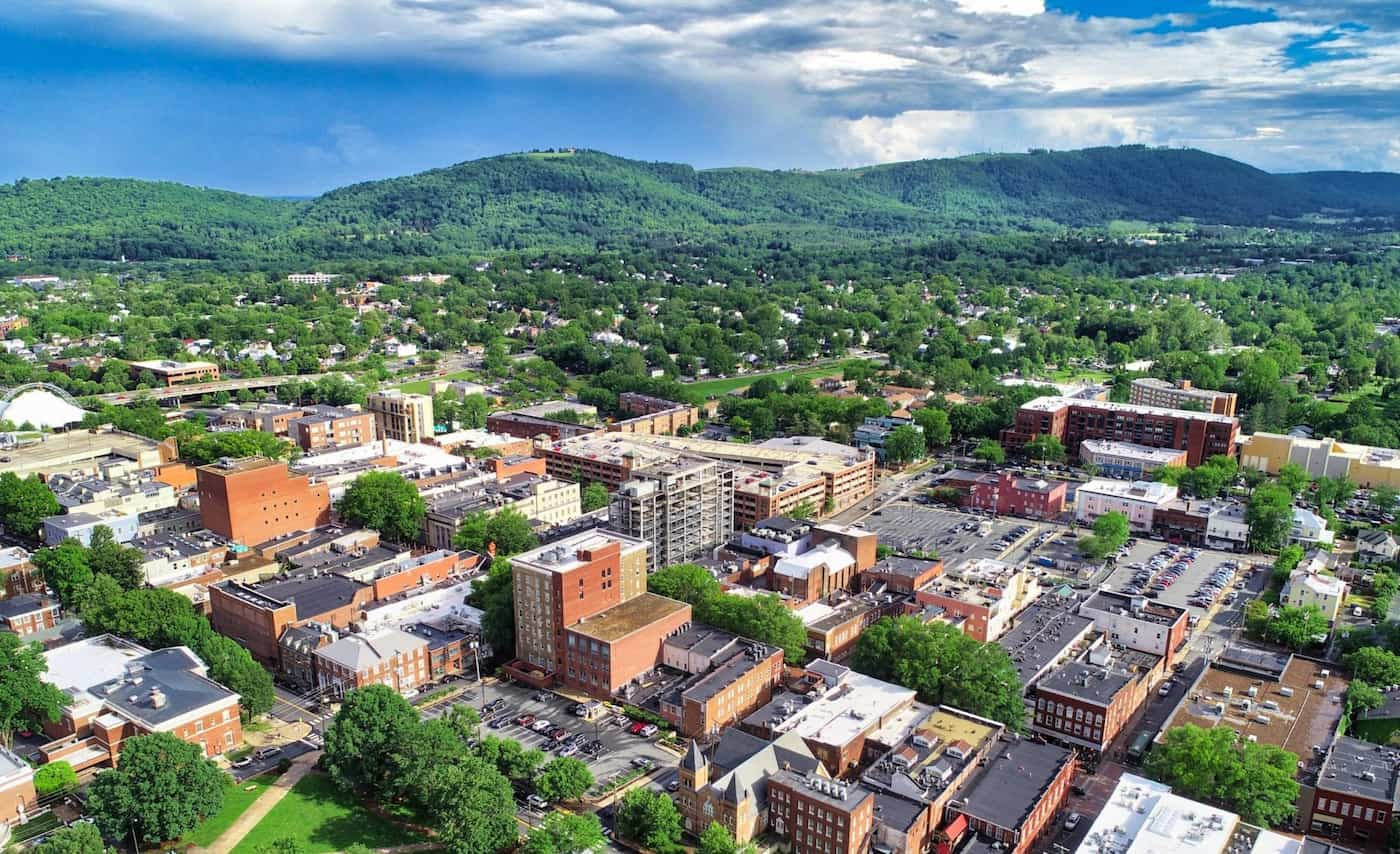Thinking about heading to Tucson? You’re in for a treat! This guide is your ticket to everything you need to know before you go — packed with the best places, must-try activities, top restaurants, and local tips that only an experienced traveler (like me!) would share. Whether you want the inside scoop on iconic sights or family-friendly fun, outdoor adventures, and even hidden gems that make Tucson so special.
What sets Tucson apart? Imagine vibrant sunsets over saguaro-studded deserts, a downtown buzzing with creativity, and a culinary scene influenced by Mexican, Native American, and frontier traditions. Whether you’re craving a hike through cactus forests, a stroll past colorful murals, or a taste of Sonoran hot dogs, this city delivers a blend of nature, culture, and flavor you won’t find anywhere else.
🏠 Where to Stay in Tucson
- 💎 Luxury Hotel: The Blenman Inn
- ✨ 5-Star: JW Marriott Tucson Starr Pass Resort
- 🏨 4-Star: Embassy Suites by Hilton Tucson East
- 🛏️ 3-Star: Holiday Inn Express & Suites Tucson by IHG
- 💸 Cheap: Best Western InnSuites Tucson Foothills Hotel & Suites
- 🏢 Apartment: Home2 Suites By Hilton Tucson Airport, Az
- 👨👩👧👦 For Families: WaterWalk Extended Stay by Wyndham Tucson
- 🏩 For Couples: Baymont by Wyndham Tucson Airport
💁 Best Guided Tours
- Canyoneering Half-Day Private Experience from $200 (⭐️5.0/5)
- Secret Foods Tours Tucson from $85 (⭐️4.9/5)
- Saguaro National Park East E-Bike Tour from $149 (⭐️4.8/5)
- Half-Day Rock Climbing from $185 (⭐️5.0/5)
- Oasis Tour of Tucson from $95 (⭐️4.8/5)
Best Things to Do in Tucson
1. Arizona-Sonora Desert Museum
First Impressions. The first time I visited the Arizona state museum – Sonora Desert Museum, I was blown away by how it blends a zoo, botanical garden, exhibition, natural history museum, and even an aquarium — all in one place. Located just west of Tucson at 2021 N Kinney Rd, this 98-acre wonder is mostly outdoors, so you’re surrounded by the sights, smells, and sounds of the Desert from the moment you step in.
Paths. You can wander along two miles of walking paths through 21 acres of desert habitats. I spotted mountain lions, coyotes, javelinas, and bighorn sheep — each in naturalistic enclosures. Bird lovers, don’t miss the hummingbird aviary and the larger walk-through aviary. There’s also a fascinating cave exhibit with bats, gems, and minerals, plus an aquarium that explains how the Gulf of California shapes the desert. Kids always seem to gravitate to the Packrat Playhouse and the Stingray Touch pool.
Sensory Details. The scent of creosote and blooming desert plants fills the air. I remember the crunch of gravel underfoot and the thrill of seeing a Gila monster sunning itself on a rock. The sun can be intense — bring a hat and water, and plan for shade breaks. The docents here are friendly and love to share stories about the desert’s plants and animals.
Admission Prices
Best Time to Visit. Go early in the morning, especially from March to September, when the desert heat is less intense. Most animal feedings and expert talks happen before 2 p.m., so plan to arrive soon after opening. The museum is open every day, usually from 8:30 a.m. to 5:00 p.m..
⭐️ Best Activities
- When Nature Calls - Exploring the Sonoran Desert – Discover the Desert’s beauty with visits to the Arizona-Sonora Desert Museum, Saguaro National Park, and Mission San Xavier del Bac. Learn about local history, flora, and fauna from expert guides on this immersive 6–7 hour tour. Lunch included!
2. Pima Air & Space Museum
Aviation Wonders. If you love big machines or just want to see something truly unique in Tucson, the Pima Air & Space Museum is a must. I wandered through rows of historic planes — over 400 aircraft, from the tiny Wright Flyer replica to a massive Boeing 787 Dreamliner. You’ll find military jets, commercial airliners, and even spacecraft, all spread across 80 acres just southeast of downtown Tucson. The scale is jaw-dropping: six huge hangars and a sprawling outdoor airfield.
Exploring the Grounds. Most of the planes are outside, so I recommend arriving early, especially in summer. Tucson’s heat is no joke! I wore sturdy shoes and brought a hat, which made wandering the dusty paths between bombers and fighter jets much more comfortable. Inside, you’ll find gems like the SR-71 Blackbird and the B-17 “Sentimental Journey.” There’s also a Space Gallery, where you can see a moon rock and a replica Hubble Telescope.
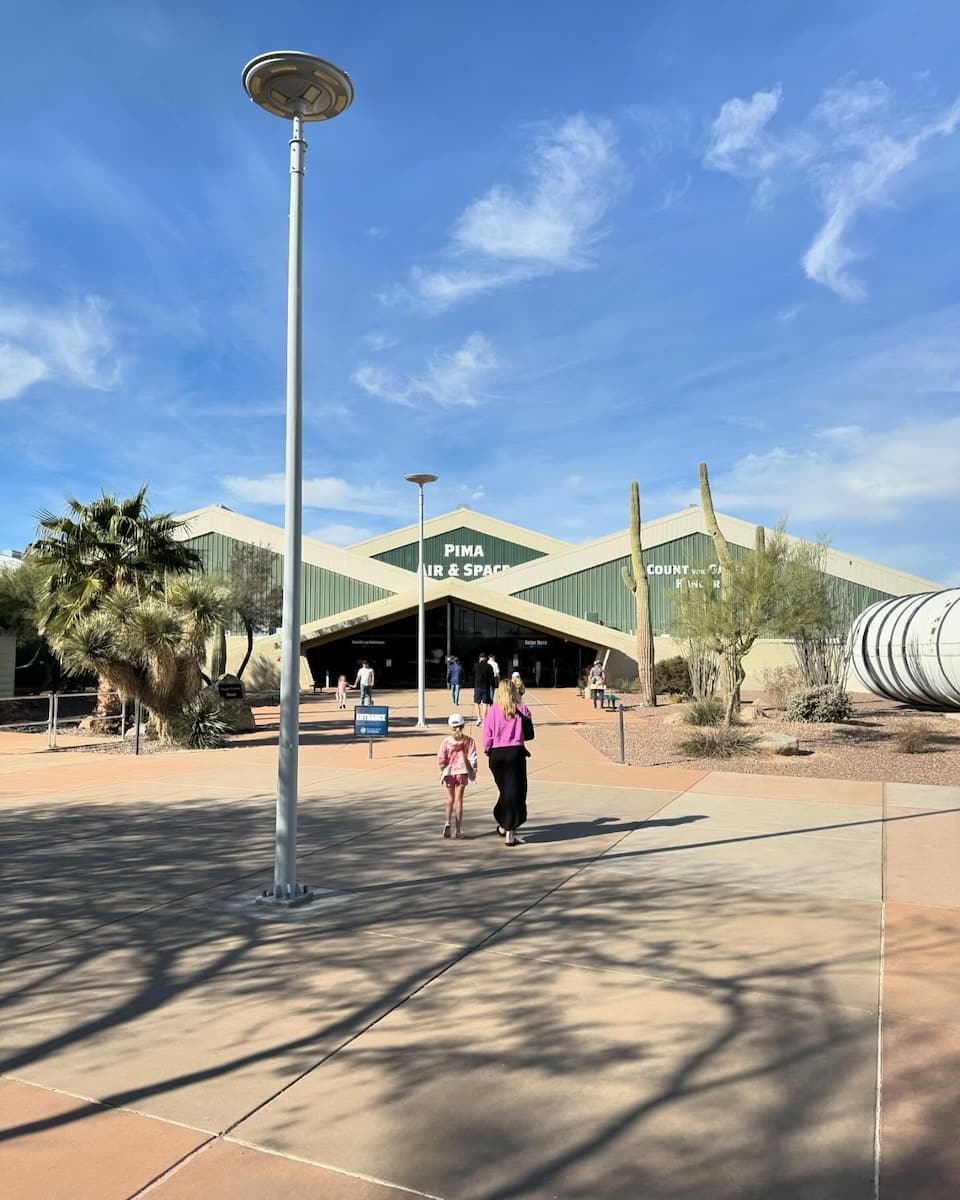
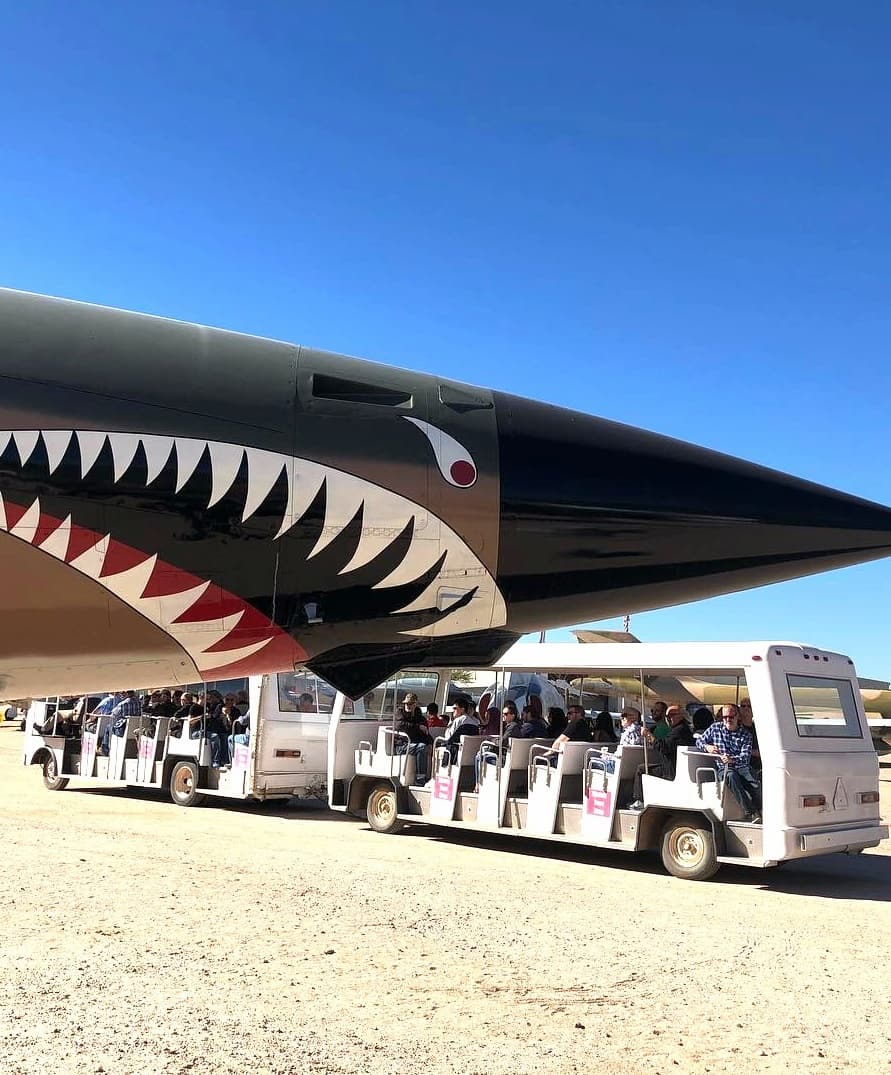

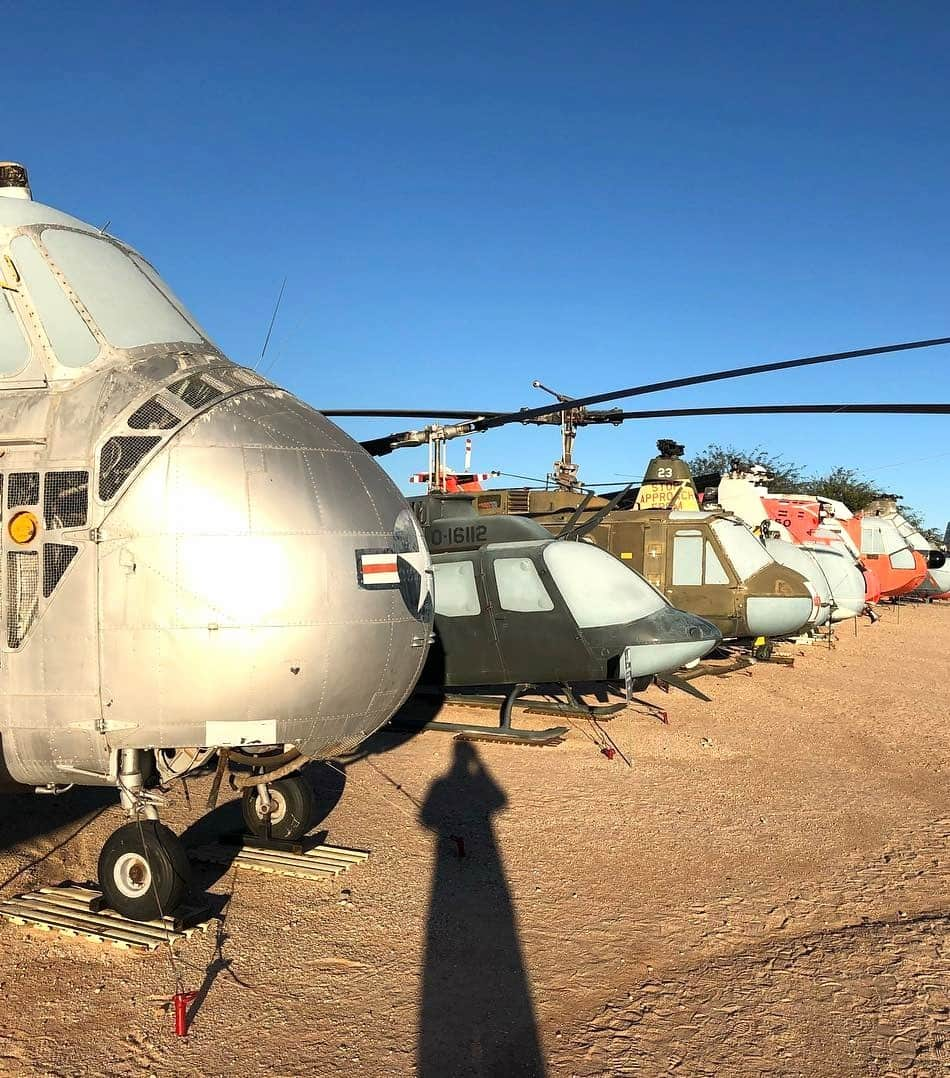
Experiences. If walking isn’t your thing or you want to hear more stories, hop on the narrated tram tour (for an extra fee). The guides share fascinating facts and point out rare aircraft you might otherwise miss. I skipped it to get up close to the planes, but next time, I’ll definitely ride — especially on a hot day.
Highlights:
- SR-71 Blackbird: Feel the speed just by standing next to it.
- B-17 Flying Fortress: Sometimes open for tours or even flights.
- Presidential Gallery: See a Boeing 707 used by JFK.
- 390th Memorial Museum: Stories of WWII bomber crews.
- Space Gallery: Touch a real moon rock!
Practical Info. Here’s what you need to know before you go:
| Ticket Type | 1 Day (USD) | 2 Day (USD) |
|---|---|---|
| Adult (13+) | $22.50 | $29.00 |
| Military/Veteran | $20.50 | $27.00 |
| Pima County Resident | $18.25 | $23.25 |
| Senior (65+) | $19.75 | $25.75 |
| Junior (5–12) | $16.00 | $18.50 |
| Child (0–4) | Free | Free |
3. Sabino Canyon Recreation Area
Adventures. Sabino Canyon is my go-to spot when I crave adventure and Desert beauty. The moment you step out of the car, you’re surrounded by towering saguaros, rugged mountains, and the soothing sound of Sabino Creek. The air is fresh, and the sunlight bounces off the canyon walls — perfect for a morning hike, a family picnic, or just soaking up the desert vibes.
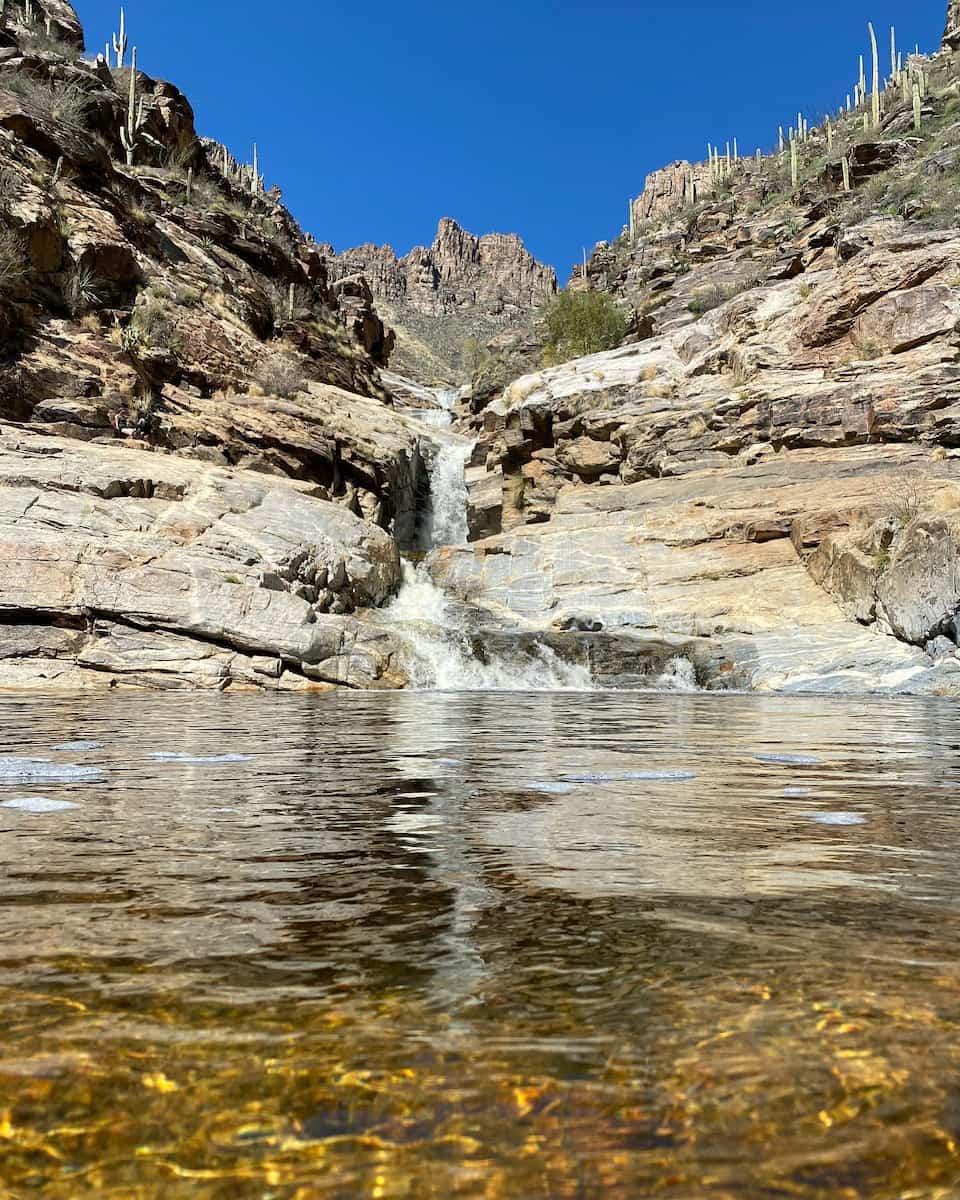
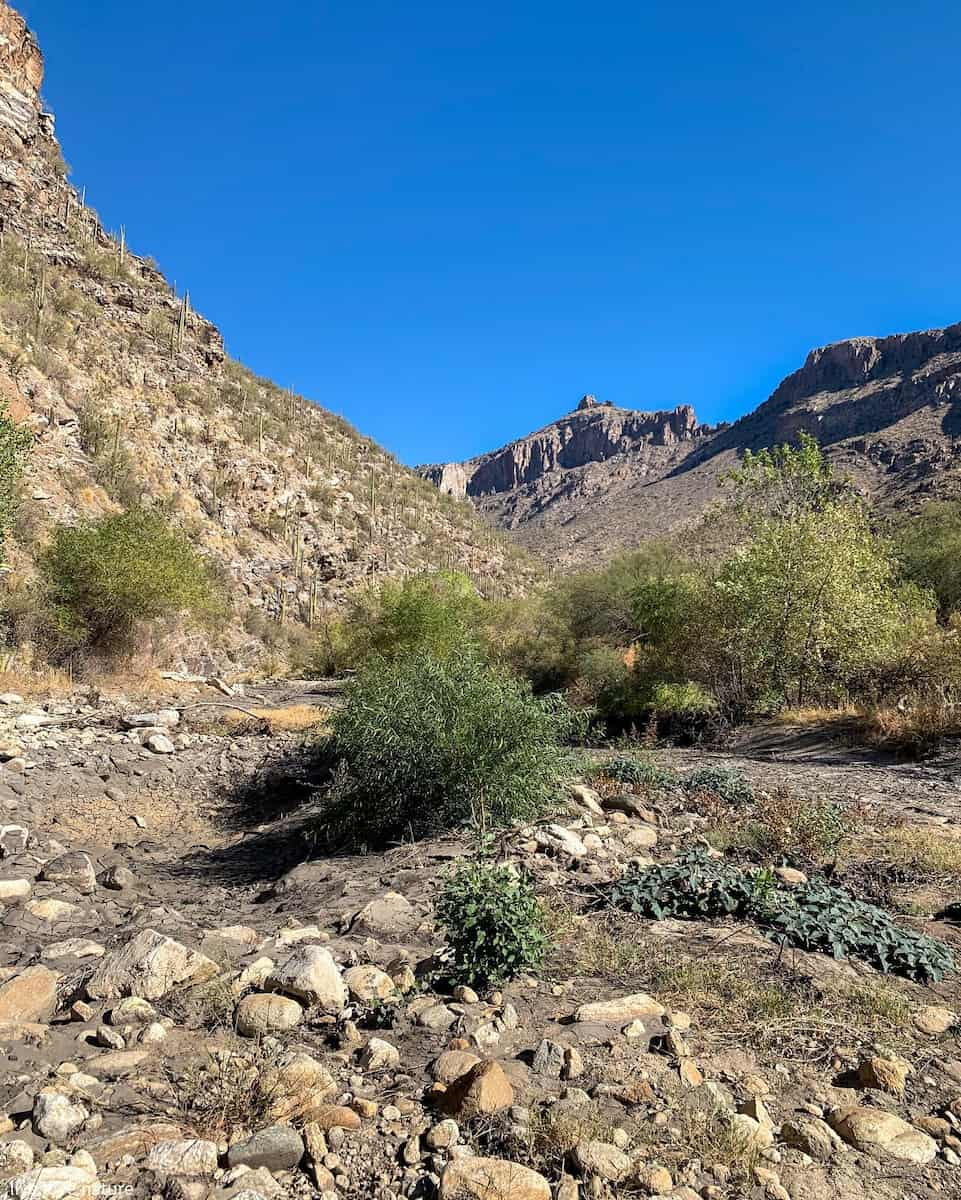
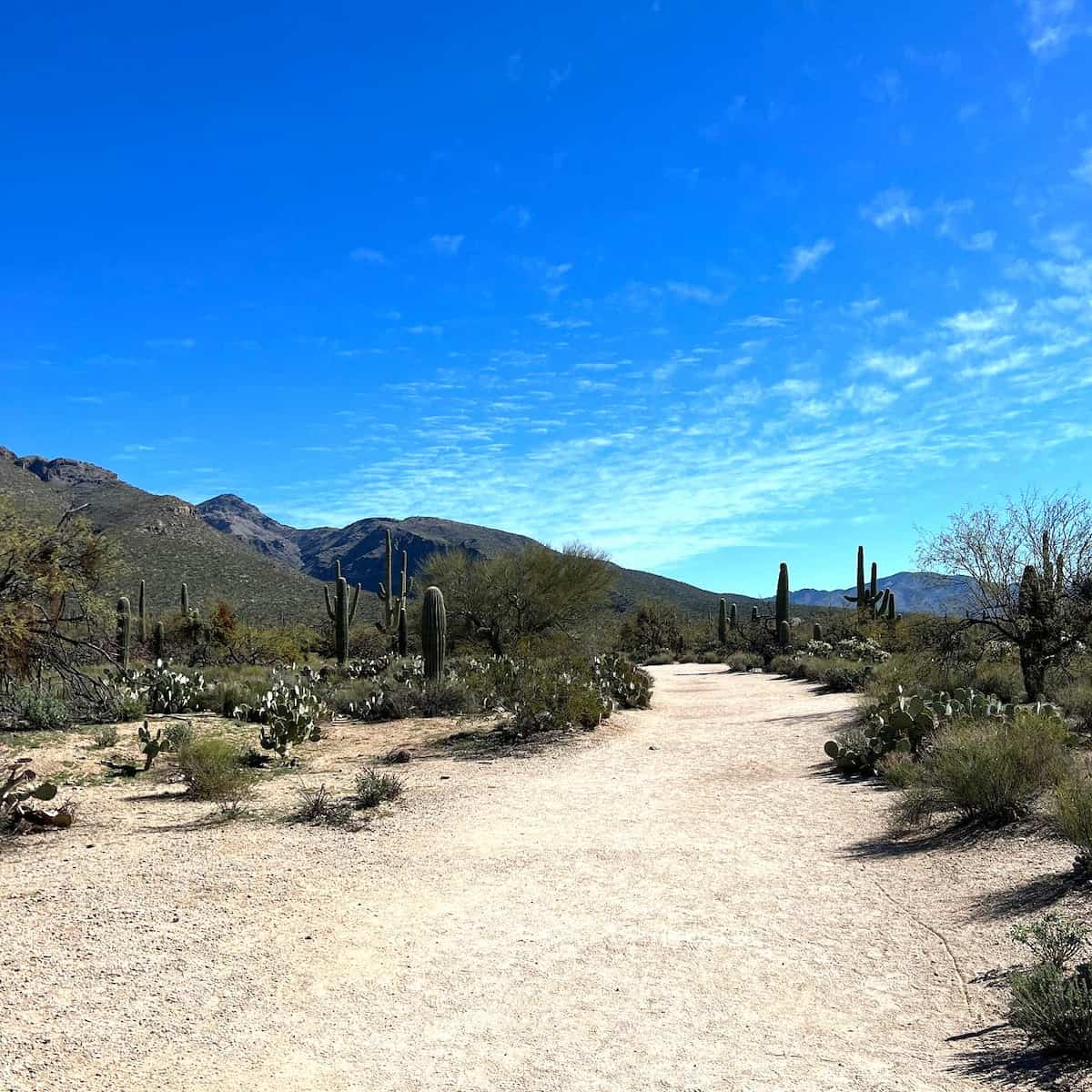
Hiking Trails. Whether you’re a beginner or a seasoned hiker, Sabino Canyon has a trail for you. I’ve tried the easy Bajada Loop Nature Trail (0.2 miles/0.3 km) for a quick nature fix, and on bolder days, I tackled the Bear Canyon Trail to Seven Falls (8.4 miles/13.5 km roundtrip). There are more than 30 miles of trails, including the moderate Sabino Dam Trail (2.5 miles/4 km) and the challenging Blackett’s Ridge (1.5 miles/2.4 km, steep switchbacks). Signs at the trailheads make it easy to pick your route.
Canyon. Not up for a long hike? Hop on the Sabino Canyon Crawler, an electric shuttle that winds 7.4 miles (12 km) into the canyon. The narrated ride takes about one hour round trip, crossing nine stone bridges and offering plenty of chances to hop off and explore. I love using the shuttle to reach deeper parts of the canyon or to rest my legs after a long trek.
Budget Tip. If you have an “America the Beautiful” national park pass, your entry fee is waived, but you’ll still need to pay for the shuttle. For everyone else, pay the $8 (about €7.50) per vehicle at the entrance. You can pay by cash, card, or even scan a QR code with your phone. Dip in the Pools. Nothing beats dipping your toes in Sabino Creek, especially during the hot months. I’ve found hidden swimming holes like Hutch’s Pool and The Crack — perfect for cooling off after a hike. The Sabino Dam area is a family favorite, and you can reach it easily by tram or on foot. ⭐️ Best Activities Changing Landscapes. Driving the Mount Lemmon Scenic Byway is like traveling through several worlds in just 27 miles. I started in the heart of the Desert, surrounded by towering saguaros and rocky outcrops. As I climbed higher, the scenery shifted — first to oak woodlands, then to cool pine forests. By the time I reached the summit near Summerhaven, the air was crisp, and the landscape looked more like Colorado than Arizona. The temperature dropped from a blazing 35°C (95°F) in Tucson to a refreshing 19°C (67°F) at the top. Photo Stops & Views. There are plenty of pullouts along the Catalina Highway (also called the Sky Island Scenic Byway). My favorites were Windy Point Vista — perfect for panoramic photos — and Rose Canyon Lake, where you can stretch your legs or have a picnic. Don’t rush: the best part is stopping often to soak in the views and snap a selfie with the rock formations or pine trees. Hiking & Outdoor Fun. Mount Lemmon is a playground for outdoor lovers. I tackled the Aspen Trail (a moderate 4-mile loop) and the easy Meadow Trail near Ski Valley. If you’re into mountain biking, the Aspen Draw and Kellog/Incinerator Ridge trails are legendary for their twists and turns. Climbers will love Windy Point’s granite pinnacles — watching them scale the rocks is a show in itself! Summerhaven & Ski Valley. At the top, the little village of Summerhaven is a surprise. There’s a general store, a couple of places to eat, and a friendly, small-town vibe. In winter, Ski Valley becomes the southernmost ski resort in the U.S., with more than 20 trails. In summer, you can ride the ski lift for epic views or just enjoy a slice of pie in the shade of the pines. Info. Here’s what you need to know before you go: ⭐️ Best Activities History and Atmosphere. When I first saw Mission San Xavier del Bac — known as the “White Dove of the Desert” — I felt like I’d stepped into another world. The gleaming white church rises from the Sonoran landscape, just 10 miles southwest of downtown Tucson, at 1950 W San Xavier Rd. Built between 1783 and 1797, this National Historic Landmark is a blend of Spanish, Mexican, and Tohono O’odham cultures. The mission is still an active Catholic parish and a place of pilgrimage, where Indigenous, Latino, and European traditions come together in daily life. Exploring the Mission. Inside, you’ll be wowed by the ornate Mexican Baroque architecture. Frescoes and colorful paintings cover nearly every surface, telling stories of faith and history. The altar, with its intricate wood carvings, is a highlight. I always recommend joining a free docent-led tour (Monday–Saturday, 9:15am–12:15pm) for a deeper look at the art, architecture, and restoration work — no need to book ahead, but check the schedule before you go. Museum and Gift Shop. The small onsite museum (open 9am–4pm) displays religious artifacts and explains the mission’s role in Tucson’s heritage. The gift shop is a great spot for unique crafts and souvenirs, including Native and religious items. Don’t miss the open-air market outside, where you can try the famous Indian fry bread — crispy, warm, and dusted with sugar. Practical Info. Admission is free, but donations are appreciated to help preserve the site. Here’s a quick look at what you might spend: ⭐️ Best Activities Wild West Adventures. When I first stepped into Old Tucson, I felt like I’d wandered onto a real movie set — and that’s because I had! This place is a living, breathing Wild West town where over 500 movies and TV shows were filmed, including classics like Tombstone and Three Amigos. Walking down the dusty main street, you’re surrounded by historic sets, wooden saloons, and the echoes of legendary outlaws like Wyatt Earp and Jesse James. Live Shows & Entertainment. The energy here is contagious. Throughout the day, you can catch action-packed stunt shows, slapstick comedy, and even can-can dancers at the Hotel Del Toro. My personal favorite? The High Noon Duel — nothing like a staged gunfight to get your heart racing! Friendly Attractions. Old Tucson is packed with fun for all ages. I watched kids giggle as they rode the 1907 carousel, tried their hand at roping a calf, and panned for gold. The petting zoo and Pony Express ride are always a hit with little buckaroos. Don’t miss: Movie Magic. If you’re a film buff, Old Tucson is a goldmine. I joined a backstage tour and learned about the stunts, costumes, and famous scenes shot right here. The guides are full of stories — ask about the time Val Kilmer filmed his iconic “I’m your huckleberry” line on these very streets. Seasonal Events. Old Tucson transforms with the seasons. In spring, the Great Bring Spring festival fills the park with extra games and food. October brings “Nightfall,” a spooky Halloween experience with haunted mazes and magic shows. During the holidays, the park becomes a Wild West Winter Wonderland, complete with lights, carolers, and festive shows. Admission Prices ⭐️ Best Activities A Lush Escape. Right in the heart of Tucson, I found a true oasis: the Tucson Botanical Gardens at 2150 N Alvernon Way. It’s not just a garden — it’s a living showcase of the Desert’s wild beauty, with over 20 themed gardens packed into just 5.5 acres. The moment I stepped in, I was greeted by blooming vines and the scent of herbs. Mature trees cast cool shadows, making even the hottest Tucson days feel comfortable. Diverse Gardens. You can stroll through the Cactus & Succulent Garden, Barrio Garden, Herb Garden, Aloe Alley, and even a Children’s Garden. My favorite? The Pollinator Garden, buzzing with bees and butterflies, and the Cactus and Succulent Garden, where golden barrel desert plant and feather plant steal the show. Every plant is labeled, so you’ll leave knowing your prickly pears from your saguaros. Butterfly Magic. From October to May, don’t miss the Cox Butterfly and Orchid Pavilion. Imagine hundreds of butterflies from Costa Rica, Africa, and Southeast Asia fluttering all around you, landing on orchids and even, if you’re lucky, on your shoulder. I watched a chrysalis split open — pure magic! The pavilion is warm and humid, a tropical world inside the desert. Art and Classes. This isn’t just about plants. I always check out the rotating art exhibits and join a class if I have time — everything from watercolor painting to crafting aromatic honey. There are also self-guided audio tours; I highly recommend the Native Crops Garden tour for a deeper look into Tucson’s agricultural roots. Edna’s Eatery. After wandering, I love to grab lunch at Edna’s Eatery. The menu is Sonoran-inspired, and the herbs often come straight from the garden. Sitting outside, I listen to birds while sipping a cold drink — bliss! Admission and Hours ⭐️ Best Activities Walking the Trail. I set out to explore the Turquoise Trail — a 2.5-mile loop that winds through downtown Tucson, connecting more than 25 historic sites, museums, and public art spots. You can start at the Presidio San Agustín del Tucson Museum (196 N Court Ave), where you’ll find free trail maps and helpful volunteers. Just follow the turquoise line painted right on the sidewalk — easy to spot, even if you’re new in town. What to See. Along the way, you’ll pass Spanish Colonial architecture, the stunning Pima County Courthouse, Barrio Viejo’s colorful Sonoran row houses, the Historic Railroad Depot, and quirky public art. My personal favorites are the Presidio Museum (especially on re-enactment days), the El Tiradito wishing shrine, and the murals that bring Tucson’s history to life. There are more than 30 restaurants and cafes along the route — perfect for a pit stop. Guided. You can walk the Turquoise Trail on your own with a brochure (pick one up at the Presidio Museum, Visitor Center, or download a PDF), or join a guided tour led by local experts like Mauro Trejo or Dorothy Yanez. Guided tours bring the city’s stories to life and cost between $20–$35 (about €18–€33), depending on the length and whether you’re a museum member. Some tours even end with a wine tasting at Maynard’s Market — highly recommended for adults! Why It’s Special. The Turquoise Trail isn’t just a walk — it’s a journey through Tucson’s past and present. You’ll see everything from Spanish missions to modern murals, all while soaking up the city’s unique desert vibe. Whether you’re a history buff, a street art fan, or just looking for fun things to do in Tucson today, this trail is a must. ⭐️ Best Activities Desert Oasis. Tohono Chul, which means “desert corner” in the Tohono O’odham language, is one of Tucson’s most peaceful escapes. Located in Casas Adobes, just north of downtown, this 49-acre botanical garden and cultural center is a true Desert experience. I wandered winding paths lined with blooming cactus, native wildflowers, and shady mesquite trees, all while the Santa Catalina Mountains loomed in the distance. Nature and Art. What makes Tohono Chul unique isn’t just the plants — it’s the blend of nature, art, and local culture. As I strolled, I found whimsical sculptures tucked among the prickly pears, and rotating art exhibits in the indoor art spaces. The Geology Wall tells the story of Tucson’s mountains, and the Saguaro Discovery Trail reveals the deep connection between the iconic cactus and local people. Birdwatchers, take note: more than 90 species of birds visit or live in the park, so bring your binoculars! Gardens. Themed gardens like the Ethnobotanical Garden (showcasing plants used by native peoples for food and medicine) and the Desert Living Courtyard (inspiring water-wise landscaping) offer hands-on learning. My favorite? The Night-blooming Cereus collection — if you’re lucky enough to visit on “Bloom Night,” you’ll see hundreds of rare flowers open at once, a true desert spectacle. Events and Experiences. Tohono Chul isn’t just a garden. There are concerts like “Jazz Under the Stars,” art fairs, and family-friendly programs. I once joined a free docent-led bird walk — fun, educational, and a great way to meet locals. If you’re hungry, the on-site Bistro serves up Sonoran-inspired dishes with a view of the gardens. Don’t miss the gift shop for local crafts and desert plants. Admission and Prices Desert Giants. Standing among the towering saguaro cacti in Saguaro National Park, I felt like I’d stepped into a living postcard of the American Southwest. These giants can reach over 50 feet and live for centuries — each one has its own quirky shape. The park is split into two districts: the Tucson Mountain District (West) and the Rincon Mountain District (East), both just outside Tucson, Arizona. Both areas are packed with trails, wildlife, and those iconic cacti you see in every Western movie. Hiking. There’s a trail for everyone here. I started with the easy, educational Desert Discovery Nature Trail in the west district, which is perfect for families and anyone wanting to learn about the Desert. For a bigger challenge, the hike to Wasson Peak (about 8 miles round trip) offers sweeping views and a real sense of accomplishment — just bring plenty of water and sunscreen! The Valley View Overlook Trail is another favorite, offering a short walk with a big payoff: endless desert vistas dotted with saguaro silhouettes. Scenic Drives. If the heat gets intense, I recommend the Bajada Loop Drive (West) or the Cactus Forest Drive (East). Both are scenic routes that wind through dense cactus forests and offer easy access to trailheads and picnic spots. I loved stopping at Signal Hill to see ancient petroglyphs carved by the Hohokam people centuries ago. Ranger Programs. Ranger-led walks and talks are a fantastic way to learn about the park’s plants, animals, and history. I joined a night hike and was amazed by how alive the desert becomes after dark. Saguaro Park is also an Urban Night Sky Place, so stargazing is a must — bring a blanket and look for the Milky Way on clear nights. ⭐️ Best Activities Unique Entertainment. The Gaslight Theatre is not your average night out. I found myself laughing, singing, and even booing the villain — all part of the fun at this family-friendly musical melodrama venue. The shows are packed with energy, and the cast loves to interact with the audience, making every performance feel personal and lively. Show Variety. You’ll find a wide range of performances here, from classic Western parodies like “Back to the West” to tribute concerts and magic shows. The schedule changes often, so there’s always something new to see. I once caught a hilarious musical spoof, and the crowd’s laughter was contagious. Atmosphere and Location. The theatre itself has a cozy, vintage vibe, with tables instead of rows of seats. This setup means you can enjoy snacks and drinks during the show. The staff is friendly and quick to help, adding to the welcoming atmosphere. Ticket Artistic Diversity. The Tucson Museum of Art, located at 140 North Main Avenue in the El Presidio Historic District, surprised me with its mix of modern, contemporary, Latin American, Native American, and Western American art. I wandered through galleries filled with everything from ancient ceramics to bold contemporary paintings. The museum’s historic adobe buildings and outdoor courtyards create a unique setting — perfect for both art lovers and anyone curious about Tucson’s creative side. Visitor Experience. I found the staff friendly and knowledgeable, always ready to answer questions about the exhibits. The museum isn’t huge, but the quality of the collections makes up for its size. I especially enjoyed the outdoor sculpture garden and the interactive Creative Space for families. Some areas could use better lighting, but overall, the atmosphere is inviting and relaxed. If you’re lucky, you might catch live music echoing up the museum’s circular ramp during special events. Admission and Opening Hours Personal Recommendation. Take time to stroll the museum’s historic block, then relax in the shady courtyard with a coffee. The blend of art, history, and Southwest charm makes the Tucson Museum of Art a highlight of any Tucson itinerary. Family Fun. Catalina State Park is a fantastic place for families. I’ve seen kids get excited spotting lizards on the Nature Trail or learning about ancient Hohokam ruins on the Romero Ruins Interpretive Trail. The picnic areas have shaded tables and grills, so it’s easy to bring a lunch and make a day of it. There’s even a Junior Ranger program — ask at the visitor center for an activity booklet and your child can earn a badge. Photography Hotspots. The golden hour here is magical. I always bring my camera for sunrise or sunset shots — especially after a rain when the mountains glow pink and the cacti sparkle with drops of water. The Romero Pools, about 3 miles up the Romero Canyon Trail, are a favorite spot for photos and a quick dip if there’s been rain. Events and Programs. I always check the park’s event calendar before visiting. Some highlights: Price Campus Life. The University of Arizona campus in Tucson feels like its own red-brick city, filled with green spaces and buzzing with energy. I was struck by how friendly everyone was — students, staff, even the squirrels seemed relaxed. There’s always something happening, whether it’s a student event on the UA Mall or a spontaneous game of frisbee on the grass. Museums and Culture. I started my visit at the Arizona State Museum. It’s right on campus and has the world’s largest collection of Southwestern Native American pottery and basketry. The Center for Creative Photography is a must for art lovers, showcasing works by legends like Ansel Adams. For a different vibe, the UA Museum of Art offers over 5,000 pieces, from Renaissance paintings to modern sculptures. Science and Discovery. The Flandrau Science Center & Planetarium blew me away. I watched a planetarium show for just $16 (about €15), and the interactive exhibits made me feel like a kid again. Downstairs, the Gem & Mineral Museum sparkled with stones from around the world. If you’re into astronomy, the Richard F. Caris Mirror Lab offers fascinating tours where you can see giant telescope mirrors being made. Fun for Families. UA isn’t just for students. Families can enjoy planetarium shows, hands-on science exhibits, and even live theater at Centennial Hall. The Arizona Repertory Theatre puts on affordable, high-quality productions year-round. Impressions. Walking up to the Cathedral Basilica of St. Augustine, I was struck by its bold Spanish Colonial and Renaissance Revival architecture. The cathedral stands proudly on 38 Cathedral Place, right in the heart of St. Augustine’s historic district. With its six-story bell tower and thick coquina stone walls, it’s easy to see why this is one of the most treasured landmarks in Florida. Piece of History. This isn’t just another old church. The congregation dates back to 1565, making it the oldest Christian parish in the continental United States. The current building, finished in 1797, has survived fires, hurricanes, and centuries of change. Inside, the deep red ceiling, gold-leaf statues, and hand-carved altar make every corner feel special. I took my time admiring the murals by Hugo Ohlms, which tell stories from the city’s Catholic heritage and the arrival of the Minorcans. Exploring the Interior. The stained glass windows are a highlight, especially the ones showing the life of Saint Augustine and his mother, Saint Monica. There are peaceful chapels dedicated to the Blessed Virgin Mary and Saint Patrick, perfect for a quiet moment of reflection. If you’re interested in relics, you’ll find six here — including a fragment of Saint Augustine’s finger bone and a relic of Saint John Paul II. Guided Tours. I joined a guided tour and learned far more than I would have on my own. The guide pointed out hidden details in the choir loft and explained the stories behind each statue and mural. Tours are highly recommended for anyone curious about art, architecture, or Catholic history. ⭐️ Best Activities
Ticket Type
Sabino Canyon (Round Trip)
Bear Canyon (Round Trip)
Adult
$15 / ~€14
$8 / ~€7.50
Child (3-12)
$8 / ~€7.50
$5 / ~€4.50
Infants (Under 3)
Free
Free
Parking/Amenity Fee
$8 per vehicle
$8 per vehicle
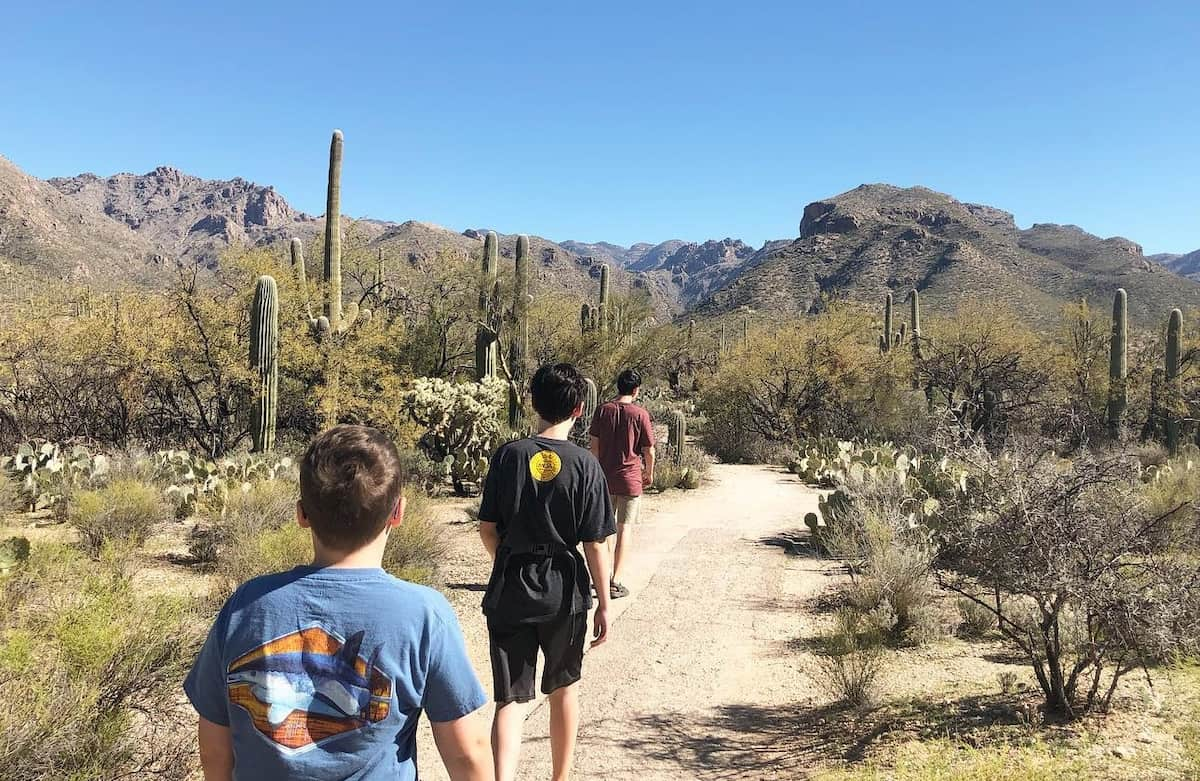
4. Mount Lemmon Scenic Byway
Item
Price (USD)
Price (EUR)
Notes
Entrance Fee (per car)
$8
~€7.40
Pay at “iron ranger” stations
Audio Guide App
Free-$10
Free-€9
Optional, highly recommended
Food & Drink
Varies
Varies
Only available in Summerhaven
5. Mission San Xavier del Bac
Activity
Price (USD/EUR)
Admission
Free (donations welcome)
Docent-led tour
Free
Indian fry bread
$4–$6 / €3.50–€5.50
Souvenirs/gift shop
$5–$30 / €4.50–€27
6. Old Tucson
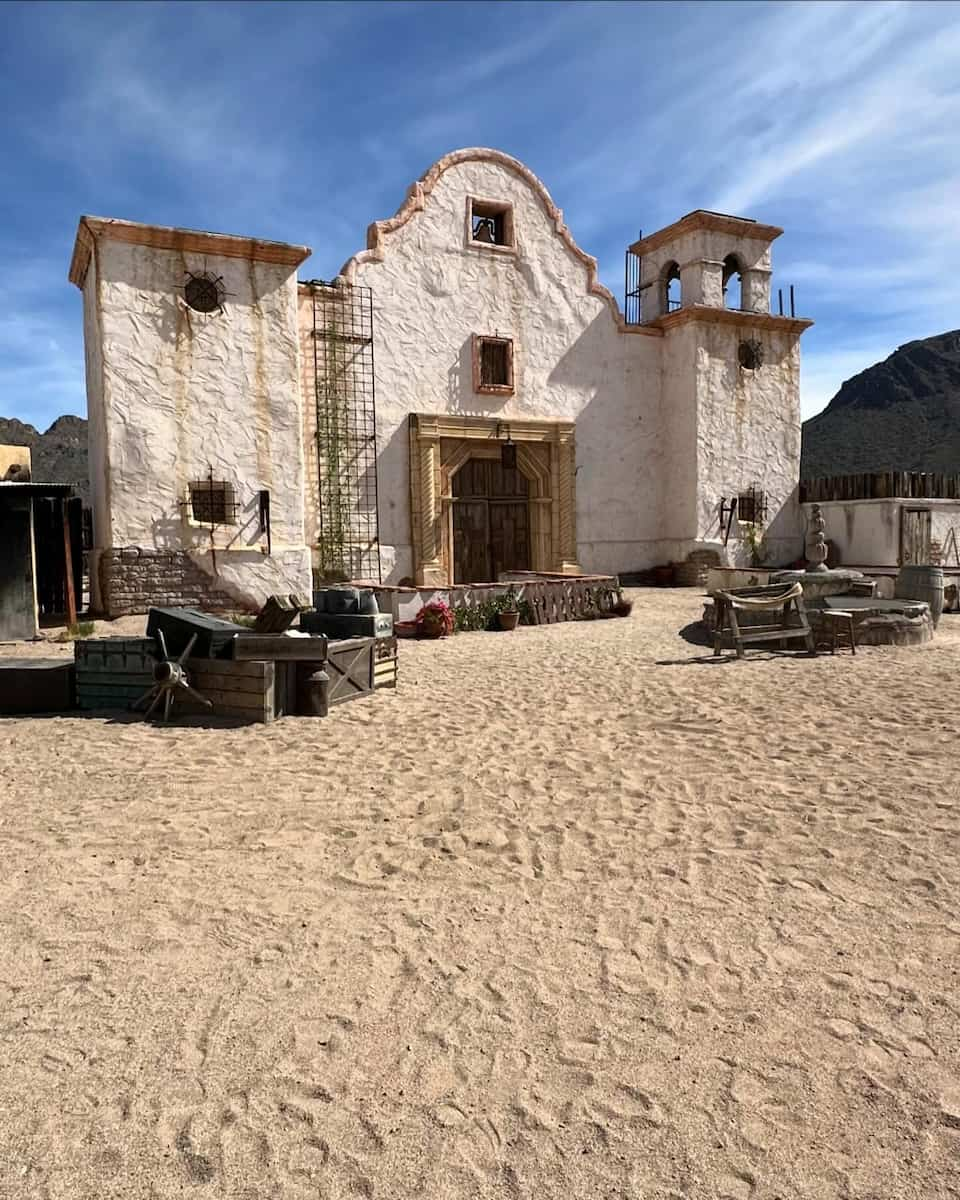
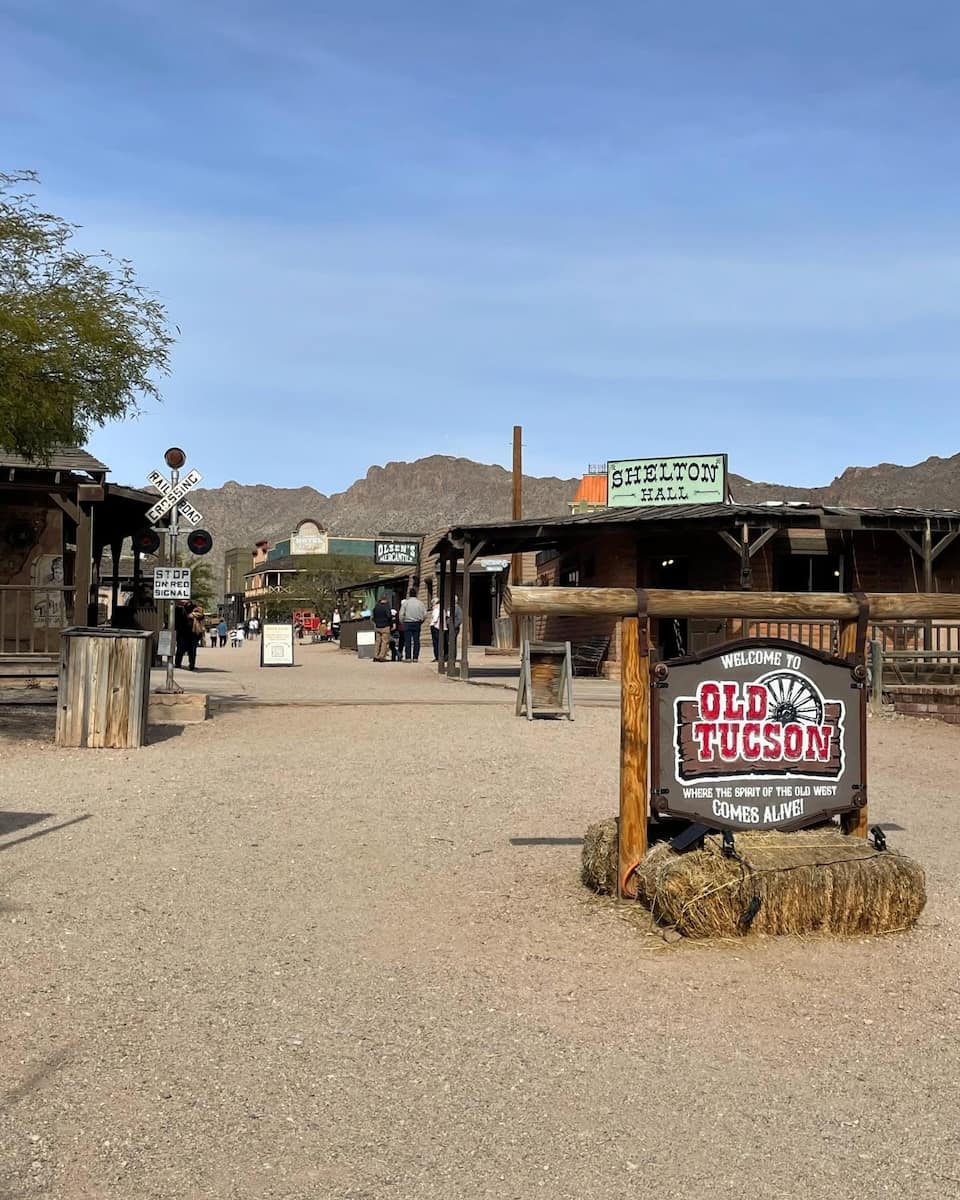
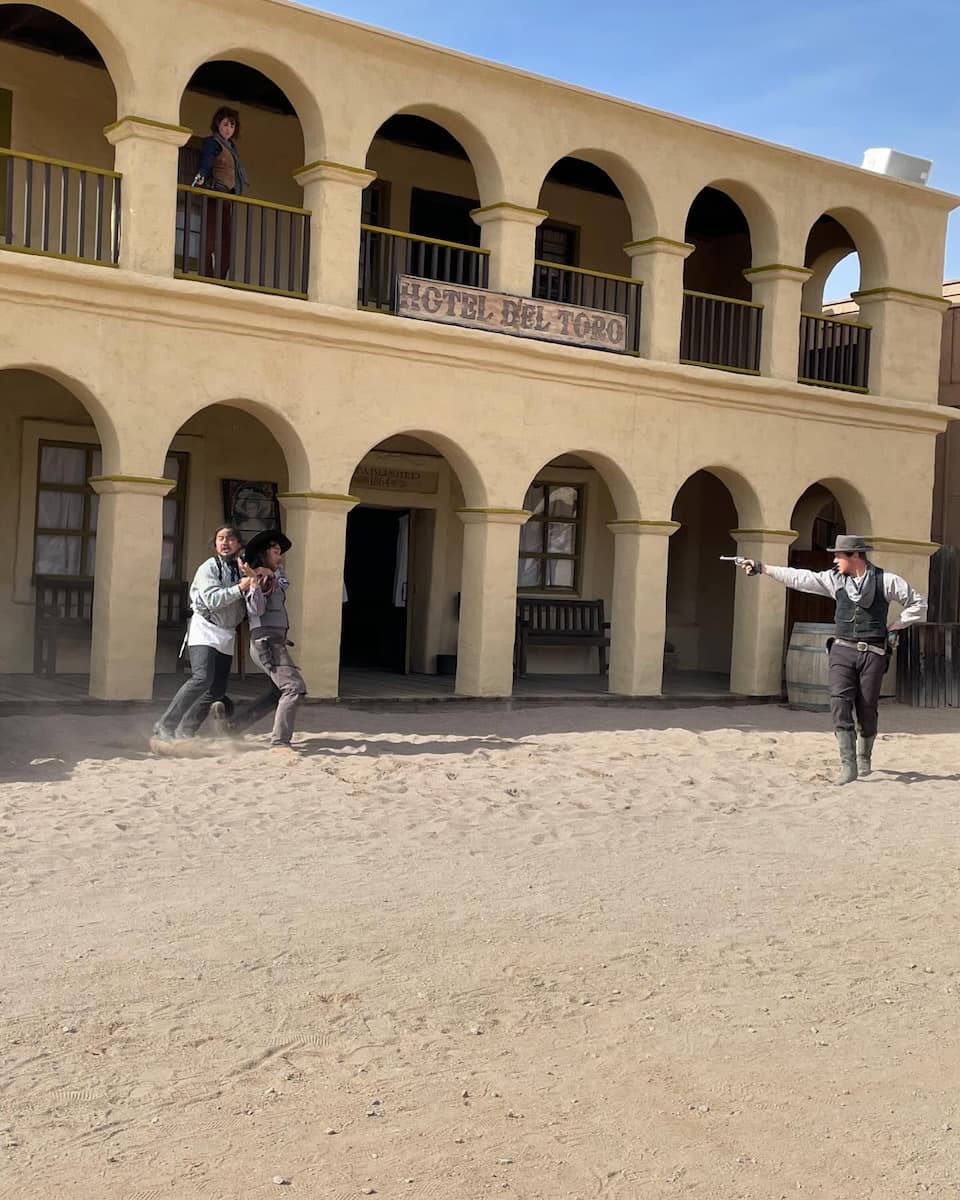
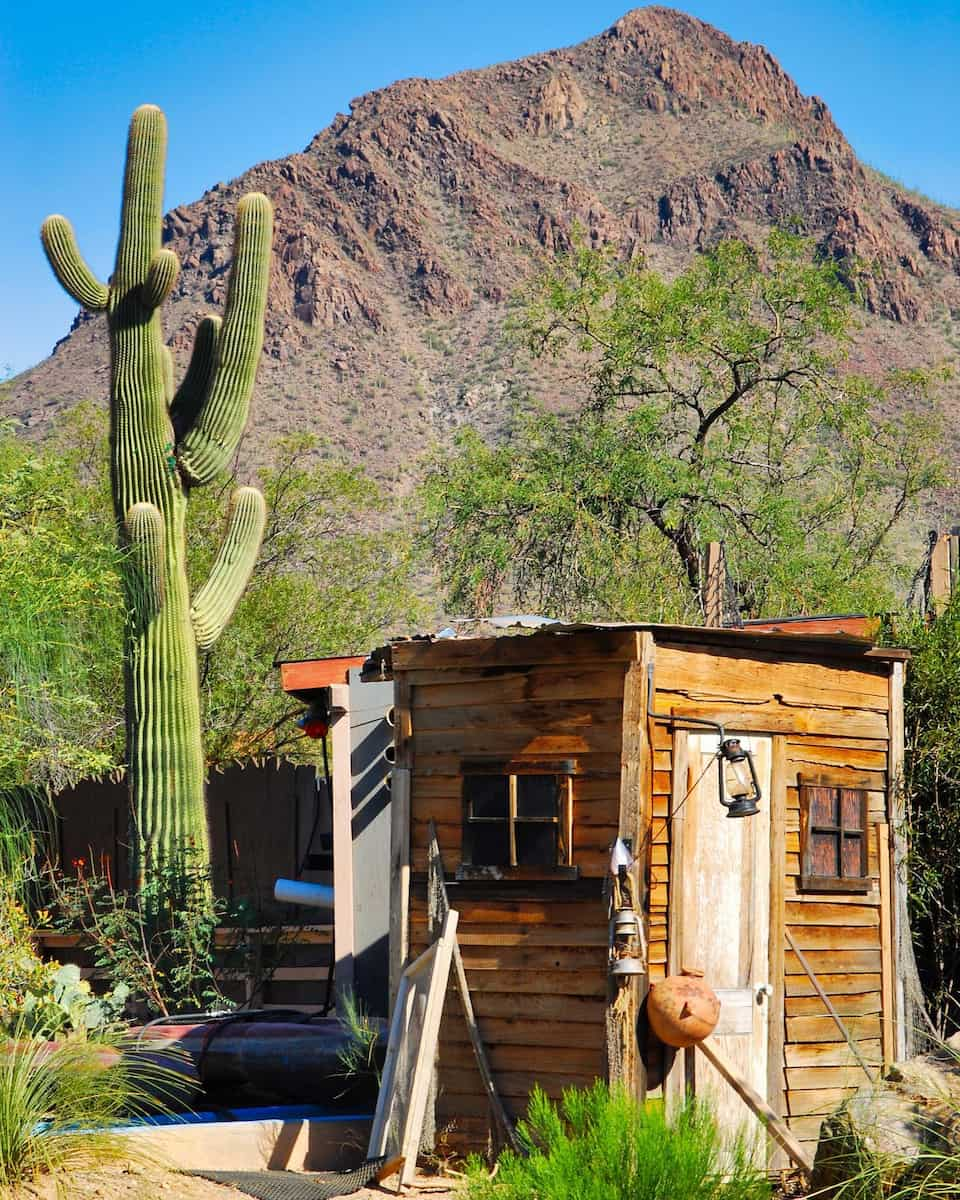
Here’s a taste of what you’ll see:
Ticket Type
Price (USD)
Price (EUR)
Adult (13+)
$39
~€36
Child (5–12)
$24
~€22
Under 5
Free
Free
Walk-up Adult
$44
~€41
Walk-up Child
$29
~€27
Ghost Tour
$26
~€24
Historical Tour
$14
~€13
7. Tucson Botanical Gardens
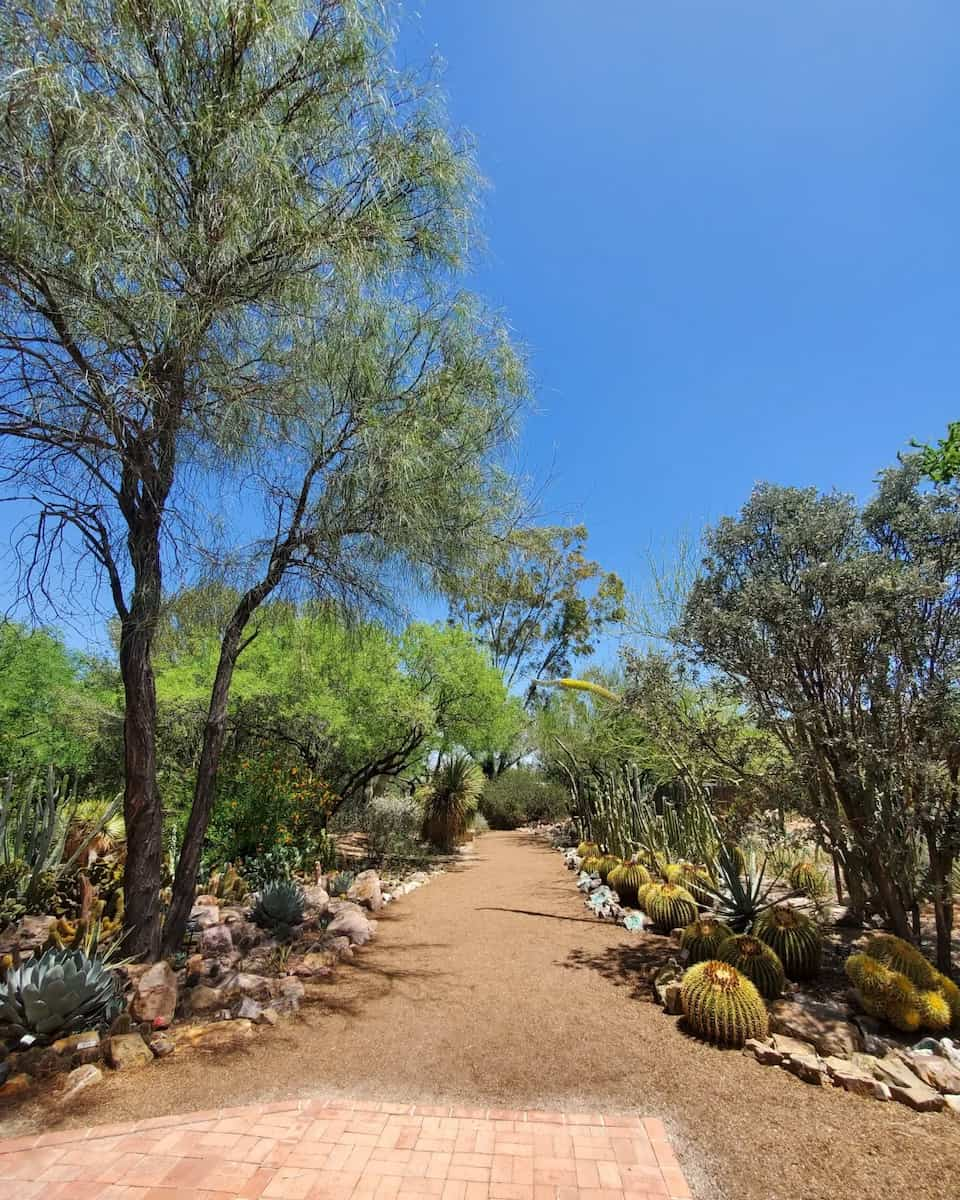
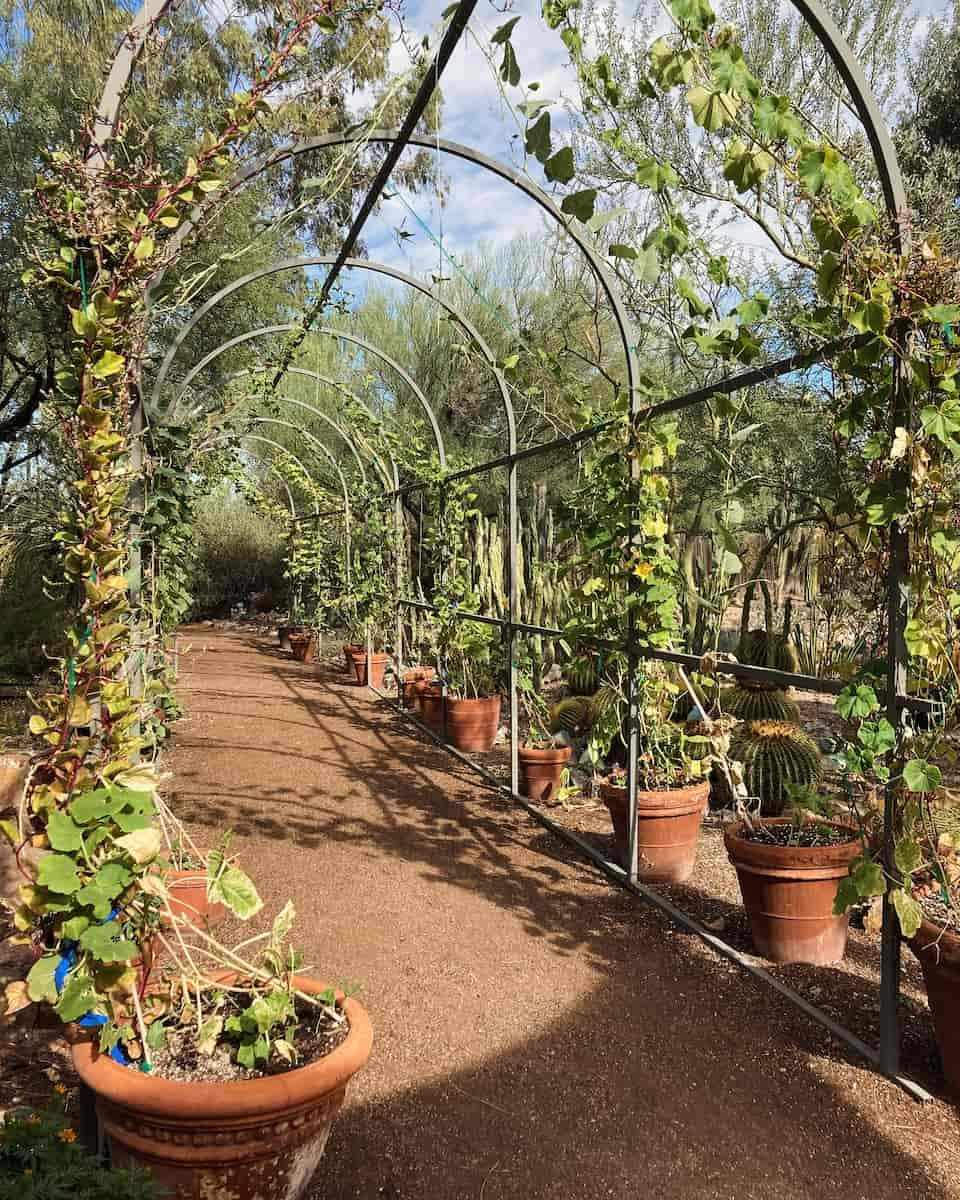
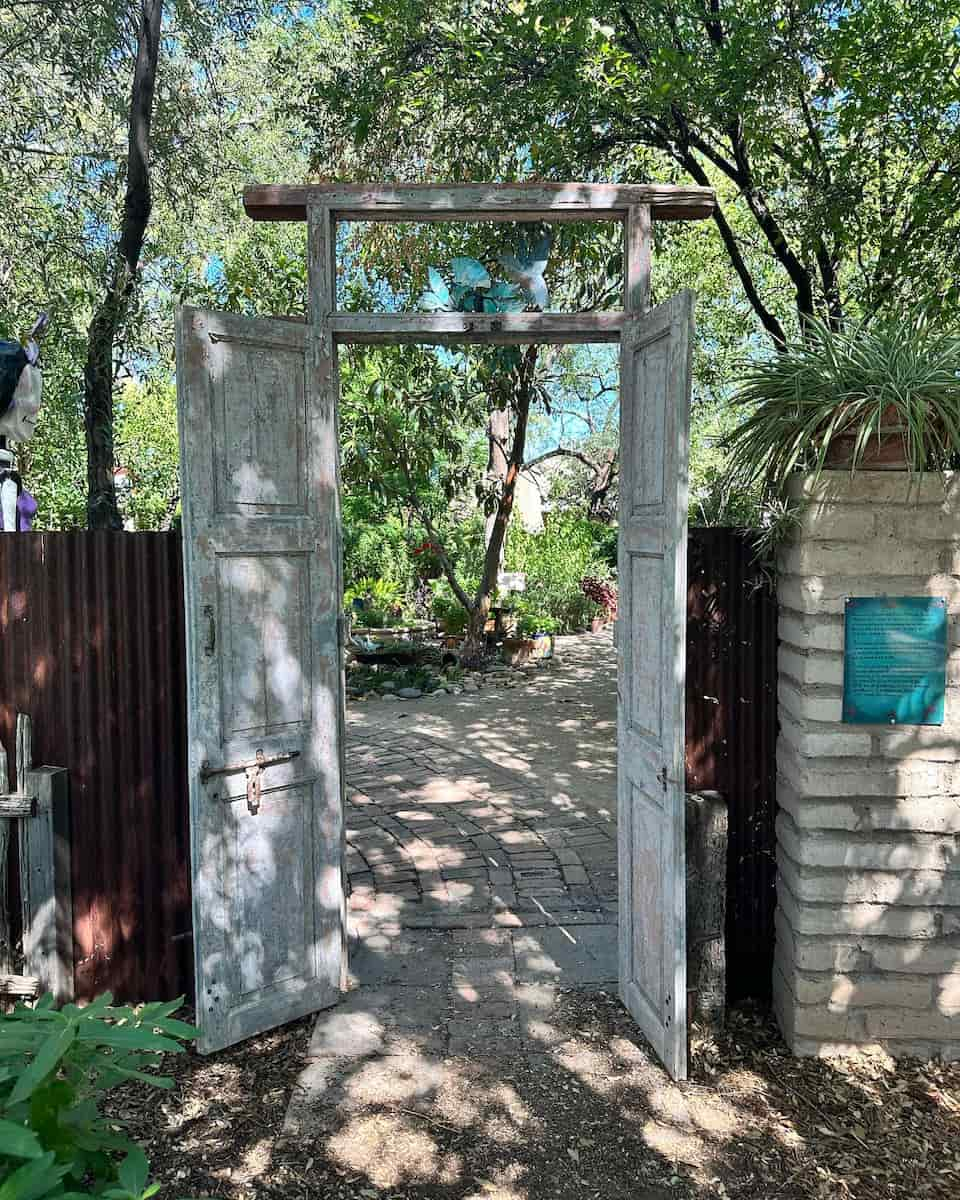
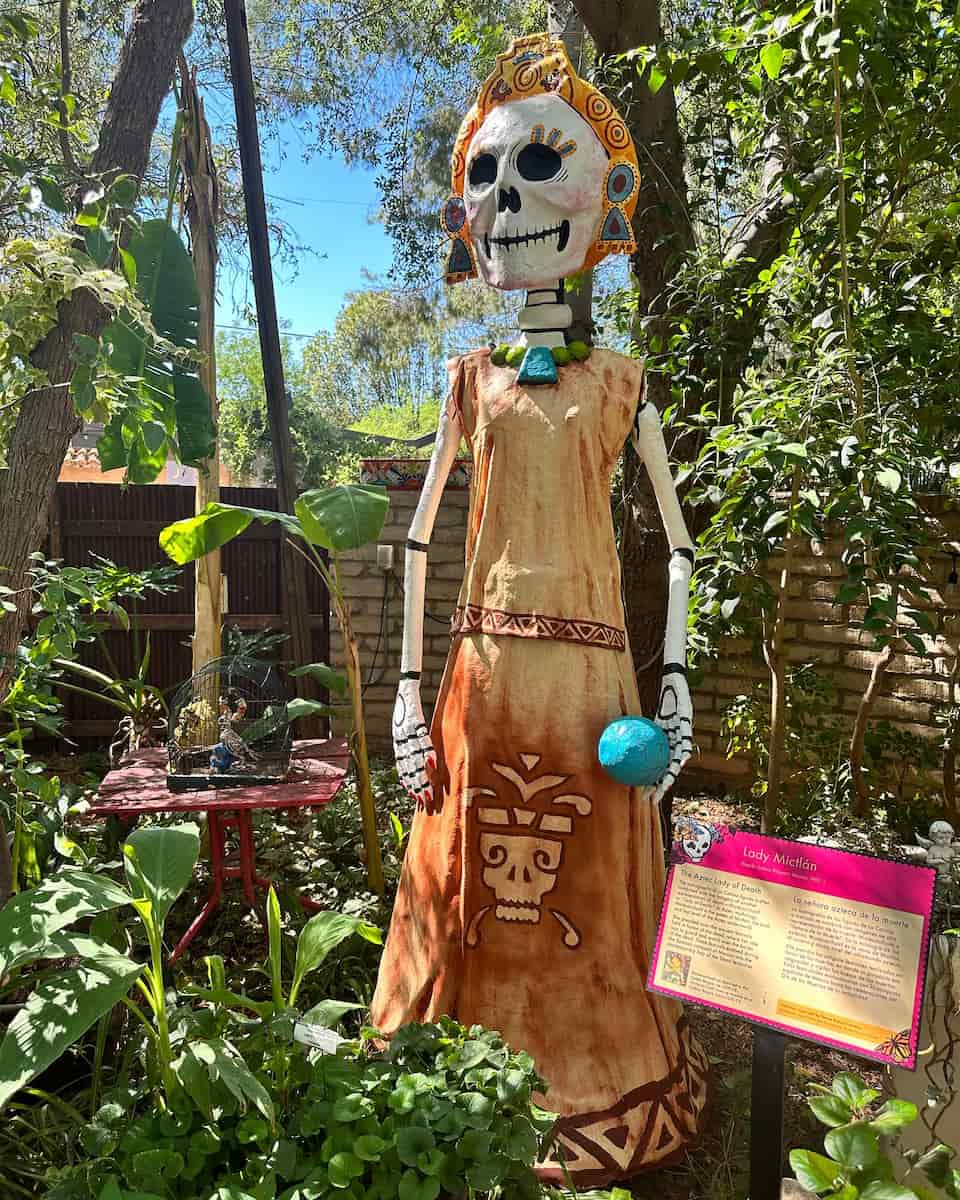
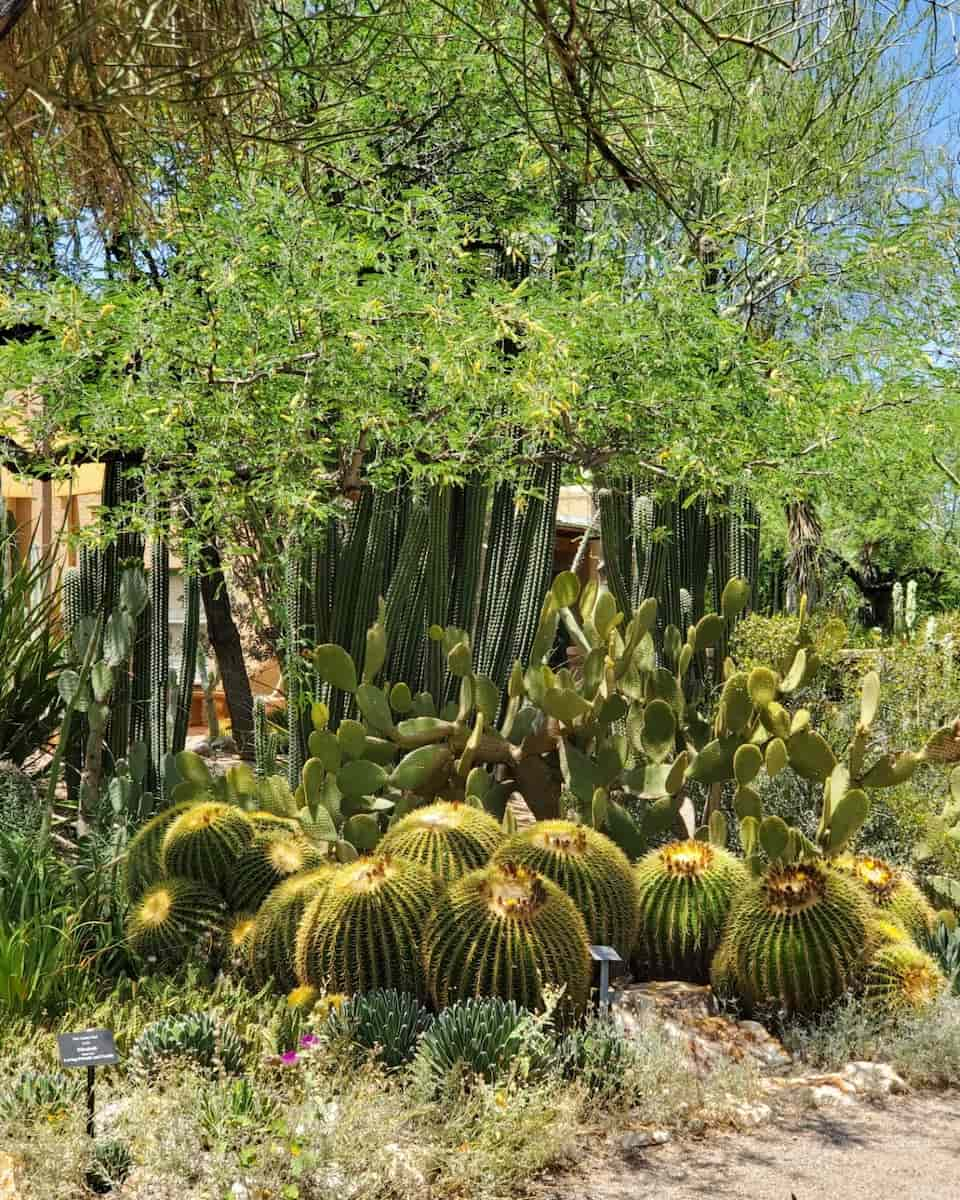
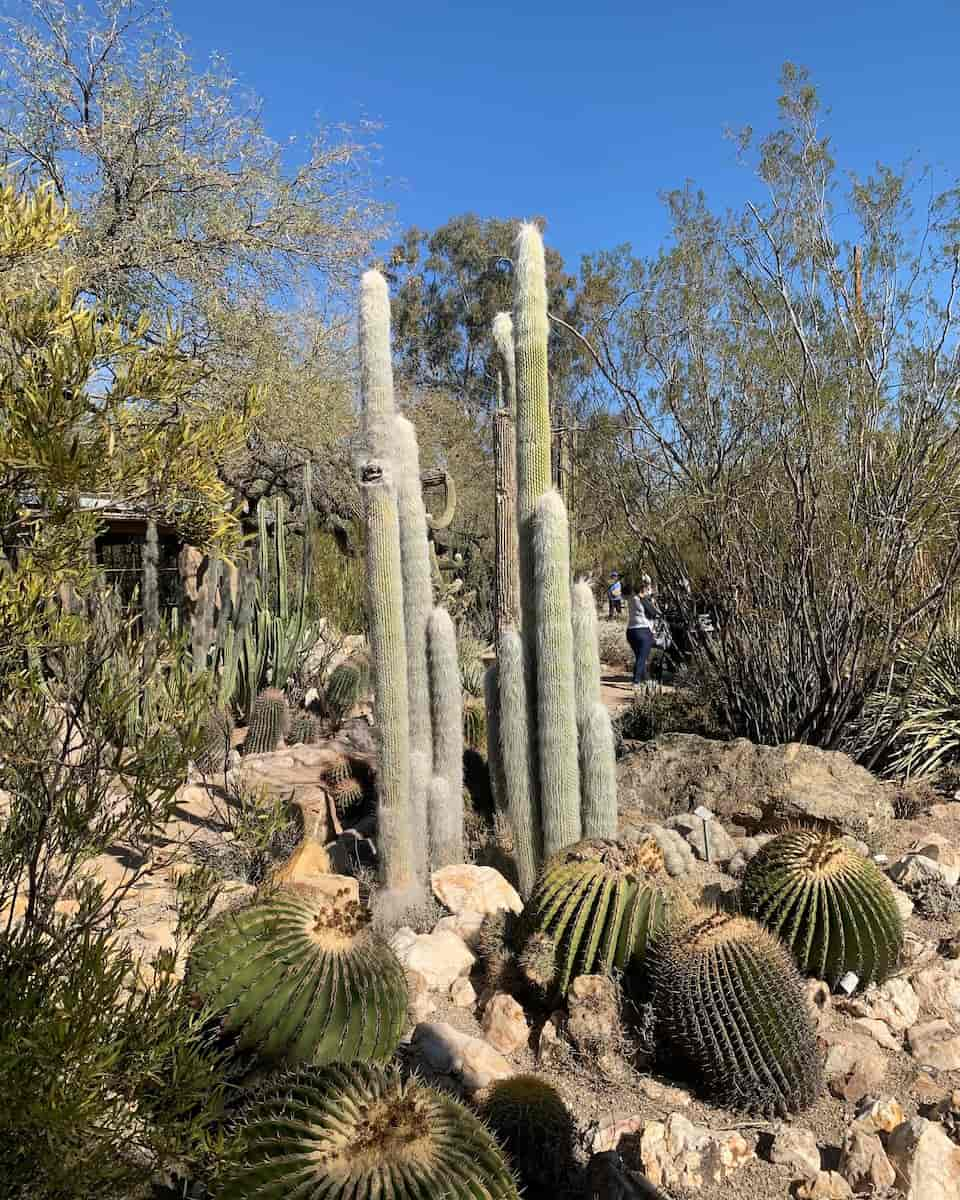
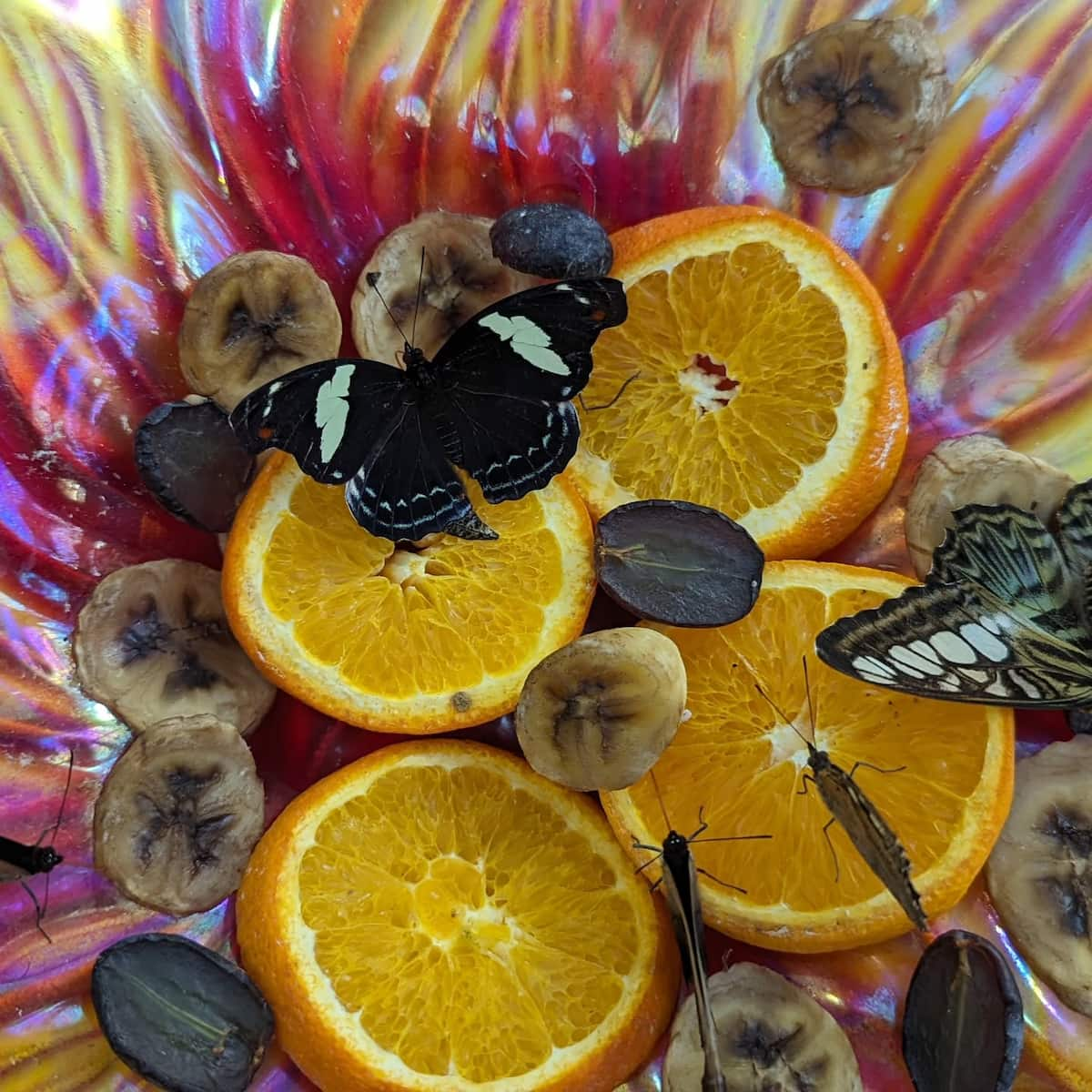
Visitor Type
Price (USD/EUR)
Adults
$19 / ~€17.50
Seniors (62+), Students, Military
$15 / ~€13.80
Children (4-12)
$10 / ~€9.20
Children (3 and under)
Free
Members
Free
8. Turquoise Trail
Tour Option
Price (USD)
Price (EUR)
Duration
Notes
Self-guided
Free
Free
1.5–4 hours
Brochures available, go at your own pace
Guided (Standard)
$30
€28
2.5–3 hours
Book ahead, includes expert stories
Guided (Short)
$35
€33
2 hours
Shorter route, still covers highlights
9. Tohono Chul
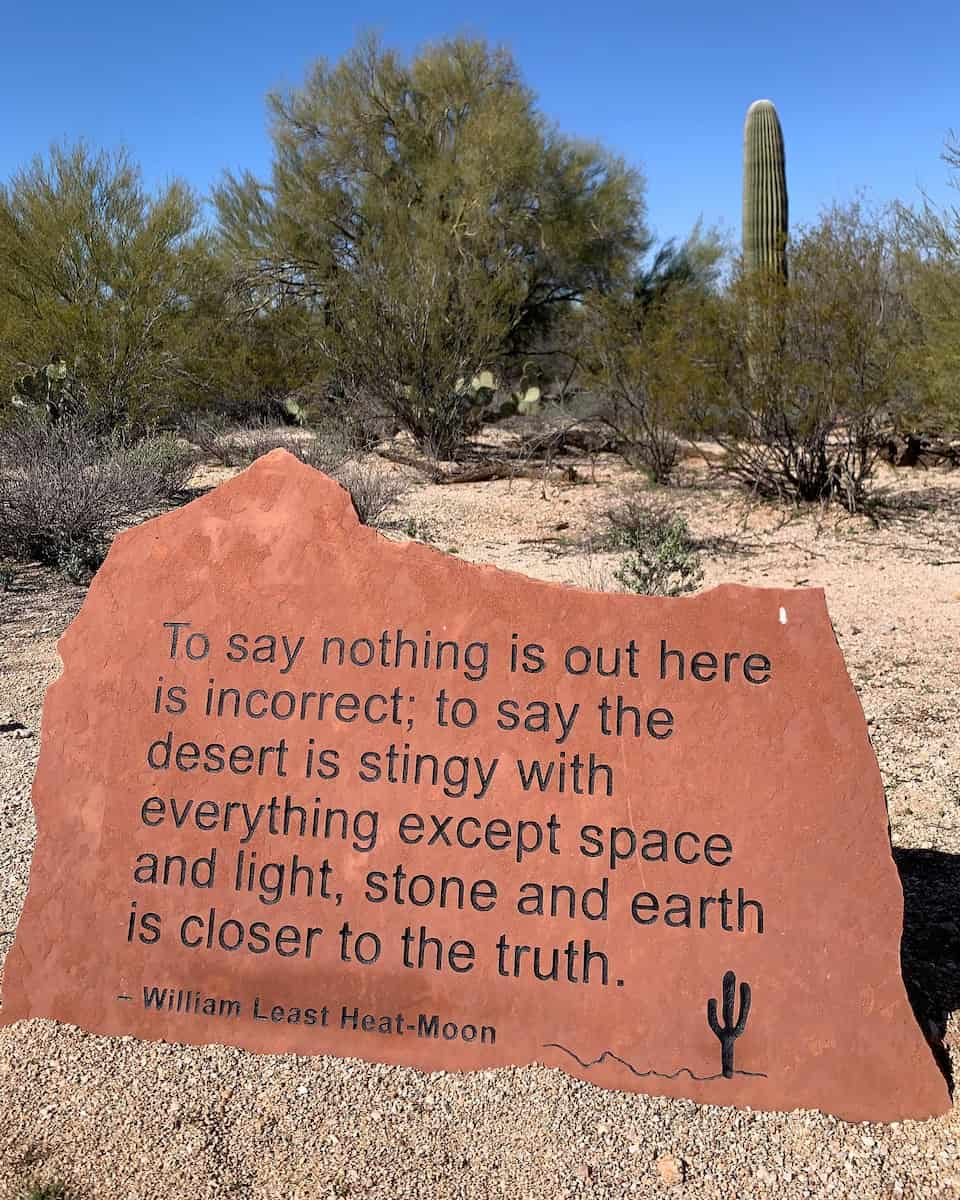
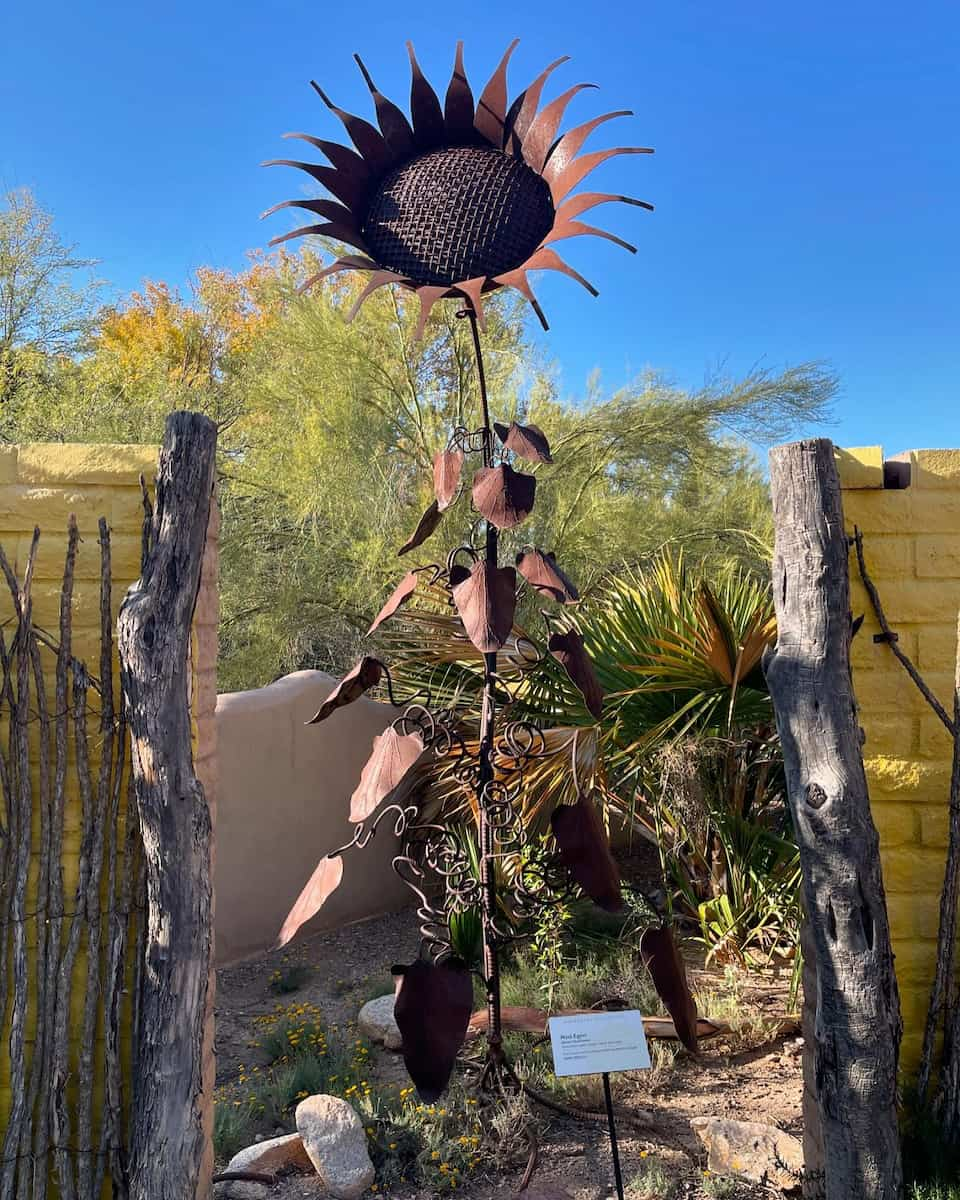
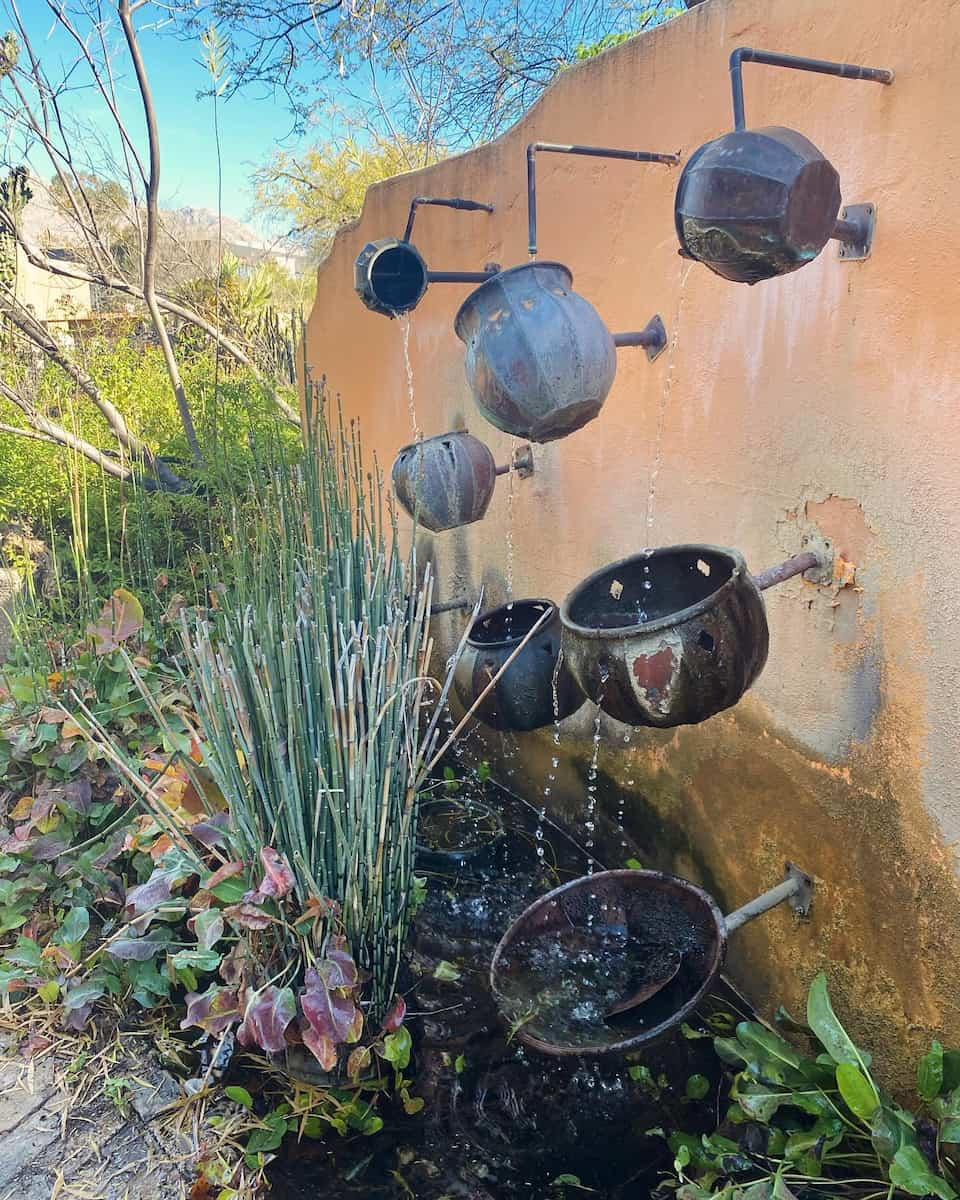
Ticket Type
Price (USD)
Price (EUR)
Notes
Adult (13-61)
$15
~€14
Senior (62+)
$13
~€12
Student (with ID)
$13
~€12
Child (5-12)
$6
~€5.50
Under 5
Free
Free
Family Pass (2+2)
$35
~€32
Best for families
Free Days
Varies
Varies
Watch for community events
10. Saguaro National Park
11. Gaslight Theatre
Ticket Type
Price (USD)
Price (EUR)
Standard Ticket
$15–$25
€14–€23
Kids (under 12)
$10–$15
€9–€14
Snacks/Drinks
$5–$10
€4.50–€9
12. Tucson Museum Of Art
Visitor Type
Price (USD)
Price (EUR)*
Adults
$15
€13.80
Seniors (65+)
$12
€11.00
College Students
$10
€9.20
Under 17
Free
Free
Veterans/Military
Free
Free
13. Catalina State Park
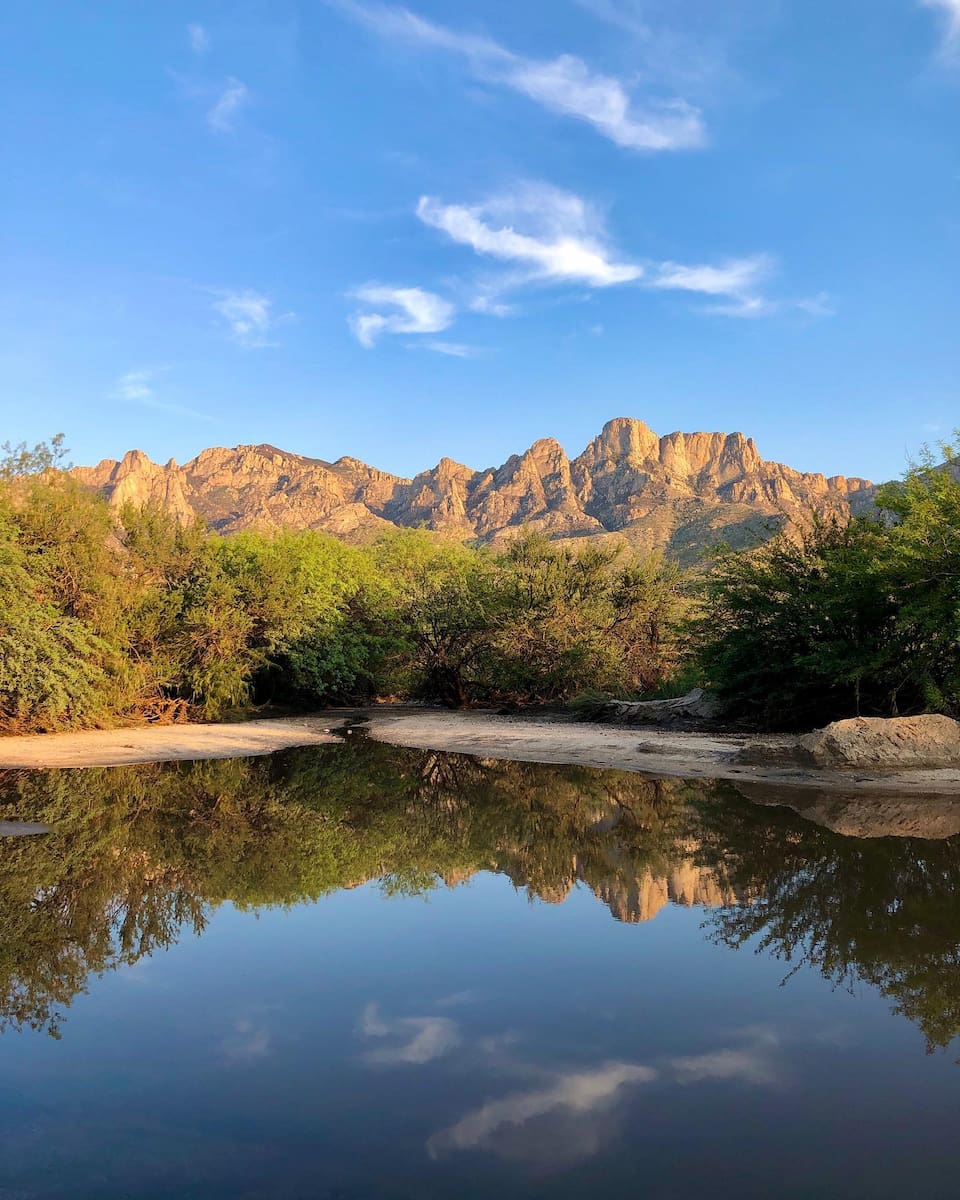
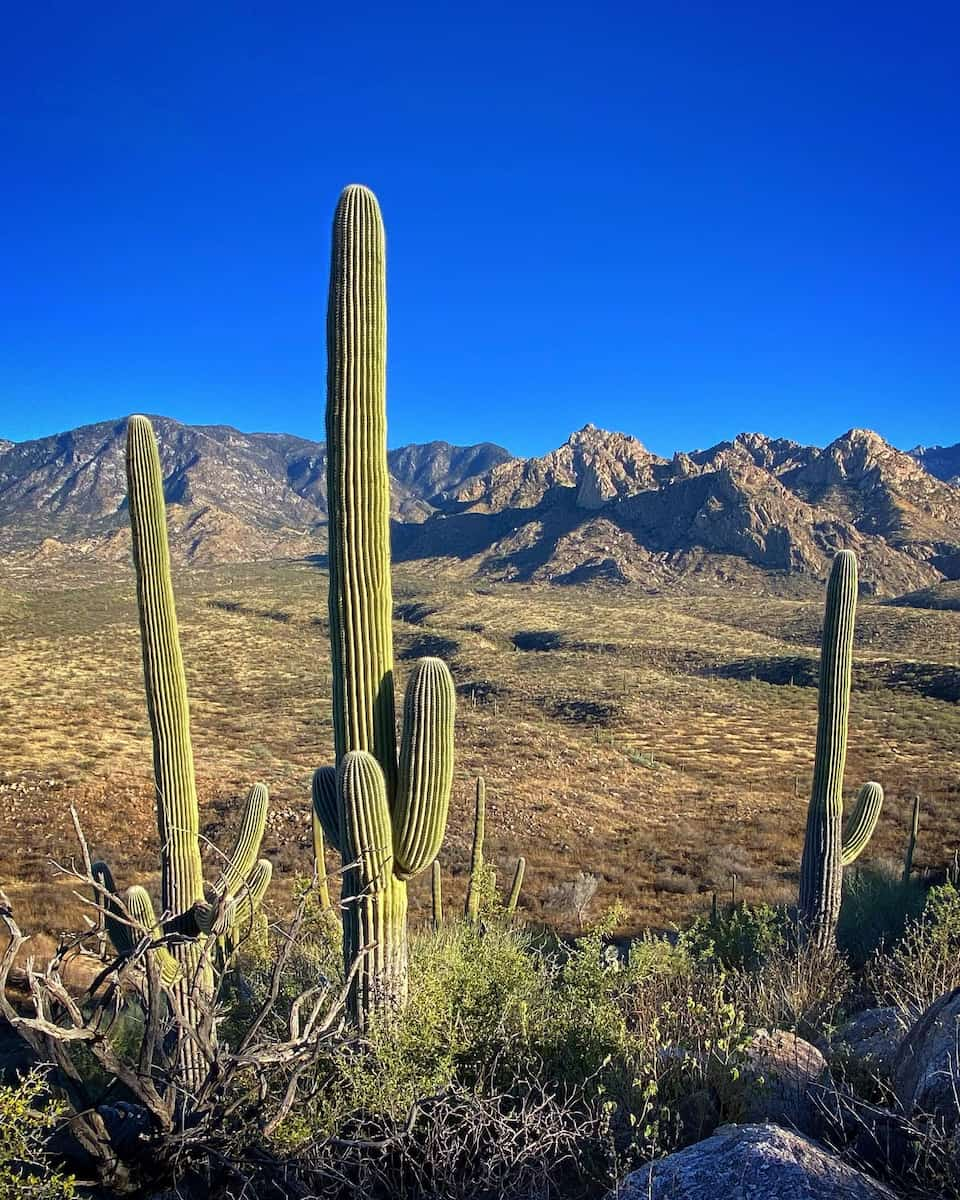
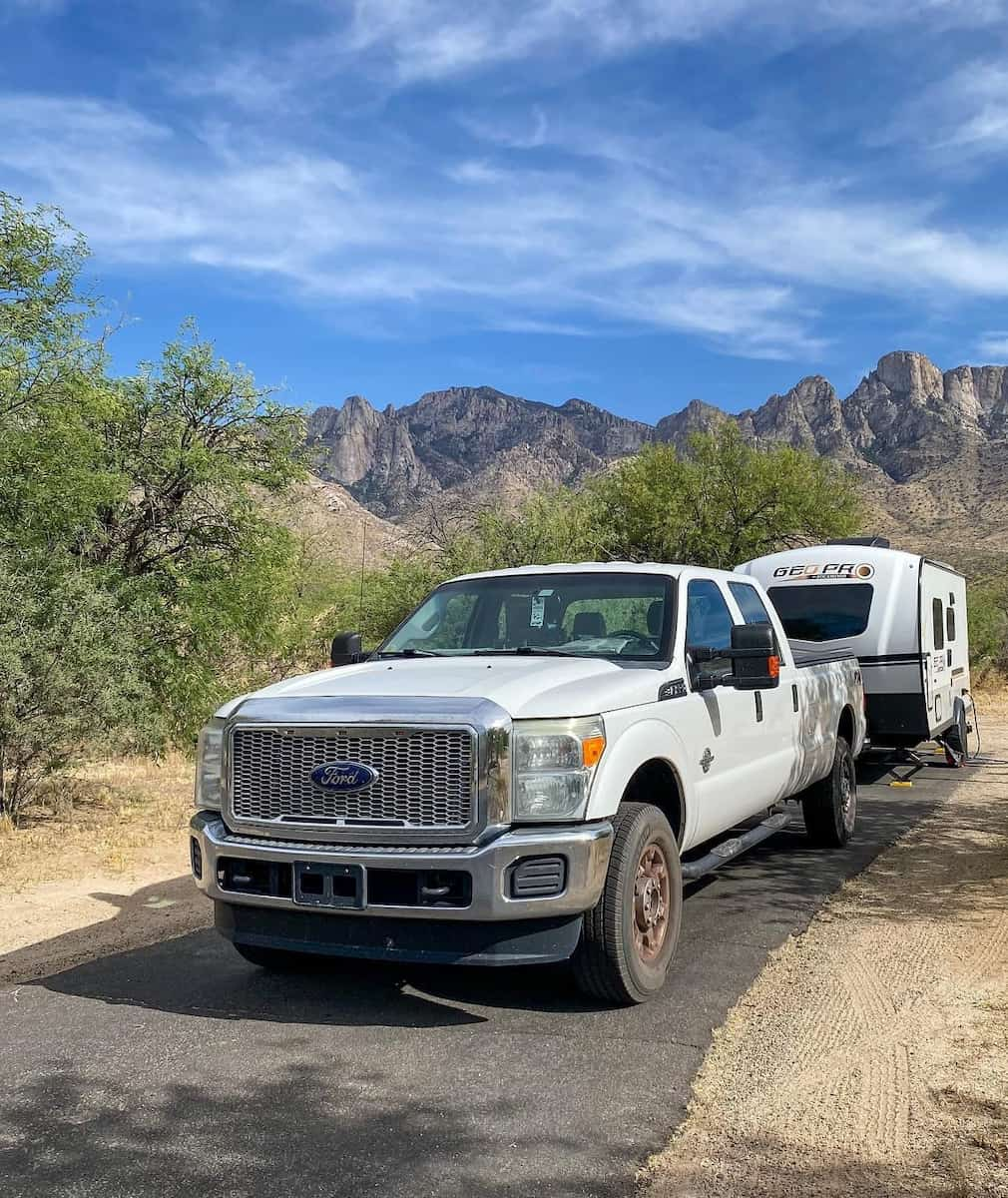
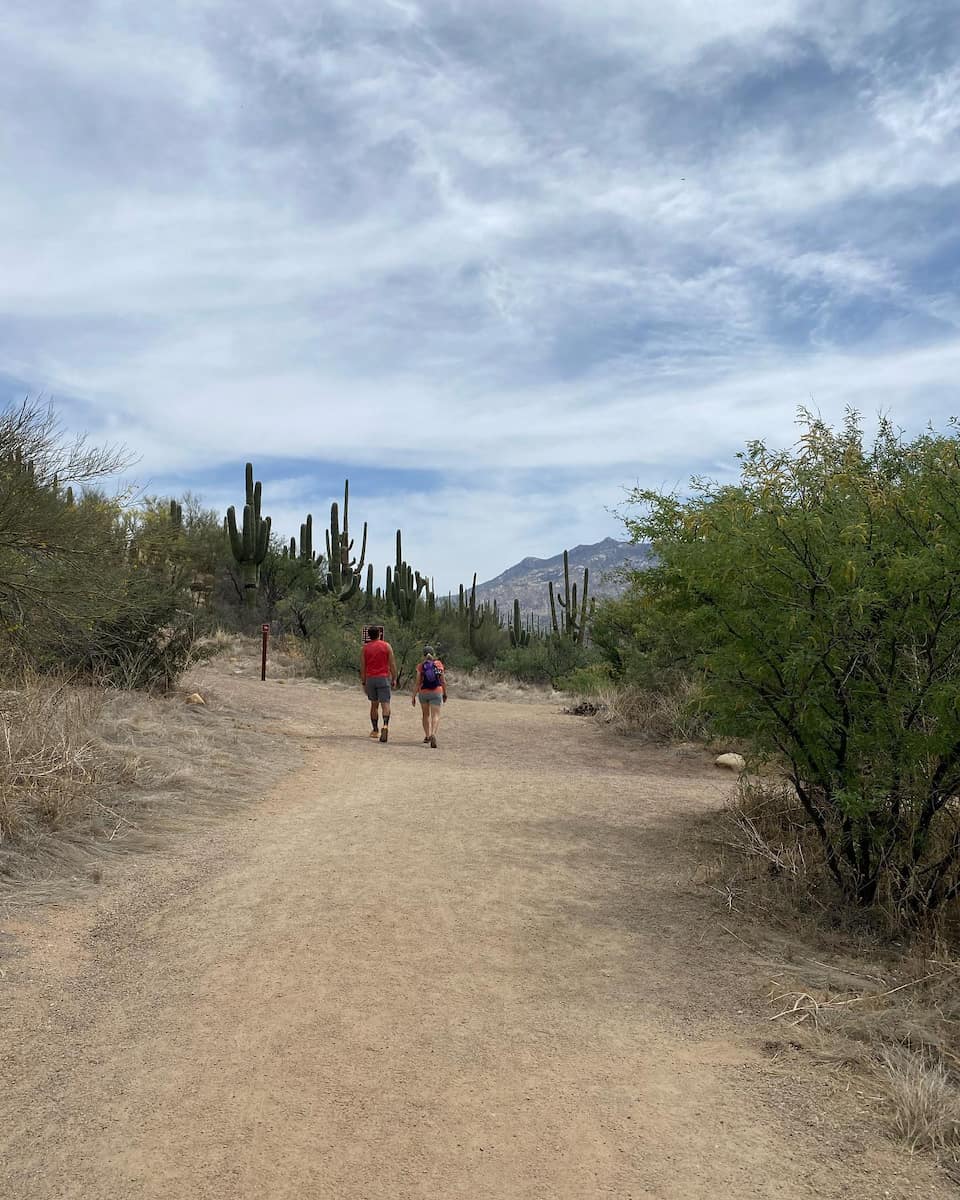
Event/Activity
Price (USD)
Price (EUR)
Guided Walks
Free
Free
Music in the Mountains
Free
Free
Stargazing Nights
Free
Free
Junior Ranger Booklet
Free
Free
14. The University of Arizona
Attraction
Price (USD)
Price (EUR)
Arizona State Museum
$8
€7.40
Flandrau Science Center & Planetarium
$16
€15
UA Museum of Art
$8
€7.40
Center for Creative Photography
Free
Free
15. St. Augustine Cathedral
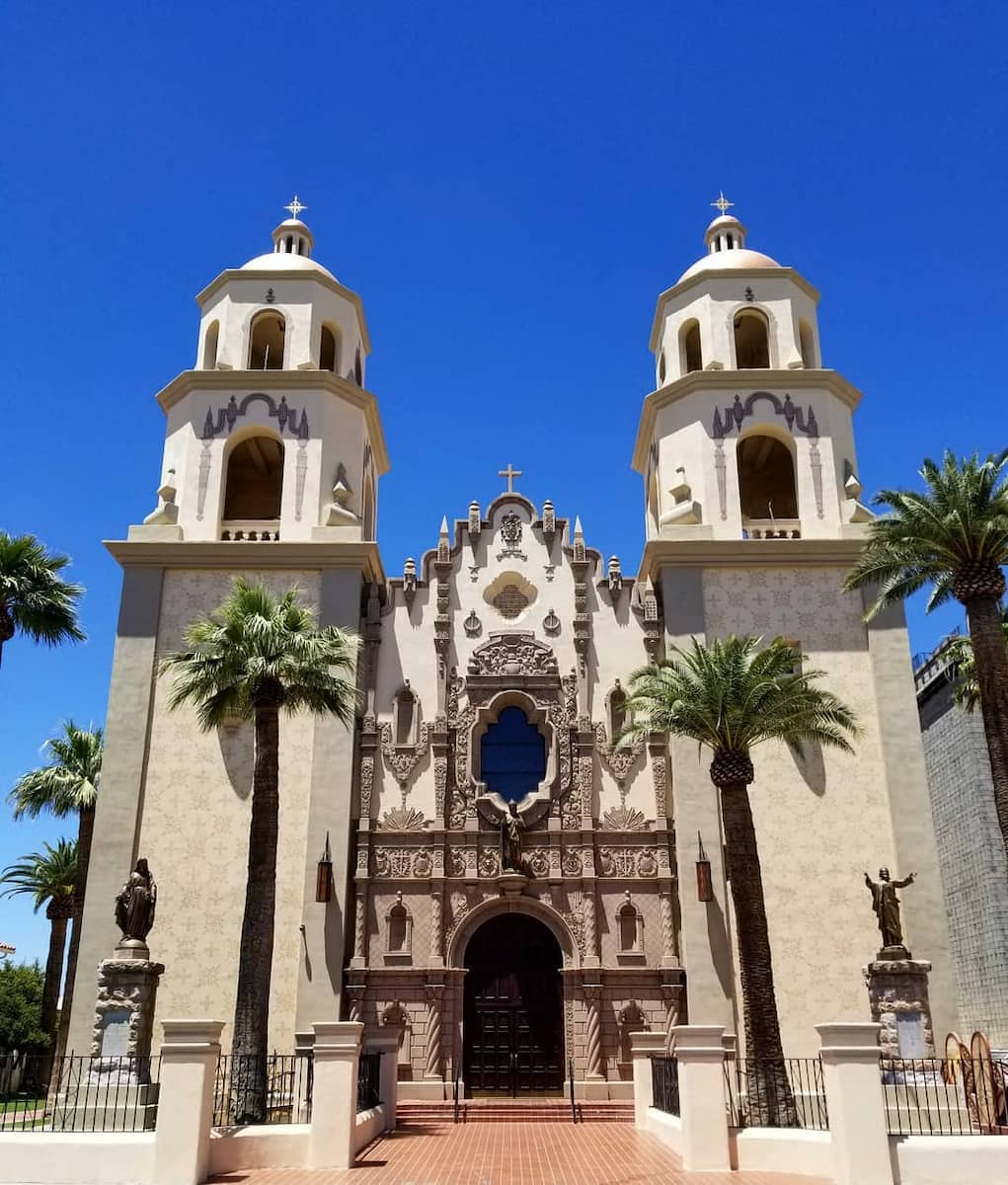
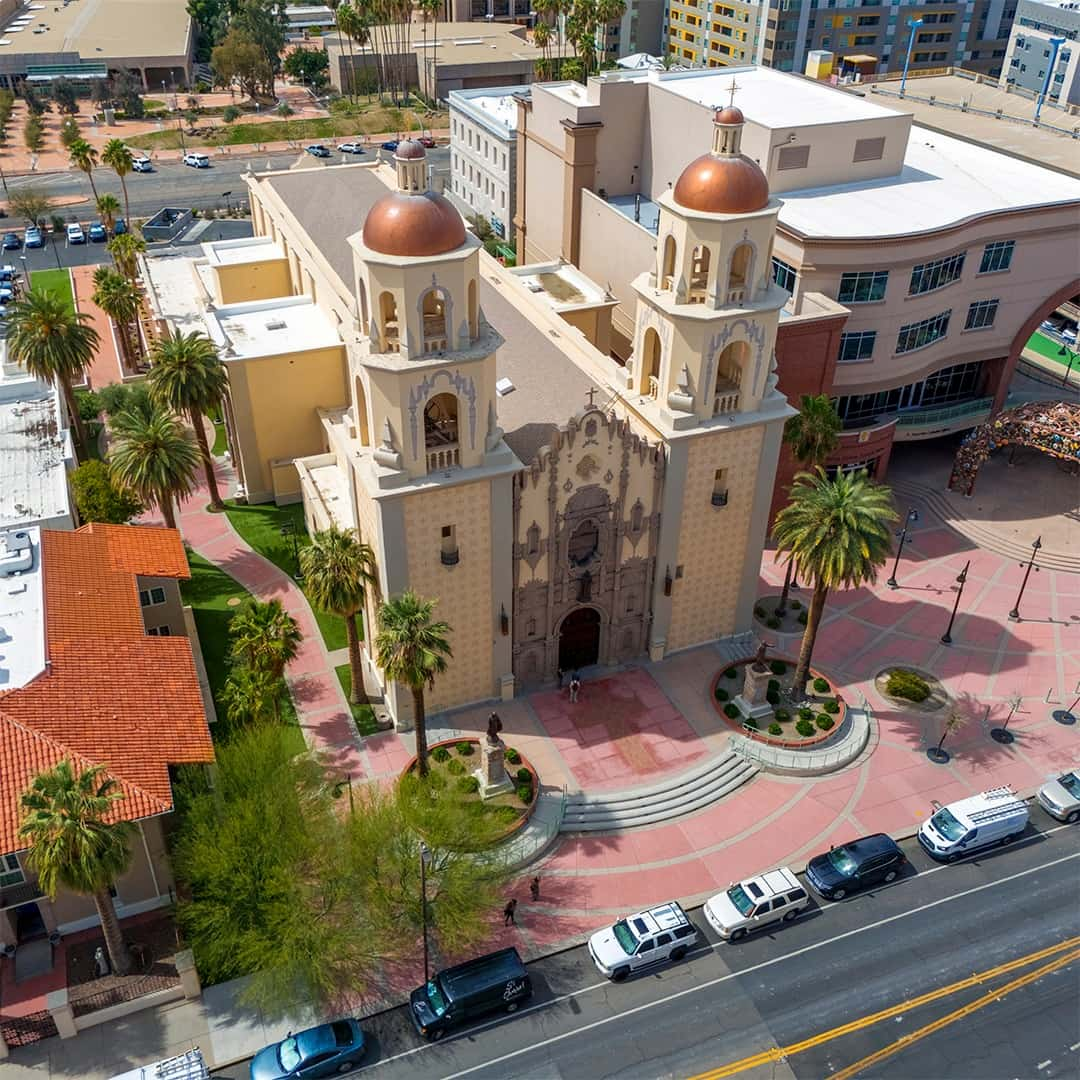
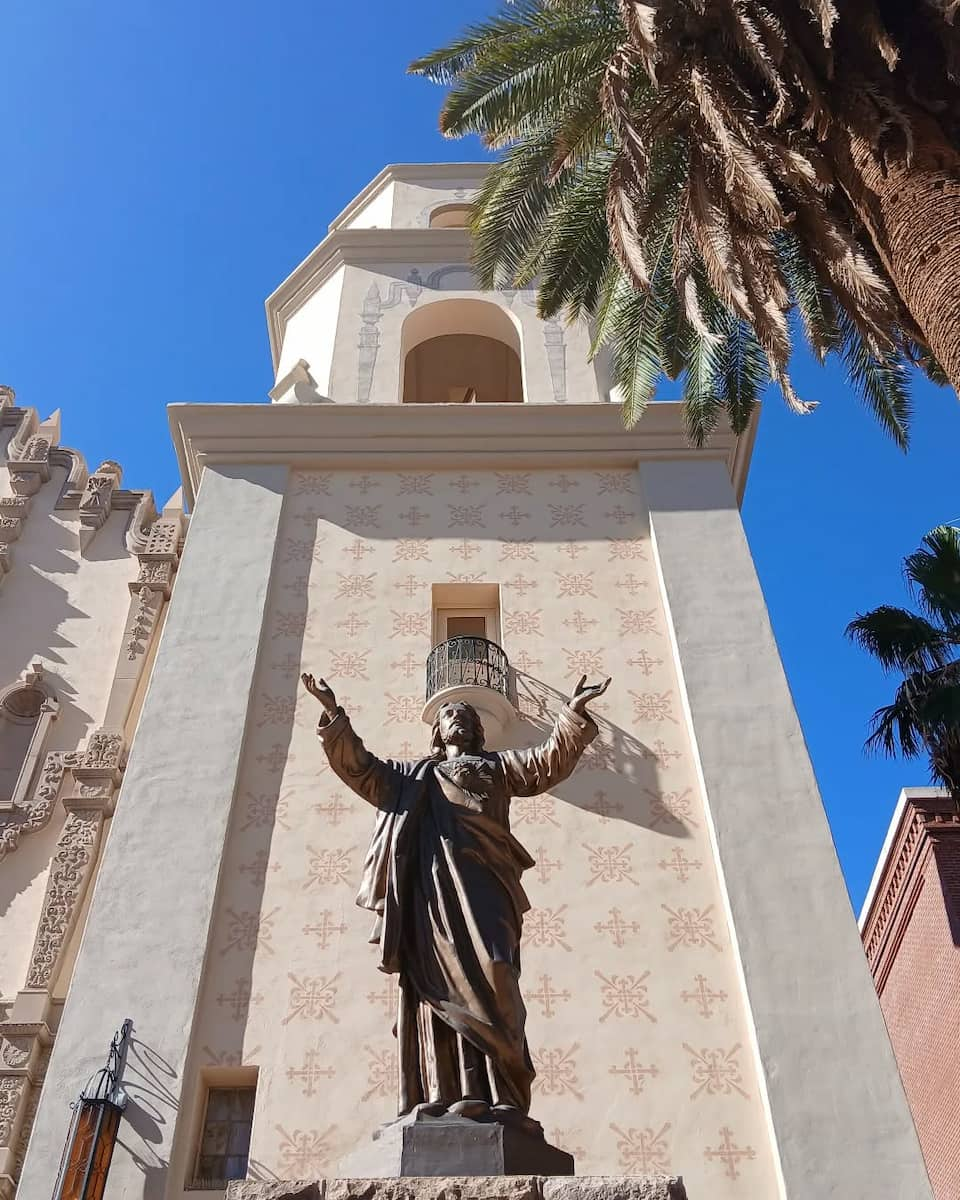

Experience
Price (USD)
Price (EUR)
Entry (self-guided)
Free
Free
Guided Tour
$5–$10
€4.60–€9.20
Entertainment for Families and Children
1. Reid Park Zoo
Animal Adventures. Reid Park Zoo is one of Tucson’s top attractions for families, animal lovers, and anyone looking for fun things to do in Tucson. I always enjoy wandering the 24 acres of lush, natural habitats — spotting lions, elephants, Andean bears, flamingos, rhinos, and even playful otters. The big cats and giraffes are crowd favorites, and the zoo’s compact size means you can see everything in about two hours.
Interactive Experiences. There’s more than just watching animals here. I’ve fed a giraffe at the Giraffe Encounter (10:00 AM daily, weekends also at noon), hopped on the Cox Wildlife Carousel, and taken the Reid Park Zoo Railway for a relaxing ride past animal habitats and the park pond. Daily keeper chats and animal encounters make every visit unique. For kids, the Wild Adventures playground is a must — climbing, sliding, and exploring hands-on exhibits.
Events & Education. The zoo hosts special events all year, from ZooLights: Holiday Magic in winter to Brew at the Zoo for adults and Summer Safari Nights for families. Educational programs inspire kids and adults to learn about wildlife conservation — something I really appreciate about this place. The Conservation Learning Center is full of interactive displays, and you can even book behind-the-scenes tours.
Admission Prices
| Ticket Type | Price (USD) | Price (EUR) | Notes |
|---|---|---|---|
| Adult (15-61) | $11.25 | ~€10.40 | |
| Senior (62+) | $9.25 | ~€8.60 | |
| Child (2-14) | $7.00 | ~€6.50 | |
| Under 2 | Free | Free | |
| Zoo Railway | $4.00 | ~€3.70 | Per ride |
| $3 Ticket Tuesdays | $3.00 | ~€2.80 | All guests, June–July only |
| Membership | Varies | Varies | Free entry for members |
Animal Conservation. Reid Park Zoo is committed to conservation and education. I once joined a “Keeper Chat” about the Andean bear, where the zookeeper explained how the zoo helps protect endangered species. The Conservation Learning Center is packed with interactive exhibits — great for curious kids and adults. The zoo also supports wildlife projects in Africa, Asia, and the Americas, so your visit helps animals worldwide.
2. Children’s Museum Tucson
Hands-On Fun. Children’s Museum Tucson is where I’ve seen kids light up with curiosity. Located at 200 S 6th Ave in the historic Carnegie Library, this museum is packed with interactive, play-based exhibits for children up to age 10. My last visit was a whirlwind: my niece raced to the fire truck, put on a tiny helmet, and slid down the pole while her brother “shopped” in the mini grocery store. Everything is designed for hands-on learning — think science, art, electricity, and even a veterinary clinic where kids can “x-ray” stuffed animals.
Exhibits. Inside, there are themed rooms like Sense of Place (exploring Tucson’s nature and history), Investigation Station (science play), Pet Vet, Electri-City, and Imagine It! (arts and crafts galore). Outside, the Curiosity Courtyard is a favorite, with a bubble garden, musical instruments, and a veggie patch. Water Wednesday in summer turns the courtyard into a splash zone — bring a change of clothes!
Programs. The museum hosts weekly storytimes, bilingual reading days, and science activities. I once joined a group building recycled art in Imagine It! and was amazed by the creativity. Special events, like “Night at the Museum,” offer free or discounted evenings — check the calendar before your visit.
Admission Prices
| Ticket Type | Price (USD) | Price (EUR) | Notes |
|---|---|---|---|
| General Admission | $12 | ~€11 | Ages 1+ |
| Under 1 Year | Free | Free | |
| Discount Days | $3 | ~€2.80 | Select Mondays & 3rd of each month |
| Military Discount | Yes | Yes | With valid ID |
| Library Culture Pass | Free | Free | With PIMA County library card |
Outdoor Play. The Curiosity Courtyard outside is a lifesaver on sunny Tucson days. There are musical instruments, a veggie garden, and — my personal favorite — the bubble garden. In summer, Water Wednesdays turn the courtyard into a splashy playground. I always bring a towel and a change of clothes, just in case!
3. Trail Dust Town
Old West Atmosphere. Trail Dust Town, at 6541 E Tanque Verde Rd, is Tucson’s answer to the wild west — without the dust in your boots. The moment I stepped onto the wooden sidewalks, I felt like I’d wandered into a movie set. There are covered wagons, quirky shops, and vintage buildings that make every corner a photo op. The whole place comes alive after 5pm, when the lights turn on and the air fills with the scent of barbecue and popcorn.
Pistoleros Wild West Show. This is the highlight for most visitors — and for good reason. The Pistoleros Wild West Show is a slapstick, action-packed stunt show with explosions, rooftop tumbles, and classic gunfights. I laughed out loud at the one-liners and was genuinely impressed by the stunts. Shows run Friday to Sunday at 7pm and 8pm. Tickets are $10.50 for adults, $8.50 for kids (10 & under), and free for children under 3. You can buy tickets online or at the box office. Be ready for loud bangs and outdoor seating — bring a jacket in winter and ear protection for sensitive kids.
Amusement Rides. Trail Dust Town is packed with fun, especially for families. Here’s what I tried:
- C.P. Huntington Miniature Train: A $3 ride through Old West scenes — kids under 42 inches ride free with an adult.
- Allan Herschell Carousel: $3 per ride, vintage horses and all.
- Circle-the-Wagons Ferris Wheel: $3 per ride, with great sunset views.
- Gabby’s Gulch Gold Panning: $3 for a mystery bag — pan for real “treasure.”
- Shooting Gallery: Test your aim for just $0.50 a play.
All rides and activities run Thursday–Sunday, 5pm–9pm. Buy tickets at the Trading Co. shop.
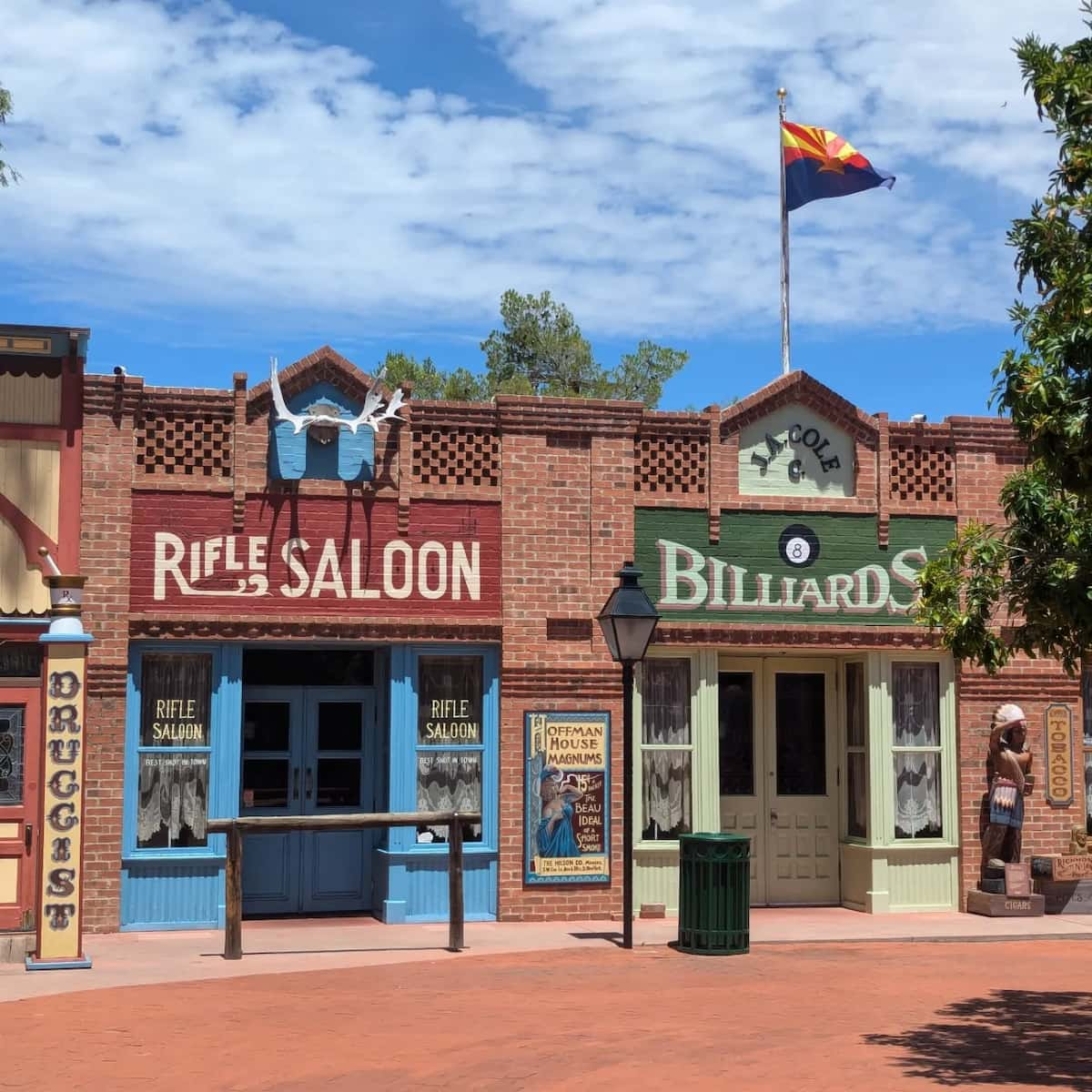
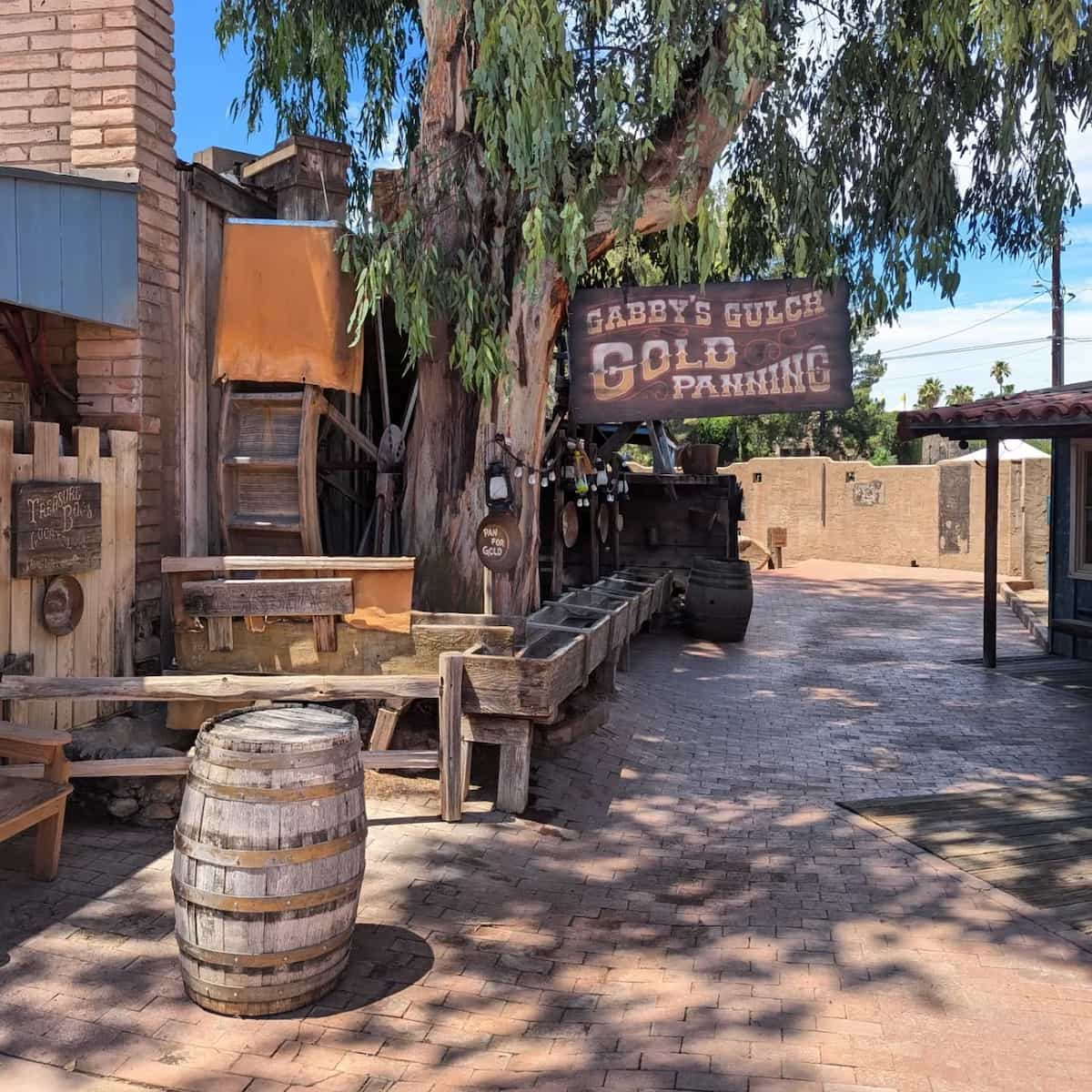
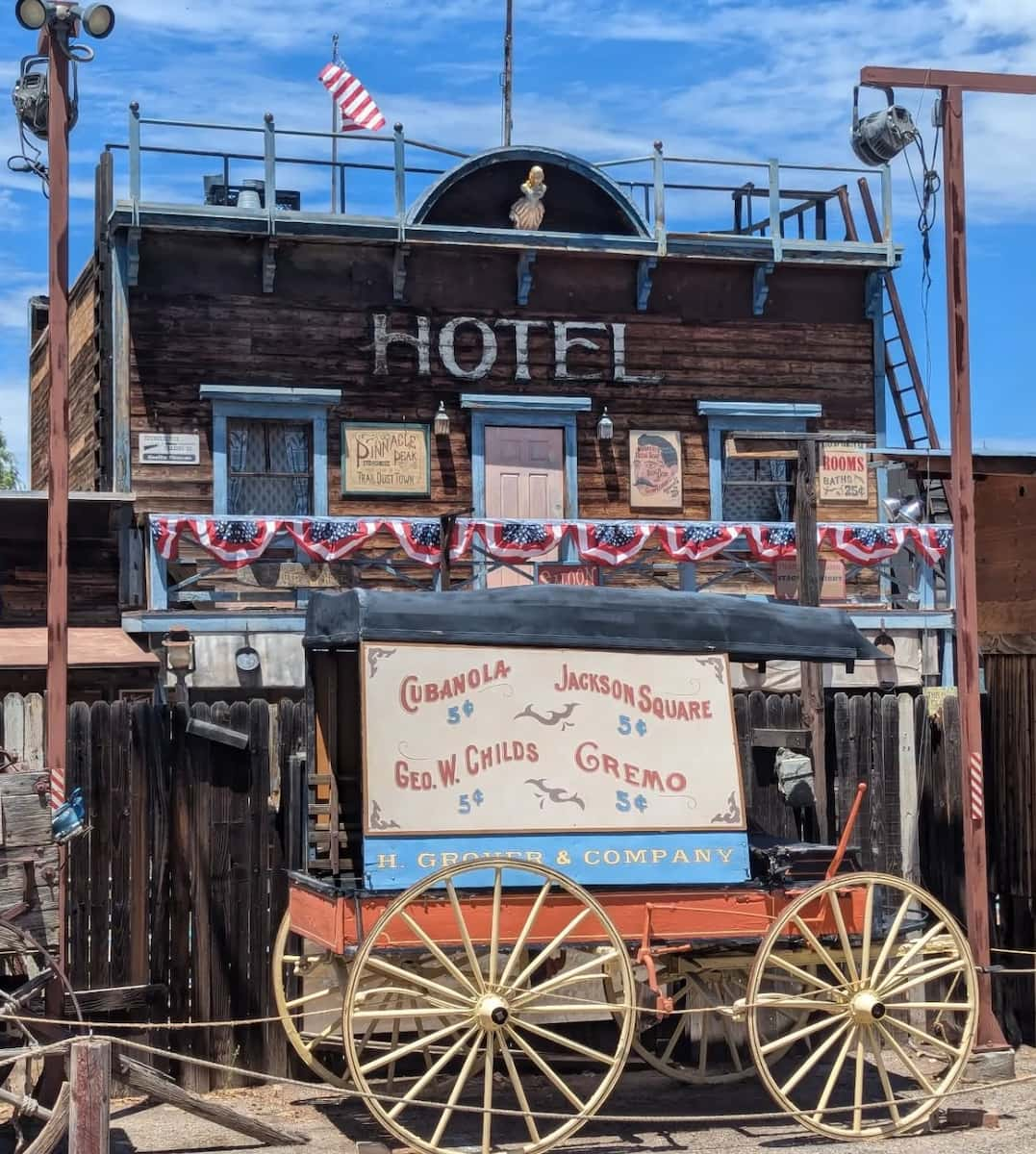
Shops & Saloons. I browsed the General Store for retro toys and candies, watched a magician perform tricks in the Magic Shop, and peeked into the Savoy Opera House — a Victorian venue for private events. The shops are all locally owned, and there’s always something quirky to discover, from old-time photo studios to artisan jewelry.
Price
| Activity/Ride | Price (USD) | Price (EUR) | Notes |
|---|---|---|---|
| Pistoleros Wild West Show | $10.50 | ~€9.70 | Kids 10 & under $8.50, under 3 free |
| Miniature Train | $3.00 | ~€2.80 | Kids under 42″ ride free w/ adult |
| Carousel | $3.00 | ~€2.80 | Currently closed for refurbishment |
| Ferris Wheel | $3.00 | ~€2.80 | |
| Gold Panning | $3.00 | ~€2.80 | Includes mystery bag |
| Shooting Gallery | $0.50 | ~€0.45 | Per play |
| Admission | Free | Free | Pay only for rides/activities |
4. The Mini Time Machine Museum of Miniatures
First Impressions. The Mini Time Machine Museum of Miniatures is nothing like any other museum I’ve visited in Tucson. When I walked through the doors at 4455 E. Camp Lowell Drive, I was greeted by a regular-sized entrance — and a tiny “fairy door” just for fun. Right away, I could tell this place was all about imagination and detail. The museum is a cool escape from the desert heat, and it’s perfect for families, couples, or anyone looking for unique things to do in Tucson.
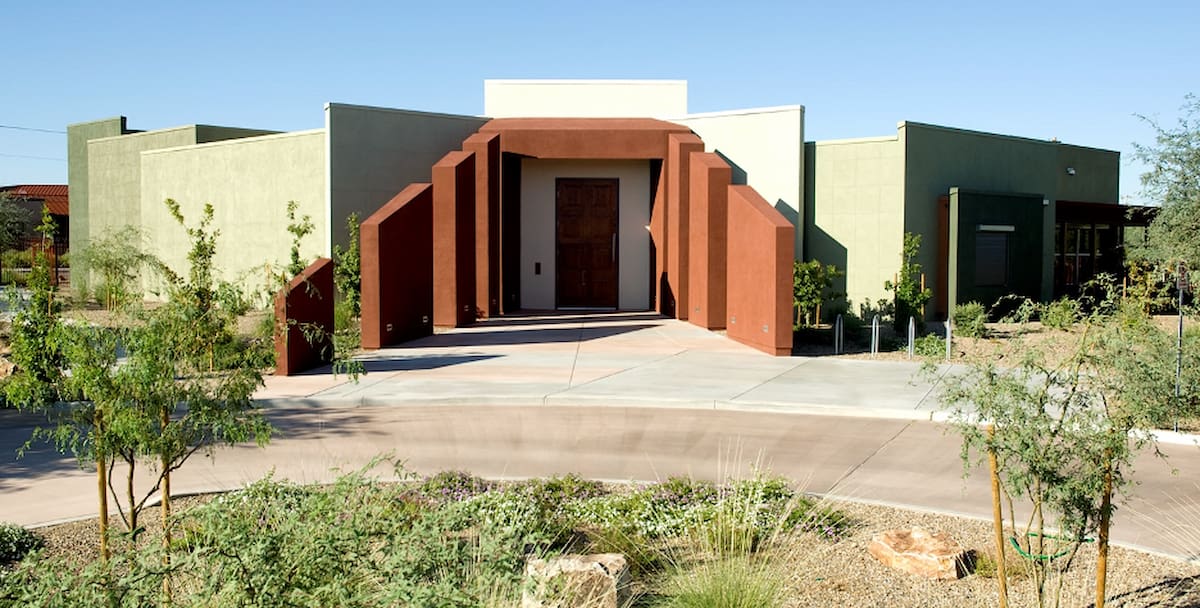
Worlds in Miniature. Inside, I found over 500 miniature houses and roomboxes, some dating back to 1742. There are three main art spaces:
- Enchanted Realm (castles, witches, fairies, and even a Halloween village)
- History Gallery (antique dollhouses and historic scenes)
- Exploring the World (miniature markets, homes, and scenes from around the globe)
The Enchanted Realm was my favorite, especially the fairy scavenger hunt — kids and adults were searching for hidden elves and fairies, and there was even a small prize at the end. In the History Gallery, I was amazed by the tiny furniture and real, working lights in some of the oldest dollhouses.
Activities. The museum isn’t just for looking. There are art carts on weekends, themed guides, and step stools for kids. Sometimes, there are special workshops or summer camps for children. I joined a docent-led tour at 1 PM, which gave me a deeper look at the stories behind the miniatures.
Events and Exhibits. There are always new things to see. When I last visited, I caught the “Tiny Tributes” exhibit, celebrating local stories, and “Stages of Imagination,” featuring Broadway set designs in miniature. Check the calendar for events like “Tiny Tales for Tots” or the summer camp for ages 8–14.
Admission Prices
| Ticket Type | Price (USD) | Price (EUR) | Notes |
|---|---|---|---|
| Adult (18–62) | $15 | ~€14 | |
| Senior (62+) | $13 | ~€12 | |
| College Student (with ID) | $13 | ~€12 | |
| Kids/Youth (4–17) | $9 | ~€8 | |
| Military | $13 | ~€12 | |
| Museums for All (SNAP/EBT/WIC) | $3 | ~€2.80 | Up to 6 tickets per visit, in-person only |
| Under 4 | Free | Free |
5. International Wildlife Museum
Unexpected Discoveries. The first time I visited the International Wildlife Museum, I honestly expected a quick walk-through. Instead, I found myself lost in a maze of dioramas and displays — each one more surprising than the last. This place is a treasure trove for anyone curious about the animal kingdom. You’ll see everything from a towering giraffe to a tiny hummingbird, all carefully preserved and presented in realistic habitats. The sheer variety is wild: African lions, Arctic polar bears, South American jaguars, and even a Komodo dragon!
Hands-On Learning. What I love most about this museum is how interactive it is. You’re encouraged to touch certain specimens — fur, antlers, and even real animal teeth. I watched a group of kids compare their hands to a bear paw and giggle as they tried to “roar” like the big cats. There are touch screens, quizzes, and short films about animal behavior and conservation. The Discovery Room is a hit with families, packed with puzzles and hands-on science activities.
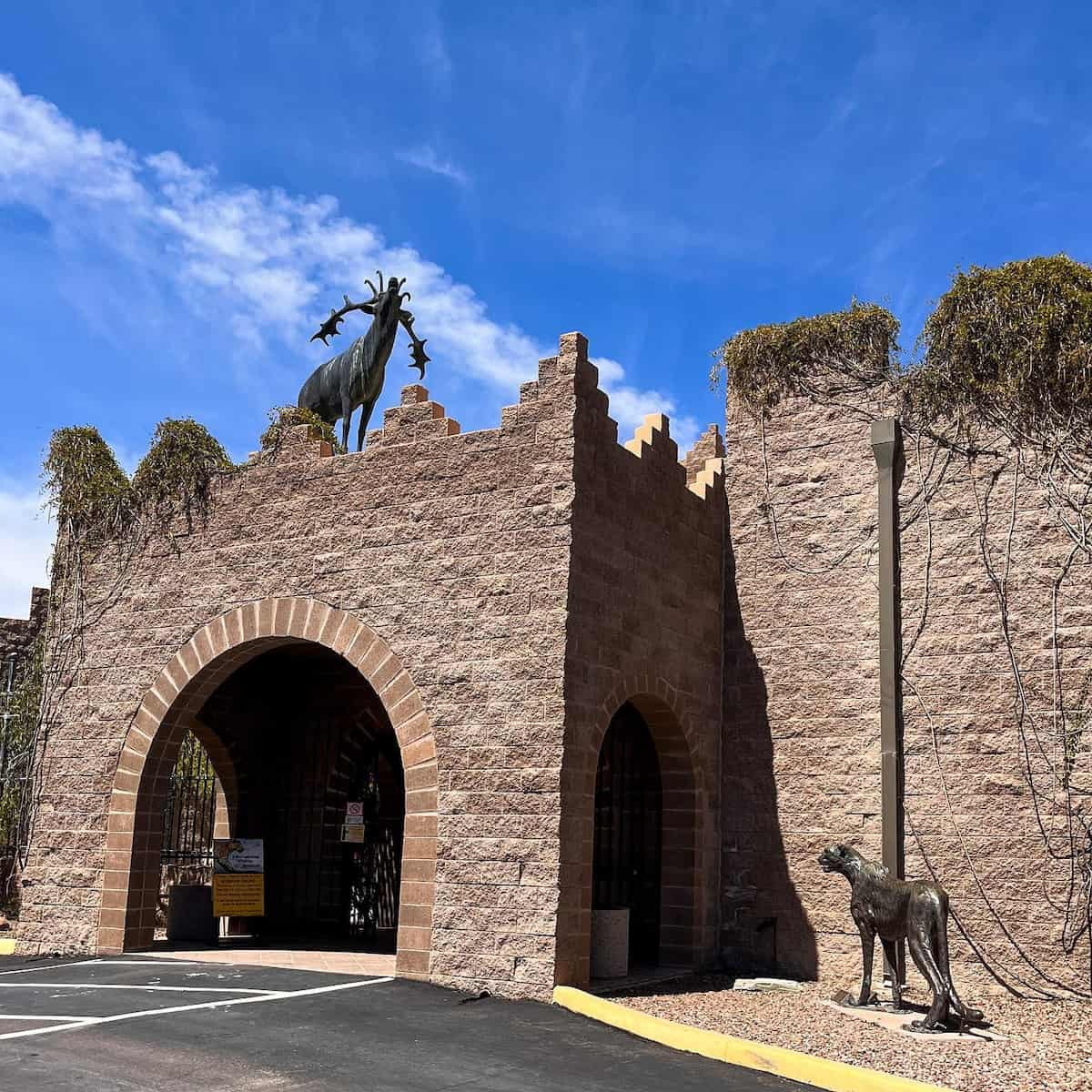
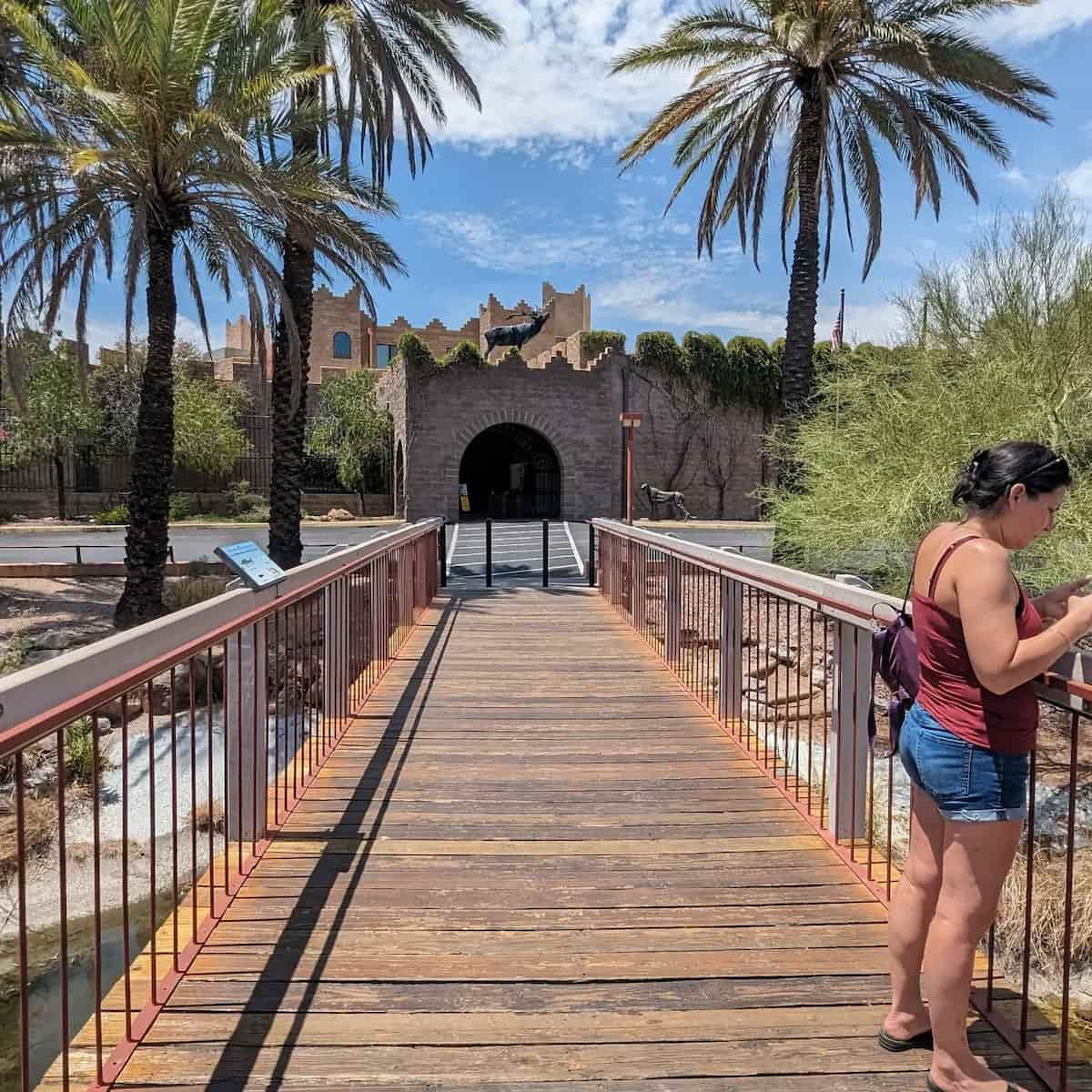
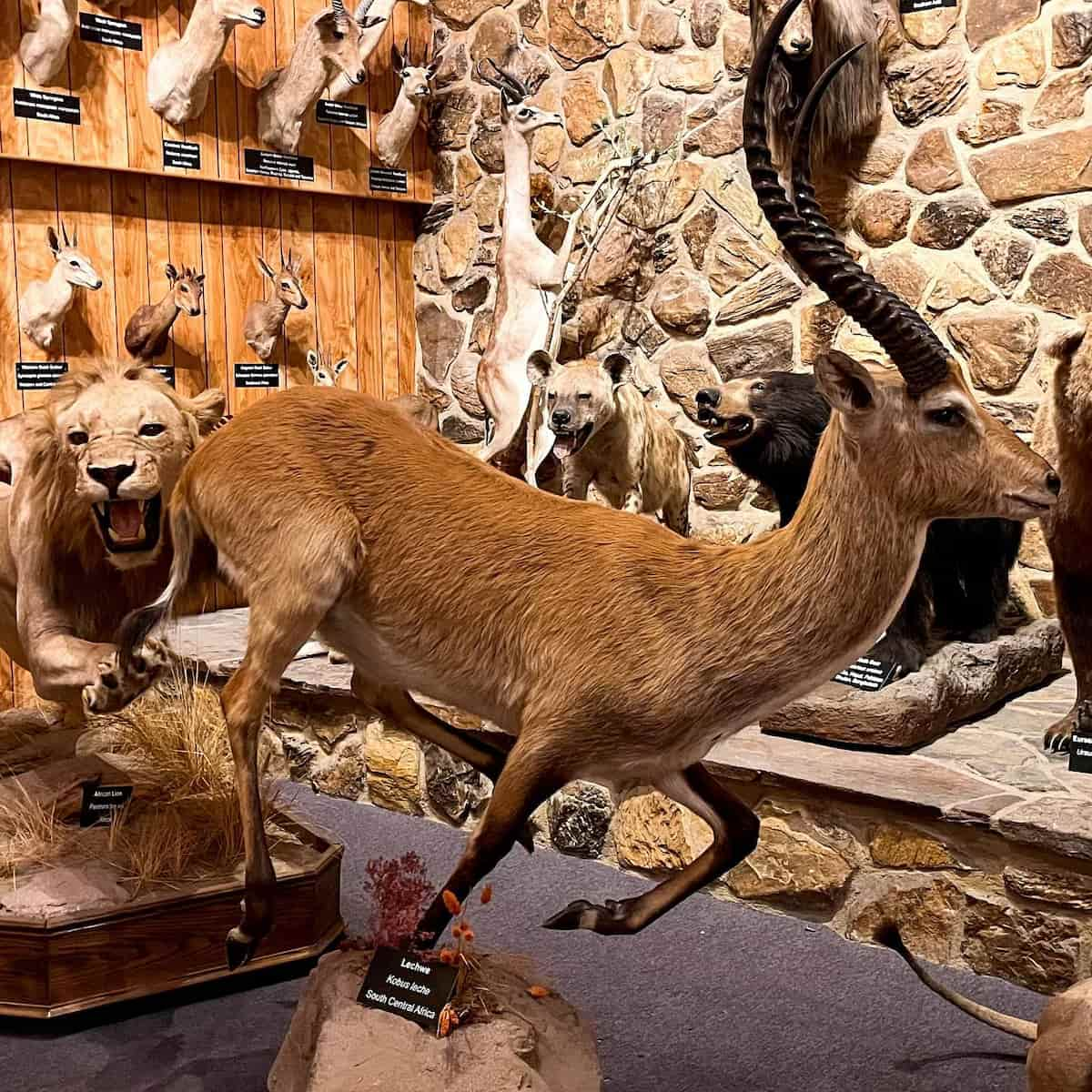
Famous Specimens. Some animals have real stories behind them. The rhinoceros hunted by Theodore Roosevelt is a conversation starter, and the extinct passenger pigeon is a sobering reminder of how fragile nature can be. I always pause at the Irish elk — its antlers are as wide as a car! The butterfly and insect collections are colorful and detailed, and the main lodge room feels like stepping into an old explorer’s hunting lodge, with animal heads and vintage safari gear.
Events and Programs. The museum hosts regular events: “Night at the Museum” sleepovers, scavenger hunts, and themed days for kids. I once joined a behind-the-scenes tour where a guide explained how taxidermy works and how the museum acquires its specimens (all ethically sourced, mostly from zoos and conservation projects). It’s a great place for school field trips and birthday parties.
Admission Prices
| Ticket Type | Price (USD) | Price (EUR) | Notes |
|---|---|---|---|
| Adult (13+) | $10 | ~€9.20 | |
| Child (4-12) | $5 | ~€4.60 | |
| Under 4 | Free | Free | |
| Family Pass | $25 | ~€23 | 2 adults + up to 4 kids |
| Seniors (62+) | $7 | ~€6.40 | |
| Members | Free | Free |
Free Entertainment
1. Downtown Murals & Public Art
Street Art. Walking through downtown Tucson, I felt like I’d stepped into an open-air art space. Murals stretch across brick walls, alleyways, and even parking lots. Every block tells a story — sometimes wild, sometimes whimsical, always colorful. On my last stroll, I counted at least a dozen murals in just a few blocks, each one bursting with the city’s Sonoran flavor and history. The “Epic Rides” mural by Joe Pagac (Sixth Street and Stone Avenue) is a favorite: a western couple, a javelina, and even a jackalope all riding bikes together. It’s impossible not to smile when you see it.
Artists and Icons. Tucson’s muralists are local legends. Joe Pagac, Jessica Gonzales, and Rock Martinez have transformed modern and contemporary art with their massive, imaginative works. I stopped at “Goddess of Agave” by Martinez (100 E. 6th St.), a hypnotic swirl of color and desert plants, and then wandered to the Antigone Books parking lot for Gonzales’s “Imagination Navigation Sonoran Sea” — a mural that celebrates how books bring stories to life. Each artist brings a unique vision: from Native American traditions to wild Sonoran animals and even Tucson’s cycling culture (check out the El Tour de Tucson mural at 1604 S. Sixth Ave.).
Public Art. It’s not just murals — sculptures and fountains are everywhere. The Presidio Fountain by Charles Clement, near the Historic Pima Courthouse, uses flowing tile patterns to tell Tucson’s water story. On Congress Street, you’ll find Fin DAC’s “Vergiss,” a mysterious portrait with a hidden message, and Ignacio Garcia’s playful “Running of the Piñatas.” Even the Anza Trail Cultural History Park blends accessible art with tactile exhibits and QR codes for everyone to enjoy.
How to Explore. You can wander on your own using the City of Tucson’s Mural Map (muralmap.tucsonaz.gov) or join a walking or bike tour. I once joined a guided mural tour — over 50 murals in under three hours! It was a whirlwind of stories, photo ops, and hidden gems. For a more relaxed pace, I recommend a self-guided walk along Fourth Avenue, Congress Street, and the Warehouse Arts District. Don’t forget your camera — these murals are Instagram gold.
Prices.
| Activity | Price (USD) | Price (EUR) | Notes |
|---|---|---|---|
| Self-guided tour | Free | Free | Use mural maps online |
| Guided walking tour | $20–$35 | ~€18–€32 | 2 hours, includes artist stories |
| Bike mural tour | $55 | ~€50 | 2¼ hours, includes bike and helmet |
2. Sabino Canyon (on free entry days)
Desert Adventure. Sabino Canyon, tucked in the Santa Catalina Mountains, is a true Sonoran Desert playground. On free entry days — like National Public Lands Day or Martin Luther King Jr. Day — I always see families, hikers, and cyclists soaking up the wild scenery without paying the usual $8 car fee. The canyon’s rocky trails wind past towering saguaro cacti, blooming wildflowers, and the ever-present rush of Sabino Creek. The light and shadow on the canyon walls change by the hour, making every visit feel fresh.
Hiking for Everyone. I love that Sabino Canyon has trails for every mood and skill level. If you want an easy stroll, the paved Sabino Canyon Road (7.8 miles out and back) is stroller and wheelchair friendly, with restrooms and picnic tables along the way. For something shorter, try the Bajada Loop — just 0.5 miles through a cactus forest, perfect for spotting birds and desert critters. If you’re up for a little adventure, the Sabino Dam Loop (2.3 miles) leads to a surreal desert oasis where water flows over ancient rocks. On hot days, I’ve watched kids splash in the creek while parents relax at shaded picnic tables.
Scenic Views. The narrated Sabino Canyon Crawler tram is a fun way to see the canyon’s highlights — crossing nine stone bridges and offering nine stops where you can hop off to explore or picnic. The tram isn’t free, but on fee-free days, you can save your budget for the ride (about $15 per adult, separate from entry). The Bear Canyon tram drops you near the Seven Falls trailhead, a must-see if you want to chase waterfalls in the desert.
Wildlife and Water. Every visit brings surprises. I’ve spotted roadrunners, coyotes, and even the occasional javelina. In spring, the wildflowers are stunning; after summer rains, the pools and waterfalls at places like Sabino Dam and Hutch’s Pool fill up, drawing crowds for a rare desert swim.
Picnic Spots. There are plenty of picnic areas — my favorites are near the Visitor Center and Sabino Dam East. Restrooms and water stations are scattered along the main trails and shuttle stops, so you can refill bottles and take breaks without worry.
Prices
| Pass Type | Price (USD) | Price (EUR) | Notes |
|---|---|---|---|
| Day Pass (per car) | $8 | ~€7.40 | Waived on select free entry days |
| Week Pass (per car) | $10 | ~€9.20 | |
| Annual Pass | $40 | ~€36.70 | Best for locals |
| Tram Ride (Adult) | $15 | ~€13.80 | Not included in entry fee |
| Tram Ride (Child 3-12) | $8 | ~€7.40 |
3. Tohono Chul (on select days)
Free Days. Every year, Tohono Chul opens its gates for special free admission days like Go Public Gardens Community Day. I joined the fun one sunny May morning — no ticket needed, just a big smile and a sense of curiosity. The garden was buzzing with families, local musicians, and art activities for kids. I painted with a yucca brush, watched children build bee habitats, and even caught a live performance by the Desert Players, a local pantomime group. These events are a fantastic way to experience the best things to do in Tucson without spending a dime.
Live Music. One of my favorite free experiences is “Jazz Under the Stars” at the Garden Bistro. On Friday and Saturday evenings from February through May, you can sit outside, order a drink, and soak up smooth jazz with the scent of blooming desert flowers in the air. There’s no cover charge — just good vibes, local talent, and a relaxed Tucson crowd. It’s the perfect way to enjoy Tucson at night, especially if you’re looking for fun things to do for adults or couples.
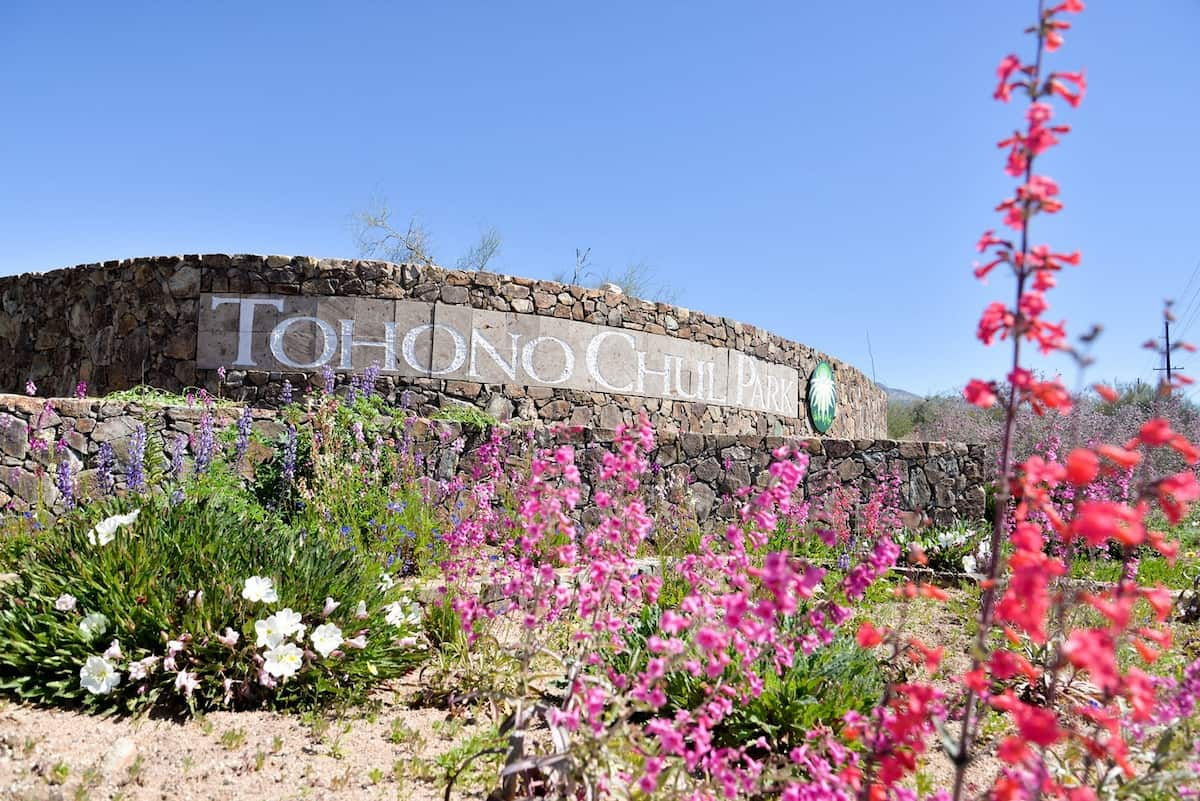
Nature. Tohono Chul’s themed gardens are always open to explore on free days. I wandered through the hummingbird garden, watched butterflies in the Sin Agua Garden, and rested in the shade of the Desert Palm Oasis. Kids love the Children’s Garden, and the Ethnobotanical Garden is a great spot to learn about native plants used by the O’odham people. Even when admission isn’t free, you can always visit the Garden Bistro, museum shops, and Desert Corner Nursery without a ticket — perfect for a quick, budget-friendly outing.
Admission and Discounts
| Ticket Type | Regular Price (USD) | Discount/Free Options |
|---|---|---|
| Adult (13-61) | $20 | Free on select days, Culture Pass, Museums for All $3 |
| Senior (62+) | $15 | Free on select days, Blue Star Museums (summer) |
| Youth (4-17) | $10 | Free on select days, Museums for All $3 |
| Children under 4 | Free | Always free |
| Active Military | $15 | Free Memorial Day–Labor Day (Blue Star Museums) |
| Culture Pass | — | Free admission with library pass |
Tips. Check your local library for a Culture Pass — this gets you and a guest in for free. If you have a SNAP or WIC card, ask for the Museums for All discount ($3 per person for up to four people). Arrive early on free days — parking fills up fast, and the coolest, quietest hours are right after opening. Bring your own water bottle and a hat; Tucson sun is strong even in the gardens. If you’re visiting with kids, head straight to the Children’s Garden for hands-on fun.
Seasonal Events in Tucson
1. Spring – Southwest Wings Birding Festival
Birding Adventures. Every spring, I make my way to Sierra Vista for the Southwest Wings Spring Fling — Arizona’s oldest and most beloved birding festival. The event usually runs the first week of May, with a welcome Jamboree at Cochise College. The real magic happens on the field trips: small groups pile into vans or join car caravans, heading out to legendary birding hotspots like Ramsey Canyon, San Pedro Riparian National Conservation Area, and the Huachuca Mountains. Last year, I spotted a Violet-crowned Hummingbird and the elusive Elegant Trogon — two of the region’s most sought-after species. The guides are local experts who know every call, flutter, and feather in the sky islands of southern Arizona.
Festival Atmosphere. The festival isn’t just about ticking birds off a list. There’s a real sense of community — early morning coffee, shared binoculars, and excited whispers when someone spots a rare warbler. I’ve made friends from all over the country, swapping stories of Montezuma Quail sightings and comparing birding gear. The welcome Jamboree is a highlight, with local musicians, food trucks, and a chance to meet your guides before the field trips begin.
Workshops and Learning. Between field trips, I love attending the free workshops and talks. Topics range from “Birding by Ear” and “Hummingbirds of the US” to butterfly identification and nature photography. One year, I joined a session on Arizona dragonflies and learned how to spot a Roseate Skimmer. There are also hands-on demos for kids and beginners — perfect for families looking for fun things to do in Tucson and the surrounding area.
Birds and Wildlife. Southeast Arizona is a birding paradise thanks to its unique mix of habitats. During the festival, it’s common to see 200+ species, including Arizona specialties like the Buff-breasted Flycatcher, Mexican Chickadee, and Zone-tailed Hawk. The festival’s high-elevation field trips mean cooler temperatures and a chance to spot mammals, reptiles, and butterflies along the trails.
Festival Prices
| Ticket Type | Price (USD) | Price (EUR) | Notes |
|---|---|---|---|
| Festival Registration | $75 | ~€69 | Includes access to field trips/workshops |
| Field Trip (per trip) | $40–$90 | ~€37–€83 | Price varies by location and duration |
| Free Workshops | Free | Free | Most workshops and talks |
| Family Activities | Free | Free | Kid-friendly events and demos |
2. Summer – Night Hikes & Stargazing
Adventures After Dark. Tucson’s summer days are blazing, but the real magic starts when the sun goes down. I love grabbing my headlamp and joining a night hike in Sabino Canyon or Saguaro National Park. The air cools, the desert comes alive, and the city lights twinkle in the distance. On one hike, I spotted a Gila monster crossing the trail and listened to the chorus of Sonoran Desert toads after a monsoon rain. Hiking at night, you’ll see tarantulas, scorpions, and even the occasional owl swooping overhead. The Pontatoc Ridge trail during a full moon is unforgettable — you get a panoramic view of Tucson glowing below.
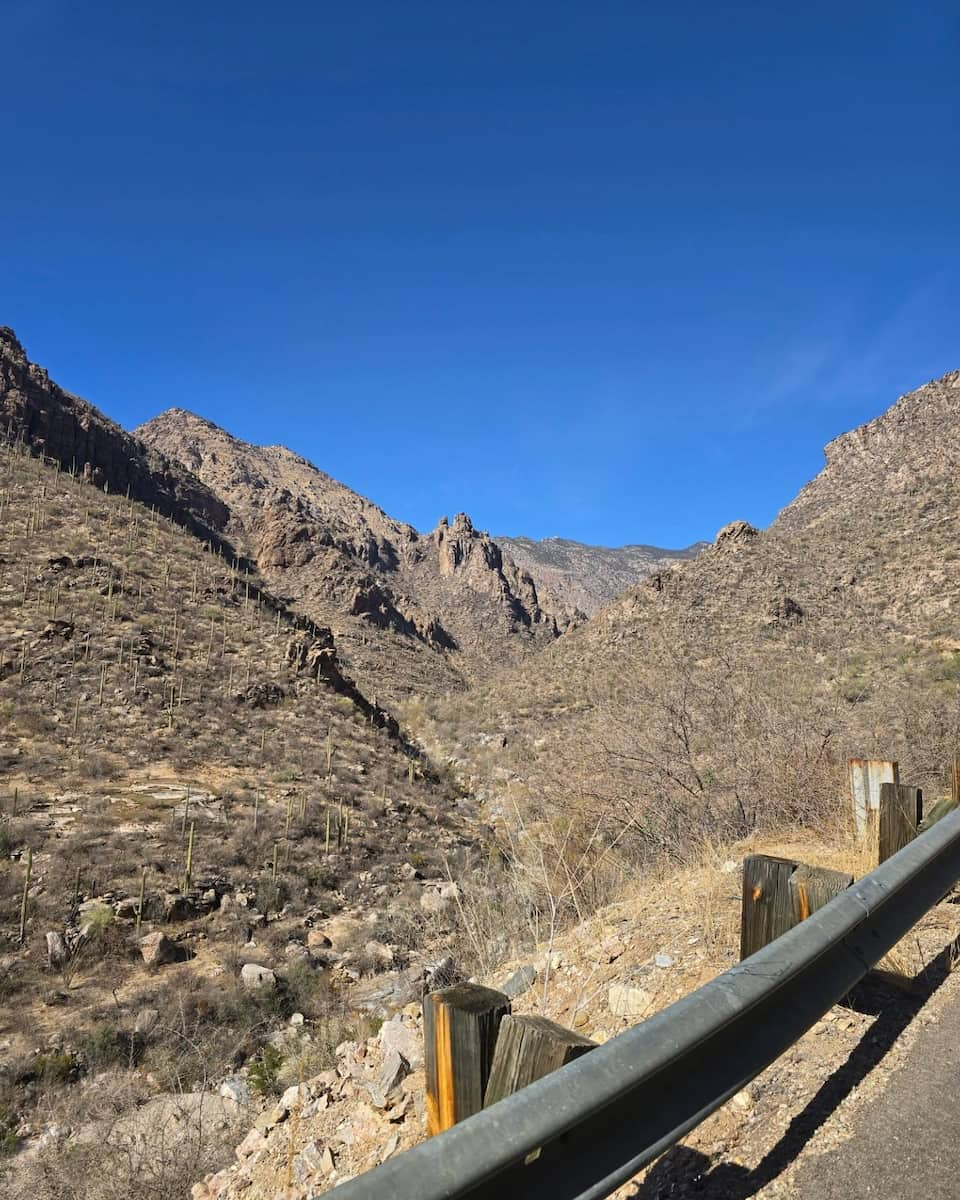
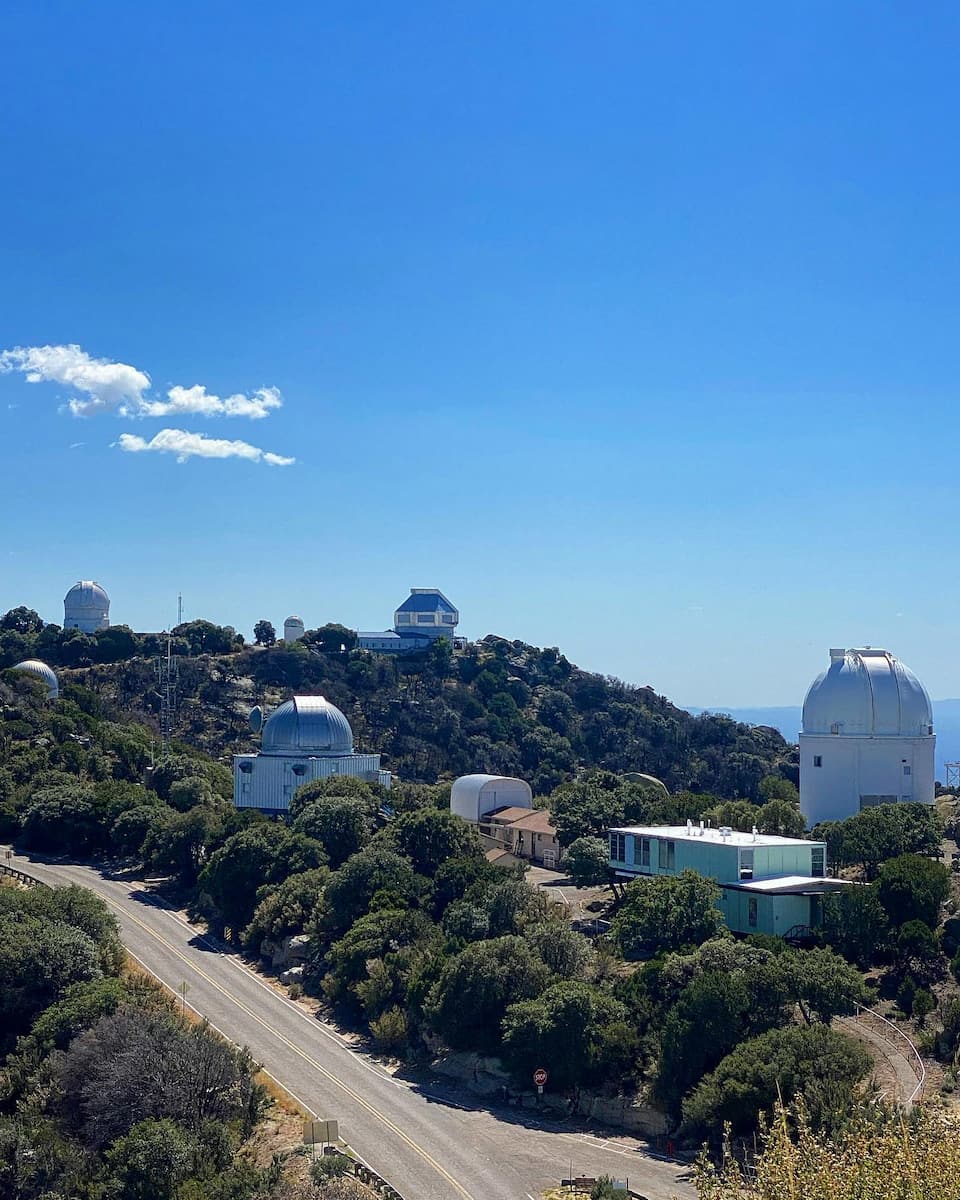
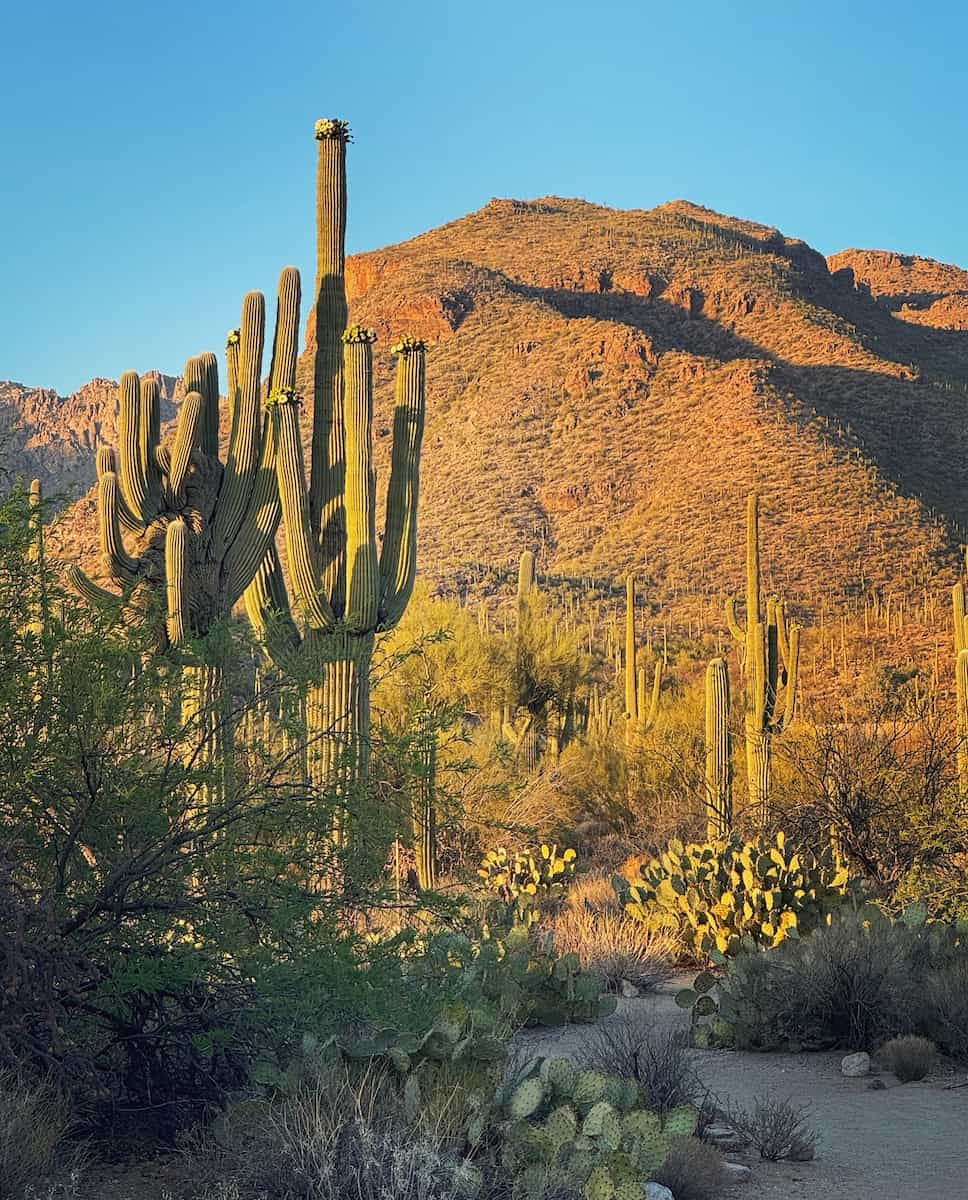
Stargazing Hotspots. If you’re a fan of the cosmos, Tucson is your paradise. The city’s dark sky rules mean you can see the Milky Way from just outside town. My top picks:
- Kitt Peak National Observatory: Join the Nightly Observing Program for a guided astronomy session with giant telescopes. The experience includes a light meal, constellation lessons, and peering at planets or nebulae through professional-grade scopes.
- Mount Lemmon SkyCenter: At nearly 9,200 feet, the SkyNights program lets you gaze at deep-sky objects with the largest public telescopes in the Southwest. The view of the Milky Way is jaw-dropping.
- Windy Point Vista & Spencer Canyon: These spots along the Catalina Highway are local favorites for a quick stargazing escape. Pack a chair and a blanket for a peaceful night under the stars.
- Saguaro National Park (East & West): The cacti make for dramatic silhouettes against the night sky. Both park units offer occasional ranger-led night hikes and astronomy events. The West Unit is closer to town but still dark enough for serious stargazing.
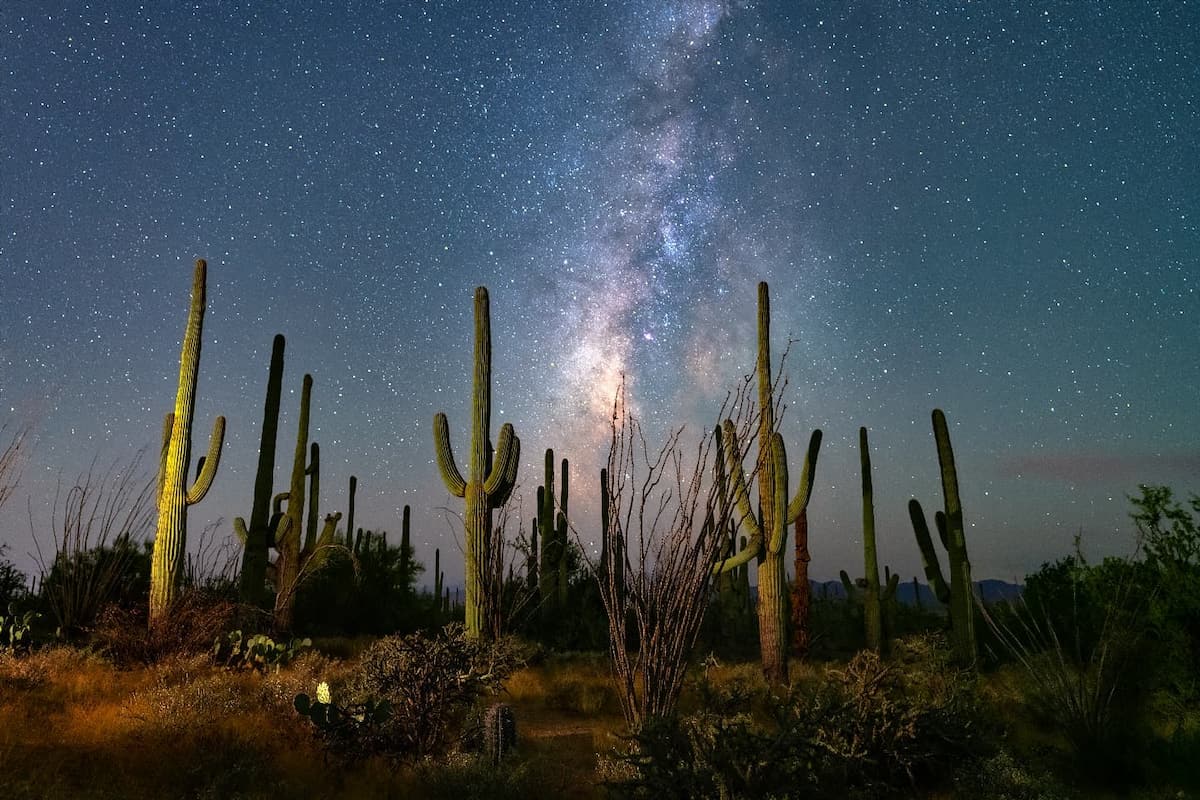
Events & Experiences. I’ve joined “star parties” at Catalina State Park, where amateur astronomers set up telescopes and invite you to peek at Saturn’s rings or distant galaxies. The Flandrau Science Center & Planetarium on the University of Arizona campus is also a must for families — catch a planetarium show or join a hands-on astronomy workshop. Some nights, I just drive out to Ironwood Forest National Monument for pure, silent darkness and a sky full of stars.
Admission
| Experience | Price (USD) | Price (EUR) | Notes |
|---|---|---|---|
| Kitt Peak Nightly Observing Program | $60–$80 | ~€55–€74 | Includes meal, telescope use |
| Mt. Lemmon SkyNights Program | $85 | ~€78 | Includes dinner, telescope use |
| Sabino Canyon Night Tram Ride | $15 | ~€14 | Cash only, reservation needed |
| Flandrau Planetarium Show | $16 | ~€15 | Includes museum entry |
| Catalina State Park Star Party | $7/car | ~€6.50/car | Park entry only, event is free |
What to Bring for Night Hikes & Stargazing:
- Headlamp or flashlight (with red filter)
- Water and snacks
- Lightweight jacket (it gets cool in the desert)
- Binoculars or a small telescope
- Camera for night sky photography
3. Fall – Tucson Meet Yourself Festival
Culture on Every Corner. Each October, Tucson’s downtown transforms into a three-day celebration of culture, food, and music at the Tucson Meet Yourself Festival. I always look forward to this event — it’s a living, breathing showcase of Tucson’s diverse heritage. Picture Jácome Plaza and the surrounding blocks filled with the sounds of mariachi, the scent of Sonoran hot dogs, and the sight of dancers in colorful costumes. Over 150 artists and performing groups take the stage, from flamenco and belly dance to Native American drum circles and Cuban salsa.
Food Dr
eam. If you love to eat, this festival is paradise. I’ve sampled everything from Vietnamese pho to Salvadoran pupusas, Filipino lumpia, and classic Mexican tamales — all in one afternoon. More than 50 food vendors set up shop, each representing a different culture or community. The hardest part is choosing what to try first! My advice: bring friends, share plates, and don’t miss the handmade tortillas or the fresh aguas frescas.
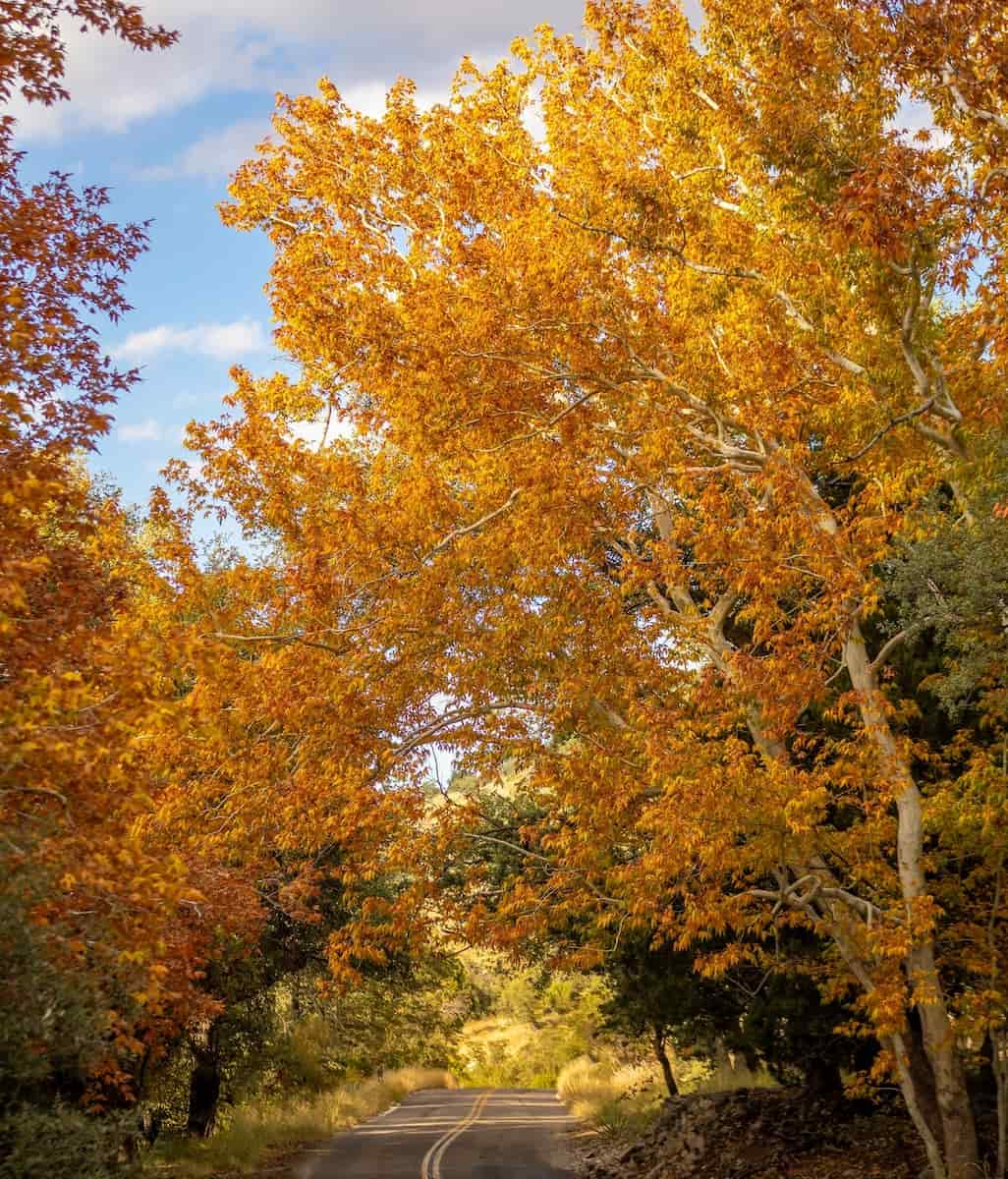
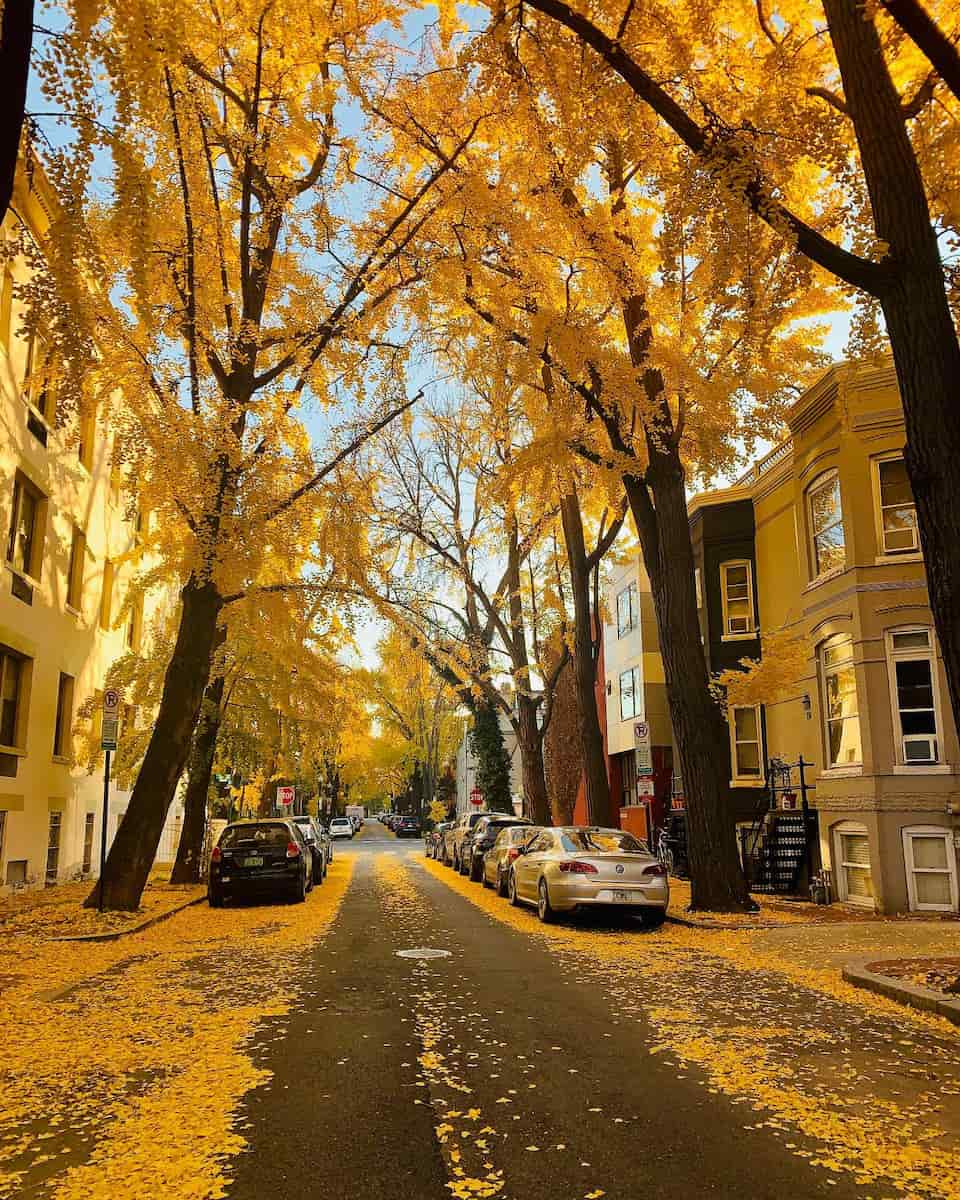
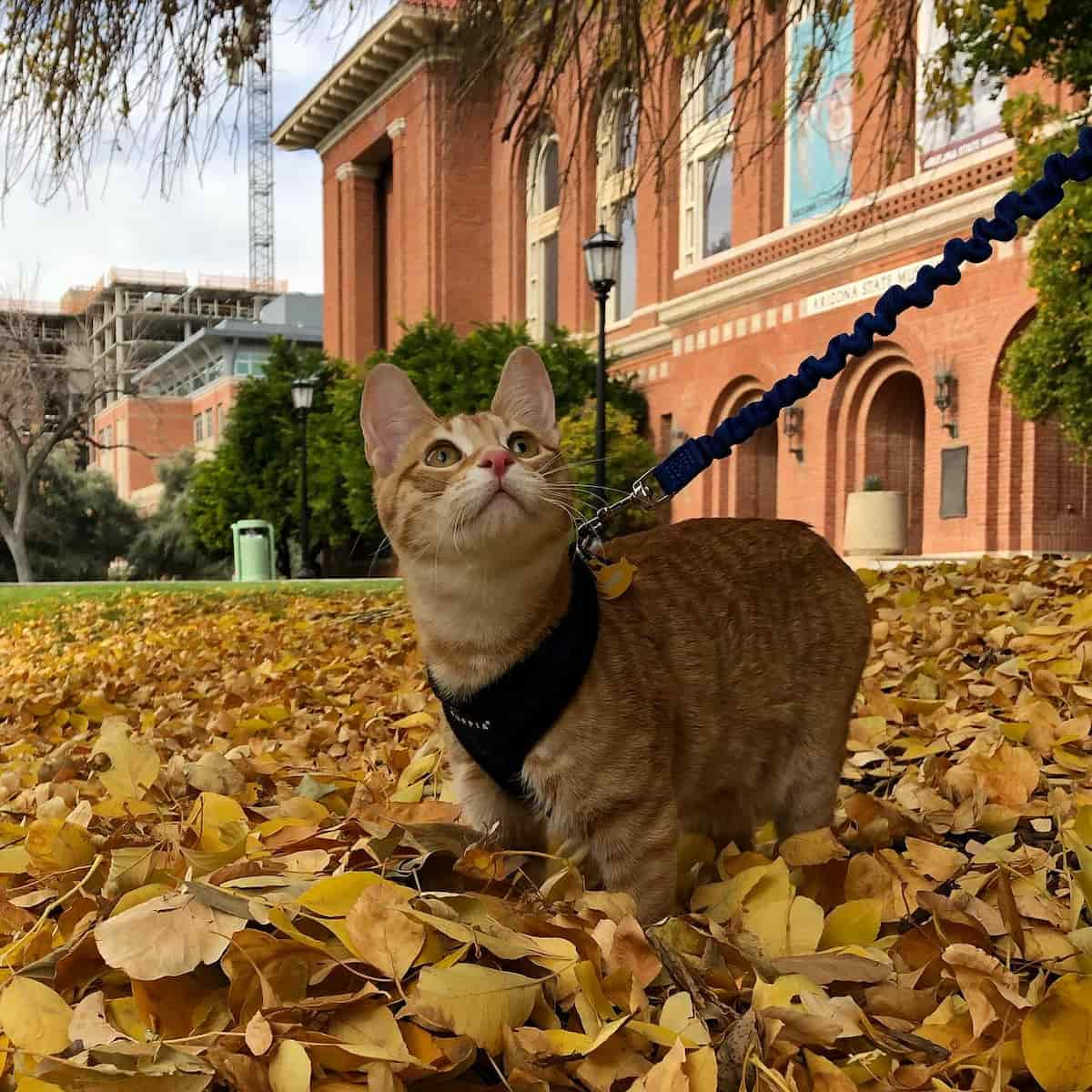
| Food Item | Average Price (USD) | Average Price (EUR) |
|---|---|---|
| Sonoran hot dog | $6 | ~€5.50 |
| Tamale | $4 | ~€3.70 |
| Lumpia (Filipino eggroll) | $5 | ~€4.60 |
| Aguas frescas | $3 | ~€2.80 |
Community Spirit. Stages come alive with every genre you can imagine: Klezmer, R&B, Japanese dance, mariachi, and more. I once found myself dancing in a crowd to Cuban salsa, then five minutes later listening to a quiet folk song under the shade of a mesquite tree. There’s a palpable energy — everyone’s welcome, and everyone belongs. The festival is alcohol-free, family-friendly, and completely free to enter.
4. Winter – Christmas at Tumacácori
Luminaria Magic. On Christmas Eve, Tumacácori National Historical Park transforms into something truly unforgettable. I remember arriving just before sunset, the air crisp but comfortable — no heavy coats needed, just a light jacket. Volunteers and park rangers, some in Santa hats, were busy setting out thousands of luminarias: simple candles glowing in brown paper bags. As dusk settled, the mission’s adobe walls and ancient arches began to glow with the soft, golden light of 2,500 luminarias. The effect is otherworldly — every path, ledge, and alcove illuminated, guiding visitors to the old church and filling the night with a peaceful, almost magical atmosphere.
Community and Culture. Locals and visitors gather for this free event, sharing the experience with families, friends, and even strangers. I joined a small crowd listening to a park ranger strumming Christmas carols on a guitar, his Santa hat slightly askew. The scent of mesquite and the sound of quiet conversation filled the air. Some people brought thermoses of hot chocolate, others carried candles to add to the display. There’s no commercialism here — just a warm, communal celebration of the season, deeply rooted in the traditions of the Santa Cruz Valley’s many cultures.
Traditions and Activities. Besides the luminaria walk, you can explore the historic church, wander the mission grounds, and sometimes catch a multicultural Mass or local musicians playing traditional songs. The Fiesta de Tumacácori earlier in December brings food, crafts, and performances from O’odham, Yaqui, Apache, and Mexican-American communities, but Christmas Eve is quieter — focused on reflection and beauty.
Admission
| Ticket Type | Price (USD) | Price (EUR) | Notes |
|---|---|---|---|
| Adults (16+) | $10 | ~€9.20 | Regular admission, valid for 7 days |
| Children (<16) | Free | Free | Always free |
| Christmas Eve Event | Free | Free | No charge for luminaria celebration |
| Annual Pass | $35 | ~€32 | Covers 4 adults |
Common Tourist Mistakes:
- Forgetting Layers: Evenings can get chilly, so bring a light jacket.
- Expecting Food Stalls: There are no food vendors during the luminaria event — eat before you come or bring your own thermos of cocoa.
- Missing the Church Interior: The sanctuary is open and filled with luminarias — don’t just stay outside!
Day Trips from Tucson
1. Kartchner Caverns State Park
Unexpected Wonders Underground. I’ll never forget the first time I heard the heavy steel doors close behind our tour group. The world outside faded, replaced by the soft drip of water and the hush of voices echoing off ancient stone. The guide’s flashlight swept over delicate soda straws and glistening stalagmites — some still growing, drop by drop. “Don’t touch anything,” she reminded us, “even the oils from your skin can stop a formation from growing.” I felt a real sense of awe, knowing this cave was hidden for thousands of years, its secrets protected by two friends who stumbled on it while caving. Their story — sneaking back for years, keeping the entrance hidden under brush — makes the tour feel like you’re part of a real-life adventure.
Family Memories. On my last visit, I brought my niece and nephew, both under ten. They were wide-eyed the entire time, especially when the guide turned off the lights for a moment of total darkness. My nephew whispered, “It’s like being on another planet!” After the tour, we spent an hour in the Discovery Center. The kids loved crawling through the “cave tunnel” exhibit and learning how bats use echolocation. We even caught a ranger talk about the endangered long-nosed bat, and I realized how much the park does for conservation.
Above Ground Surprises. Kartchner Caverns isn’t just about the cave. One spring, I joined a group hike on the Foothills Loop Trail. We spotted blooming prickly pear, a roadrunner darting across the path, and a family of javelinas rooting in the brush. The Hummingbird Garden Walk was alive with flashes of color — broad-billed hummingbirds zipped from flower to flower, and the air smelled of creosote after a rare desert rain. I always recommend packing a picnic and eating at one of the shaded tables. The mountain views are worth lingering over.
Meeting Fellow. Once, I met a couple from Germany on the Helmet & Headlamp Tour. We laughed as we donned our gear and followed the guide into a less-developed section of the cave. The only light came from our headlamps, and the sense of discovery was real. We squeezed through narrow passages and learned how the original explorers mapped the cave with string and a compass. At the end, we all agreed it was the highlight of our Arizona trip.
2. Tumacácori National Historical Park
Living History. Walking through Tumacácori National Historical Park, I felt like I’d stepped into a living storybook. The park preserves the ruins of Mission San José de Tumacácori, built in the late 1700s, surrounded by the Santa Cruz Valley’s mesquite trees and desert scrub. The adobe church, with its thick walls and faded frescoes, stands as a reminder of Spanish colonization, Native American resilience, and the blending of cultures that shaped southern Arizona. I wandered through the old cemetery, past a replica O’odham dwelling, and found myself imagining the daily lives of the O’odham, Yaqui, Apache, and Spanish settlers who lived, worked, and sometimes clashed here.
Visitor Center. My first stop was the visitor center, designed to echo the style of the original mission churches with carved wooden doors and arched passages. Inside, I browsed a small but fascinating museum filled with artifacts — hand-carved saints, lifelike models of priests, and a timeline tracing the region’s history from indigenous villages to the mission era and beyond. There’s a short film you can start yourself, and friendly park staff ready with stories and tips. Don’t skip the bookstore; I picked up a self-guided tour booklet that made exploring the grounds more meaningful.
Trails and Nature. One of the best surprises was the access to the Juan Bautista de Anza National Historic Trail. I took a peaceful walk under cottonwood and willow trees, following the Santa Cruz River toward Tubac Presidio State Historic Park. Birdwatchers will love this stretch — over 200 species have been spotted here, and I saw a vermilion flycatcher flitting above the water. If you’re lucky, you might spot javelina or even a coyote along the way. The riparian forest is a cool, shady escape from the desert heat.
Local Flavor. If you’re in Tucson in December, don’t miss La Fiesta de Tumacácori. This festival is a joyful celebration of all the cultures that shaped the region, with live music, traditional dancing, food stalls, and crafts. I once watched a tortilla-making demonstration and joined a piñata-breaking with local families. The park also hosts night sky programs — bring a blanket and enjoy stargazing under some of the darkest skies near Tucson.
Admission and Passes
| Ticket Type | Price (USD) | Price (EUR) | Notes |
|---|---|---|---|
| Adult (16+) | $10 | ~€9.20 | Valid for 7 days, includes all three mission sites |
| Under 16 | Free | Free | |
| Annual Park Pass | $35 | ~€32 | Good for pass holder + 3 adults |
| America the Beautiful Pass | $80 | ~€74 | Covers all national parks for a year |
| Free Days | Varies | Varies | Check for national fee-free days |
3. Biosphere 2
Impressions. When I first saw Biosphere 2, it looked like a space station dropped in the Sonoran Desert — gleaming glass domes and futuristic angles. Located about an hour northeast of Tucson in Oracle, this giant science experiment is one of Arizona’s most unique attractions. You’ll find it at 32540 S Biosphere Rd, Oracle, AZ 85739, surrounded by desert plant and mountain views.
Adventures in Science. Inside, you’ll walk through a series of connected biomes: a tropical rainforest, a fog desert, a savanna, mangroves, and even a million-gallon ocean. The air changes as you move — humid in the rainforest, cool and misty in the fog desert, salty near the ocean. It’s like traveling the world in an afternoon, all under glass.
How the Tour Works. Tours are self-guided and use the free Biosphere 2 Experience app. Download it before you go (cell service is spotty), and bring headphones so you can hear the stories and interviews as you walk. The path takes you inside and outside, up stairs, and through tunnels — so wear comfy shoes and bring water.
What You’ll See:
- The “lungs”: Giant domes that balance air pressure inside the biosphere.
- The technosphere: A maze of pipes and wires that control the climate, humidity, and even create rain.
- The original living quarters: Peek at where the first “biospherians” lived during their famous 1990s experiment.
- Wilderness biomes: Experience the tropical rainforest, fog desert, and ocean ecosystems.
Price
| Ticket Type | Price (USD) | Price (EUR) |
|---|---|---|
| Adult | $25 | ~€23 |
| Senior (62+) | $23 | ~€21 |
| K12 Student (5-17) | $15 | ~€14 |
| Child (under 4) | Free | Free |
| Military Adult | $23 | ~€21 |
| UA Cat Card | $20 | ~€18 |
| Member | Free | Free |
⭐ Best Activities
- Tumacacori Mission Tour – Discover the historic Tumacacori Mission and learn about the rich cultural heritage of this National Historical Park in southern Arizona.
FAQ
1. What’s the best time to visit Tucson?
Spring (March–May) and fall (September–November) are ideal — expect sunny days, cool nights, and blooming desert flowers. Winter is also nice, with mild temperatures and lots of sunshine. Summer can be extremely hot, but you’ll find fewer crowds and lower prices.
If you love festivals and outdoor events, spring is especially lively in Tucson.
2. Do I need a car to get around Tucson?
Having a car is best for exploring Tucson, especially for reaching places like Saguaro National Park, Mount Lemmon, and Kartchner Caverns. Downtown and the university area are walkable, and the Sun Link streetcar is handy, but most attractions are spread out.
Relying only on public transport can make it hard to see Tucson’s best sights outside the city center.
3. What local foods should I try?
Don’t miss the Sonoran hot dog (bacon-wrapped and loaded with toppings), carne seca (sun-dried beef), green corn tamales, and chimichangas. Eegee’s frozen fruit drinks and mesquite-grilled steaks are Tucson classics too.
You’ll find these specialties at both food trucks and family-run restaurants across the city.
4. Are there good activities for rainy or hot days?
Definitely! Tucson has great indoor options like the Mini Time Machine Museum, Children’s Museum Tucson, and Flandrau Science Center. You can also enjoy shopping, art spaces, or catch a movie or live show at the Fox Theatre. Many attractions offer special evening hours in summer to help you beat the heat. It’s easy to stay entertained and comfortable, no matter what the weather brings.
